Niigata's Murakami City: Enjoy Fun Events, Sightseeing, and Local Cuisine!
We use cookies to improve our contents. Check the detail and update your settings here .
We use cookies to improve our services.
For more details, please click here .

- Change setting
- Food & Drink
- Accommodation
- Things To Do
- All the categories
Transportation
- Weather & Seasons
- Long-Term Stay
- Travel Tips
- Event Tickets
- About MATCHA
- Company Profile
- Things To Do in Tokyo
- Food & Drink in Tokyo
- MATCHA Special Features

9 Recommended Hot Springs In And Around Tokyo

Onsen, or hot springs, are the quintessential Japanese experience and a great way to relax during your trip. In this article we introduce the best hot springs in Tokyo and in nearby suburban areas for visitors coming to Japan's capital.
Hiromasa Uematsu
Visit Onsen in Tokyo - Relaxing Hot Springs
An essential part of any trip to Japan is relaxing at an onsen , or hot spring. When it comes to onsen, well-known hot spring areas such as Hakone and Beppu soon come to mind, but you can also enjoy onsen in Tokyo as well.
Also, if you you go to Hakone, Nikko , or any of the other onsen areas , you can enjoy delicious cuisine and relax in hot springs in a Japanese-like environment, and even stay at a hot spring ryokan .
Out of all the hot springs and bathing facilities in Tokyo, we have picked our top ten spots for visitors coming to Japan.

Bath Culture In Japan: What Every Visitor Should Know Ahead Of Time

Rotemburo (Outdoor Bath) - Japanese Encyclopedia
At a sento, you can use a Japanese-style bath or hot spring. At a super sento, in addition to the bath you can enjoy a host of other services as well, including massage chairs, eating establishments, and amusement facilities.
Book the Tokyo Subway Pass to Explore Tokyo Conveniently!
Book Shinkansen (bullet train) tickets Book the JR Pass for Whole Japan (7, 14, or 21 Days)
1. Tokyo Dome Spa LaQua in Suidobashi

Picture courtesy of Tokyo Dome Corporation
Spa LaQua is located inside Tokyo Dome City, Tokyo's largest entertainment area.
In addition to Spa LaQua, there's a large shopping complex, an amusement park, and a hotel all in one, so this facility can be a great place to stay when traveling, as well as a great sightseeing spot.
Tokyo Dome is holds sports games, concerts and a wide range of events. Why not dropping by on your way home from one of these events ease your tiredness at Spa LaQua?
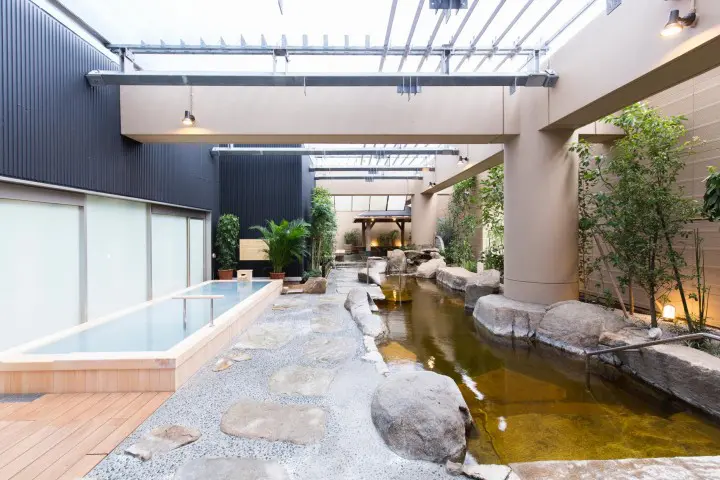
At Spa LaQua, there's rotemburo filled with natural spring water gushing out from 1,700 meters underground, a low-temperature sauna and other hot spring amenities, in addition to body care and chiropractic area, and a hair treatment service.
Prices: Adults (18 years and up) - 2,900 yen with tax 6 to 17 years of age - 2,090 yen with tax (must be accompanied by an adult) *children 5 years old and under aren't allowed to enter
Access: 1 minute on foot from Korakuen Station (Tokyo Metro Marunouchi Line, Nanboku Line), 2 minutes on foot from Kasuga Station (Toei Oedo Line), 3 minutes on foot from Suidobashi Station (Toei Mita Line), 6 minutes on foot from Suidobashi Station (JR Line).
Location: Tokyo, Bunkyo, Kasuga 1-1-1 (Tokyo Dome City LaQua 5th-9th floors, front desk is on 6th floor). Google Map
For the official homepage of Spa LaQua please click here
2. Toshimaen Niwa-No-Yu in Nerima

Picture courtesy of Toshimaen Niwa-No-Yu
For those who often visit or pass through Shinjuku and Ikebukuro , Toshimaen Niwa-No-Yu located in Nerima Ward, is conveniently accessed.
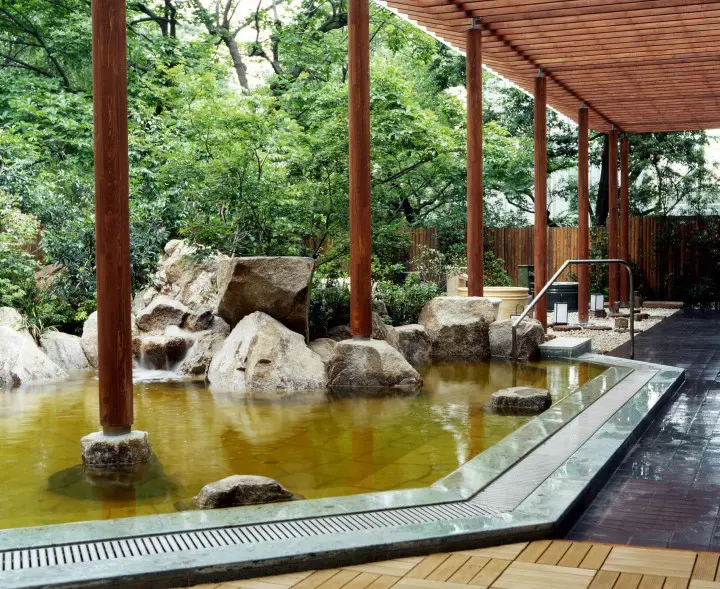
The name Niwa-No-Yu ("niwa" meaning garden) was given to this facility because there's a large, traditional Japanese garden inside the premises.
Covering some four thousand square meters, this garden surrounds Niwa-No-Yu's building. In the spring, there are cherry blossoms , and in the autumn there's Japanese pampas grass, so one can enjoy the beauty of the plants and flowers in each season.
In addition to natural hot springs with a view of the Japanese garden, the body zone, where you can dip into the water wearing your bathing suit, is also worth checking out. For visitors who find the idea of being naked in front of other bathers uncomfortable, the body zone is an ideal way to enjoy the hot springs and baths.
Prices: Regular (Junior high school students and up)- 2,350 yen. Night Spa (after 18:00)- 1,320 yen *excluding New Year's holidays, the Obon season, and Golden Week .
Access: 1 minute on foot from Toshimaen Station (Seibu Ikebukuro Line), 2 minutes on foot from Toshimaen Station (Toei Oedo Line).
Location: Tokyo, Nerima, Koyama 3-25-1 Google Map

3. Musashi Koyama Onsen Shimizuyu in Musashi Koyama
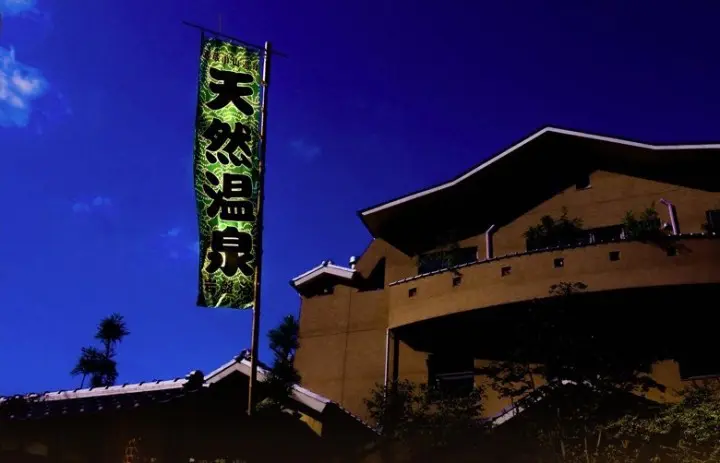
Picture courtesy of Musashi Koyama Onsen Shimizuyu
Musashi Koyama Onsen Shimizuyu , is a local sento that's been in business since 1924. This sento is located west of Tokyo's central area. It is in the ideal location for those who frequent Shinagawa and Shibuya .
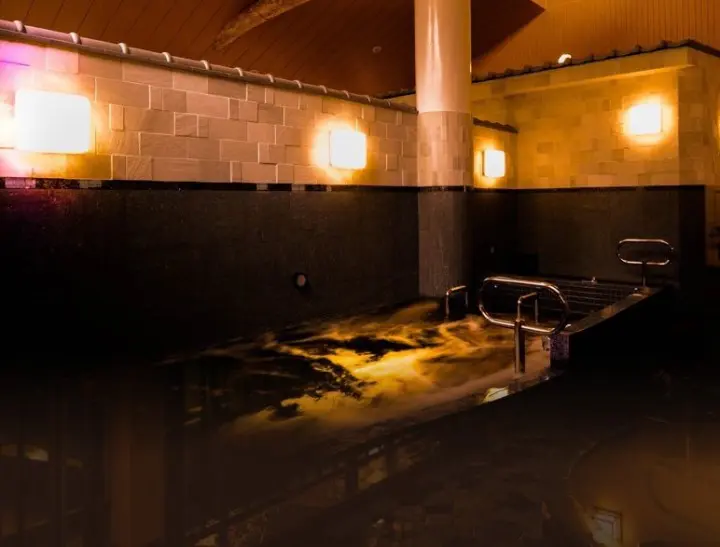
The characteristic feature at Shimizuyu is that guests can use two different hot springs at the same place. In addition to Tokyo's own kuroyu (dark-colored water filled with minerals), there's also ogon-no-yu, where the water sparkles with a golden color.
Also, unusual for a sento, there's a ganbanyoku (*3) spa facility (requires an extra charge).
Please remember that this is a very popular sento, so it can often be crowded.
*3 ganbanyoku: One kind of sauna in which one lies down on a heated rock to warm up the body. Is believed to have health benefits.
Prices: Adults 470 yen, Junior High School students 300 yen, Children 180 yen.
Access: 5 minutes on foot from Musashi Koyama Station (Tokyo Meguro Line).
Location: Tokyo, Shinagawa, Koyama 3-9-1 Google Map
For the official homepage of Musashi Koyama Onsen Shimizuyu please click here (Japanese).
4. Mikokuyu in Ryogoku and Kinshicho
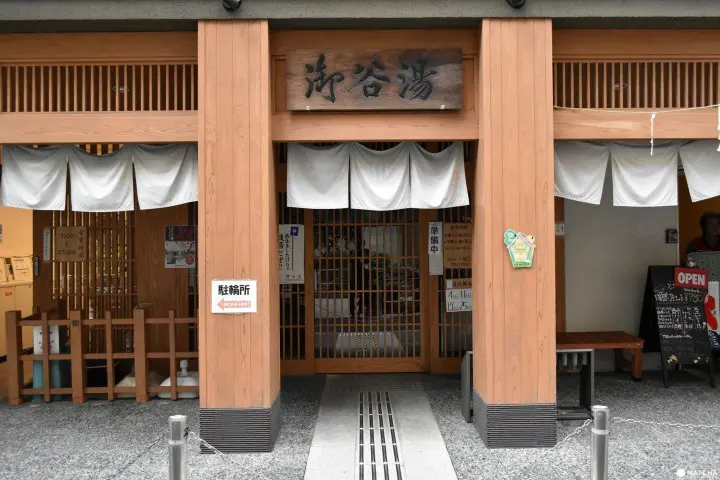
Picture from Access From Skytree And Senso-ji Temple! Three Bathhouses In Asakusa
Tokyo's Sumida Ward is an area known for the towering Tokyo Skytree . Mikokuyu , is located midway between the local areas of Ryogoku , famous for sumo ; Kinshicho , known as a lively shopping district; and Oshiage , home to Tokyo Skytree.
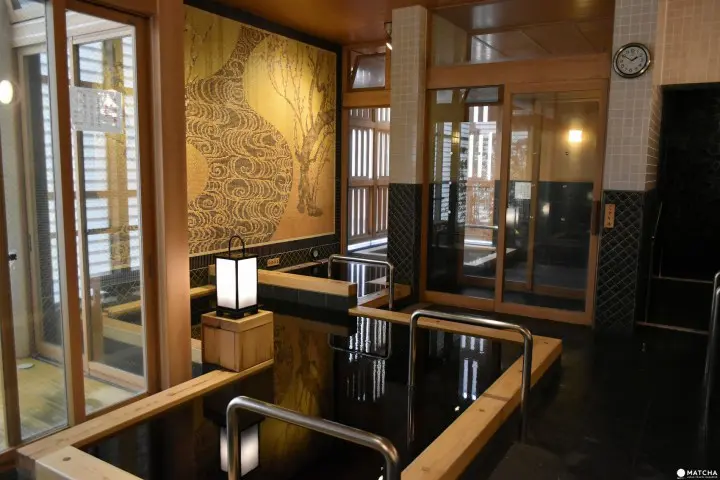
Mikokuyu is ideally located, allowing guests to admire the view of Tokyo Skytree from their rotemburo. In 2015, it was completely remodeled and its sophisticated interior now has a modern, Japanese feel to it. The sento has a wall mural of Mt. Fuji and also a tile pictograph based on Kohaku Baizu Byobu (*4).
*4 Kohaku Baizu Byobu: The folding screen of Red and White Plum Blossoms . An 18th century screen painting by Ogata Korin. Considered a national treasure, the original work of art is currently part of the collection at the MOA Museum of Art in Shizuoka prefecture's Atami city.
Price: Adults- 470 yen
Access: 16 minutes on foot from Kinshicho Station (Tokyo Metro), 12 minutes on foot from Honjo-Azumabashi Station (Toei Asakusa Line).
Location: Tokyo, Sumida, Ishiwara 3-30-8 Google Map
For the official homepage of Mikokuyu please click here (Japanese).
5. Maenohara Onsen Saya-No-Yudokoro in Shimura Sakue
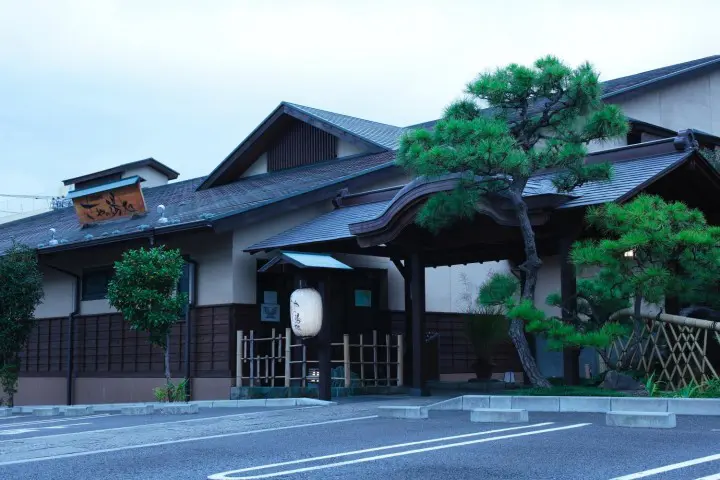
Picture courtesy of Maenohara Onsen Saya-No-Yudokoro
Located in Itabashi Ward, Saya-No-Yudokoro is an onsen housed in a tasteful, Japanese-style building. There's a hot spring pool, sauna, restaurant, and Japanese garden.
During the week, guests can enjoy the facility for a modest 870 yen (1,120 yen on Saturdays, Sundays, and holidays), making this reasonable price an attractive feature of this onsen.

For just 2,100 yen you can reserve the rotemburo all to yourself for one hour. For those guests who feel uncomfortable without clothes in front of others, this is a great service that allows you to enjoy the pool with just family or close friends.
Right next to the onsen there's a supermarket, so after taking a dip in the pool, you can buy groceries and something to eat. Though this onsen is a little distance from the main sightseeing spots and taking a bus is required, it has many special features that make it a worthwhile place to visit.
Prices: Weekdays- 870 yen. Saturdays, Sundays, and holidays- 1,200 yen.
Access: 8 minutes on foot from Shimura Sakaue Station (Toei Mita Line). You can also take a Kokusai Kogyo bus (Red 53) from the west exit of JR Akabane Station, then get off at Maenocho 3-chome bus stop and the onsen is right there. The bus travel time is 10 minutes and the ticket costs 220 yen.
Location: Tokyo, Itabashi, Maenocho 3-41-1 Google Map
For the official homepage of Saya-No-Yudokoro please click here
6. Hidamari-No-Izumi Haginoyu in Uguisudani

Picture courtesy of Hidamari-No-Izumi Haginoyu
Hidamari-No-Izumi Haginoyu , located just minutes from the JR Yamanote Line's Uguisudani Station, is a sento that opened in 2016.
Though Uguisudani is a town that's not very familiar to visitors outside of Japan, it's actually very close to Asakusa and Ueno , accessible by bus, taxi, and even on foot.

Just like Saya-No-Yudokoro, Hidamari-No-Izumi has an impressive lineup of services and facilities. There's a large hot spring, a sauna, a carbon dioxide bath (*5), along with a restaurant, so you can enjoy a meal after you finish using the onsen.
The price is 470 yen, similarly priced to other sento (sauna and other special areas have a separate price).
*5 tansan onsen: Also known as a carbonated hot spring. A kind of bath in which carbon dioxide has been dissolved into the water. The carbon dioxide particles adhere to the skin which is thought to have medicinal benefits. One can expect improved blood circulation and a higher body temperature.
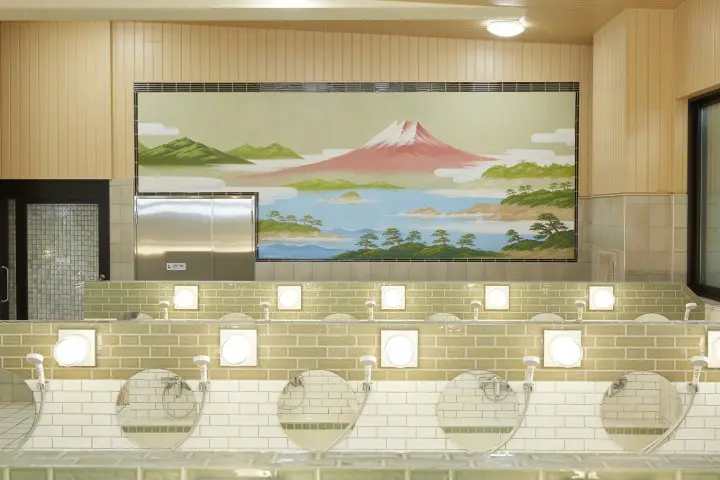
A feature of this sento is its morning operation, from 6:00 to 9:00, allowing guests to use the baths in the early hours of the day. If you are staying nearby, this sento is the ideal place to take a dip in between checking out of your accommodation and leaving for the next part of your journey.
Prices: Adults- 470 yen, Students (Elementary and Junior High)- 180 yen, Children- 80 yen.
Access: 3 minutes on foot from JR Uguisudani Station.
Location: Tokyo, Taito, Negishi 2-13-13 Google Map
For the official homepage of Haginoyu please click here (Japanese).
Onsen Areas for Day Trips from Tokyo
Japan is dotted with countless onsen areas , where hot spring water flows to the ground surface. In these locations, visitors can come into contact with Japanese-style streetscapes, strolling through towns and learning about the history of Japanese hot springs.
Next we introduce onsen areas located in suburban neighborhoods easily accessible from Tokyo.
7. Hakone, Yugawara, and Atami
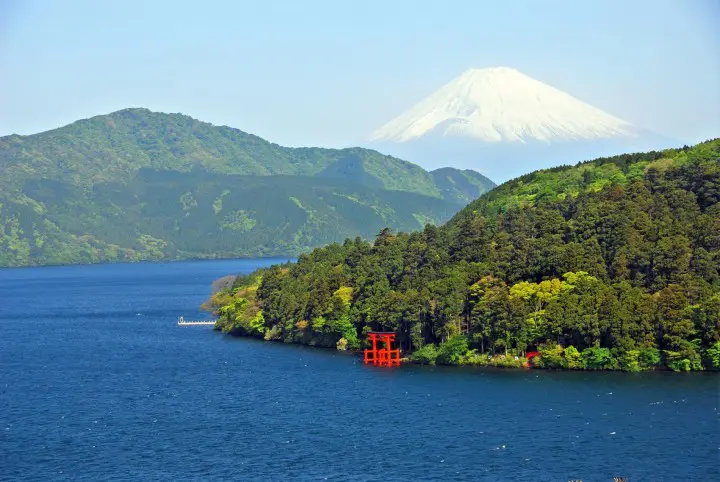
Hakone's symbol, Ashinoko Lake. Picture courtesy of the Town of Hakone
It goes without saying that Hakone is a famous sightseeing spot. It's also recognized as an onsen resort area by overseas visitors.
Around ten kilometers away is Yugawara and also Atami onsen . Though they are small scale hot spring areas compared to Hakone, unlike Hakone, they face the ocean, allowing visitors to enjoy spectacular scenery and delicious, fresh seafood.
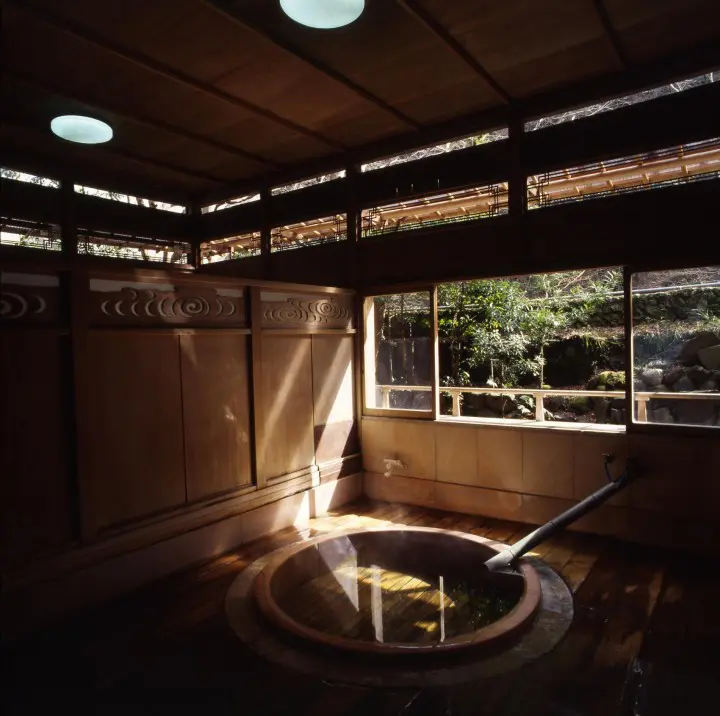
A hot spring hotel founded in 1890, Fukuzumiro. Picture courtesy of the town of Hakone
Hakone: For Hakone's official homepage please click here (Hakone Tourist Association).
Yugawara: For Yugawara's official homepage please click here (Yugawara Onsen Tourist Association).
Atami: For Atami's official homepage please click here (Atami Town Tourist Association).

8. Nikko, Kinugawa, and Yunishigawa
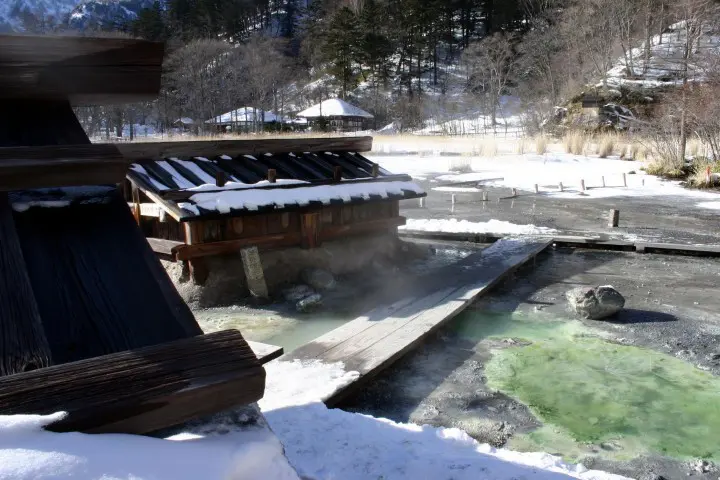
The source of Nikko Yumoto Onsen gushing out. Picture courtesy of Nikko City Tourist Association
The city of Nikko , known for its world heritage Nikko Toshogu Shrine , also happens to be a famous hot spring area. Onsen facilities and hotels have been built near Tobu Nikko Station, Chuzenji Lake, and in other key areas, so you can choose a location that best suits your travel plan.
Nikko homepage: click here

The colorful autumn foliage in Yunishigawa Onsen town. Picture courtesy of: Nikko City Tourist Association

Kinugawa Plaza Hotel's rotemburo can be reserved. Picture courtesy of Nikko City Tourist Association
Further into Nikko you can find Kinugawa Onsen , a facility sitting by a river. Further along is Yunishigawa Onsen , known for its mystical Kamakura Festival (a festival featuring miniature kamakura, or snow huts, illuminated by candles placed inside).
Nikko For Nikko's official homepage please click here (Nikko City Tourist Association).
Kinugawa For Kinugawa's official homepage please click here (Nikko City Tourist Association).
Yunishigawa For Yunishigawa's official homepage please click here (Nikko City Tourist Association).

Nikko / Kinugawa

9. Kusatsu Onsen
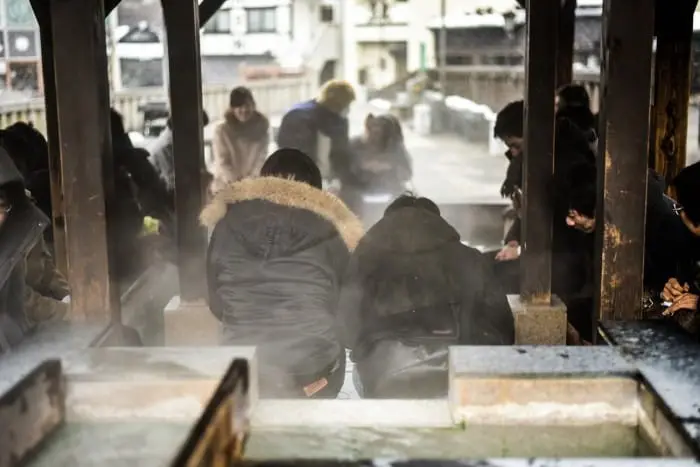
Picture from The Beauty Of Kusatsu Onsen In Winter: Snowflakes And Hot Springs
Kusatsu Onsen has a long history, and since the Edo period has been known as one of the top three hot springs in Japan, alongside spots including Hyogo Prefecture 's Arima onsen , and Gifu prefecture 's Gero onsen .

Today, Kusatsu Onsen is still well-visited and popular. In the middle of this spa village is yubatake (literally "hot water field"), where four thousand liters of hot spring water come gushing out every minute, showcasing Kusatsu's pure and bountiful water source.
Yumomi , the task of cooling down the hot spring water to a bathing temperature, has continued since the Edo period. Today it is done in the form of a show, and visitors watching this performance will feel moved by the rich history at Kusatsu Onsen.
For the official homepage of Kusatsu Onsen , please click here (Japanese).
*In January of 2018, Mount Kusatsu-Shirane, located near Kusatsu onsen, erupted. At the present time (June, 2018), there haven't been any further eruptions and Kusatsu onsen is back to normal operations .

Japan's Hot Summers - Can You Still Enjoy Onsen?
Yes, you can! While hot springs might mainly be something people associate with the colder month, many Japanese people love to use hot springs in summer. It is basically treated like a sauna in other countries. The sweat will flush out toxins from your body and improve blood circulation.
Don't worry, most onsen facilities have cold baths as well to cool you down in between hot baths. You could also use the shower facilities if there the cold bath is not available.
Bathing in the hot springs for healing purposes in the hot humid summer is a very unique experience. You should definitely give it a try!
Relieve Your Travel Fatigue in a Tokyo Hot Spring!
Japanese onsen have long been used as places for improving health and relaxing.
Tiredness builds up easily when you are traveling internationally. Please experience Japan's unique bathing culture at a hot spring or sento to feel refreshed and ready to continue your trip.

MATCHAで編集やってます植松です。87世代。
Related topics
Top articles.

JR Shibuya Station Guide: Transfer Tips, Main Exits, and Ticket Gates

Shibuya / Harajuku / Omotesando

Weather in Tokyo by Month and What to Wear

Kagurazaka: 15 Fun Things to Do and Places to Visit
Shinjuku / Yotsuya
Related Article

Odaiba in Tokyo: 26 Things to Do - Shopping, Museums, Dining, Hotels

Nikko: 15 Things to Do and Travel Tips

Tokyo Travel Guide 2024: Top 35 Things to Do

Atami's 20 Best Hot Springs: Onsen Resorts, Luxury Hotels, Traditional Inns

Near Tokyo Skytree and Sensoji Temple! 6 Public Baths in Asakusa

Tattoo Friendly Public Baths And Hot Springs In Tokyo

The Beauty Of Kusatsu Onsen In Winter: Snowflakes And Hot Springs

A Guide To Gero Onsen In Gifu – Day Trip Hot Springs And Inns

Kinugawa Onsen: Day-Trip Hot Spring Facilities, Ryokans, And Access
Start planning your trip
Special Features

Popular Searches
Latest news.

Showa Kinen Park Flower Festival 2024: Enjoy Nemophila, Tulips, and More!

A Must for Nature Lovers! Win a Free Stay at Unzen Amakusa National Park

A World of Light and Color! Van Gogh Alive in Japan 2024

Cherry Blossom Light-up in Tokyo! Yomiuri Land's Jewellumination

Cherry Blossoms and Sky Lanterns! Aichi Hanami Lights 2024

Japan's Public Holidays and Long Weekends in 2024

Aeon Mall Okinawa Rycom: A Shopping Mall Featuring a Resort Aura

Suica and Pasmo IC Cards: Prepaid Transportation Passes in Japan

Riding Taxis in Japan: The 6 Best Apps to Grab a Cab

How to Travel to Kyoto From Osaka: The Fastest and Cheapest Ways
New articles.

[Okinawa Yambaru]18 sightseeing spots and gourmet foods in Nago City! Enjoy play, nature, and food in Nago!

Room Introduction [Maisonette Suite Room with Barrel Sauna]

Nemophila field and yellow train

Golden Week 2024 in Japan: Dates, Events, and Travel Tips

[Yokoze Town, Chichibu District, Saitama Prefecture] Yokoze Carp Streamer Festival 2024 will be held until May 6th

- Location guides
- Travel tips
- Things to do
- Food and drinks
- Onsen Guide: Top 15 Best Onsen In Tokyo
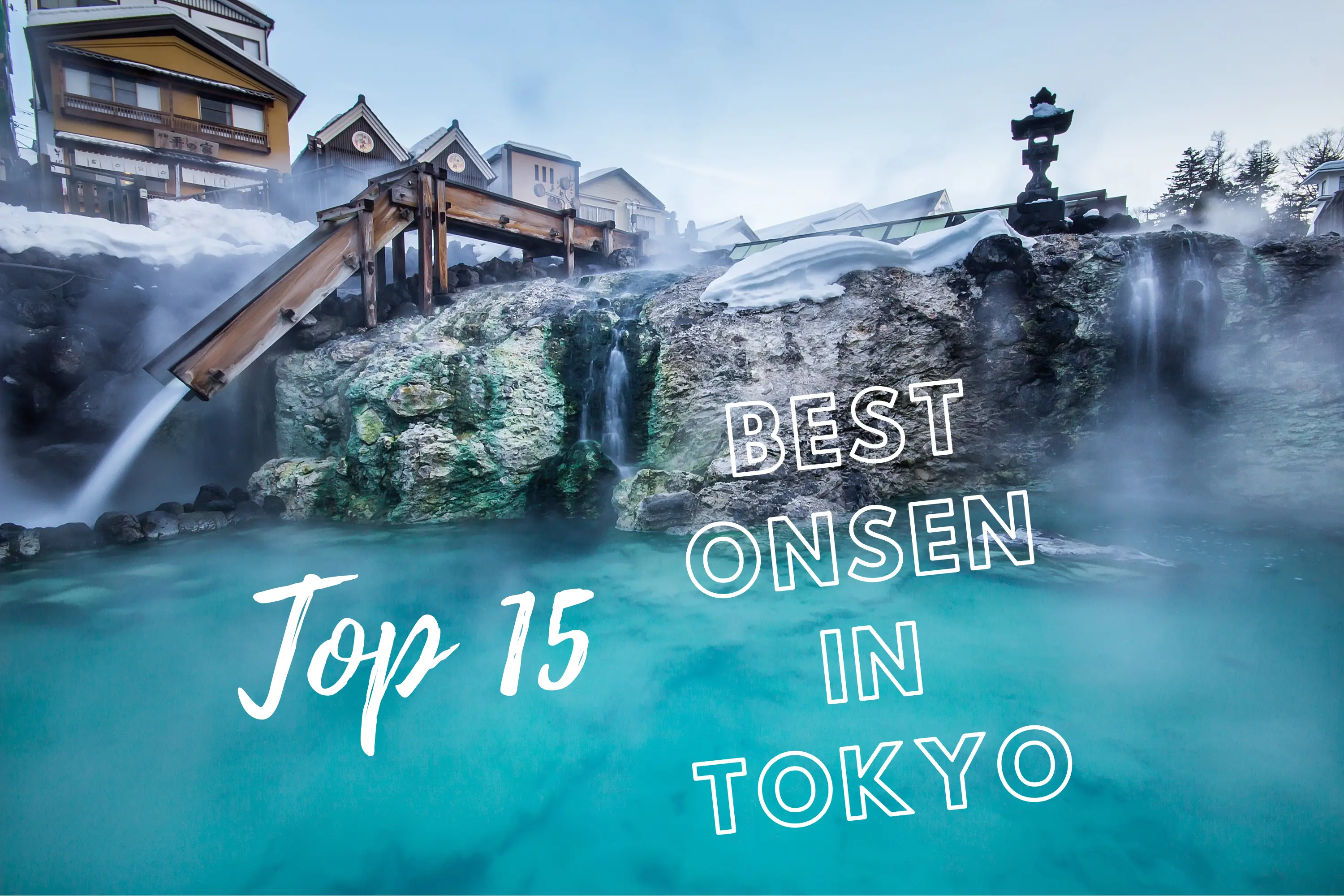
Japan is one of the most volcanically active countries in the world. As a result, natural hot springs or onsen have become an indispensable feature in their tradition and culture since the 18 th century. People used to travel to spa towns like Hakone and Atami if they wanted to soak themselves in a hot spring. But, nowadays, thanks to modern technology, you can enjoy the best onsen right in Tokyo.
Onsen spots like these in the city often include both outdoor and indoor bathing facility, coming along with other additional services which help to entertain you and the whole family. Besides, the water from geothermally-heated springs is believed to do good for your health, such as alleviating muscle pains, fatigue or stress and healing skin problems. With all these benefits, visiting an onsen while staying in Japan needs to be on your bucket list. Now let’s see what we get here in top 15 best onsen in Tokyo.
Best Onsen In Tokyo – 15 Recommend For Hot Springs
1. oedo onsen monogatari.
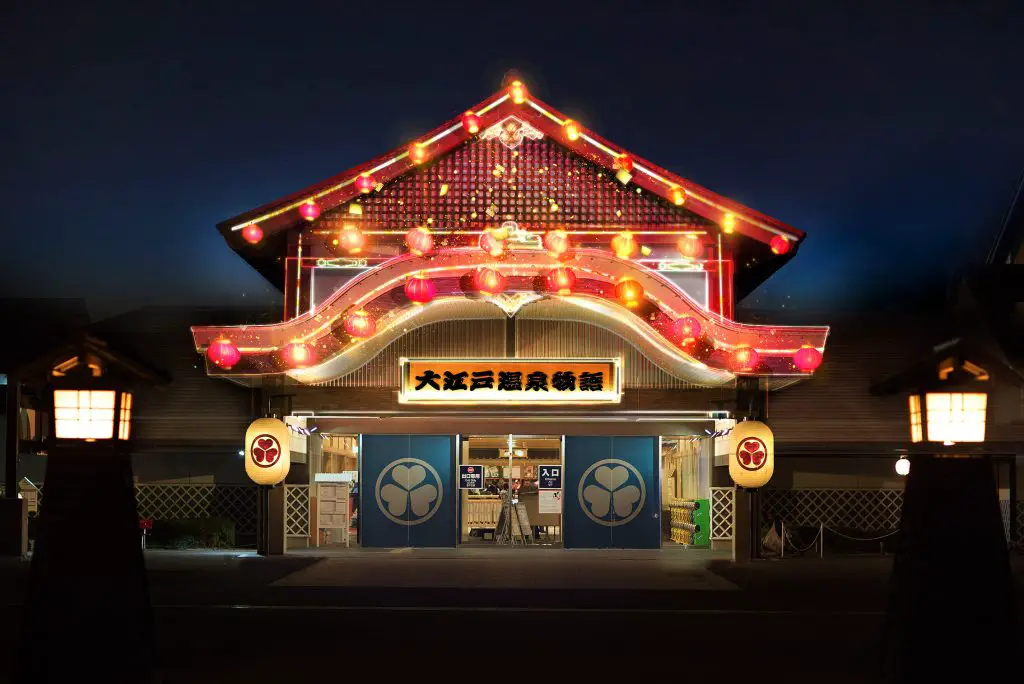
The entrance gate of Oedo Onsen Monogatari looks like a structure from the Edo period. (Source: Internet)
Speaking of onsen in Tokyo , Oedo Onsen Monogatari definitely ranks the first place of many foreign tourists. What makes this onsen spot outstanding from the other is the wide variety of entertainment facilities. There are up to 14 types of onsen here (even an onsen for dogs) with hot water that bubble up from 1400 meters underground.
If you don’t have much time but still want to make the most out of this onsen experience, this is your place to go. Another thing you can’t miss out is to wear a yukata (a traditional costume of Japanese people besides kimono), while walking inside the facility which is built to resemble the old downtown of the Edo Era. This is a favorite place of many families in Tokyo because of plentiful festival games like shooting games, fortune-telling, and even photo booths.
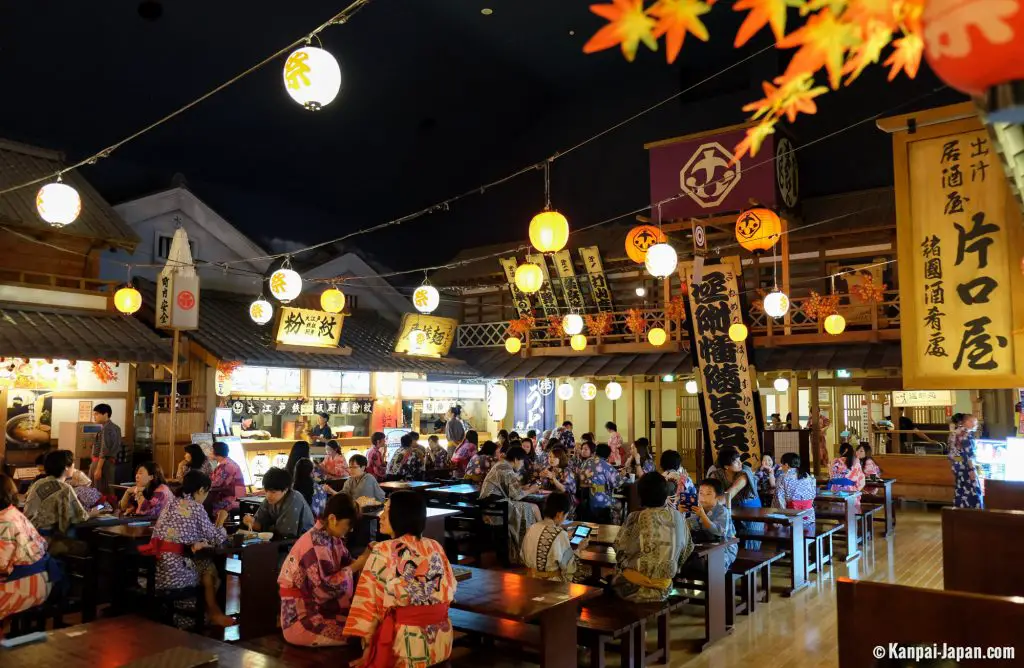
It seems like there is a festival at Oedo Onsen every night. (Source: Internet)
Address : Oedo Onsen Monogatari Hot Springs Oumi 2-6-3, Koto, Tokyo
Phone : (03) 5500-1126
Website : http://daiba.ooedoonsen.jp/en/ rel=”nofollow”
- Adult: 2,480 yen ∼ 18,05 USD
- Children: 1,000 yen ∼ 7,28 USD
- Weekends and holidays 2680 yen ∼ 19,51 USD
2. Maenohara Onsen Sayano
Reaching the entrance, you feel like you are in a ryokan in the middle of the city. Here you can find a private semi-open-air bath located in the garden named “Hanare no yu”.
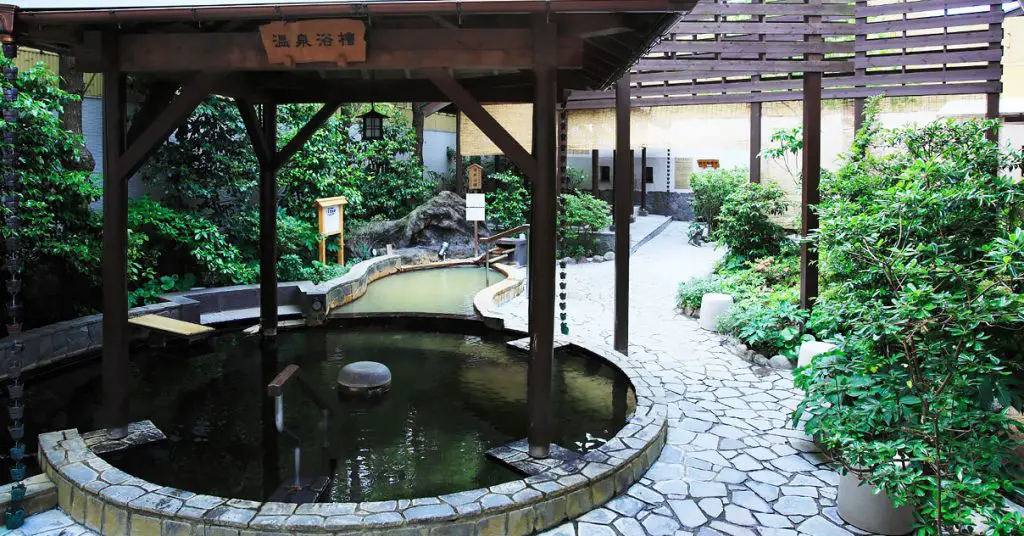
The outdoor bath of Maenohara Onsen Sayano. (Source: Internet)
Reading a book or just simply enjoy the beauty of nature in a hot tub is such an unforgettable experience. You should also try a bedrock sauna here with four temperature rooms of spring, summer, fall and winter depending on your own health condition and interest.
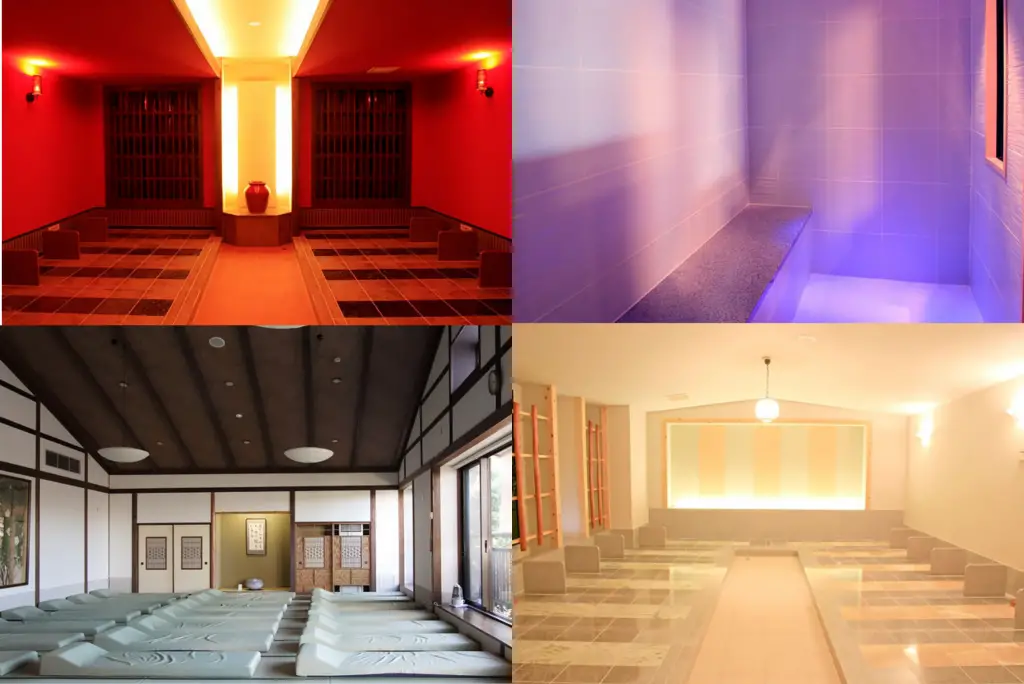
Enjoy bedrock sauna with four seasonal zones: spring, summer, autumn and winter.
Address : 3-41-1 Maenocho, Itabashi-ku, Tokyo 174-0063
Phone : +81359163826
Website : https://www.sayanoyudokoro.co.jp/english/
1. Adult Prices
- Weekdays: 870 yen ∼ 6,33 USD
- Weekends & Holidays: 1,100 yen ∼ 8,01 USD
2. Child Prices (Primary School ages and under)
- Weekdays: 550 yen ∼ 4 USD
- Weekends & Holidays: 750 yen ∼ 5,46 USD
3. Tokyo Dome City Spa LaQua
This amazing complex inside Tokyo Dome City offers a number of choices that can make your head spin. There are four separated zones including spa zone, healing Baden, relaxation space, treatment and beauty. If you are looking for an onsen experience, coming to the spa zone. They have a large open-air bath using mineral-rich hot water that springs out from 1700 meters below the Tokyo Dome.
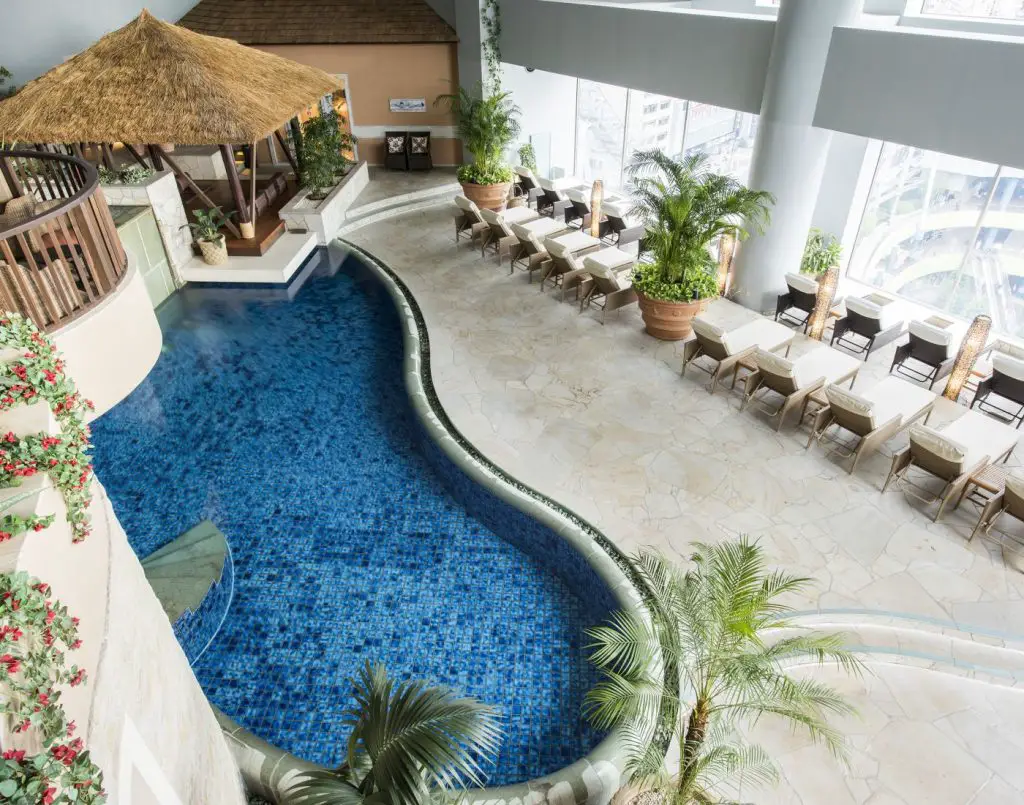
The luxurious open-air bath using mineral-rich hot water from 1400 meters underground. (Source: Internet)
The Healing Baden is well-known for different types of saunas such as natural stone and rock salt. In the relaxation space, like its name, you can totally relax here: reading magazines, watching TV, or lying down and taking a nap. Finally, treatment and beauty zone is where you can bring out your beauty and health according to your concerns and goals.
Address : Tokyo Dome City LaQua 5 to 9 Floors (Front Desk at 6F)
Phone : 03-3817-4173
Website : https://www.tokyo-dome.co.jp/en/tourists/spalaqua/
- Adult: 2,634 yen ∼ 19,17 USD Child: 1,836 yen ∼ 13,36 USD Additional surcharge on late-night and holiday usage
4. Bade and natural onsen – Toshimaen Niwanoyu
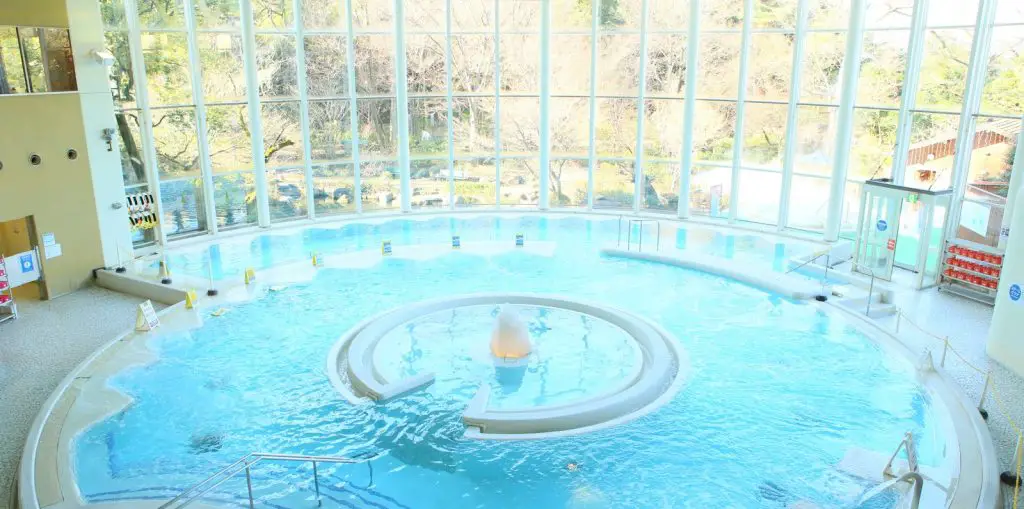
The massive bade pool surrounds a large crystal stone at the center. (Source: Internet)
If you have children, you shouldn’t come to this place because children under 13 are denied entry. As you can infer, this is where adults come to have fun and relax. Offering 6 types of bath in total, varying from natural onsen to stone sauna, this onsen spot also has a green Japanese garden around. Many people come here to get closer to nature and avoid the hustle and bustle of the city.

The spa zone with the view over the Japanese garden. (Source: Internet)
Address : 豊島園 庭の湯, 3 Chome-25-1 Koyama Nerima, Tokyo
Phone : (03 ) 3990-4126
Website : http://www.niwanoyu.jp/niwa/
- Adult: 2,310 yen ∼ 16,81 USD Elementary school kids and younger children and children under 12 yrs old are not allowed in the facility. We ask you to show your ID card.
5. Myojin no Yu
Myojin no Yu is an attractive, traditionally-styled bathhouse. The hot water coming out from their spring is rich in iron and salt. No matter how exhausted you are when coming here, we’re sure you will come back home with the most energetic, positive version of you. The water is believed to improve circulation, relieve muscle pain and treat insomnia. Of all the benefits mentioned above, this is where you should come if you want to treat yourself better.
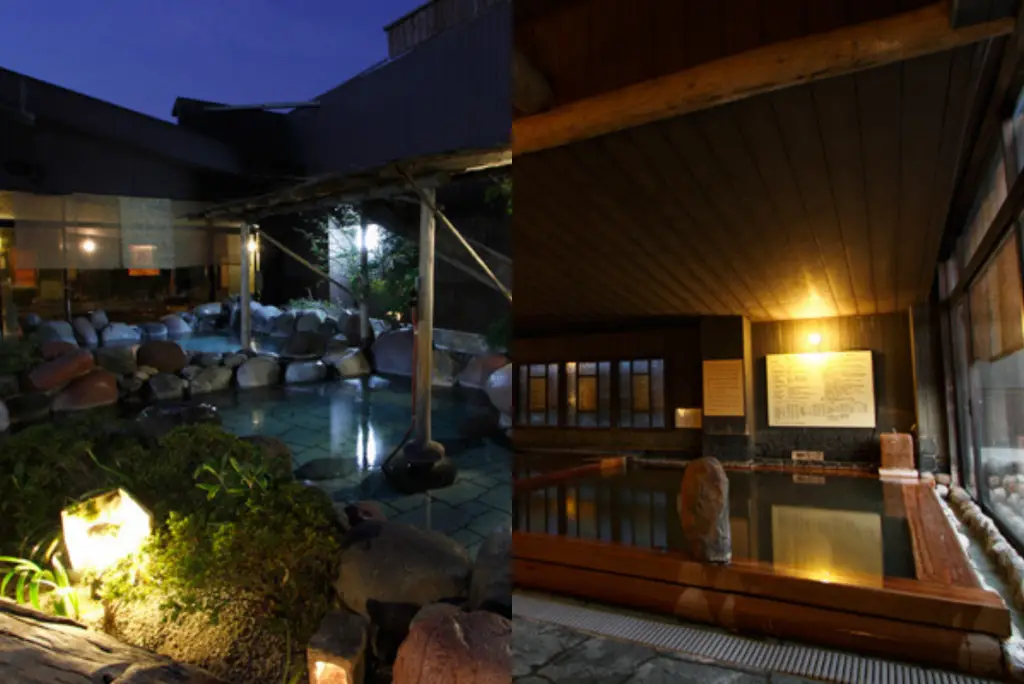
The impressive outdoor and indoor baths of Myojin no Yu. (Source: Internet)
Address : 1 18, 1-chōme, Ōyata Adachi-ku, Tōkyō-to, 120-0001, Japan
Phone : +81356132683
Website : http://www.myoujin-no-yu.com/
6. Tokyo Somei Onsen Sakura
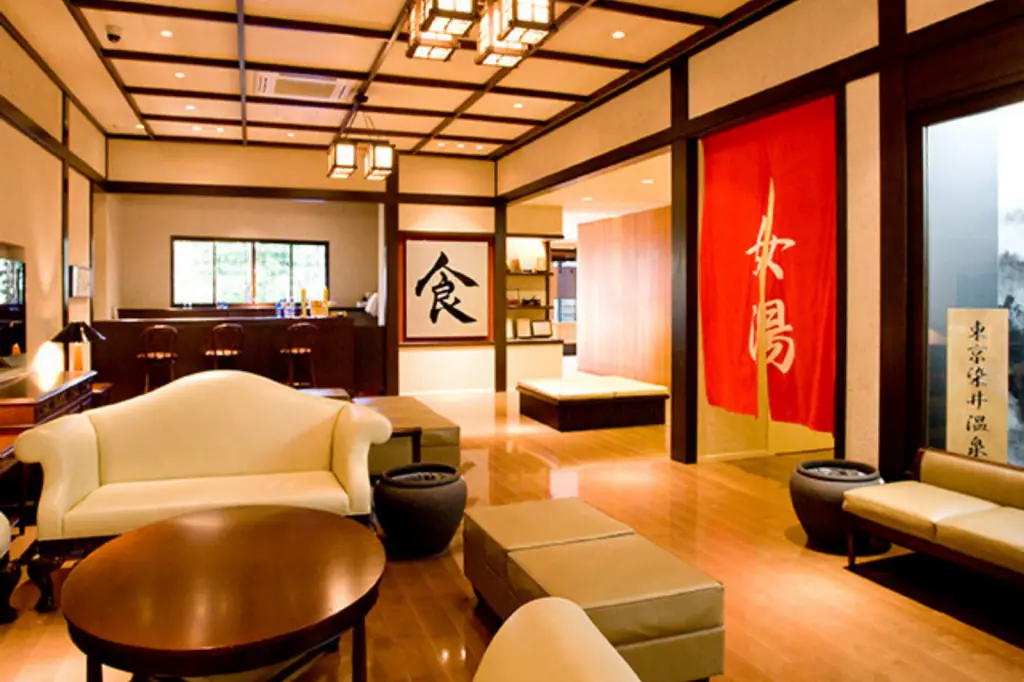
The luxurious design of the main hall.
The onsen bathhouse takes after the name of a cherry tree: somei. As a result, it is best visited during cherry blossom season (spring) but if you pay a visit any time of the year, it is not less beautiful. You can find many services here: onsen with sodium-rich water (the main reason you come here), a yoga class and massage. You can spend the whole day relaxing and healing yourself, contemplating the beauty of the cherry blossom.
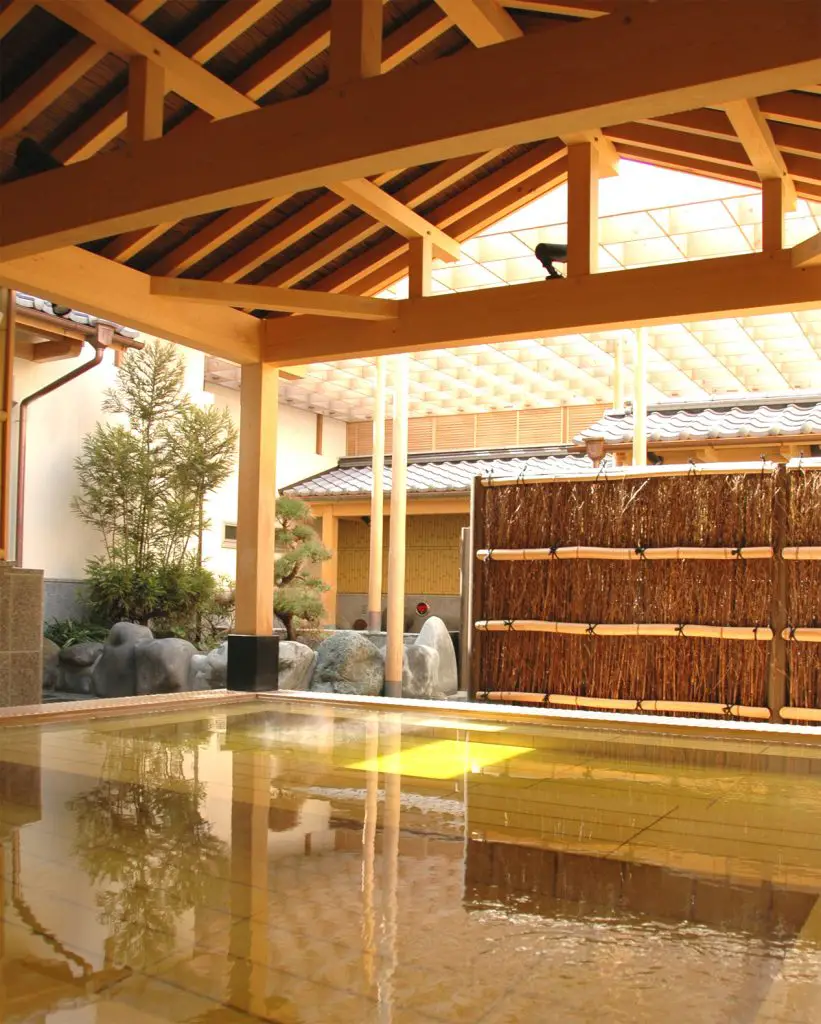
The onsen here is rich in sodium which is beneficial for your health. (Source: Internet)
Address : 24 4, 5-chōme, Komagome Toshima-ku, Tōkyō-to, 170-0003, Japan
Phone : +81359075566
Website : http://www.sakura-2005.com/
7. Yama no Yu Onsen
In case you want to find out how Japanese bathhouse used to look like during the postwar period, you should head to this place. Yama no Yu Onsen has been in business since it was first opened in 1960. That’s the reason why it has a retro style. The first thing welcomes you when arriving here is a picture of Mount Fuji, painted by the oldest of Japan’s three remaining sento painters.
The huge, public bath in the center of the room is also a unique feature of this onsen spot. It is divided into tưo sections: one is a jet massage bath, one is an aroma bath changing its smell every day.
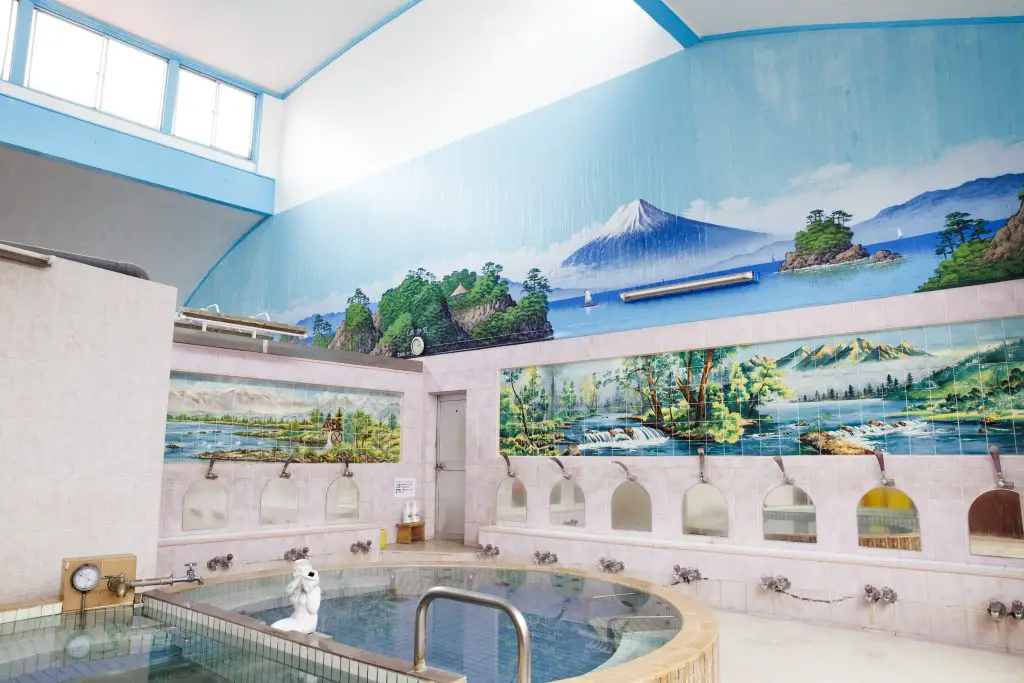
The massive art of Edo is the first thing catch your sight when you come here. (Source: Internet)
Address : 1-47-12 Kanamecho, Toshima-ku Tokyo
Phone : 03 3957 2679
- 10 Japanese Culture Facts Travelers Should Know
- Ninja Vs Samurai? What’s The Difference?
8. Saya no Yudokoro
Being one of the richest onsens in sodium chloride giving its water a greenish-brown color instead of light blue. Moreover, that’s not the only thing worth your visit. The bathhouse is surrounded by many green trees and lush, which makes you feel like being in a forest. For a person who’s in love with an old-fashioned place, you need to come here.
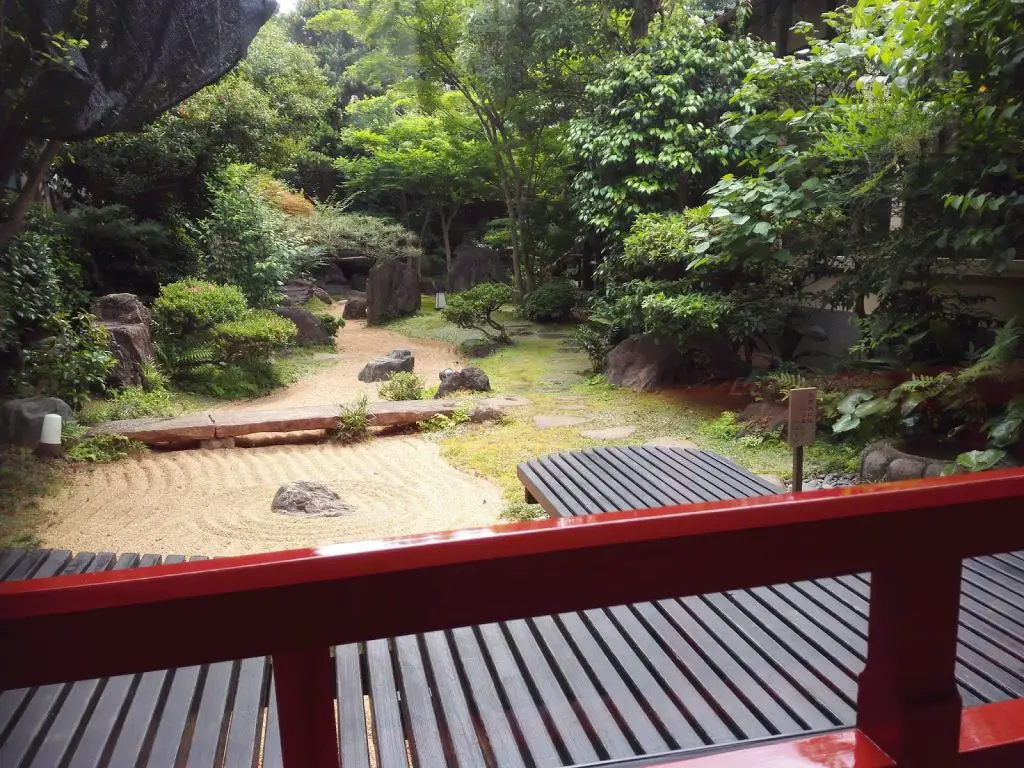
The zen garden where you get closer to the nature. (Source: Internet)
With traditional-styled buildings and a zen garden, Sana no Yudokoro is attractive with foreign tourists. The facilities here are not very different from other spots varying from onsen to sauna, spa and restaurant. But believe me, taking a bath in a “look-like” forest place is something you should try in Japan.
Address : 3-41-1 Maenocho, Itabashi-ku Tokyo
Phone : 0359163826
Website : https://www.sayanoyudokoro.co.jp/
- Adutls: 870 yen ∼ 6,33 USD
- Children 550 yen ∼ 4 USD
2. Sat, Sun & hols
- Adults: 1,100 yen ∼ 8,01 USD
- Children: 750 yen ∼ 5,46 USD
9. Thermae Yu
Good news for manga fans, the next stop of our list is inspired by the popular Thermae Romae series. Originated from a spa complex, Thermae Yu has expended its business including hot spring baths, stone saunas, a beauty salon, scrub treatment, a lounge complete with a café, a restaurant and even a bar. You will be impressed by the half modern, half traditional decoration here. Opening 22 hours a day, you can rest here after taking a long night-walk in Shinjuku to recharge yourself.
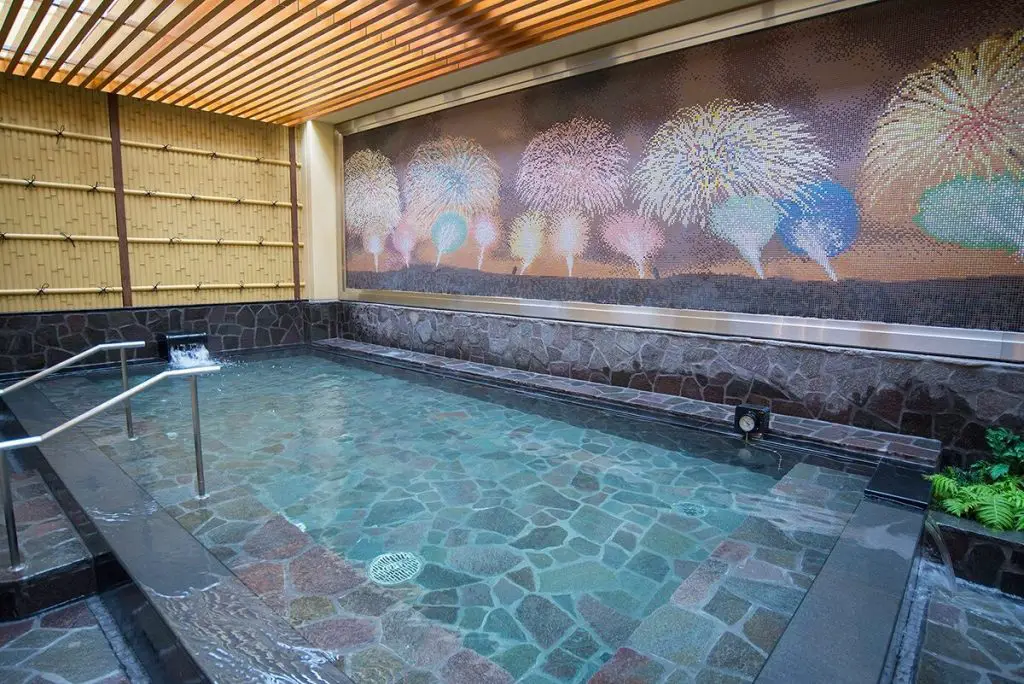
You can find an indoor bath…(Source: Internet)
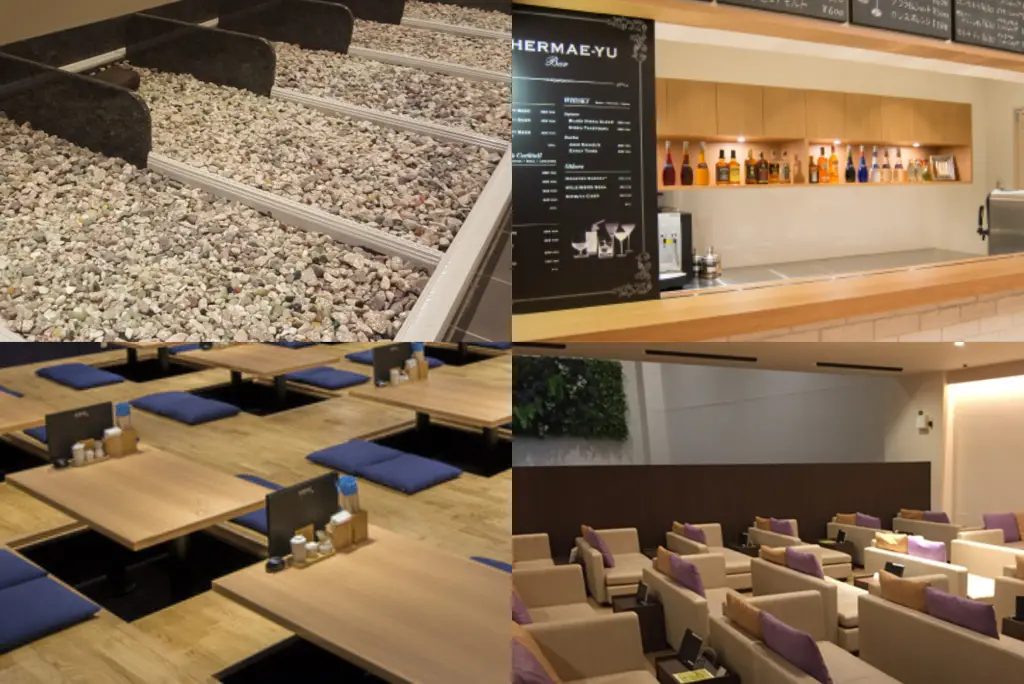
…and other related facilities like bedrock sauna, a drink bar, restaurant and relaxation lounge. (Source: Internet)
Address : 1-1-2 Kabukicho, Shinjuku-ku Tokyo
Phone : 03 5285 1726
Website : http://thermae-yu.jp/
- Weekdays 2,364 yen ∼ 17,21 USD
- 1,620 yen ∼ 11,79 USD for 18-year-olds and younger between 11 am and 6 pm, last entry 4.30pm
10. Nagomi no Yu
Located just outside the west exit of Ogibuko Station, this is one of the most convenient onsens in Tokyo . Like many other onsen spots, Nagomi no Yu comprises separated zones serving different purposes such as an open-air bath (the main feature), sauna zone, healing zone, and other additional services.

The open-air bath, the main feature of this onsen. (Source: Internet)
Nagomi no Yu opens overnight until 9 am in the morning so that you can have the fullest experience here. In case you are tired and want to sleep, there are plenty of rooms for you to rest, of course, you have to pay an extra fee if you stay past 1 am.
Address : 1-10-10 Kamiogi, Suginami-ku Tokyo
Phone : 03 3398 4126
Website : https://www.nagomino-yu.com/
- Adults 1,800 yen ∼ 13,1 USD
- Children 1,050 yen ∼ 7,64 USD
- Infants (ages 3 and under) 530 yen ∼ 3,86 USD
- Late-night surcharge (after 1am) 1,350 yen ∼ 9,83 USD
11. Yunohama open-air bath
You think that spending thousands of yens soaking in hot spring water is not worthy, you would rather spend money on shopping and enjoying local cuisines? Well in that case, we are pleased to inform you that a free bathhouse upper the hill is available for you. Located on Niijima, part of Izu island chain, the osen is themed on the ruin of ancient Rome, with the view over the crystal-blued sea.
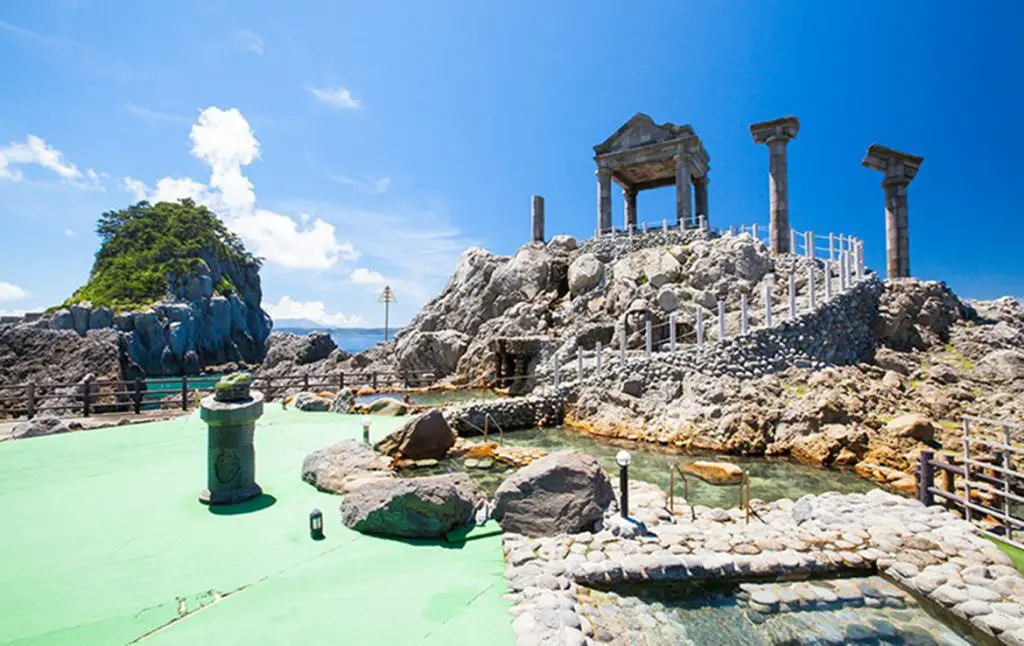
Yunohama Open Onsen is themed on the ruin of the ancient Rome and especially it’s free. (Source: Internet)
The stunning scenery here will blow your mind, especially when the sun goes down. Imagine emerging yourself in the hot water mixed from six different hot springs (you are reading it right, six springs not one), looking at the starry night and the sparkling sea all at one. It’s definitely such a once in a lifetime experience.
Address : Setoyama, Niijima-mura Tokyo
Website : https://www.niijima.com/facility/spa/onsen_yunohama.html
Price : Free
12. Roten Garden
This onsen complex is on the outskirt of Tokyo but it doesn’t prevent tourists from coming here. Drawing its spring water from a depth of nearly 1400 meters underground, which is good for muscle pain and achy joints. Roten Garden’s facility includes outdoor and indoor baths, saunas,…at a reasonable price. If you feel bored, there is a karaoke room and a cosmic room with private space to entertain you. “Make yourself at home” is definitely the slogan of this onsen. That’s the reason why many tourists can’t help coming back here whenever they have a day off.
Address : 358 Aiharamachi, Machida-shi Tokyo
Phone : 042 774 2681
Website : http://roten-garden.com/
- Adults 740 yen ∼ 5,39 USD(Mon-Fri) / 890 yen ∼ 6,48 USD(Sat, Sun & hols)
- Children 300 yen ∼ 2,18 USD(Mon-Fri) / 350 yen ∼ 2,55 USD(Sat, Sun & hols)
13. Heiwajima Natural Hot Spring
The next place is worth considering if you get an early flight but you would like to wait in a hot tub rather than the departure lobby. Haiwajima Natural Hot Spring is just 15-minute car ride from Haneda Airport. In case you don’t have a car, don’t worry, the onsen provides a shuttle bus service to the airport every morning.
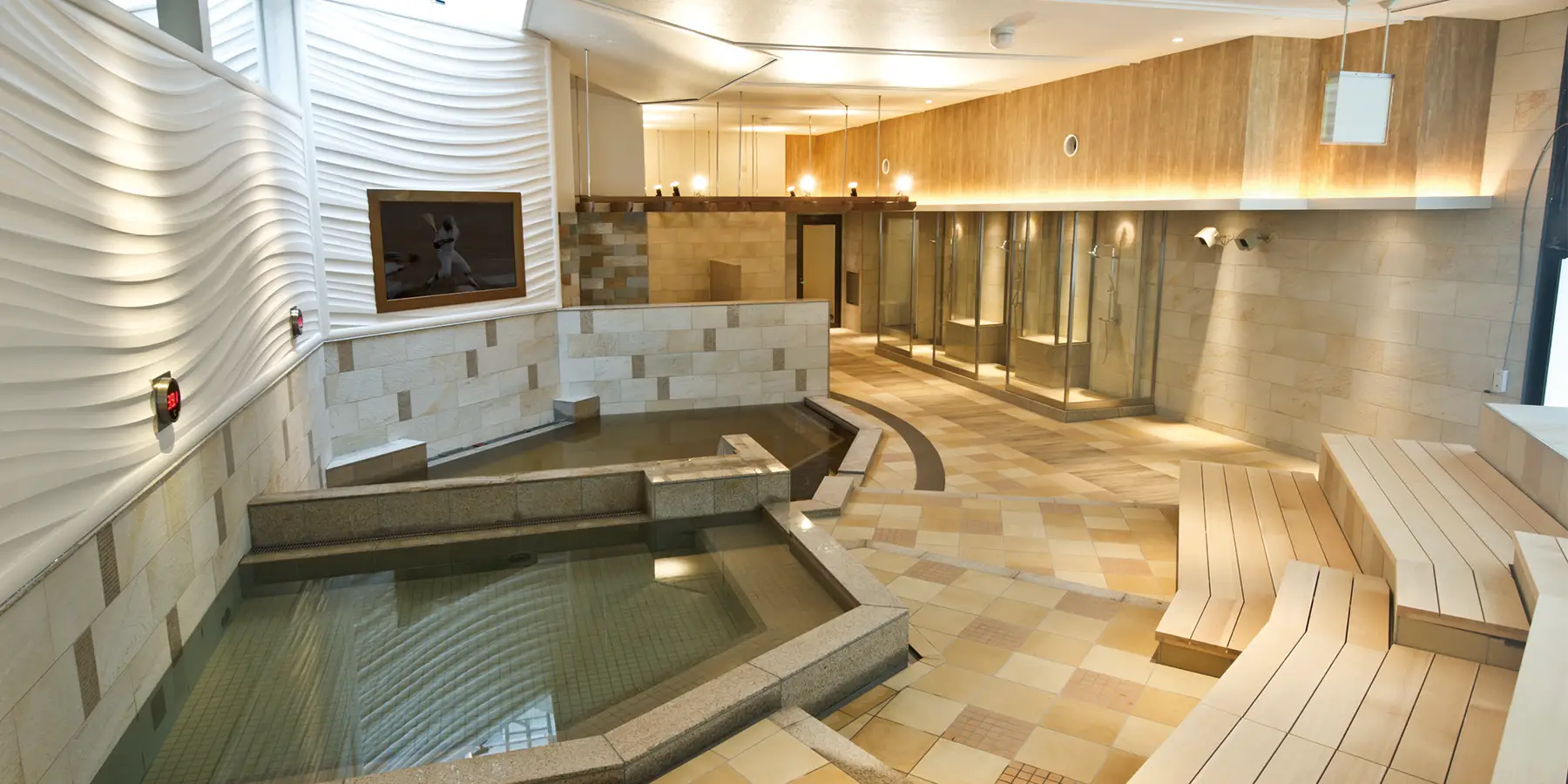
Heiwajima Natural Hot Spring. (Source: Internet)
There are up to 150 tons of hot spring bubbled up from 2000 meters underground. Haiwajima Natural Hot Spring is one of the largest natural hot spring facilities in Tokyo. Along with onsen, you have many other options like stone spa, healing program and a relaxation space filled with row upon row of reclining chairs.
Address : 1 1, 1-chōme, Heiwajima Ōta-ku, Tōkyō-to
Phone : +81337689121
Website : https://www.heiwajima-onsen.jp/en/
- Adults 1,800 yen ∼ 13,1 USD(Mon-Fri) / 2,100 yen ∼ 15,29 USD(Sat, Sun & hols)
- Children 900 yen ∼ 6,55 USD
14. Shimizuyu (Musashi Koyama Onsen)
If you only relate hot spring water with the light-blue colored water then you haven’t had a full onsen experience. In this onsen, you can have the opportunity to emerge yourself in “black water” and “golden water”. The inky black water is called kuroyu water, it is typical in this part of the city.
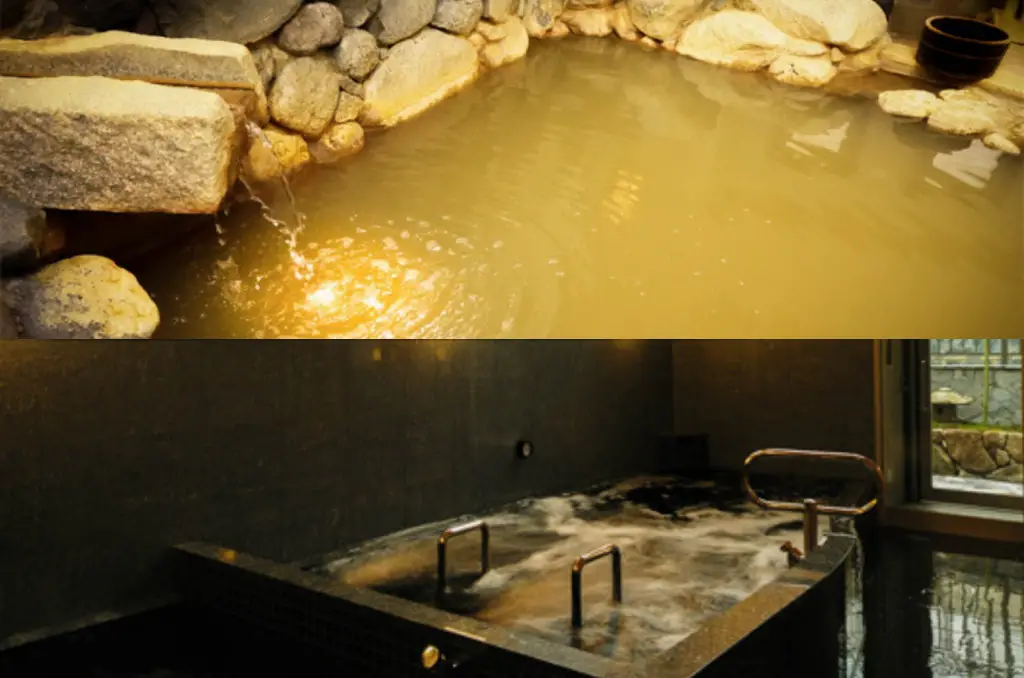
“Black water” and “Golden water” which can cure any ailments you can think of. (Source: Internet)
It is said to cure all manner of ailments while the golden water is suggested for chronic skin diseases and auto-immune ailments. Despite the high quality of hot spring water, the onsen charges customers at sento bath prices, who’s said: “The cheapest is the dearest”.
Address : 3-9-1 Koyama, Shinagawa-ku Tokyo
Phone : +81337810575
Website : http://www.shimizuyu.com/
- Adults 460 yen ∼ 3,35 USD
- Children 180 yen ∼ 1,31 USD
15. Times Spa Resta
We have reached the last spot in our list. Do you curious what is the last onsen in Tokyo you should check out? From 10 th to 12 th floor of the Time Station parking garage and car central facility in the central of Tokyo lies one of the classiest spa complexes in the city. The men and women’s sides are separated apparently.
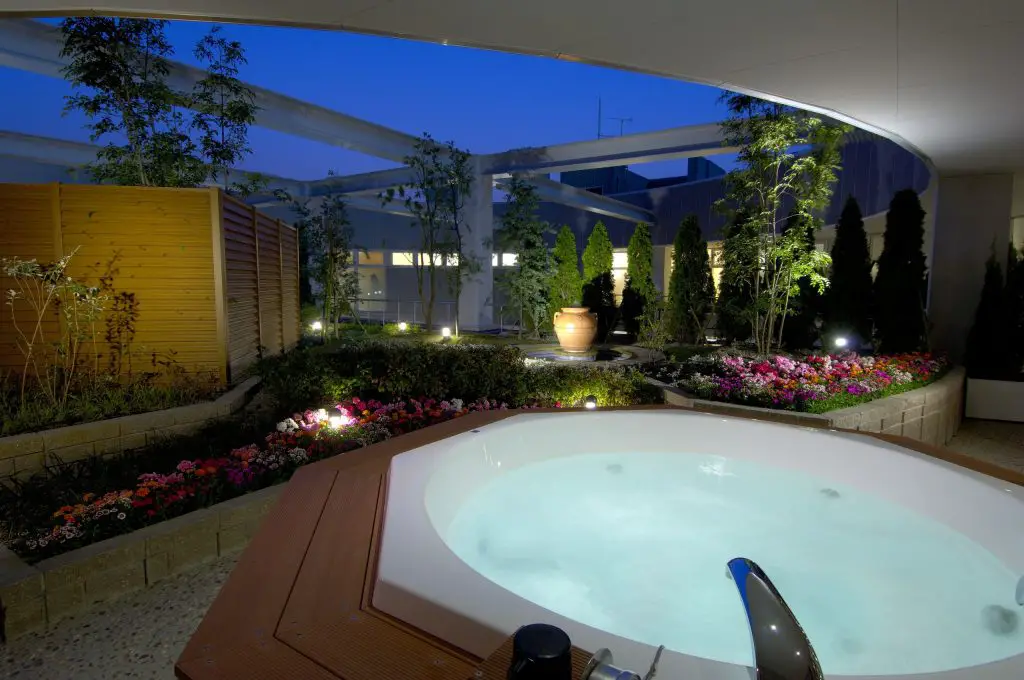
The view from outside hottub of Times Spa Resta. (Source: Internet)
While the man’s side has a wide variety of bath, Finnish-styled sauna; the ladies can enjoy an open-air hot tub, saunas and other beauty-enhancing facilities. Moreover, you can find other health treatments like massage, body scrubs and more, offering for both sexes. But note that anyone with tattoos and under the age of 18 will not be accepted.

If you think it’s enough of emerging in the water, you can go to sauna room. (Source: Internet)
Address : Times Station Ikebukuro 10-12F, 4-25-9 Higashi-Ikebukuro, Toshima-ku Tokyo
Phone : 03 5979 8924
Website : http://www.timesspa-resta.jp/
- Mon-Fri 2,750 yen ∼ 20,02 USD(1,800 yen ∼ 13,1 USD if you stay less than 90min),
- Sat, Sun & hols 3,100 yen ∼ 22,57 USD(2,150 yen ∼ 15,65 USD). 500 yen∼3,64 USDhourly surcharge between 12 midnight and 5 am
How to enjoy a Japanese onsen
You must abide by the norms and traditions that most onsen uphold in order to enjoy the finest onsen experience:
Formalities and expectations in onsen
Remember to take a shower before bathing when using an onsen so that you are clean. If an onsen doesn’t provide them, you’ll need to buy some. It’s ideal to avoid eating before taking a bath, but you must drink a lot of water both before and after to avoid dehydration.
Due to the cultural association between tattoos and the yakuza (the Japanese mafia), many onsen continue to forbid tattoos. Although some onsen have already loosened their tattoo policies, it’s still best to inquire before visiting. They may demand that you cover it up or deny you access.
To be mindful of other guests, if you are traveling with others, keep your volume down. In most onsen, it’s not permitted to dive, splash, or swim, and most don’t allow photography either.
Do onsens permit tattoos?
Unfortunately, a lot of the mega sento in Tokyo forbid tattooed people from using the baths.
Only Thermae Yu and MusashiKoyama Onsen Shimizuyu accept tattoos among the super sento we’ll introduce in this post.
Seek out a place that has a private onsen if you wish to travel somewhere new.
Tattooed people are welcome to utilize the onsen without any concerns, even if you will need to stay the night (some private onsen are connected to guest suites in ryokan and hotels).
Notice of Odaiba Oedo-Onsen Monogatari’s closing
Odaiba Oedo-Onsen Monogatari was an onsen establishment that featured not only an onsen but also a food court, various kinds of pools, additional amusement park-like attractions, and housing for visitors to spend the night. Despite being a very well-liked tourist attraction, it sadly closed in September 2021.
Although it is somewhat distant from Odaiba, the same Oedo-Onsen Monogatari Group operates a comparable theme park in Chiba Prefecture, which is close to Tokyo to the east.
The specifics are listed below.
Oedo-Onsen Monogatari Urayasu Mangekyo (大江戸温泉物語 浦安万華鏡)
Chiba Prefecture, which lies to the east of Tokyo, is home to Oedo-Onsen Monogatari Urayasu Mangekyo. There are four outdoor tubs, seven indoor baths, two saunas, and a lot of space on the site. Seasonal festivities vary, such as light displays for Christmas or snack distribution for Valentine’s Day. Oedo-Onsen Monogatari Urayasu Mangekyo is the ideal choice for families with young children because of this.
The spa seen above is the most well-liked among guests, yet it does not use hot spring water naturally. It is known as the “collagen spring” and has a wine-like color and smell. People who have used it laud its positive effects on their skin. Even if you are not as concerned about the health advantages of the numerous onsen tubs, it will be fascinating just to go inside a bath this unusual.
We’ve discussed a number of onsen where you can receive spa services, but the theme park component of Oedo-Onsen Monogatari Urayasu Mangekyo is its most exciting feature. Families, couples, and groups of friends can enjoy an exciting journey at the largest bath, which is outdoors and has tunnels and caves. Being an all-gender bath, the requirement to wear a swimsuit allows even those who are not accustomed to onsen customs to enter without any issues.
1. Where in Japan are the best onsen located?
The famed and iconic Onsen region in Japan is Beppu, which is a part of Oita Prefecture. Beppu City is known as Beppu Hatto (meaning 8 springs in Japanese) because there are hundreds of hot springs there, all with various atmospheres, but they are mostly concentrated in eight places.
2. Can foreigners visit Japan’s onsens?
The best onsen village in Japan to visit for the first time is Kinosaki Onsen. It is simple to get to (2.5 hours by rail from Kyoto or Osaka), welcoming to visitors (signs are in English, and tattoos are permitted).
3. Which individuals ought to stay away from onsen?
If you have a sickness that is active, do not take an onsen bath (particularly if you have a fever); Because taking an onsen bath puts a lot of strain on your body, you should avoid doing so if you are already feeling weak and exhausted because the symptoms could worsen.
4. Can you dress up in a private onsen?
The onsen bathing places are prohibited from wearing clothing or bathing suits. Onsen is kept as clean as possible by the community. They have a certain sacredness to them. Clothing and bathing suits are deemed unclean because they can introduce dirt and soap from the outside into the hot spring waters.
5. Are onsens pricey in Japan?
Almost every onsen charges an admission fee, which can be anywhere between 400 and 800 yen (often 200 to 2,000 yen). Sento are often less expensive, however super-sento are typically more expensive due to the increased quantity of amenities.
6. Do you need to wash off after onsen?
Showering should not be done right after bathing. The effects of any medicinal elements in the water will be diminished because they will be washed away in the shower. Rinse yourself off with fresh water if your skin is delicate and easily irritated.
7. Are onsens divided based on gender?
Onsen, or hot spring baths, are a form of art that the Japanese have long since mastered. In the past, men and women would take baths in the same facility together, but today the baths are divided by gender.
8. Why aren’t tattoos permitted in onsen?
Due to a long-standing link with organized crime, visitors with tattoos are typically not permitted at Japan’s onsen (natural hot springs). But as times change, more and more onsen are relaxing their rules—in some cases to allow tattooed international visitors.
9. How long should you stay in an onsen?
At most, 1-2 times a day are allowed for bathing, and after becoming used to onsen, 2-3 times a day is permitted. The length of a bath depends on the temperature of the water, but it should normally last 3 to 10 minutes at a time. If you become used to it, you can increase the period to 15-20 minutes.
10. Can you snap pictures in an onsen?
Unless you are visiting a private onsen, it is typically not allowed to take photos inside an onsen. For a list of the top 10 in each location, be sure to check out our guides to the onsens in Niseko and Hakuba!
So that’s our list of Top 15 best onsen in Tokyo, is there any place you want to go? When visiting an onsen, not only can you relax and retreat yourself after all hard-working days, but it’s also the time you can spend with your family and friends. So now it’s time for you to enjoy the weekend with the whole family in one of these onsens above.
YOU MIGHT ALSO LIKE
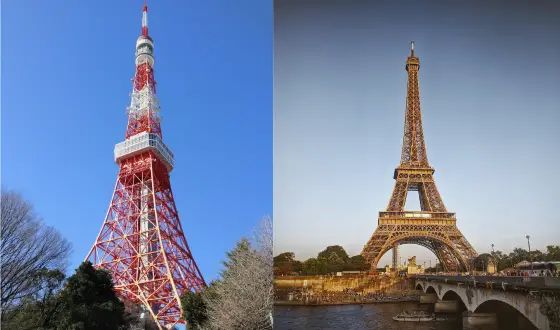
Tokyo Tower Vs Eiffel Tower: What are the main differences between them?
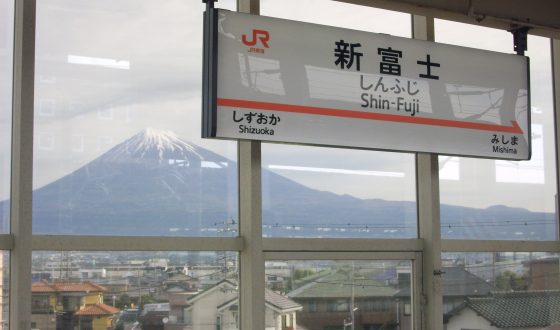
Shin-Fuji Station: Travel Tips And Transportation Guide
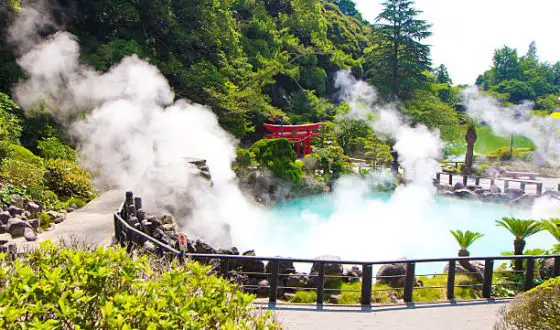
Discover The Relaxation: Best Onsen Towns in Japan
Leave a reply.
You can use these tags:
Popular posts

The Best Japanese Rice Cookers for 2023 That You Must Have in Your Kitchen
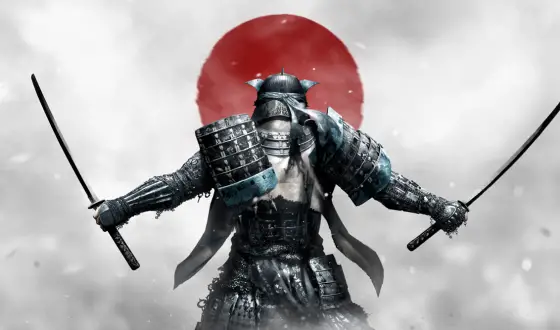
Knight vs Samurai: Are They Similar Or Different?

8 Highest Paying Jobs In Japan For Foreigners [2022 Update]
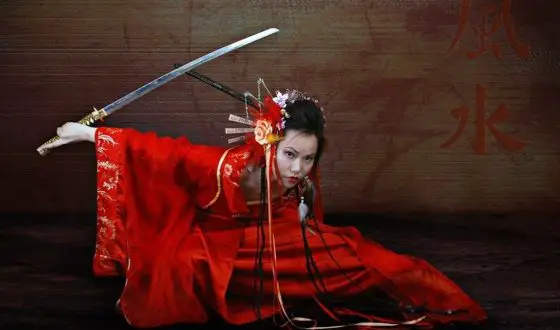
Types Of Japanese Swords – A Way To Japanese Art Culture
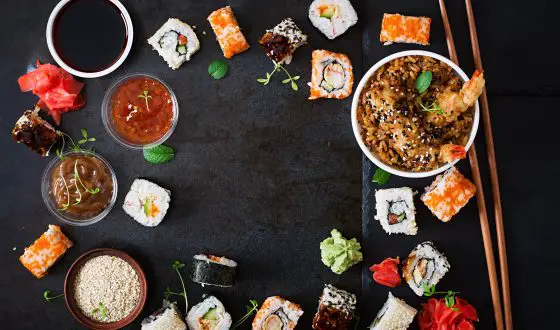
Among The Most Popular Sushi Rolls, Best Taste Goes To …
© Question Japan's 2019
Top 10 Onsen in Tokyo
We’ve carefully selected 10 onsen hot springs in the Tokyo metropolitan area just for you. Our guide includes traditional onsen great for day trips, cost-effective onsen and romantic onsen perfect for couples. We’ve even included some onsen hotels, the perfect escape from the craziness of Tokyo!
Perfect for Day Trips
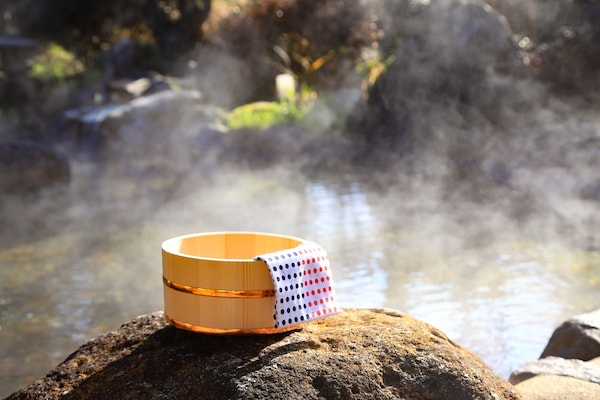
http://pixta.jp
The water runs straight from the source at these two hot springs, creating a relaxing, traditional atmosphere. Maenohara Onsen Sayano Yudokoro (Idabashi) Sayano Yudokoro is, by name and by nature, the onsen most representative of Tokyo’s 23 wards, and is perfect for a day trip. Saya refers to the ancient kanji, 清, essentially meaning "clear" or "pure." That meaning is reflected in the wonderfully fresh water that flows into the baths. Many people are already in the know when it comes to the quality of Sayano Yudokoro, so it can be pretty crowded on weekends. Fortunately, the patrons who frequent this bath are always mindful of their manners. While the natural springs are a major selling point, the food on offer is also not to be missed! In addition, there are several other traditional features, including a beautiful stone and moss garden, a hot stone sauna and the Showa-style building. Sayano Yudoroko offers a sense of peace and tranquility not often found in the hustle and bustle of Tokyo. Ofuro-no-Osama Hanakoganei (Kodaira) Ofuro-no-Osama (literally “The Bath King”) is home to one of the most precious sources of natural water in the capital. Although it's technically a chain, the concept of Ofuro-no-Osama is to create a place where people can get away for some serious R&R. Beyond its multiple baths (which include a sparkling water bath and a jet bath, among others), the establishment also includes a rather substantial dining area and stone sauna. They say the only way to truly understand how relaxing onsen can be is to visit a really good one—and Ofuro-no-Osama is the perfect place to do so!
Cost-Effective Options
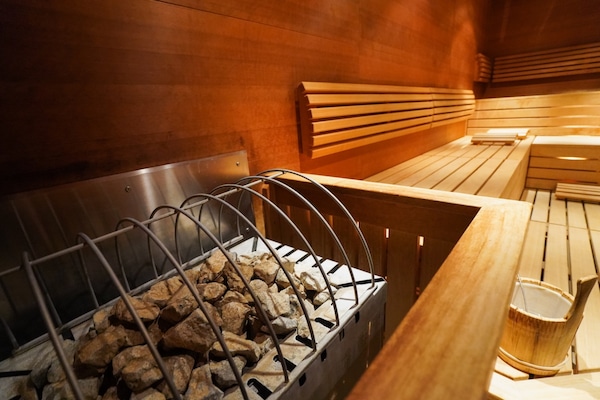
https://pixta.jp
Two great public baths for only ¥460 each! Hisamatsuyu’s Natural Onsen (Nerima) Hisamatsuyu was renovated in May 2014, and although they call it a "public bath," it looks more like an art gallery! During their renewal they dug out a full-blown, open-air hot spring—which means visitors can enjoy an open-air bath in the heart of Tokyo for only ¥460! Do we really need to say more? Musashi-Koyama Onsen Shimizu-yu (Shinagawa) In 2008 the facilities at Shimizu-yu also underwent renovations. After taking advantage of the two baths at Shimizu-yu (which flow from two separate sources), why not make the most of your trip and relax in the rest area on the second floor? Ladies can also take advantage of the women-only hot stone sauna for an additional fee.
Perfect for Couples
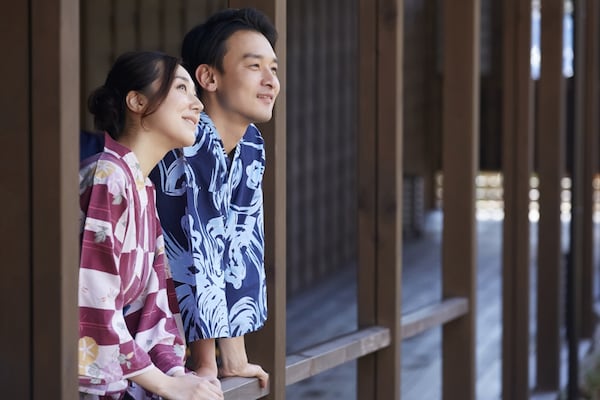
Looking for a romantic getaway? Look no further! Tokyo Dome Natural Hot Spring: Spa LaQua (Bunkyo) The biggest problems couples face when they go to onsen together is the fact that baths are separated by gender. Why go through all the trouble just to spend your date by yourself? Spa LaQua has a designated building called the “Healing Baden ," where men and women can enter together wearing special swimsuits and enjoy a relaxing steam in the hot stone sauna. If you're wondering where the name comes from, it's taken from the German word baden (which means "bath"), but is used here to mean mixed-gender bath. Once you're done relaxing, you can check out the Tokyo Dome Shopping Center! Baden & Natural Hot Spring Toshimaen Niwa-no-Yu (Nerima) Toshimaen’s “ Baden Zone” also allows men and women to go in wearing a bathing suit, and is the perfect place for some couple relaxation! Since the baths are prohibited to children, the atmosphere is quite refined. Just as the name Niwa-no-Yu (literally "garden bath") would suggest, the hot spring is located by a beautiful, relaxing garden that you wouldn’t expect to find in Tokyo. You can also keep the date going by visiting Toshimaen's amusement park afterward!
Luxury Onsen Hotels
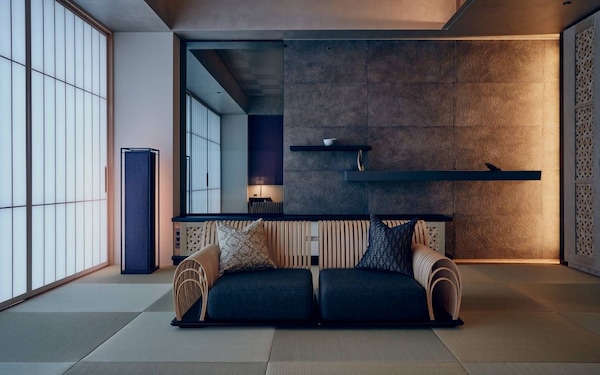
https://www.hoshinoresorts.com/resortsandhotels/hoshinoya/tokyo.html
Relax in luxury at these elegant resorts. Otemachi Onsen, Hoshi-no-ya Tokyo (Chiyoda-ku) In Otemachi’s Office Building Town area (オフィスビル街) you can find Hoshi-no-Ya Tokyo , which is part of the popular luxury Hoshino Resorts chain. In terms of looks, the hotel is actually very much like a traditional Japanese ryokan . In contrast to the business buildings surrounding it, the traditional style of Hoshi-no-Ya really stands out. On the top floor you’ll find the Otemachi Onsen—reserved only for hotel guests. If you want to have a luxury stay with an onsen experience in Tokyo, this is definitely the place to go. The Prince Park Tower Tokyo (Minato) Right next to Shiba Park, this hotel boasts spectacular views of Tokyo Tower. Inside the hotel there is a hot spring, spa and gym. Normally a membership is required to use these facilities, but hotel guests are allowed to use them too. On the Premium Club floor, after you’ve tried out the free spa and gym, you can also use the relax in the Club Lounge. Even among the classy selection of Prince Hotels, the Prince Tokyo is one of the most relaxing stays out there!
Carefree Onsen Hotels
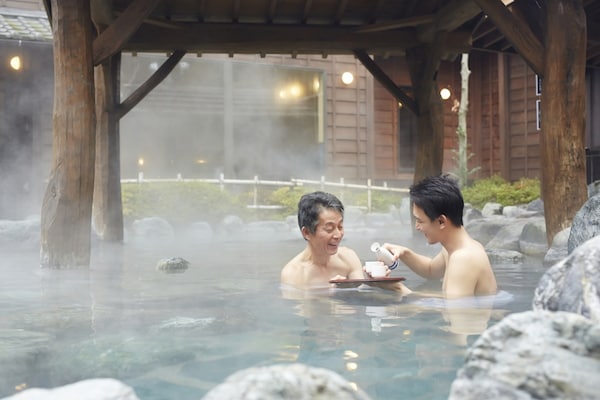
Finally, we have two business hotels that also have onsen , so you can make the most of your business trips. Kamejimakawa Onsen Shinagawa-no-yu: Dormy Inn Hatchobori (Chuo) Dormy Inn is a popular national chain, and this branch is only a one-minute walk away from Hatchobori Station on the JR Keio Line. As soon as you exit the station, all you have to do is cross the bridge and you’re at the hotel. Whether it’s business or pleasure you’re after, you can’t go wrong with Dormy Inn! Let this large, open-air bath wash away your stress. Also be sure to try Dormy Inn's signature noodle dish, yonaki soba, which is complementary with your stay! Odaiba Oedo Onsen Monogatari (Koto) This onsen is known as a good day-trip location but, it's also a great place to stay the night thanks to the attached Iseya Hotel. A stay includes entry into the Oedo Onsen , as well as free breakfast and free parking, so guests get a lot of bang for their buck! For an extra fee you can also use the stone sauna. This little-known inn is a definite must if you're sightseeing around the city. Plus, those looking to try out capsule hotels are in luck—there's a male-only facility called Kurobune (literally "black ship") attached! Read the original article from All About in Japanese here

This website uses cookies.
10 Best Onsen Towns near Tokyo!
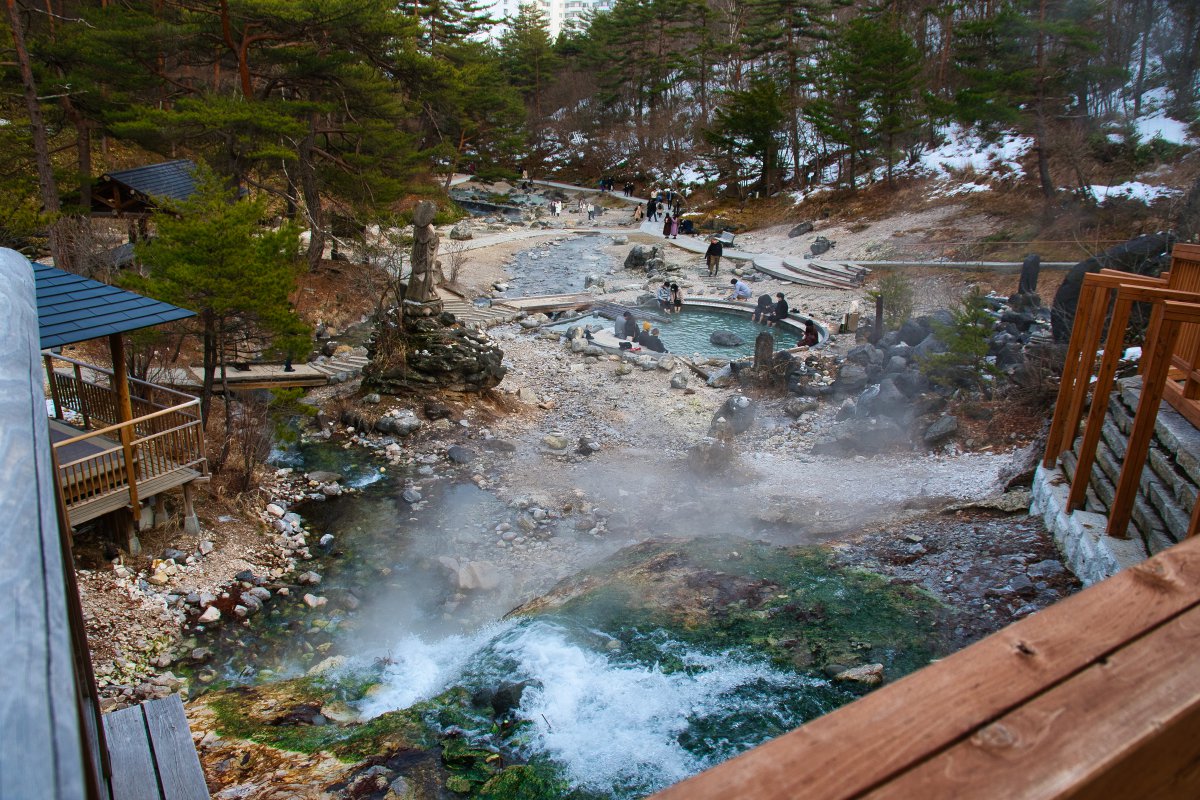
Going to an onsen is one of the most exciting and relaxing experiences that you can have in Japan. It has been an essential part of Japanese culture for centuries, and visiting an onsen allows you to refresh and get rid of exhaustion from a hard days or weeks work. Japan boasts a large number of onsen resorts that can be found everywhere, and a number of them are conveniently located near Tokyo. Taking a weekend trip to a relaxing onsen town will help you unwind while exploring tourist attractions and take in the impressive scenery around as well. Here is a list of the best onsen towns near Tokyo !
▼ Explore Tokyo on our private tour!
What is an onsen?
How to get to hakone yumoto onsen, how to get to kusatsu onsen, how to get to ikaho onsen, how to get to nasu onsen, how to get to kinugawa onsen, how to get to gora onsen, how to get to ito, how to get to shuzenji, how to get to manza onsen, how to get to shima onsen, japan wonder travel tours in tokyo, other articles you might like.
In Japanese the word onsen is written as 温泉, and the two kanji that are translated as ‘hot’ and ‘water’, which is basically the definition of an onsen. The water of onsen must be at least 25°C at the source and the water must meet one of the 19 criteria related to the mineral content of the water. Going to an onsen is a very important and cherished part of Japanese culture and this tradition has been in place for many centuries.
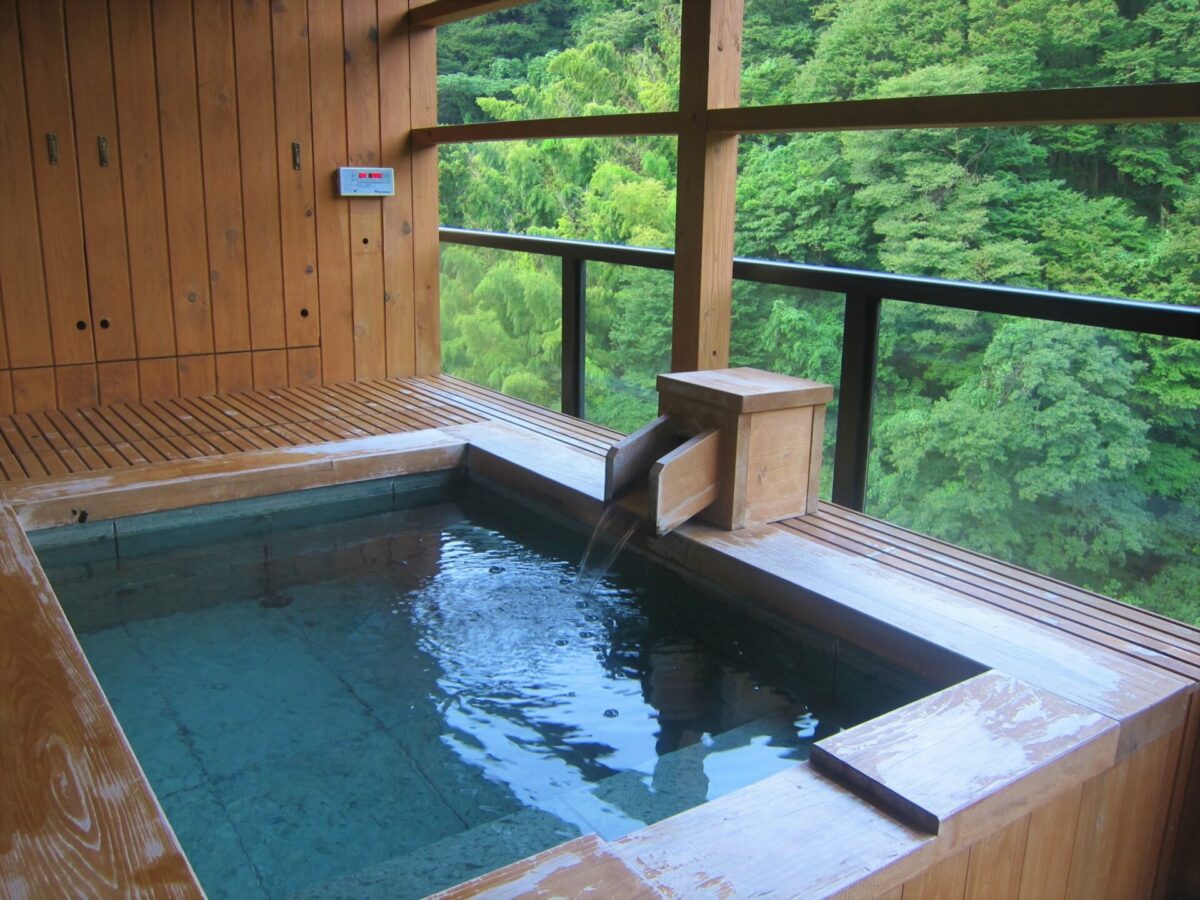
Throughout Japan there are countless onsen resorts, each with their own health benefits and characteristics. Some are located in the mountains , in cities , near beaches or really anywhere else. There are many different rules, of which the most important one is never to use soap or shampoo inside the shared bath. Before entering an onsen, always wash and rinse yourself first! Read more about how to take an onsen in the article below.
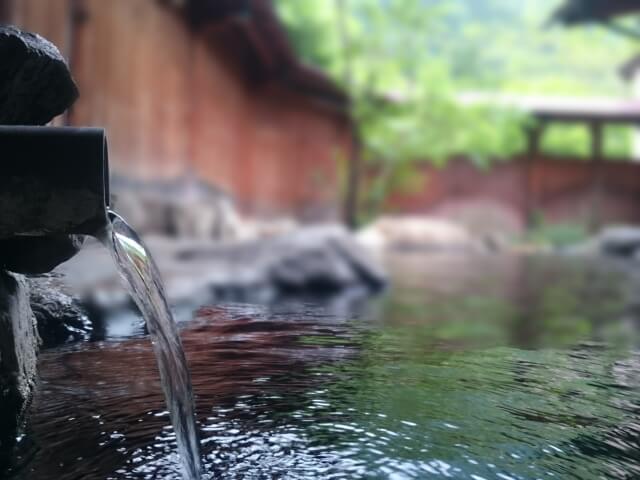
1. Hakone Yumoto Onsen (Kanagawa) 90 minutes
Hakone is widely known as one of the most popular onsen towns in Japan. In fact for many people, the natural hot springs are the first thing that come to mind when thinking of Hakone. There are 17 hot spring sources in the area of Hakone, also known as Hakone Ju-nana-yu (Hakone 17), including the most famous Yumoto, Kowakudani and Sengoku. Each onsen area offers different water quality and subsequent health and/or beauty benefits. Some require bathing suits and others allow tattoos .
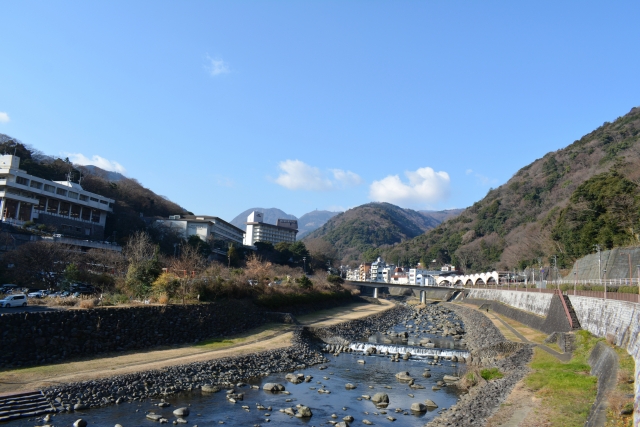
Located in the west part of Kanagawa prefecture , Hakone attracts numerous tourists all year round with a range of tourist attractions and scenic spots around. Because Hakone is easily accessible from Tokyo, it takes only 1.5 hours to get to the area from Tokyo by train, it is a popular day trip destination as well!
Popular attractions around Hakone Yumoto Onsen
- Lake Ashi : a large crater lake offering a peaceful cruise with the stunning views of Mt. Fuji.
- Hakone Shrine : a sacred shrine dating back around 1,300 years that stands in the peaceful forests by the lake.
- The Hakone Open-air Museum : Beautiful museum with a variety of unique exhibits displayed inside and outside of the museum in harmony with nature around.
Take the Odakyu Romancecar from JR Shinjuku Station and get off at Hakone Yumoto Station (1.5 hrs, ¥2,330).

2. Kusatsu Onsen (Gunma) 3-4 hours
Kusatsu is a traditional onsen town that is located in Gunma prefecture . The town is famed for its high quality water and especially for its health benefits which are said to cure any kind of illness, except for lovesickness. The hot water field known as yubatake is the symbol of Kusatsu Onsen. A total of 32,000 liters of hot water gushes out of the hot spring per minute, and yubatake in the center of the town is the place where the piping hot water is cooled down. There are over 100 Japanese ryokan offering relaxing onsen experiences around the city. It also produces the largest amount of hot spring water as a solo onsen resort in Japan. Once you step into the city, you will soon realize the unique smell of sulfate that embraces the entire city!
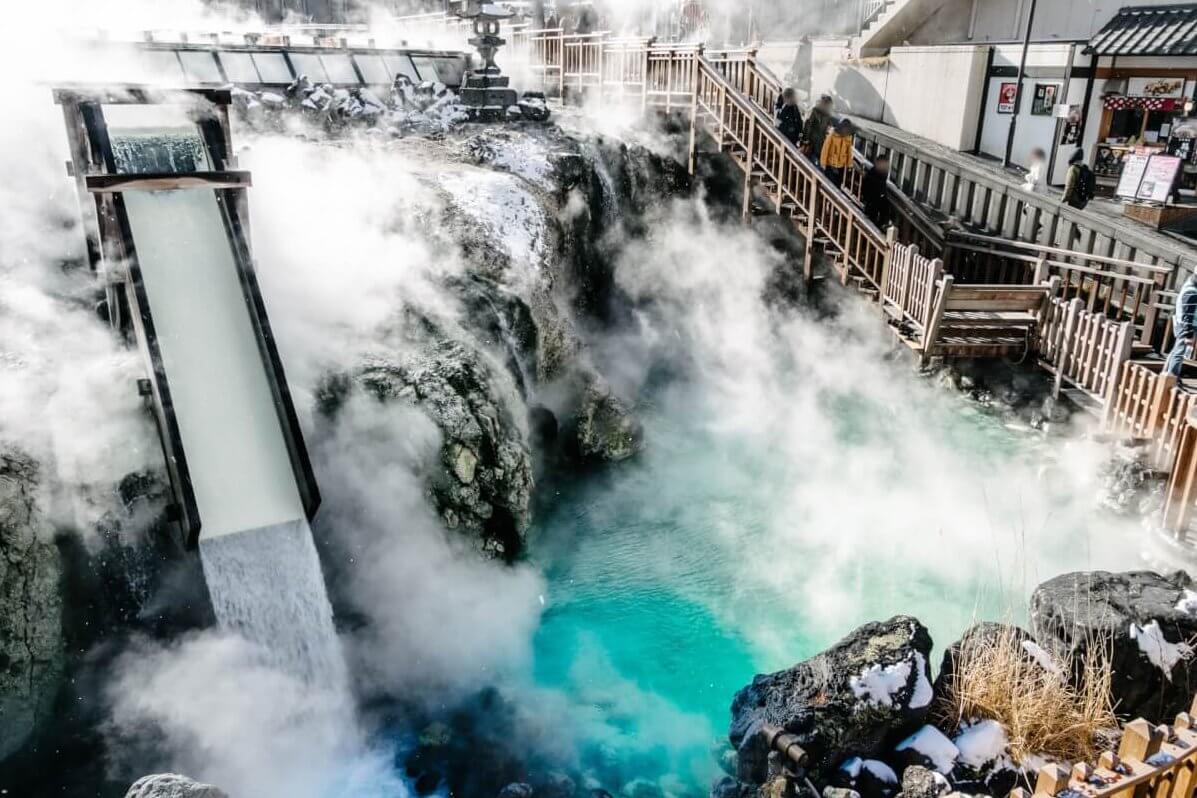
Popular attractions in Kusatsu Onsen
- Kusatsu Yubatake : The symbolic spot known as the “hot water field” that is situated in the center of the city. It looks like a giant pool storing a large amount of hot spring water and is especially beautiful when illuminated at night!
- Nishinokawara Park : This is a nice quiet park with a number of hot spring sources, free foot baths, and seasonal plants around.
- Yumomi (Netsunoyu) : Enjoy traditional performances to cool down the hot spring water!
Take the limited express Tokkyu Kusatsu from JR Ueno Station. Get off at Naganohara Kusatsuguchi Station. It takes 20 min to get to Kusatsu Onsen by bus (3-3.5 hrs, ¥5,450).

3. Ikaho Onsen (Gunma)
Gunma Prefecture is also home to another famous hot spring destination called Ikaho . It is located on the foot of Mt. Haruna and is known for the 365 symbolic stone steps running through the main district of the village. On each side of the steps, you can find a variety of attractions such as traditional Japanese inns, gift shops, restaurants, and other entertainment spots.
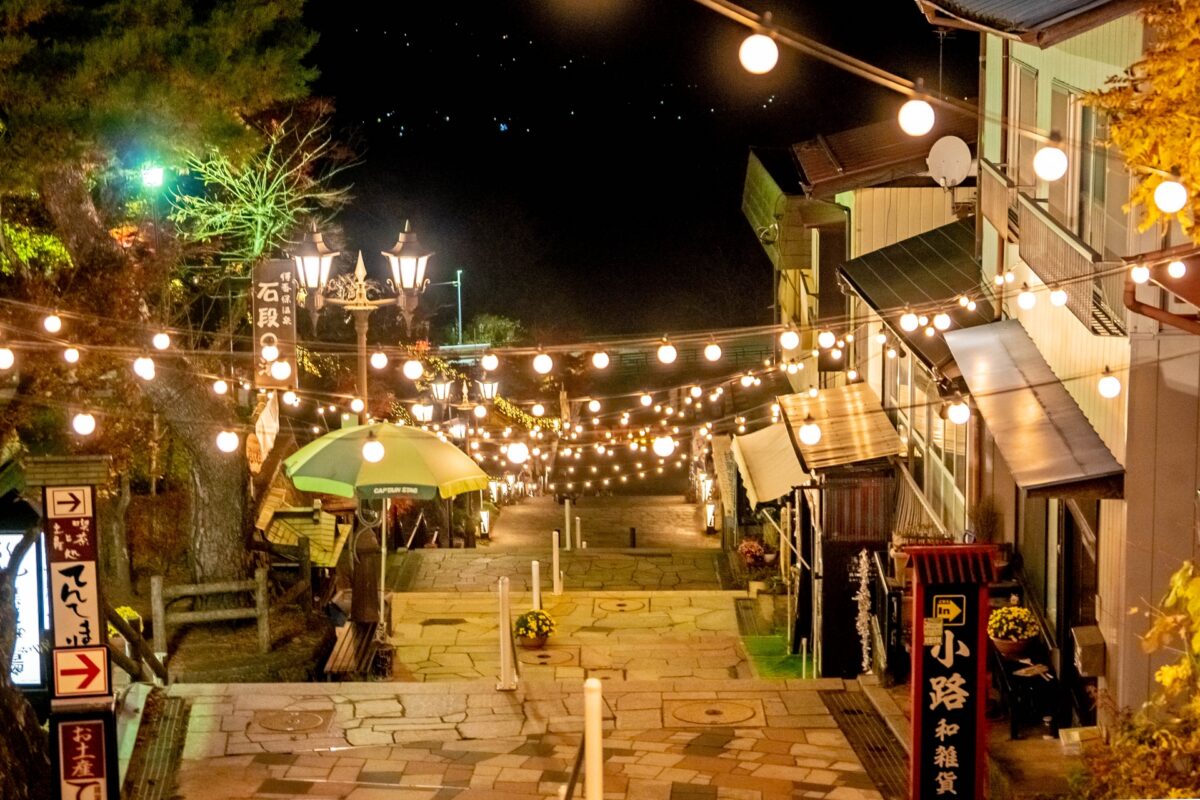
Explore the peaceful town along the stone steps until you finally reach Ikaho Shrine standing at the top. The colors of water of Ikaho also make it unique: golden and silver water that deliver different types of health benefits!
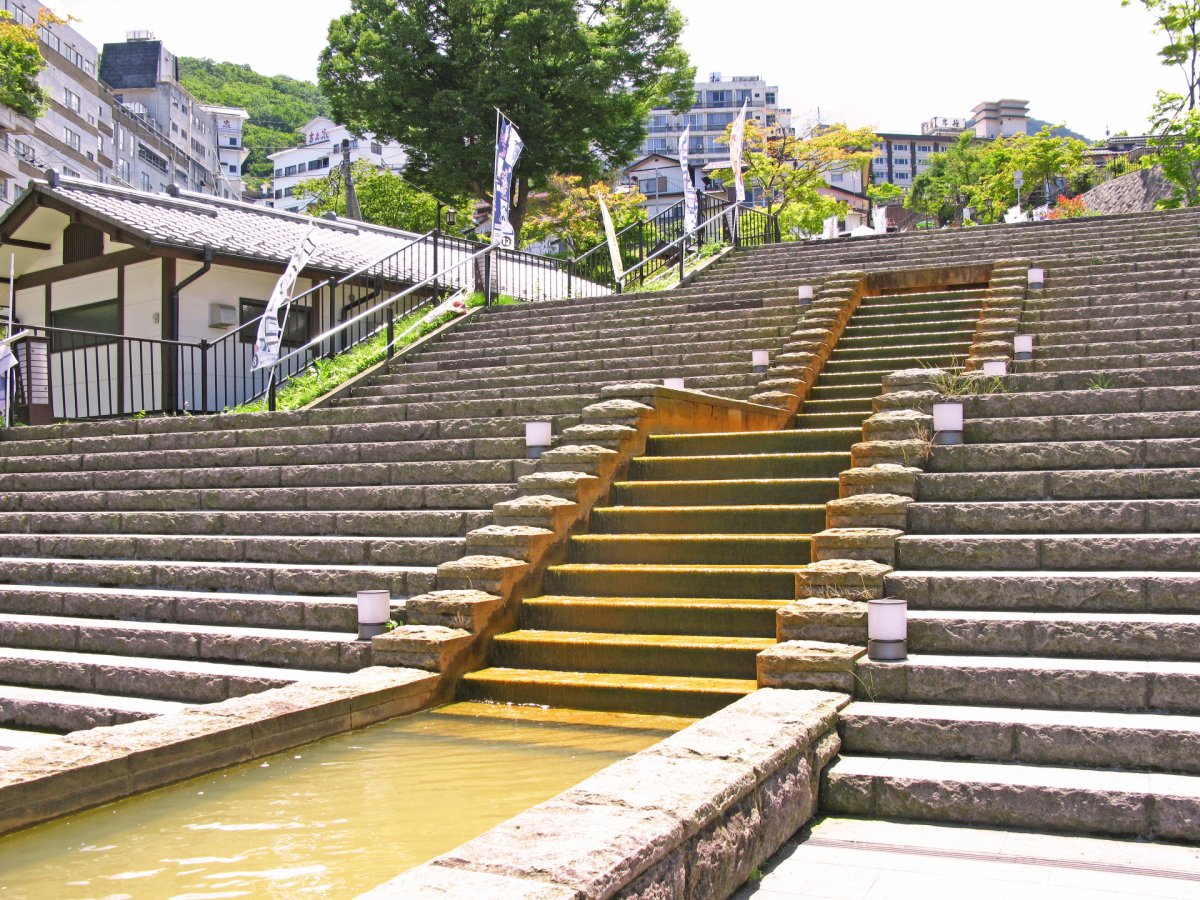
Popular attractions in Ikaho Onsen
- Ikaho Shrine : An iconic and historical shrine offering a panoramic view of Mt. Haruna & other surrounding peaks!
- Kajika Bridge : The perfect spot to enjoy stunning autumn leaves from the bridge beautifully painted in red.
Take the limited express Tokkyu Kusatsu from JR Ueno Station and get off at Shibukawa Kusatsuguchi Station. From there it takes 30 min to get to Ikaho Onsen by bus (2–2.5 hrs, ¥4,200)
4. Nasu Onsen (Tochigi)
Nasu is a famous hot spring resort in Tochigi Prefecture that draws almost 5 million visitors every year. The first hot spring facility is said to be founded around 630, and Nasu Onsen has since then developed as a popular onsen destination with its beautiful natural surroundings. It consists of 7 separate areas with different hot spring sources, scattered across the mountainside. Visitors can try each of them while receiving a range of benefits and effects!
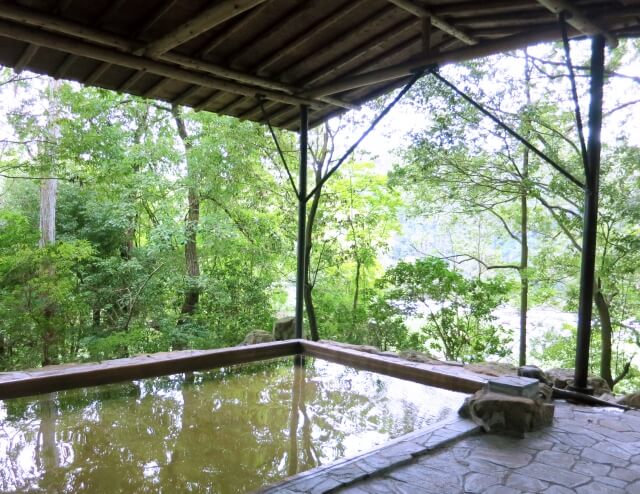
Popular attractions in Nasu Onsen:
- Mt. Nasu : A scenic mountain offering panoramic views.
- Killing Stone : A large rock that vents poisonous gasses.
- Minamigaoka Ranch : Admission-free ranch with a range of outdoor activities and interaction with animals.
Take the Tohoku Shinkansen to Nasushiobara Station (70 min, ¥5,390). From there switch to local buses from there, depending on which hot spring facilities you want to visit it will take about 40-60 min (¥300).

5. Kinugawa Onsen (Tochigi)
Kinugawa is another onsen resort in Tochigi Prefecture , near the popular Nikko area. It was discovered in the Edo period about 260 years ago and at the time only notable monks and feudal clans visiting Nikko were granted permission to enjoy the hot spring. It was later opened to the public, and developed as one of the most famous onsen resorts in the Kanto region . In the 1970’s tourism was booming here and many large ryokan facilities were built. After the recession in the 1990’s some went out of business and the abandoned buildings give an interesting vibe to the area. The water is relatively mild and safe even for those who have sensitive skin, and effective to treat a range of health problems such as fatigue and neuralgia.
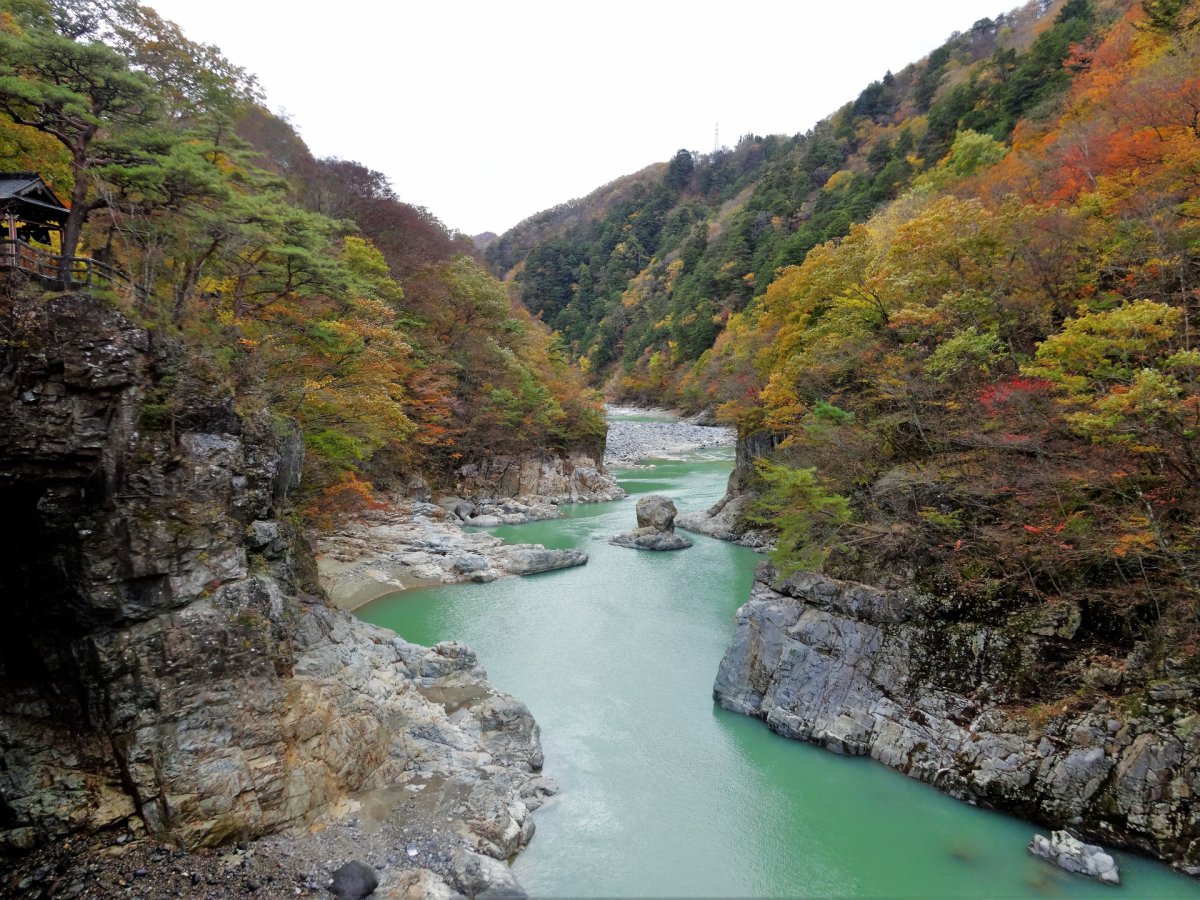
Popular tourist attractions Kinugawa Onsen
- Nikko Toshogu Shrine : The famous UNESCO World Heritage Site which enshrines Tokugawa Ieyasu, the first shogunate of the Tokugawa Shogunate.
- Kinugawa river : An iconic river where you can join memorable river rafting!
- Tobu World Square : Unique theme park with a number of 1/25 scale reproductions of famous buildings and architectures from all over the world.
Take the Tobu Nikko Kinugawa train from JR Asakusa Station to Kinugawa-Onsen Station (2 hrs, ¥2,890)
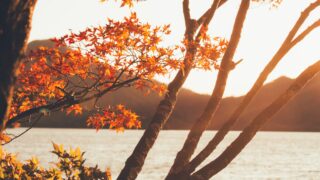
6. Gora Onsen (Kanagawa)
Gora Onsen refers to the hot spring area that covers the area around the Gora Station on Hakone Tozan Railway. It is sometimes considered as a part of Hakone Onsen, and welcomes visitors with luxurious inns and different types of hot spring sources. In the early 19 th century, the area experienced rapid development as a holiday villa area for celebrities along with the opening of Gora park. It currently boasts 46 hot spring sources which allows visitors to enjoy different colors of onsen classified into 5 types.
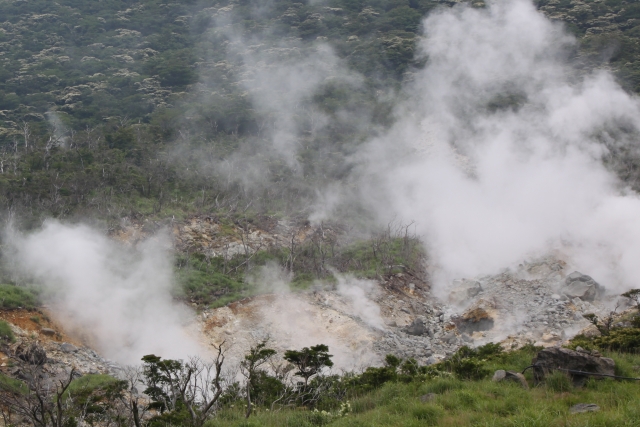
Popular attractions near Gora Onsen
- Hakone Ropeway : Symbolic transport system in Hakone area taking you to the popular tourist attractions such as Owakudani Hell Valley (大涌谷).
- Hakone Gora Park : French-style garden with a range of seasonal flowers, cozy cafes, and unique experiences.
Take the Odakyu Romancecar from JR Shinjuku Station to Hakone Yumoto Station. Transfer to Hakone Tozan Railway and get off at Gora Station (2 hrs, ¥2,720)
7. Ito (Shizuoka)
Izu Peninsula in Shizuoka Prefecture is a preferred holiday destination because of its easy access from Tokyo (less than 2 hrs) and rich nature. Ito is a coastal city located in the north eastern part of Izu Peninsula along with other famous onsen resorts such as Atami . Ito boasts the third largest output of onsen water per minute with more than 750 sources that can be found around the city. The large volume of onsen water allows visitors to enjoy the 100% natural hot springs directly from the sources without any additives at a number of inns and hotels in the area.
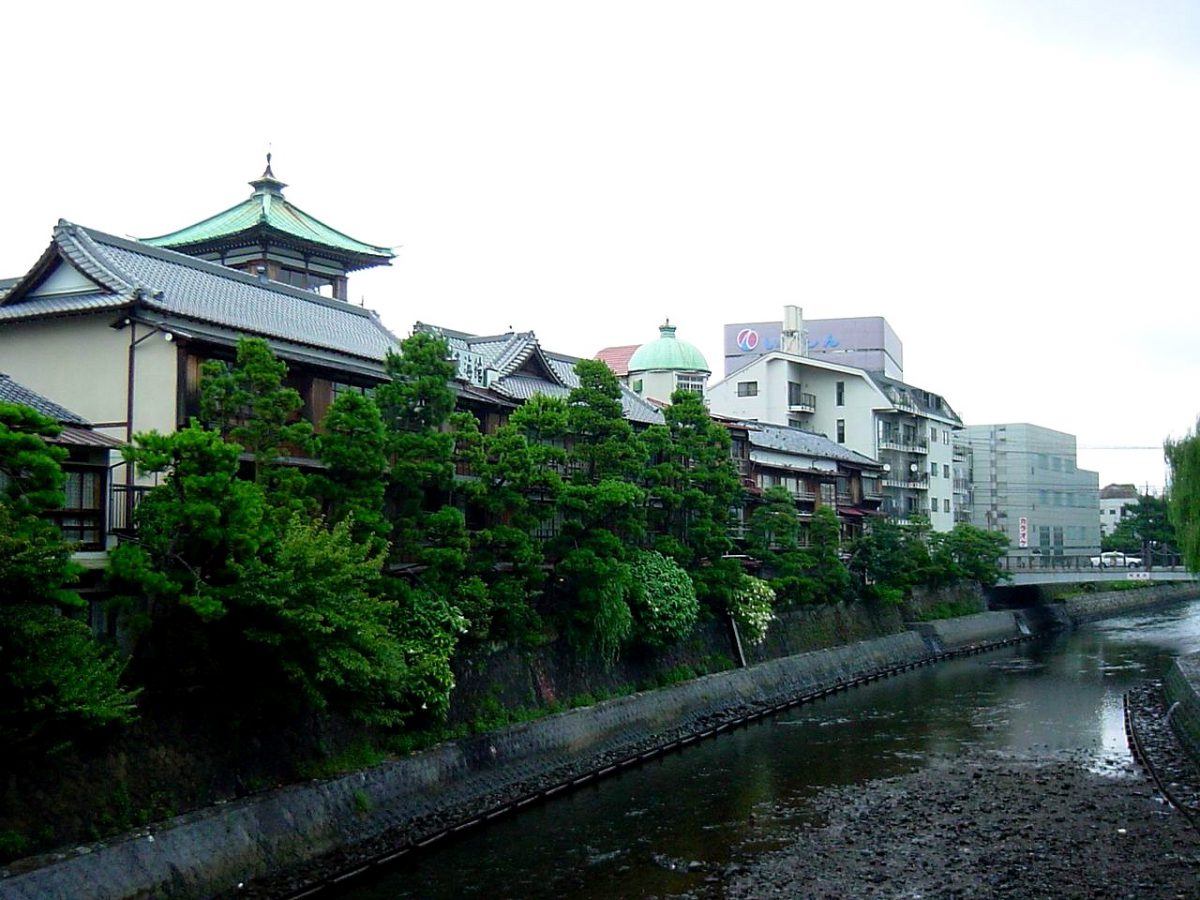
Popular attractions near Ito:
- Jogasaki Coast : Enjoy the stunning coastline scenery and enjoy a refreshing hike.
- Mt. Omuro : A 580 meters extinct volcano offering a panoramic view of Mt. Fuji!
Take the limited express JR Odoriko from Shinagawa Station. It takes you directly to Ito Station without transfer (1.5 hrs/ ¥4,200). You can also take the Shinkansen to JR Atami Station and transfer to JR Ito Line.

8. Shuzenji (Shizuoka)
A 1.5 hour train ride east from Ito city takes you to Shuzenji, another hot spring resort situated in the mountainous area of Izu Peninsula. Shuzenji is known as the oldest onsen resort on the Izu peninsula, it is said to date back to the early 9 th century. The peaceful area has also been visited and is loved by many famous novelists and writers such as Mori Ogai and Natsume Soseki.
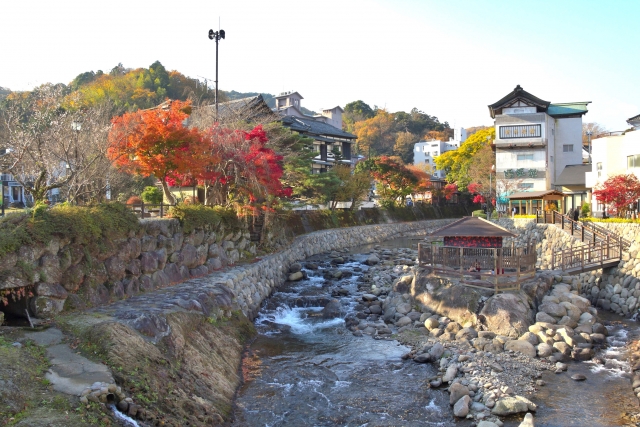
Popular attractions near Shuzenji:
- Shuzenji Bamboo Path : Walk through the beautiful bamboo grove while immersing yourself in the sacred atmosphere.
- Shuzenji Temple : Pay a visit to the symbolic temple located in the heart of the city.
- Joren Waterfall : The perfect spot for a refreshing stroll along with the scenic waterfall.
Take the limited express JR Odoriko from Shinagawa station that will take you to Shuzenji Station without transfer (2 hrs, ¥4,800). You can also take the Shinkansen to JR Mishima station and transfer to the Izu Hakone Railway.
9. Manza Onsen (Gunma)
Located at 1,800 meters above sea level, Manza Onsen welcomes visitors with some of the most fascinating landscapes that you can enjoy from an onsen. Manza Onsen is a part of Joshinetsu-Kogen National Park that covers vast areas including Gunma, Nagano, and Niigata prefecture across borders. The milky-white water contains a large amount of sulfur, which has a positive effect on your blood flow and metabolism. It is also known as a perfect ski destination during the winter season !
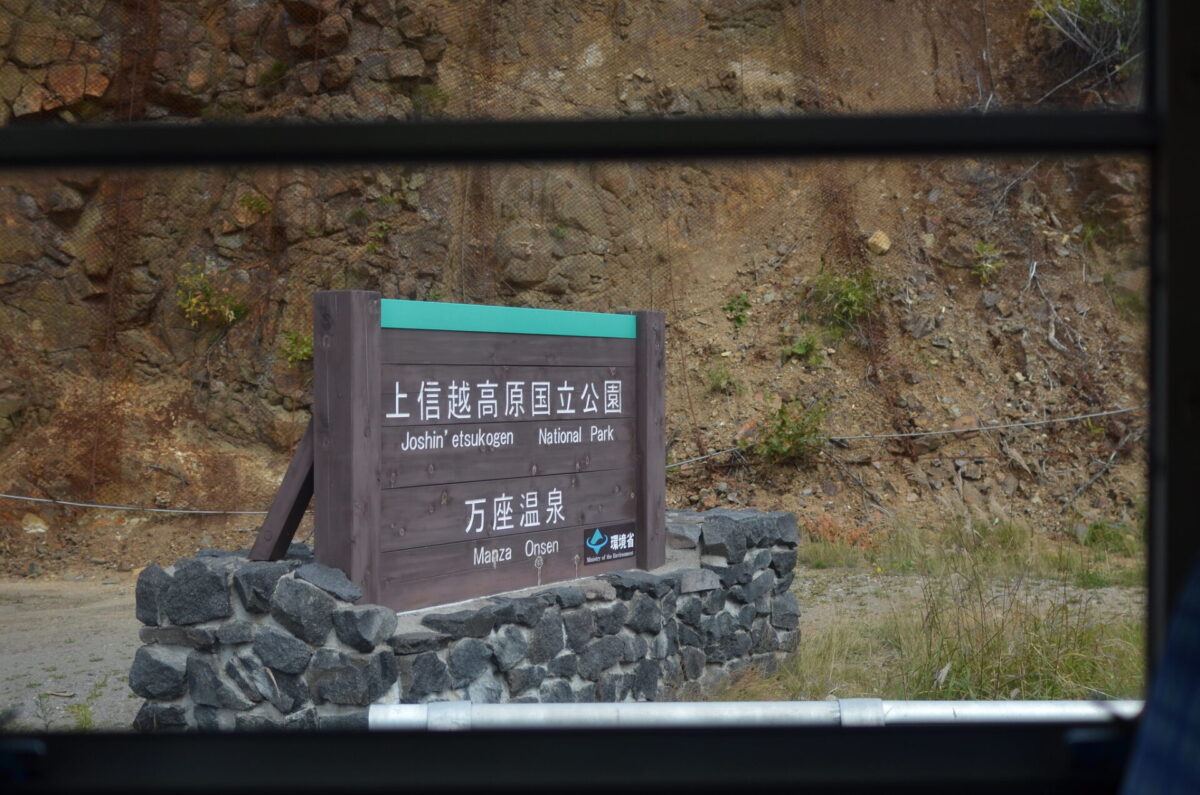
Popular attractions near Manza Onsen
- Manza Onsen Prince Ski Resort : Enjoy an exciting ski experience and refreshing hot springs!
- Manza Onsen Nisshinkan : Treat yourself to the open-air hot spring and buffet-style dishes!
Take the bus, Shinkansen, or local train to Karuizawa Station or Kazawaguchi Station. Transfer to the Seibu Kanko Bus and get off at Manza Bus Terminal (3-4 hrs, ¥5,000- ¥9,000, depending on your mode of transportation).
10. Shima Onsen (Gunma)
Shima is a nostalgic onsen resort stretching about 4 km along the Shima river running through Gunma prefecture. It consists of 5 districts that each feature unique tourist attractions and traditional Japanese ryokans.
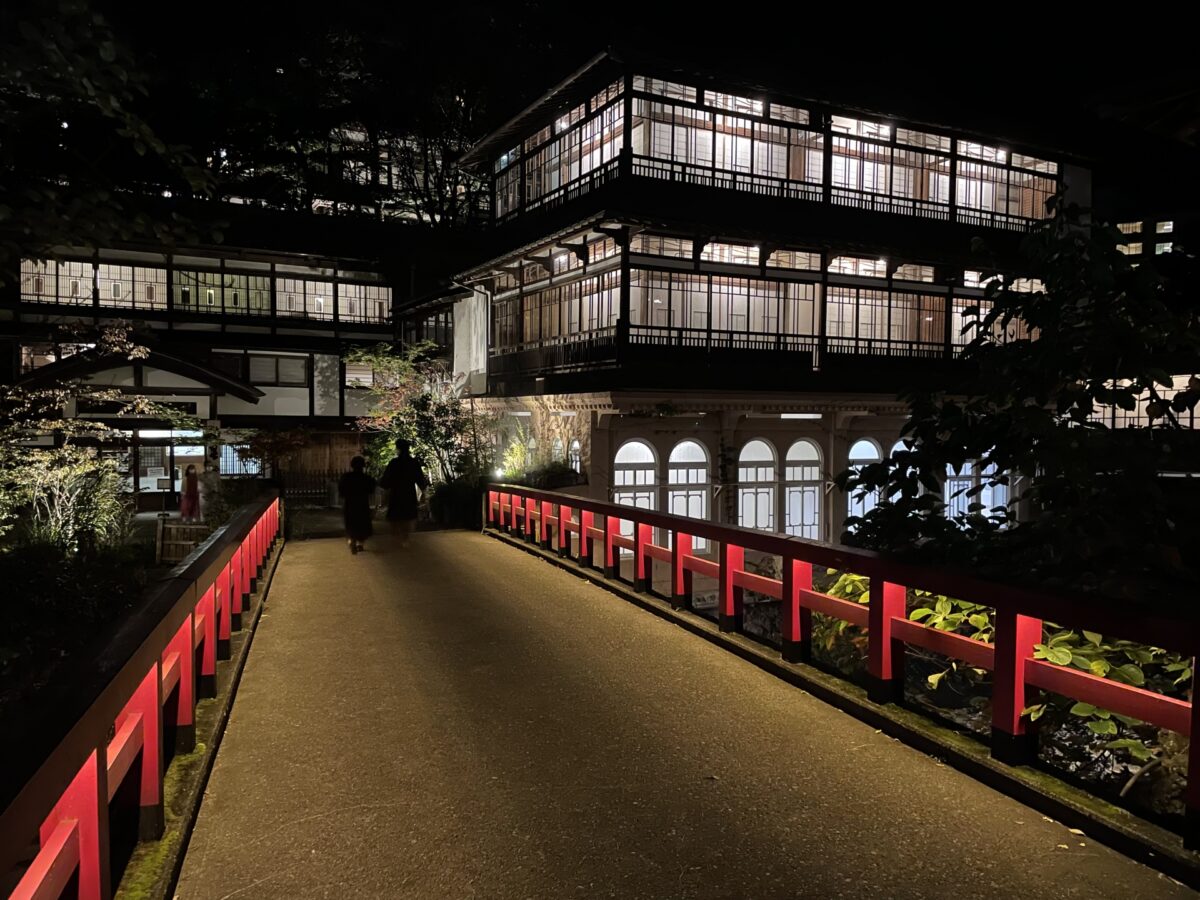
Sekizenkan is one of the most famous and renowned ryokan offering amazing services. The main building is known as the oldest wooden onsen facility in Japan and is designated as a Important Cultural Property. It is also said that the bath house of Spirited away , the world-famous Ghibli movie, is modeled after the building and the iconic red bridge in front!
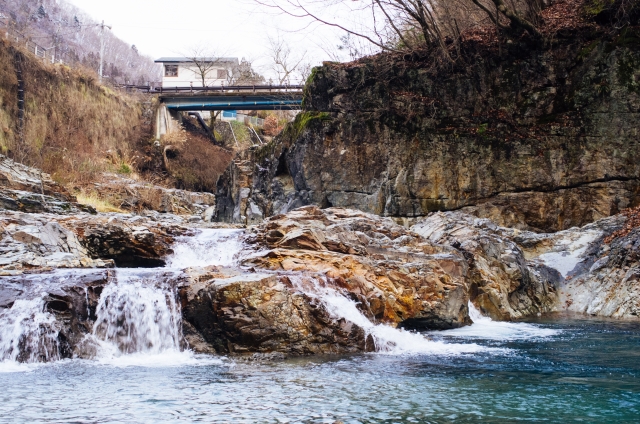
Popular attractions near Shima Onsen
- Okushimako : Take a refreshing stroll around the beautiful artificial lake while exploring the surrounding nature that changes for each season!
- Shima no Oketsu : Naturally created potholes that can be spotted in the crystal-clear flow of Shima river.
Taking the highway bus is the easiest and cheapest way to get to Shima Onsen from Tokyo (3.5 hrs, ¥3,150).
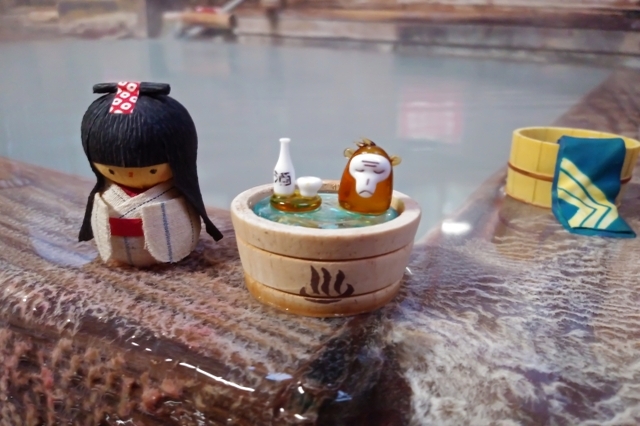
It can be a little bit challenging to take a public bath if you have no onsen experience before. You may feel embarrassed in the beginning, but gradually get used to it and start to feel comfortable as you soak your body in the relaxing hot water. It is also enjoyable to combine your onsen trip with exploring the surrounding area and trying local food or visit famous tourist attractions. You might think winter is not suitable for onsen because of the cold weather, but it is actually the perfect season to enjoy it as the temperature of onsen is generally higher than usual bath. Let yourself unwind in the natural-heated hot springs while enjoying the stunning sceneries created by the white snow!
▼Book our izakaya-hopping tour in Shinjuku!

Japan Wonder Travel is a travel agency that offers guided tours throughout Japan. From private walking tours to delicious Food and Drink tours, we can help organize the best tours just for you! If you want to explore Japan and learn more about the history and backstories of each area you are traveling in, our knowledgeable and friendly guides will happily take you to the best spots! In addition, we can provide you with any assistance you may need for your upcoming trip to Japan, so please feel free to contact us if you have any questions or need some help!
▶ Tokyo Tsukiji Fish Market Food and Drink Tour Explore the most lively and popular fish market in Tokyo, where you will have the chance to try some of the local’s favorite street foods and sake along with your friendly English-speaking guide!

▶ Tokyo 1–Day Highlights Private Walking Tour (8 Hours) There’s no better way to explore an area than taking a tour with a knowledgeable local guide. You will have the chance to learn about the history and interesting background stories of Tokyo, as well as discover some hidden gems which can be hard to do without a guide.
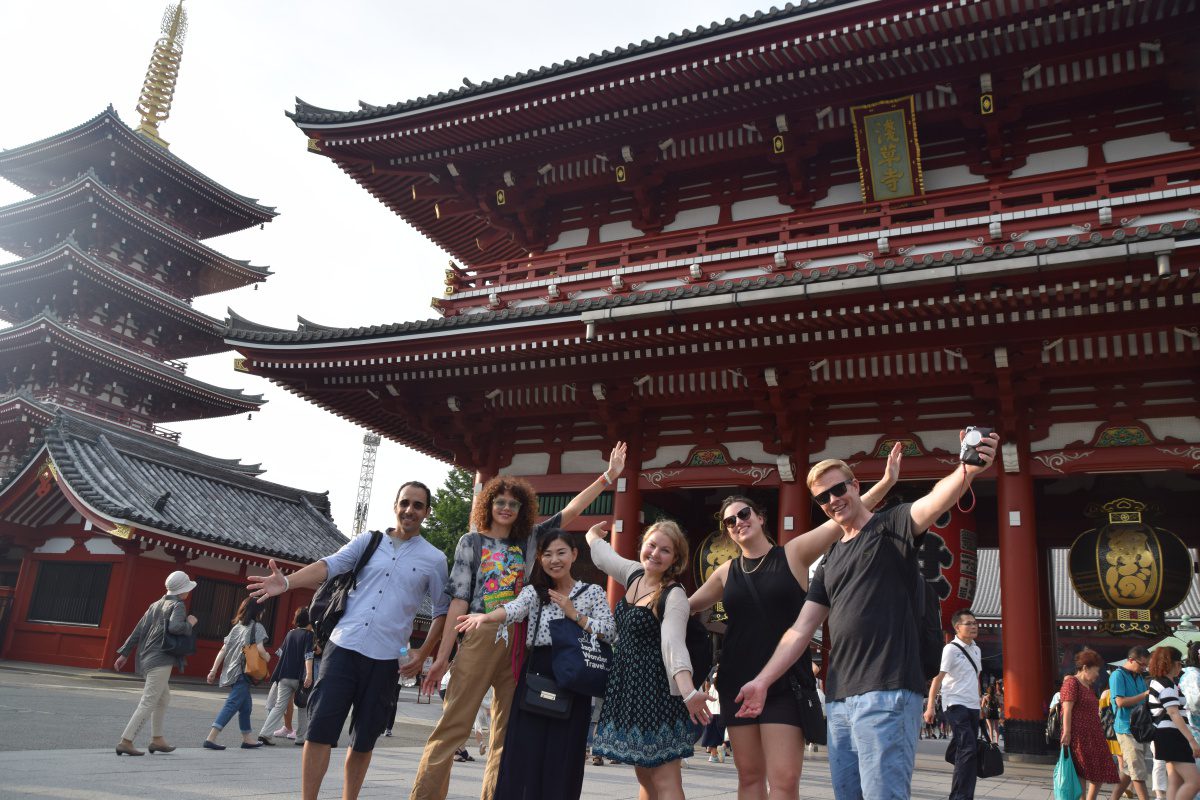
▶ Shinjuku Bar Hopping Tour: Experience Tokyo’s Nightlife in Izakaya Check out the best spots in Shinjuku while bar hopping through the lively and vibrant area. Try some delicious local food and drink as you explore the narrow yet photogenic alleys that the town has to offer. Experience Japanese izakaya culture and drink in Shinjuku like the locals!
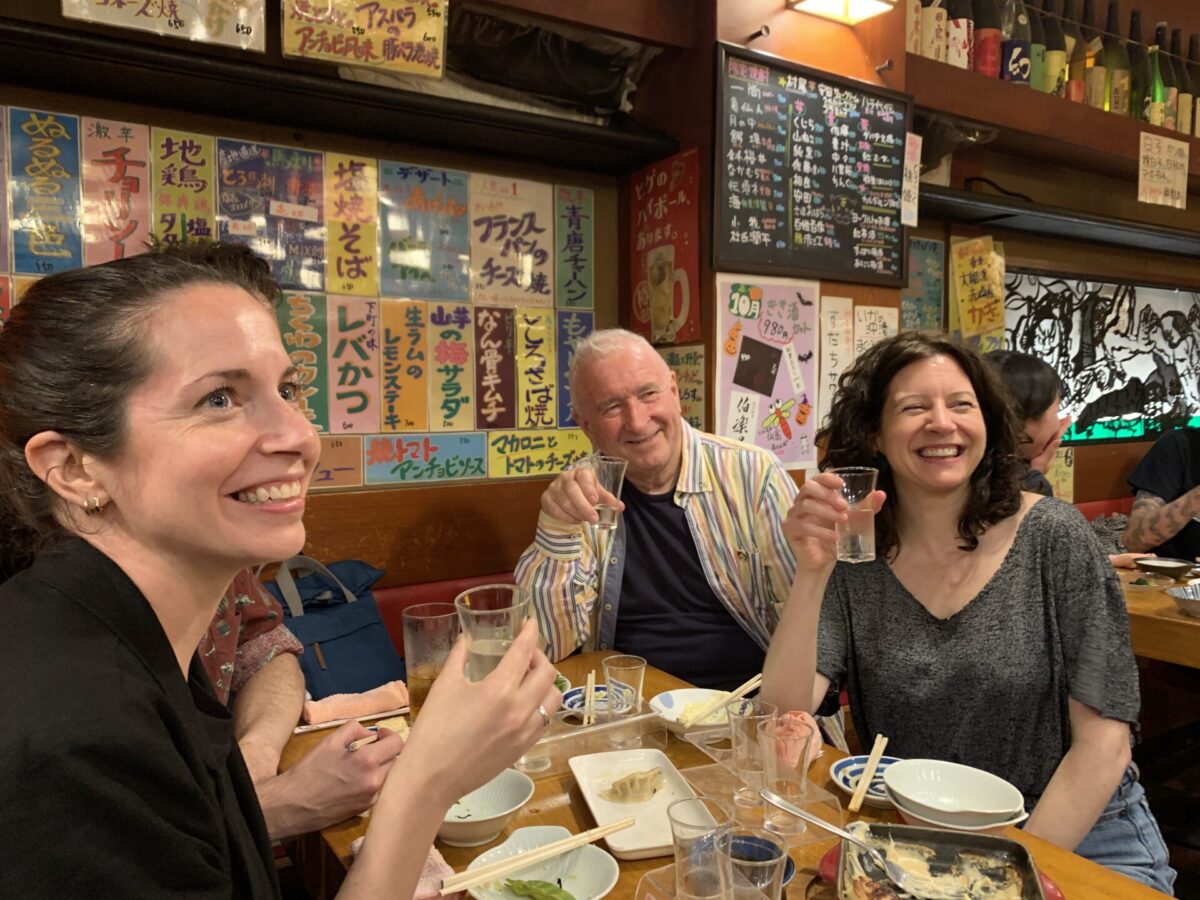
Follow us on Instagram or Facebook for more travel inspiration. Or tag us to get featured!
Happy traveling!
Stay informed of the best travel tips to Japan, the most exciting things to do and see, and the top experiences to have with the Japan Wonder Travel Newsletter. Once every two weeks we will introduce you to our latest content.

This post contains some affiliate links. When you click through and make a purchase we may receive some commission, at no extra costs to you.
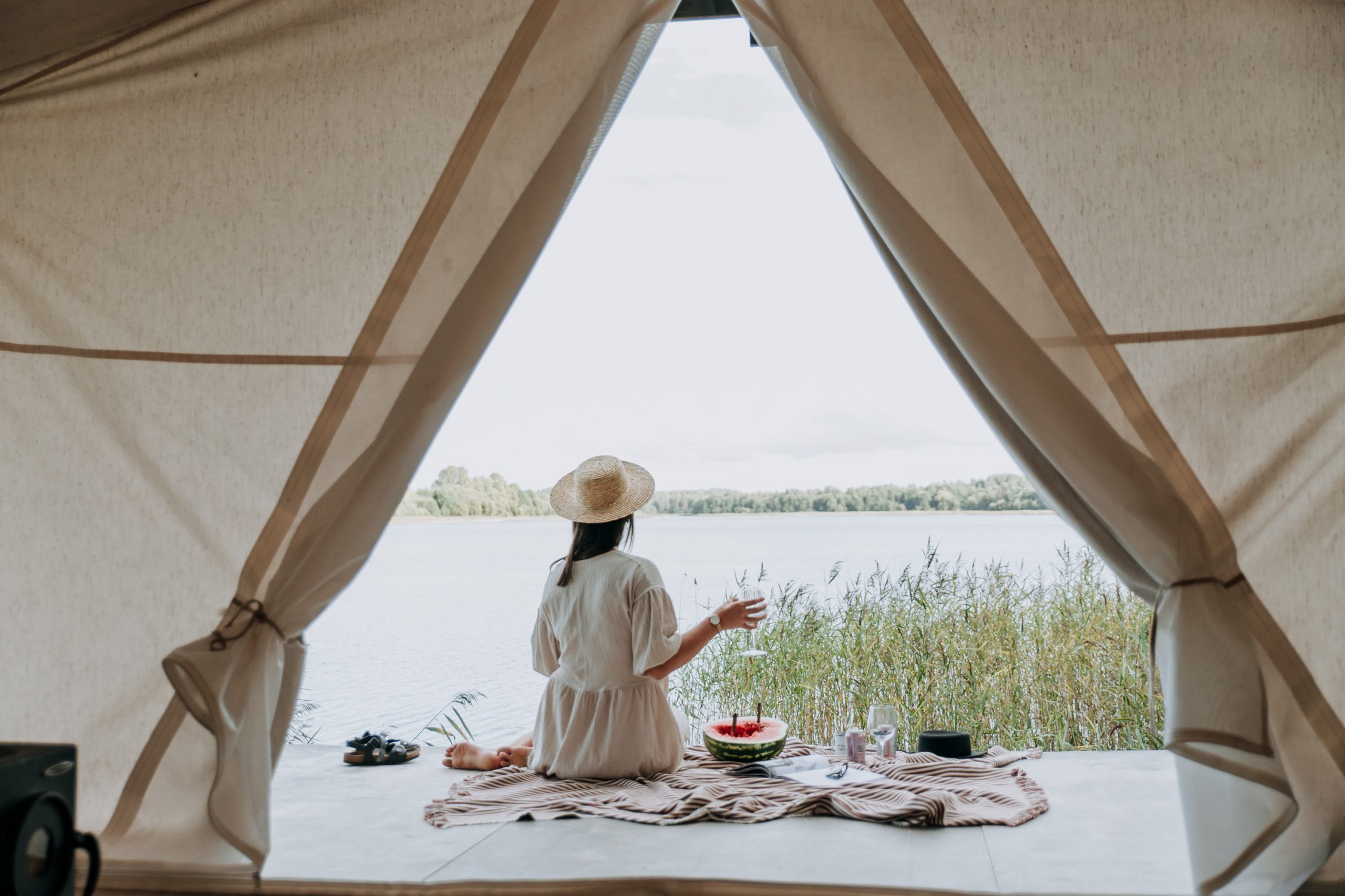
- Popular destinations
- Hidden places in Japan
- Tours and workshop
- Food and drink in Japan
- Itinerary in Japan
- Places to visit in Tokyo
- Food and drink in Tokyo
- Seasonal events
- Tours & workshops
- Tokyo This Week
- Day trip from Tokyo
- Itinerary in Tokyo
- Places to visit in Kyoto
- Food and drink in Kyoto
- Itinerary in Kyoto
- Day trip from Kyoto
- Travel tips
- Accommodation
- Cultural tips
- Transportation
- Tokyo Tours
- Kyoto Tours
- Kimono Rental
- Fukushima Tours
- Mount Fuji Tours
- Tour Package
- Media Kit(English/日本語)
In order to view this website correctly, you will need to have JavaScript enabled in your browser.
Skip to main content.
- Travel Trade & Press
- School Trips
- Business Events
GO TOKYO The Official Tokyo Travel Guide
New & Now
Tokyo Area Guide
Things to Do
Plan Your Trip
- Choose Language 日本語 ENGLISH 中文(简体) 中文(繁體/正體) 한글 ภาษาไทย DEUTSCH ITALIANO ESPAÑOL FRANÇAIS
Share this page
- X (Twitter)
- My Favorites
- All New & Now options
- New & Trending
- Spring Guide
- Summer Guide
- Autumn Guide
- Winter Guide
- Places The Locals Go
- Stories & Guides
- Another Tokyo
- All Things to Do
- Attractions
- Food & Drink
- Onsen & Bathhouses
- Art & Design
- Anime & Manga
- Time Trip Tokyo
- Walks & Tours
- Tokyo Event Calendar
- All Tips to Plan Your Trip
- Accommodations
- Getting to Tokyo
- Getting Around
- Airport & Cruise Terminal Access
- Customs & Manners
- Weather & Geography
- Visa & Immigration
- Tokyo at a Discount
- Tours of Tokyo
- TOKYO Brochures
- PDF Maps & Guides
- Tourist Information Centers
- Online Tourist Guide
My Tokyo Guide
See something interesting? Click on the heart button in the article to add a page from this site to My Favorites.
Popular Keywords
- Guide Service
Advanced Search
- From open calendar
- To open calendar
- All Stories & Guides
Select Language
- ESPAÑOL
- FRANÇAIS
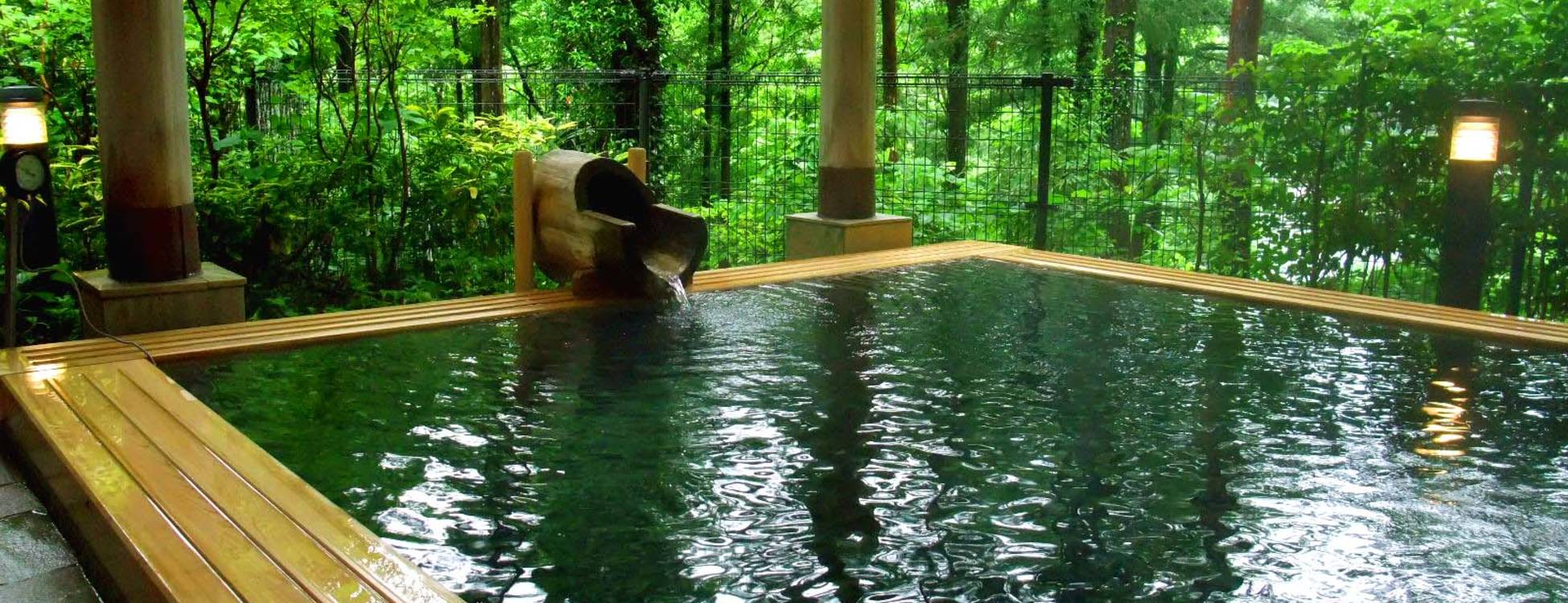
After a long day touring Tokyo, it’s time to unwind with a relaxing bath
Main content starts here.
Join the locals in one of the city’s numerous public baths. You’ll come out refreshed, relaxed, and rejuvenated.
Though numbers have dwindled in recent years, there are still many public baths to be found around city. Choose between a traditional, down-to-earth “sento” or opt for a more modern resort-style facility.
Oceanview Onsen
Forest view onsen, indoor bath, find out more, reference link.
- Tokyo Sento-Public bath
- Visit Tokyo >
- Best things to do in Tokyo tailored to your preferences >
- About This Site
- Font Size and Color
Copyright © Tokyo Convention & Visitors Bureau. All rights reserved.
- 100% tailor made
- 100% value guarantee
- Expert consultant
- Ground support
- No hidden cost
- Why Tailor-made Travel ?
- Our Promise
- Responsible tourism
- Best & Reasonable Price

- Thailand and Vietnam
- Thailand and Cambodia
- Thailand Vientam Cambodia
- Vietnam and Cambodia
- Southeast Asia Tours
- Japan Tours
- Japan Family Tours
- Japan Senior Tours
- Japan Food Tours
- Japan Autumn Tours
- Japan Nature Tours
- Japan Walking&Hiking Tour
- Custom Japan Honeymoon
- China Tours
- China Guides
- Thailand Tours
- Thailand Guides
- Vietnam Tours
- Vietnam Guides
- Cambodia Tours
- Cambodia Guides
- Indonesia Tours
- Philippines Tours
- Tailor-Made Trip
- expert consultant
- ground support
- no hidden cost
- Japan Travel Guide
Tokyo Onsen Guide: The Best Hot Springs In and Near Tokyo
Are there onsens in Tokyo? Tokyo Onsen , or Tokyo Hot Springs , may not be as famous as other hot springs such as Beppu Onsen and Ginzan Onsen among all the Onsen Japan , there are also excellent hot springs worth visiting during your trip to Tokyo. If you visit neighboring hot spring areas such as Hakone and Nikko, you can enjoy also delicious Japanese food in Japanese-style buildings and explore the best onsen village near Tokyo. Here is the ultimate guide to the best onsen in Tokyo, the popular onsen town near Tokyo, Tokyo hotel with onsen, tattoo friendly onsens Tokyo, and a transportation guide to the onsen city near Tokyo.
Table of Contents
1. 10 Best Onsens in Tokyo
2. Top 8 Onsen Towns Near Tokyo
3. Tattoo Friendly Onsen in Tokyo
4. Recommended Tokyo Onsen Ryokan
5. Transportation Guide to Onsen Town Near Tokyo
1. 10 Best Hot Springs in Tokyo
There are so many best places in Japan for onsen , does Tokyo have good onsen? Tokyo is a vibrant and modern city in Japan, but it's also a place with an abundance of hot springs. Here are some great places to soak in hot springs in and around the Tokyo city area, enjoying the Tokyo private onsen.
●Spa LaQua: Enjoy the Best Natural Hot Spring in Tokyo
LaQua Spa is not a hot spring facility, but more specifically a spa where you can experience onsen Tokyo. It is located on the 5th to 9th floors of the LaQua building in TOKYO DOME CITY. Spa Laqua Tokyo is surrounded by various railroad routes, making it very convenient for travelers to depart from Tokyo Station or Shinjuku. The Spa LaQua uses natural hot spring water, "Sodium Salt Spring", which gushes out of the ground under TOKYO DOME CITY, and is good for sore shoulders and necks, cold hands and feet, and fatigue recovery. In addition, this hot springs Tokyo has excellent moisturizing and heat preservation properties, so it is a good place to go for beauty treatments.
Address: 1 Chome-1-1 Kasuga, Bunkyo City, Tokyo 112-0003, Japan
Hours: Closed at 9:00 AM
Phone: +81 3-3817-4173
● Thermae Yu Shinjuku Tokyo: Experience the Super Public Bath in This Natural Hot Springs
Newly opened in August 2015, Thermae Yu is located in the Shinjuku Ward, which is the next street from Kabukicho. In the hustle and bustle of Shinjuku, a place that never sleeps, Thermae-Yu is exceptionally peaceful. The spacious bath in the Thermae Yu Shinjuku is filled with highly concentrated bubbling carbonated spring water, which is known for its beauty-enhancing properties. Since this is a newer onsen Shinjuku Tokyo, the environment and facilities from indoor to outdoor, from changing rooms to relaxation rooms are all new and clean in the Thermae Yu Tokyo.
Address: 1 Chome-1-2 Kabukicho, Shinjuku City, Tokyo 160-0021, Japan
Hours: Open 24 hours
Phone: +81 3-5285-1726
● Times SPA RESTA: A Spa in Tokyo Featuring Indoor and Outdoor Hot Baths
Times SPA RESTA is located in Ikebukuro, a shopping paradise, next to the famous Sunshine City Ikebukuro. It is an elegant spa club that is only an eight-minute walk from Ikebukuro Station. The well-designed spring pool on the top floor creates a high-end feel like a Western-style hotel, and this hot springs in Japan Tokyo is very popular among female office workers.
Address: Japan, 〒170-0013 Tokyo, Toshima City, Higashiikebukuro, 4 Chome−25−9 12F タイムズステーション池袋10F
Hours: Closed at 8:30 AM
Phone: +81 3-5979-8924
● Asakusa Rox Matsuri Yu: Featuring Open-air Bath with a Stunning View of Tokyo Skytree
Asakusa Rox Matsuri Yu , which is open all year round until late at night, can be reached in less than 10 minutes from the station. There are as many as hot spring baths and 3 types of saunas, so you can choose from a wide variety of options to experience hot spring in Tokyo. Best of all, the open-air hot springs of Asakusa Rox Matsuri Yu offer a great view of Tokyo's first landmark, the SKYTREE, which is one of the best views in Tokyo
Address: Japan, 〒111-0032 Tokyo, Taito City, Asakusa, 1 Chome-25-15 ROX 7th floor
Phone: +81 3-3845-7526
● Toshimaen Niwa No Yu: Best Onsen Day Trip from Tokyo
When it comes to the best onsen in Tokyo, how can we ignore the Toshimaen Niwa No Yu Onsen , a one-day hot spring facility located next to a quiet Japanese garden of approximately 1,200 square meters? At Toshimaen Niwa No Yu Tokyo, you can enjoy a relaxing onsen while admiring the Japanese garden with its seasonal flowers and grasses. The hot springs of Toshimaen Niwa No Yu are divided into men's area, women's area, and a mixed-gender area (with swimsuits), so you can enjoy the Japanese hot springs with friends and family. There are also 3 kinds of saunas, massages, and SPA here, which can definitely make people relax completely. After taking a bath, you can also enjoy delicious food in this best onsen in Tokyo for foreigners.
Address: 3 Chome-25-1 Koyama, Nerima City, Tokyo 176-8531, Japan
Hours: Closed at11 PM
Phone: +81 3-5984-4126
● Tokyo Somei Onsen SAKURA: Enjoy the "Beauty's Hot Spring" in Tokyo
When it comes to the best onsen in Tokyo, how can we ignore the Somei Onsen SAKURA , which is located an 8-minute walk from Sugamo Station Exit A1 and a 10-minute walk from Komagome Station Exit 3? It is a "high-end hotel" concept, where you can spend time relaxing in a calm and modern space. The natural hot spring gushes out from 1,800 meters underground at a high temperature of 48.8 degrees. Tokyo Somei Onsen SAKURA is rich in minerals. It is said that soaking in hot water will make the skin smooth, and moisturize the skin. This Japan hot springs Tokyo also is perfect for relaxing after a tiring journey.
Address: 5 Chome-4-24 Komagome, Toshima City, Tokyo 170-0003, Japan
Hours: Closed at 11:00 PM
Phone: +81 3-5907-5566
● Maenohara Onsen Sayano Yudokoro: A Tokyo Onsen with Salt Sauna and Rock Bath
Maenohara Onsen Sayano Yudokoro basically meets tourists' requirements for Tokyo hot springs. The indoor bath has a high-concentration carbonated spring, and three types of massage pools, a shower, a sitz bath, and a cold water bath. The open-air hot spring is also great, which is a courtyard-style hot spring with a relatively high water temperature and three pots of hot springs. On a good day, you can also see the stars and clouds when dipping yourself in this onsen in Japan Tokyo. There are two saunas, one of which is a sauna with salt, to offer a very unique experience. There is a rock bath on the second floor.
Address: 3 Chome-41-1 Maenocho, Itabashi City, Tokyo 174-0063, Japan
Hours: Closed at 12:00 AM
Phone: +81 3-5916-382
● Tokyo Odaiba Oedo Onsen Monogatari: One of the Best Onsens in Tokyo That Is Permanently Closed
Tokyo Odaiba Onsen Monogatari is a natural hot spring facility where you can soak in natural hot springs that are very rare in Tokyo. Its spring water comes from weakly alkaline spring water that gushes out 1,400 meters underground. It is helpful for people with cold hands and feet, muscle pain, and other symptoms. In addition, Odaiba Tokyo Oedo Onsen Monogatari also features baths such as the "kini-no-yu" that promotes blood circulation and cleans pores, and the "hot spring fish therapy" that removes old dead skin cells. In addition to soaking in hot springs, you can also choose your favorite yukata at Odaiba Oedo Onsen Monogatari, enjoy delicious food in 17 restaurants, or experience interesting games such as shuriken and ninja blowguns. Ooedo Onsen Odaiba is a place where both adults and children can enjoy themselves. Regrettably, Odaiba Tokyo Oedo Onsen is permanently closed. When there is another new Odaiba onsen in Tokyo, we will keep updating.
Address: 2 Chome-6-3 Aomi, Koto City, Tokyo 135-0064, Japan
Phone: +81 3-5500-1126
● Musashi Koyama Onsen Shimizu Yu: A Well-known Sento in Tokyo Popular among Female
Musashi koyama onsen shimizu yu is a local sento that has been in use since 1924. It is located on the west side of the center of Tokyo. It is very convenient to get from Shinagawa and Shibuya. The peculiarity here is that there are only two hot springs available. In addition to Tokyo's unique black hot spring, you can also enjoy a golden hot spring that shines with gold color. In addition, this Tokyo onsen is also equipped with rock bath facilities (extra fee needed), which is very rare in sento in Japan. This Tokyo Sento is very popular and well-known among female customers. Because this is the best sento in Tokyo, it can be quite crowded, so please keep in mind.
Address: 3 Chome-9-1 Koyama, Shinagawa City, Tokyo 142-0062, Japan
Phone: +81 3-3781-0575
● Spadium Japon: The Largest Hot Spring Paradise in the Kanto Region
How can you travel to Japan without taking a hot spring bath? But options on the best Onsens in Tokyo are limited. " Spadium Japon " is only about 30 minutes away from Ikebukuro, making it the best onsen day trip from Tokyo. There are 15 natural hot springs and 5 rock baths in Spadium Japon for everyone to enjoy. The hot spring water here is taken from the same water source as "Higashikurume Musashino Hot Spring". It is collected from an underground area between 1,200 meters and 1,500 meters. It has 37-38 degrees transparent springs, which is rare in the Kanto region. The spring water contains a large amount of bicarbonate, which has beauty and skin-beautifying ingredients. It can effectively remove exfoliation, skin keratin, and dirt. It is known as the "miracle skin-beautifying hot spring". In addition, because the concentration of ingredients is close to the human body, it is easy to absorb hot spring ingredients. The pH value is slightly alkaline at 7 to 8. The hydrogen ion index is almost the same as natural water. Therefore, it is also a hot spring suitable for children and the elderly.
Tips on Spadium Japon Tattoos: Small covered tattoos are allowed as long as they are covered and they sell tattoo seals to hide them. Large tattoos are not allowed.
Transportation: Take the Seibu Ikebukuro Line to the east exit of "Higashi-Kurume Station", change to a Seibu Bus, and get off at "Higashi-Kurume Danchi Station".
Dip yourself in the private onsen Tokyo to relieve your tiredness for the wonder time of the next day's Tokyo tour itinerary. If you head to Kyoto after you finish your Tokyo Onsen tour, a guide to the best hot springs in Kyoto will be helpful for you to experience different Onsen in Japan.
2. Top 8 Hot Springs Near Tokyo
When it comes to the "keywords" for traveling in Japan, "onsen" is a must! Don't think that all of Japan's 3,000 hot springs are far away from the city. In fact, there are several excellent hot springs not far from Tokyo, including Kusatsu Onsen, which is the top 1 famous onsen in Japan. Let's check out the best Onsen near Tokyo here.
● Kusatsu Onsen: Visiting the Yubatake and Experiencing the Yumomi Performance
Kusatsu Onsen is Japan's number one hot spring in terms of natural spring water, with a staggering 4,000 liters per minute or more of source water. The water, which gushes out from over a hundred outlets, is 100% natural and is not heated, boiled, cooled, or recycled in any way, but is piped through wooden pipes to reduce the temperature of the hot water and transported to various onsen facilities and ryokan in Kusatsu.
Yubatake is located in the center of Kusatsu Onsen Gunma Prefecture and is an enclosed source of hot spring water about the size of a soccer field, with clouds of white smoke rising from everywhere. The pungent odor that you can smell when you are standing around Yubatake is the smell of sulfur. Even though some people are not used to it, it is undeniable that it is this unique smell that creates the premium enjoyment of Kusatsu Onsen Japan. When visiting Kusatsu Onsen Gunma, be sure to experience the traditional "yumomi dance", (stirring of the hot spring water) at Kusatsu Onsen Netsunoyu, which aims to evenly mix the medicinal elements in the hot spring, lower the temperature, and increase the therapeutic effect.
How to Go to Kusatsu Onsen from Tokyo:
(1) JR Limited Express + Bus: JR Ueno Station → JR Naganohara Kusatsuguchi Station → Take the bus to Kusatsu Onsen
(2) Highway Bus: Take the bus from Shinjuku West Exit Bus Station to Kusatsu Onsen.
● Atami Onsen, Shizuoka: Take a Dip in an Island Resort-style Seaside Hot Springs near Tokyo
Atami on the east coast of the Izu Peninsula in Shizuoka Prefecture has always been a popular hot spring spot in Japan. Atami Onsen Shizuoka is only a 40-minute Shinkansen ride from Tokyo. It is very convenient to soak in hot springs and enjoy the sea view from Tokyo. It is also a cherry blossom viewing spot not to be missed during the cherry blossom season . Atami and the Izu Peninsula are rich in Onsen Ryokan resources, as well as coveted local seafood. But if you go to Atami hot springs in the summer, you need to book an Atami Onsen Ryokan at least one month in advance because it coincides with the fireworks display.
Hot to get to Atami Onsen from Tokyo: Take the "JR Tokaido Shinkansen" from Tokyo Station to Atami Station.
● Nozawa Onsen: Enjoy the Onsen Close to Tokyo after Skiing
Nozawa Onsen is generally hot, and some of the hot springs are large with two pools of different temperatures. It may be hard to get used to it at first, but once you do, you will feel great, and you can turn on the cold water faucet to cool it down properly, but do remember to turn off the water when you feel it's okay or when you leave. In addition, there are some basic onsen etiquettes such as washing your body before entering the bath, do not soak for too long time as you will feel dizzy, etc.
The Nozawa hot springs are not open 24 hours a day, and are closed from 11:00 p.m. to 5:00 p.m. the next day. Occasionally it will be temporarily closed for a few hours due to cleaning and filming.
How to get to Nozawa Onsen from Tokyo: Take the Hokuriku Shinkansen to Iiyama Station from Tokyo Station. The journey typically takes around 1.5 to 2 hours. Then transfer to the bus from Iiyama Station, and take a bus to Nozawa Onsen. The bus ride is approximately 25 minutes.
● Hakone Onsen: The 17 Hot Springs of Hakone Await You to Experience
Located a short distance from Tokyo, Hakone is a famous hot spring town in Japan and is well-known around the world. There are many wonders in Hakone, such as the Owakudani Valley, the remains of a volcano that has been smoldering for 2,000 years. There are famous Hakone 7 Baths (seven hot springs) and Hakone Hachiri (historical sites). It's no wonder why it's so popular. Other facilities and attractions to visit in addition to the Hakone Onsen include Hakone-Yumoto Shopping Street, Taikanzan, Hakone Venetian Glass Museum (Glass Forest), Hakone Gōra Park, and Hakone Shrine.
Access to Hakone Onsen from Tokyo: Just take the Odakyu Electric Railway (Shinjuku→Hakone-Yumoto) from Shinjuku, Tokyo.
● Kinugawa Onsen: One of the Hidden Gems Worthy Visit among Japanese Hot Springs
Kinugawa Onsen is located along the Kinugawa River in Nikko National Park and is one of the most representative and favorite hot springs in the Northern Kanto region of Japan, so a visit to Onsen Kinugawa Japan is a must. This Onsen town near Tokyo has been in existence for more than 300 years and has been known as the "town of secret hot springs" since ancient times, but it was not until the Meiji period that this beautiful mountain hot spring was opened to the general public. Today, Kinugawa Onsen has grown into one of Japan's famous Onsen Towns, with nearly 100 Kinugawa Onsen hotels lining the Kinugawa Valley.
How to get to Kinugawa Onsen from Tokyo:
Take the "Tsukuba Express" from Tokyo Akihabara Station to Kitasenju Station, transfer to the "Nikko/Kinugawa" train to Kinugawa Onsen Station, and walk for 5 minutes from the station.
● Takaragawa Onsen, Gunma: Enjoy the Open-air Mixed Gender Bath in Japan
In addition to the famous Kusatsu Onsen, Tone-gun in the northern part of Gunma Prefecture also has some excellent hot springs such as Takaragawa Onsen , and a number of superb ryokans with private onsen. Among them, the Takaragawa Onsen Osenkaku has the largest open-air mixed-sex bathing hot spring in Japan. You must take a dip in this mixed bath when you come to Gunma!
Opened in 1923, Takaragawa Onsen Onsenkaku was built next to the Takaragawa River and is the largest open-air hot spring in Japan with a natural forested landscape. The biggest feature of Takaragawa Onsen Osenkaku Japan is that it has 3 large mixed-gender areas and 1 female-only bath. Among them, the "子宝の湯" has an area of 330 square meters, which is really huge! The spring water gushing from four springs with a capacity of 1800 liters per minute is really spectacular! You can also enjoy the superb natural scenery while soaking in Takaragawa Onsen Japan, and the snow scenery here in winter is also beautiful.
Address: 1899 Fujiwara, Minakami, Tone District, Gunma 379-1721, Japan
How to get to Takaragawa Onsen : You can take the free shuttle bus from JR Kamige-Kogen Station or Minakami Station.
● Lake Kawaguchi Onsen: Soaking in the Japanese Onsen with Mt Fuji View
Lake Kawaguchi Onsen is located in Lake Kawaguchiko at the foot of Mt. Fuji, a symbol of Japan's hot spring area, from where you can see Mount Fuji up close and experience the stunning views of Mount Fuji and the natural hot springs. When the weather is good, you can also try to see if you can take a picture of Mount Fuji in reverse. The spring quality of Fuji Lake Kawaguchi Onsen is sodium, calcium, sulfate, and chloride spring. Fuji Kawaguchiko Onsen is very suitable for travelers who want to take a bath in a hot spring while admiring the spectacular Mount Fuji, or for those who want to visit Tokyo.
Address: Kawaguchi, Fujikawaguchiko Town, Minamituryu County, Yamanashi Prefecture 401-0304 Japan
How to get to Kawaguchiko Onsen from Tokyo: JR Shinjuku Station → JR Otsuki Station → Transfer to the Fujikyu Express → to Lake Kawaguchiko
● Shibu onsen: Experience the 9 Public Bathhouses in the Hot Spring Street
Shibu Onsen is located in Yamanouchi Town, Shimotakai County, Nagano Prefecture, and has a history of more than 1,300 years. Shibu Onsen has a unique landscape due to the addition of complex wooden buildings from the Taisho to the early Showa period of Japan. One of the famous features of Shibabu Onsen Nagano is experiencing 9 public baths, which are nine outdoor baths that are open to residents free of charge. Not only do these nine public bathhouses have different names, but they also have different effects on hot springs. The "Kanaguya" hotel is highly recommended as a tourist attraction in Shibu Onsen Japan, whose atmosphere and special design are indeed worth a visit.
How to get to Shibu Onsen Japan : Take the Nagano Dentetsu-Nagano Line to Yudanaka Station. And then walk for a half-hour or take a short taxi ride to arrive at Shibu Onsen.
Overall, there are many great places to soak in onsens near Tokyo, whether you want to experience a traditional Japanese onsen or a modernized onsen theme park, there is something to suit every visitor's needs. Whether it's the cold winter or the hot summer, soaking in a hot spring in Japan is a great way to relax. Which one do you think is the best onsen near Tokyo? Leave us a message to tell us which Japanese onsen near Tokyo do you want to visit the most?
3. Tattoo Friendly Onsen Tokyo
Most of the Onsens in Japan don't allow visitors with tattoos; fortunately, there are still a few tattoo-friendly Onsens welcome tourists. Is there any tattoo friendly onsen in Tokyo? Here are some Tokyo onsens that allow tattoos for you to enjoy the private onsen in Tokyo without any worries.
● Mikokuyu: Tokyo Tattoo Friendly Onsen to View the Tokyo Skytree
Mitaniyu is located in the middle area between Kinsincho, which is famous for its bustling streets, and Oshiage, where the Tokyo Skytree is located. The open-air bath of the Mikokuyu onsen is a great spot to overlook the Tokyo SkyTree. It was just renovated in 2015 and is characterized by a modern and stylish interior decoration. In addition to the "Mount Fuji painting" that is typical of sento baths, Mikokuyu Tokyo also has tile paintings based on the "red and white plum screen". It is an onsen in Tokyo that allows tattoos.
Address of Mikokuyu Bathhouse: 3 Chome-30-10 Ishiwara, Sumida City, Tokyo 130-0011, Japan
Hours: Closed at 2:00 AM
Phone: +81 3-3623-1695
● Togoshi Ginza Onsen: Dipping into the Black Water Hot Springs to Beautify Your Skins
Togoshi Ginza Onsen is a Japanese-style bathhouse that welcomes tattoos. It was built in 1960 and underwent major renovations in 2007. The overall style has been completely renewed, combining traditional style with modernity. It is a must-visit place for many people when they come to Togoshi Ginza. More importantly, Togoshi Ginza Onsen has the very rare natural hot spring in Tokyo, Kuroyu Hot Spring. There are very few natural hot springs in Tokyo, and Kuroyu Hot Spring is rare in Japan. The water quality of Togoshi Ginza Onsen is transparent and slightly black, so it is called beauty hot spring. After soaking the Togoshi Ginza Onsen, you will feel your skins refreshed and smooth. Girls who like skincare should not miss this Onsen in Tokyo.
Address: 2 Chome-1-6 Togoshi, Shinagawa City, Tokyo 142-0041, Japan
Hours: Closed at 1 AM
Phone: +81 3-3782-7400
● Koganeyu: Tattoo-friendly and Serving Beer on-site to Enjoy a Good Sento Experience in Tokyo
Koganeyu Tokyo features a harmonious blend of traditional and contemporary styles, attracting a diverse and youthful crowd, particularly women. With a variety of baths available, including a scorching sauna exceeding 100℃, patrons can experience the invigorating contrast of a very cold water bath, registering below 10℃, all while basking in the rejuvenating outdoor air. Renowned as one of Tokyo's premier sauna public baths, Koganeyu onsen stands out for its inclusive policy toward tattoos and boasts an impressive selection of quality beers to savor afterward. A visit to Koganeyu Sento is highly recommended for a unique and refreshing experience.
Address: 4 Chome-14-6 Taihei, Sumida City, Tokyo 130-0012, Japan
Hours: Closed at 12:30 AM
Phone: +81 3-3622-5009
For more options on tattoo friendly onsens Tokyo, we will try our best to figure out and keep updating the onsens in Tokyo that allow tattoos. Stay tuned.
Onsen Hotels in Tokyo: Experience a Tokyo Ryokan with Private Onsen
There are so many funny things and stunning views and iconic attractions to explore in Tokyo. After a tiring day trip, a relaxing soak in the soothing hot springs at a Ryokan is a great satisfaction. Is there any onsen Tokyo hotel where you can experience the ryokan in Tokyo with onsen? Yes, here are our three best hand-pick hotels with onsen Tokyo to enjoy the Tokyo Ryokan Onsen and you can choose your favorite one according to your itinerary schedule.
● Mitsui Garden Hotel Nihonbashi Premier
Mitsui Garden Hotel Nihonbashi Premier Tokyo is a very good Tokyo hotel with onsen in Japan. The hotel is located on Nihonbashi's main street, providing easy access to many restaurants and shops. The area is not too crowded and it feels nice walking down the street. Mitsui Garden Hotel Nihonbashi Premier / Tokyo includes hot spring facilities. The large public bath is one of the attractions of the Mitsui Garden Hotel Nihonbashi, which is a bonus for visitors after a long day tour, as it is very helpful for taking a bath to relieve fatigue after a tiring day. The hot spring in the Mitsui Garden Nihonbashi is clean and tidy, and the quality and hospitality here are top notch throughout the stay. You will like the Japanese bath in this Tokyo onsen hotel.
Address: Japan, 〒103-0022 Tokyo, Chuo City, Nihonbashimuromachi, 3 Chome−4−4 9階
Phone: +81 3-3270-1131
● Yuen Shinjuku
Onsen Ryokan Yuen Shinjuku is located in the Shinjuku area, which is very convenient for transportation and shopping. The source of the high-rise open-air hot springs in the Yuen Shinjuku Onsen Ryokan is from Hakone, so you don't have to go all the way to Hakone to experience the same therapeutic benefits. The large indoor bath of Onsen Yuen Shinjuku is filled with yuzu, calamus, ginger, etc. in accordance with the seasons, so you can experience the change of seasons and Japan's unique bathing culture while soaking in the Yuen Shinjuku hotel.
Address: 5 Chome-3-18 Shinjuku, Shinjuku City, Tokyo 160-0022, Japan
Phone: +81 3-5361-8355
● Onyado Nono Dormy Premium Asakusa Natural Hot Springs
Is there a natural Tokyo hot spring hotel in Asakusa? Yes, among the Onyado Nono series of the Dormy Inn Hotel, which is based on the concept of "Japanese-style inns in the city", its Asakusa branch, Onyado Nono Asakusa Hot Springs offers a natural hot spring "Kuroyu" that is rich in minerals. Onyado Nono Asakusa natural hot spring also features semi-open-air baths and saunas. A one-night stay at Onyado Nono Asakusa for two people costs about 15,000 to 20,000 yen, which is a good value in terms of cleanliness, abundant facilities, and spaciousness of the room among hotels with onsen Tokyo.
Transportation to Onyado Nono Asakusa Natural Hot Springs: About 8 minutes walk from Asakusa Station on Ginza Line.
Address: 2 Chome-7-20 Asakusa, Taito City, Tokyo 111-0032, Japan
Phone: +81 3-5830-0510
Apart from these three Tokyo onsen ryokans, there are also some other Tokyo hotels with private onsen, such as Onsen Ryokan Yuen Bettei Tokyo Daita , Ryokan Kamogawa Asakusa , Villa Fontaine Grand Tokyo Ariake , etc. If you have a special preference for the Onsen Hotel Tokyo or Onsen Ryokan Tokyo, don't hesitate to contact us .
5. Transportation Guide to Onsen Town near Tokyo
As we all know there are many excellent hot springs near Tokyo, and because of the convenient location, it is easily accessible to these onsens near Tokyo. Check out the transportation guide to the best onsen close to Tokyo here.
●How to get to Kusatsu Onsen from Tokyo?
How far is Kusatsu Onsen from Tokyo? You can take JR and then transfer to a bus, or take the highway bus from Tokyo to Kusatsu Onsen:
1) Take the Hokuriku Shinkansen from Tokyo Station to Karuizawa Station for about 1 hour and 10 minutes, then transfer to take a bus to Kusatsu Onsen in about 1 hour and 20 minutes.
Time required: approximately 2 hours and 40 minutes, excluding transfer time
2) Take the Highway bus from Shibuya at Shibuya Mark City 5F to arrive at Kusatsu Onsen.
Time required: 4 hours and 40 minutes, excluding transfer time
3) Take the JR Highway Bus from Tokyo Station/Shinjuku Station to Kusatsu Onsen.
Time required: 4 hours and 30 minutes, excluding transfer time
●How to Get to Hakone Onsen from Tokyo?
How far is Hakone Onsen from Tokyo? From Tokyo Station, take the "Tokaido Shinkansen" to "Odawara" station and transfer to the Hakone Tozan Railway to "Hakone Yumoto" station. In addition, there is also a direct bus from Tokyo Station to Hakone "Togendai" "Station, which takes about 125 minutes.
●How to get from Tokyo to Nozawa Onsen?
How far is Nozawa Onsen from Tokyo? Take the Hokuriku Shinkansen from Tokyo Station, get off at Iiyama Station in 1 hour and 39 minutes at the fastest, and transfer to the "Nozawa Onsen Liner" bus that goes directly to Nozawa Onsen. Check Nozawa Onsen from Tokyo for more details on various transportation options to Nozawa Onsen by Bus & Taxi, or by train.
● How to Get to Ginzan Onsen from Tokyo?
Take the JR Yamagata Shinkansen from Tokyo to JR Oishida Station, which takes about 3.5 hours, then transfer to the Obanazawa Municipal Bus up the mountain, which takes about 40 minutes directly to Ginzan Hot Spring.
● How to Get to Takaragawa Onsen from Tokyo?
From Tokyo Station, how to get to Takaragawa Onsen ? Take the Joetsu Shinkansen for about 75 minutes to Jomo-Kogen Station and transfer to a bus bound for Minakami Station for about 25 minutes. After arriving at Minakami Station, you can take the bus directly to Takaragawa Onsen and then arrive in about 35 minutes.
● How to Get to Shibu Onsen from Tokyo?
When it comes to Tokyo to Shibu Onsen , you can take the Hokuriku Shinkansen from Tokyo Station to get off at Nagano Station in about 1.5 to 2 hours. Then transfer to the Nagano Dentetsu Line (Nagaden Line) towards Yudanaka Station, which takes approximately 45 minutes. From Yudanaka Station, you can take a bus or taxi to Shibu Onsen. The bus ride is about 10 minutes, and taxis are also readily available.
● How to Get to Zao Onsen from Tokyo?
Take the Yamagata Shinkansen from Tokyo Station to Yamagata Station for about 2.5 to 3 hours, then transfer to the Senzan Line and head to Yamagata Zao Station in around 40 minutes. Finally, you can take a bus or taxi to Zao Onsen from Yamagata Zao Station. The bus ride is approximately 30 minutes.
● How Far is Kurokawa Onsen from Tokyo?
Kurokawa Onsen is located in the Aso region of Kumamoto Prefecture, Japan. It is approximately 1,000 kilometers (about 620 miles) southwest of Tokyo. Traveling from Tokyo to Kurokawa Onsen typically involves taking a combination of trains and buses, which can take around 6 to 8 hours depending on the routes and connections.
When it comes to Japan's unique cultural experiences, the most representative one is "Onsen". A hot springs bath is a must when visiting Japan. With our complete guide to the onsen Tokyo, start planning your tailor-made Tokyo onsen trip by contacting one of our specialists now .
▲More Travel Guides to Experience Onsen in Japan:
>>> Private Onsen Osaka Japan
>>> Hokkaido Noboribetsu Onsen
>>> Best Hokkaido Onsen
>>> Public Onsen in Takayama
>>> Spa World Osaka Private Onsen
>>> Solaniwa Onsen Osaka Bay Tower Tickets
Destinations
- Singapore Tours

- Why trailor-made travel?
- our promise
- responsible tourism
- best & reasonable price
- Philippines

- Things to Do
- Food & Drink
- Shopping & Style
- Coca-Cola Foodmarks
- Restaurants & Cafes
- Music & Nightlife
- Neighborhoods
- Los Angeles

The best Tokyo onsen and bathhouses
Your complete guide to where and how to go hot-spring bathing in Tokyo
There are two types of bathhouses in Tokyo and throughout Japan: onsen and sento. While there are obvious similarities between the two – they're both communal hot-water baths and visitors must adhere to certain rules of etiquette – there is one significant difference: onsen are filled with natural volcanic spring water, known for its rich and healing mineral content, while sento simply use heated tap water (although some do add minerals and infusions to the water).
Although Tokyo is packed with bathhouses, finding one to suit your needs can be a bit of a challenge. That's where we come in: our roundups of Tokyo's best onsen and sento will help you find your bearings, while our guide to hot spring getaways will satisfy those of you looking for a less urban soaking experience. And before you hop in, don't forget to read up on some onsen etiquette .
Ready for a soak?

Tokyo’s top onsen
Where to enjoy a relaxing hot-spring bath – without leaving Tokyo

Top 10 Tokyo bath houses
Healing a tired body and mind in hot water

Best tattoo-friendly sento in Tokyo
Got ink? These welcoming bathhouses won't mind

Kentaro Imai: the man with grand designs for communal bathing
We meet the sento architect who is pouring new life into Tokyo’s bathhouse culture

Japan hot spring getaways
Six of the best onsen day trips and weekend breaks

The art of sento
Tokyo’s prettiest public baths

Onsen etiquette
Tips for hot-spring novices
Discover Time Out original video
- Terms of use
- Work for Time Out
- Time Out Group
- Advertising
- Modern slavery statement
- Manage cookies
Time Out Tokyo
- Magazine subscription
- Digital edition
- Buy the guide to Tokyo
Time Out products
- Time Out Worldwide
The Best Ryokans & Onsens in Tokyo
The best ryokans & onsens in Tokyo, Japan. Traditional and relaxing ryokans, onsens or four star hotels with hot-spring baths, bath houses, tatami mats, traditional futon bedding and open-air baths.
Hi! I am Benjamin . This is my list with the best ryokans & onsens in Tokyo.
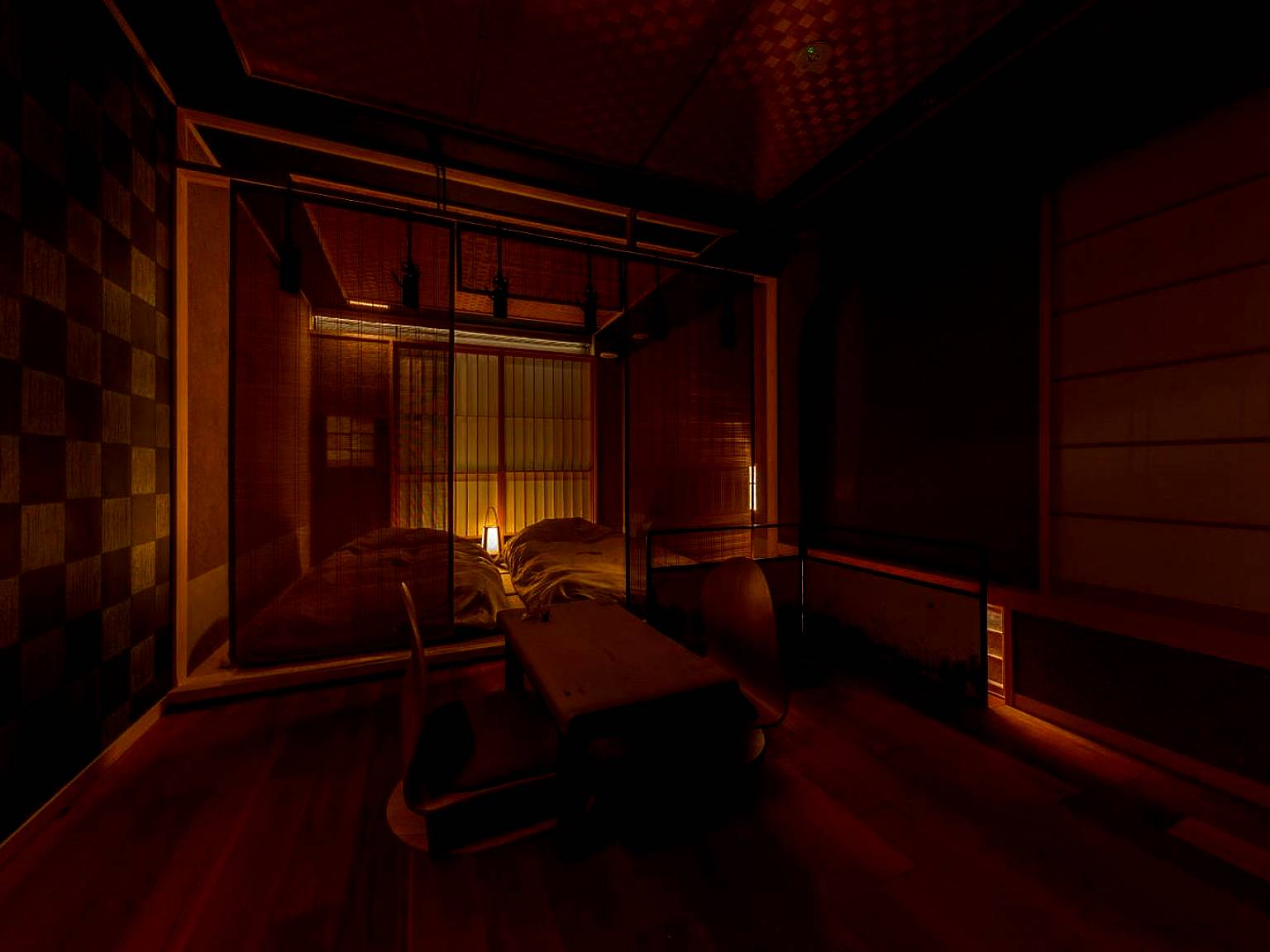
cyashitsu ryokan asakusa
Amazing ryokan with 10 rooms., set dates to show price · view on map.
Cyashitsu Ryokan Asakusa is a contemporary hotel located in Tokyo, Japan. The ryokan features a family-friendly restaurant that specializes in Japanese cuisine, and guests can also relax in the shared lounge area. The rooftop open-air bath provides a calm respite and offers a great view, making it a wonderful experience for guests. The ryokan also offers a traditional Japanese breakfast, and the staff are attentive and provide excellent service. The ryokan offers a unique and intimate atmosphere, with a total of 10 rooms where tradition and modernity blend together. The staff is known for being warm and welcoming, ensuring a relaxing stay for visitors. The location is excellent, with the ryokan being a short walk from the Senso-ji temple and close to local attractions. Overall, Cyashitsu Ryokan Asakusa offers a unique and authentic Japanese experience with modern amenities and warm hospitality. Show full description
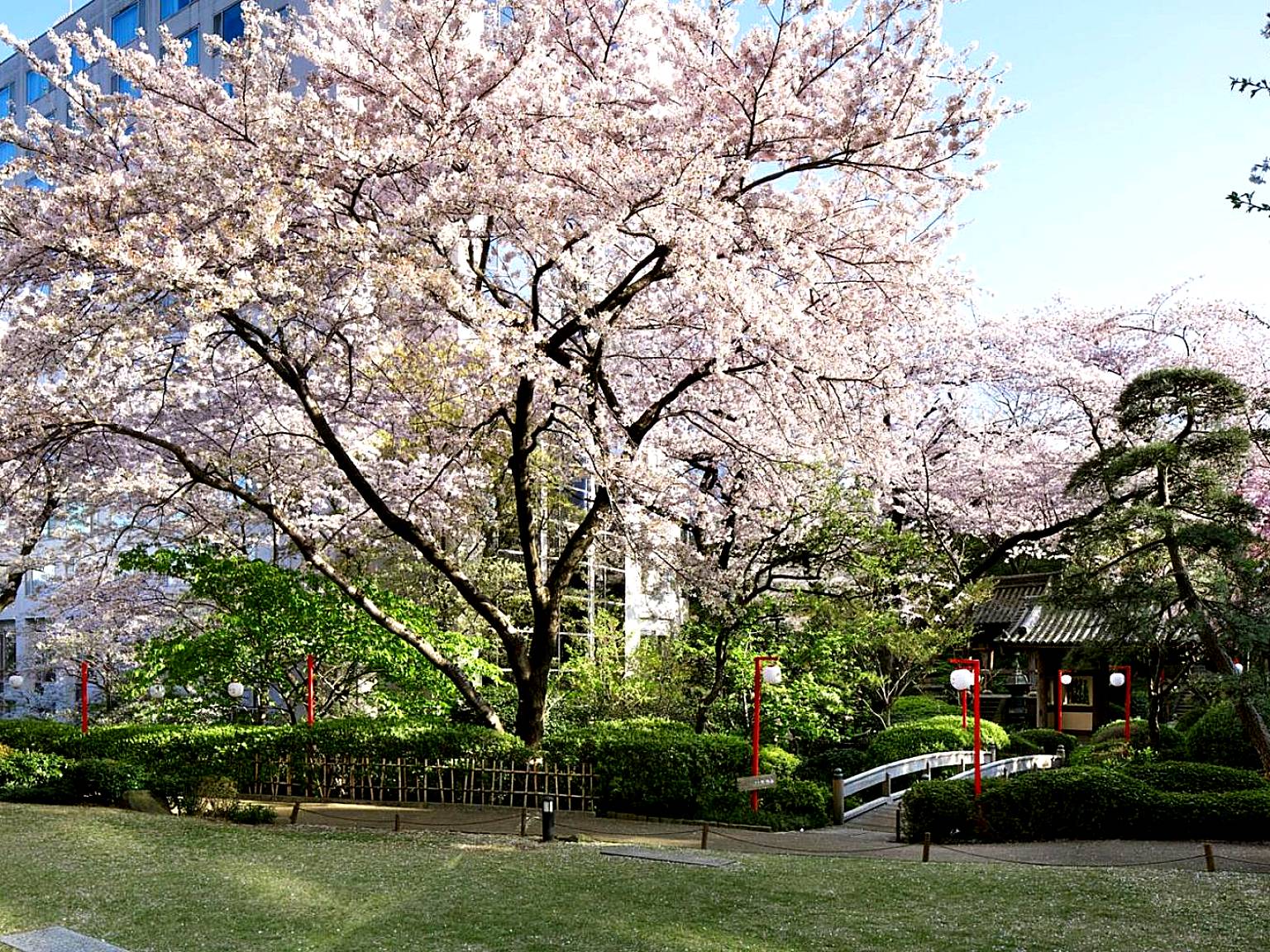
Grand Prince Hotel Takanawa Hanakohro
Amazing 5-star ryokan with 16 rooms..
Grand Prince Hotel Takanawa Hanakohro in Tokyo offers a luxurious stay with a range of amenities. The property also offers a complimentary Japanese-style breakfast, adding to the authentic experience. The hotel's special touches, such as Japanese yukata , tea, and snacks in the rooms, contribute to a luxury stay. The ryokan features a beautiful garden, an outdoor swimming pool, and a fitness center for guests to enjoy. The spa and wellness center provides a relaxing retreat, with spa facilities available. Guest reviews highlight the attentive staff, excellent breakfast, and spacious rooms with comfortable beds. The location is convenient for exploring various districts, making it a great choice for visitors to Tokyo. Facilities at this hotel include a fitness center , a swimming pool , garden and spa and wellness centre . Show full description
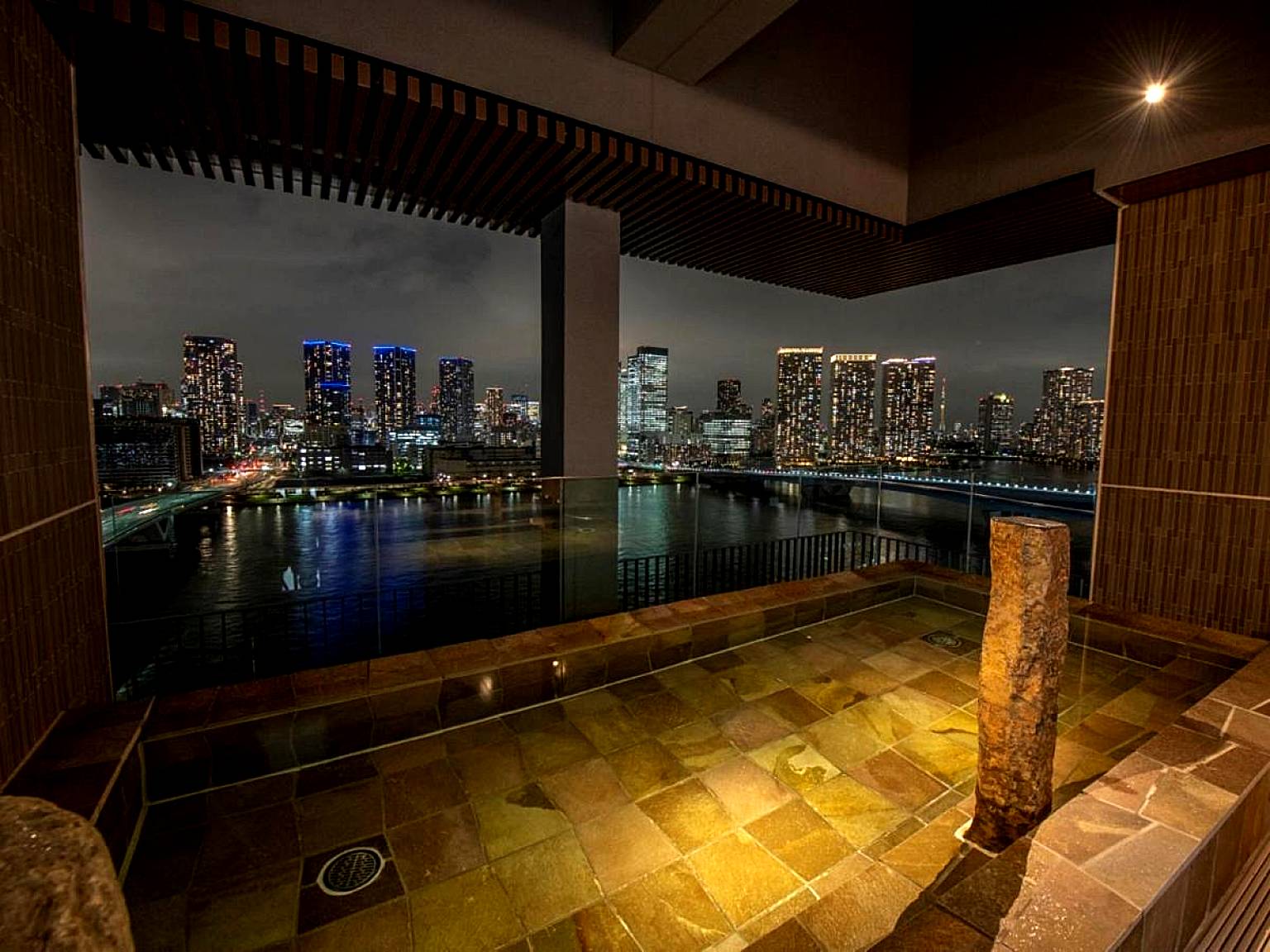
La Vista Tokyo Bay
Fabulous 4-star hotel with 681 rooms..
Opened February 2022 . La Vista Tokyo Bay is a 4-star hotel located in Tokyo, offering a hot spring bath with beautiful views of the bay. Guests have praised the fantastic breakfast buffet and the Japanese bath on the top floor with a view of the Rainbow Bridge. The hotel features a swimming pool, sauna, and spa facilities, including an indoor pool and a spa and wellness center. The rooms are quiet, well-equipped, and some offer city views or balconies. The hotel's convenient location close to a subway station provides easy access to explore the city. Facilities at this hotel include a sauna , a swimming pool , spa and wellness centre , open-air bath and hot-spring bath . Show full description
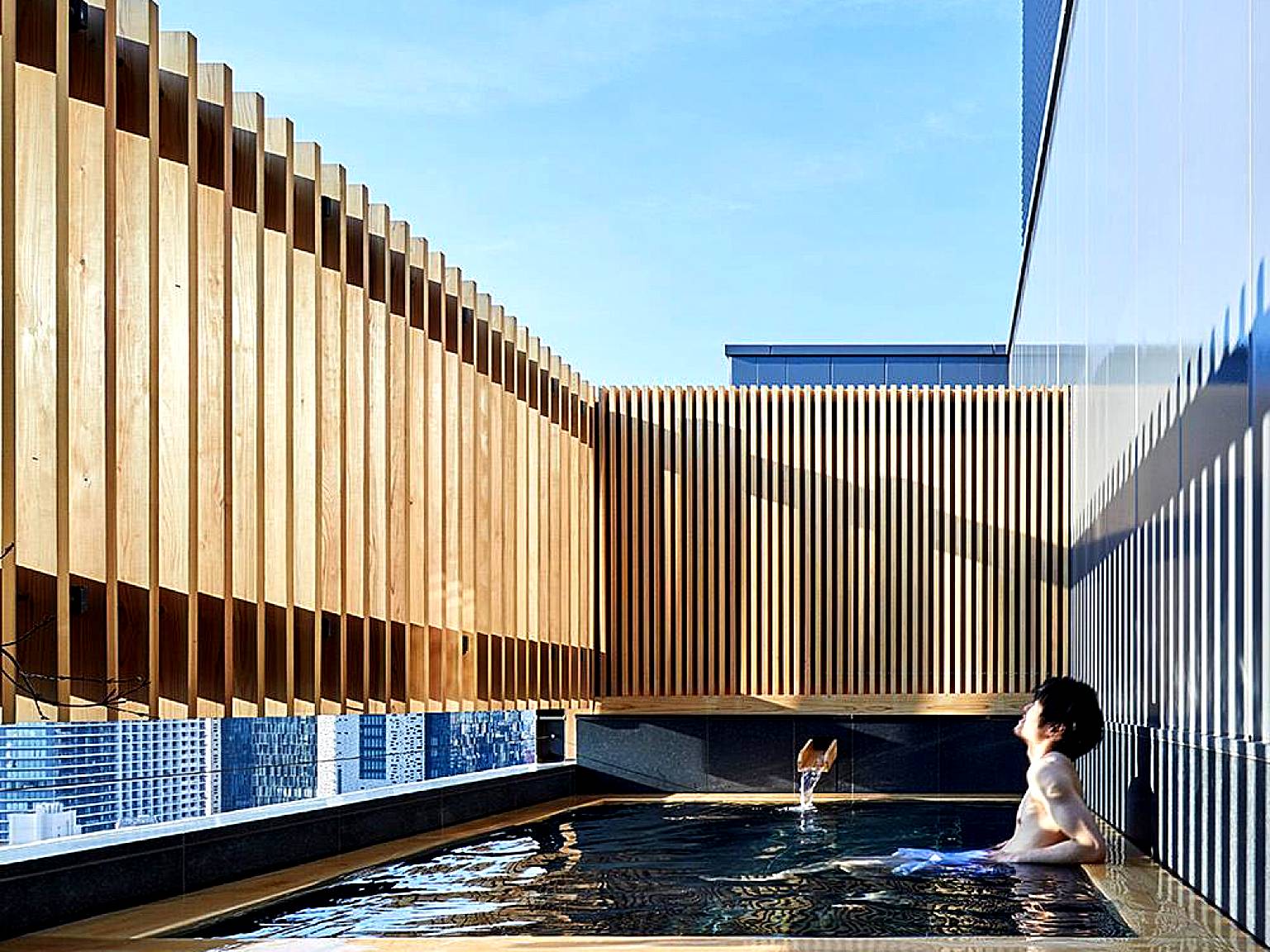
ONSEN RYOKAN YUEN SHINJUKU
Fabulous hotel with 192 rooms..
ONSEN RYOKAN YUEN SHINJUKU is a contemporary hotel located in the heart of Tokyo. The hotel also has a minimalist restaurant, providing a serene and authentic Japanese experience. The rooftop onsen, with both indoor and outdoor baths , offers a relaxing experience with stunning views of the city. The hotel's modern Japanese interior, rooftop onsen, and serene atmosphere make it a great choice for those seeking a traditional yet contemporary Japanese accommodation experience. The hotel offers simple rooms and features an open-air bath house, allowing guests to experience the traditional Japanese onsen culture. The property is attractively situated in the Shinjuku Ward district, offering easy access to nearby attractions and transportation. The hotel staff is multilingual and provides practical advice on the area. Show full description
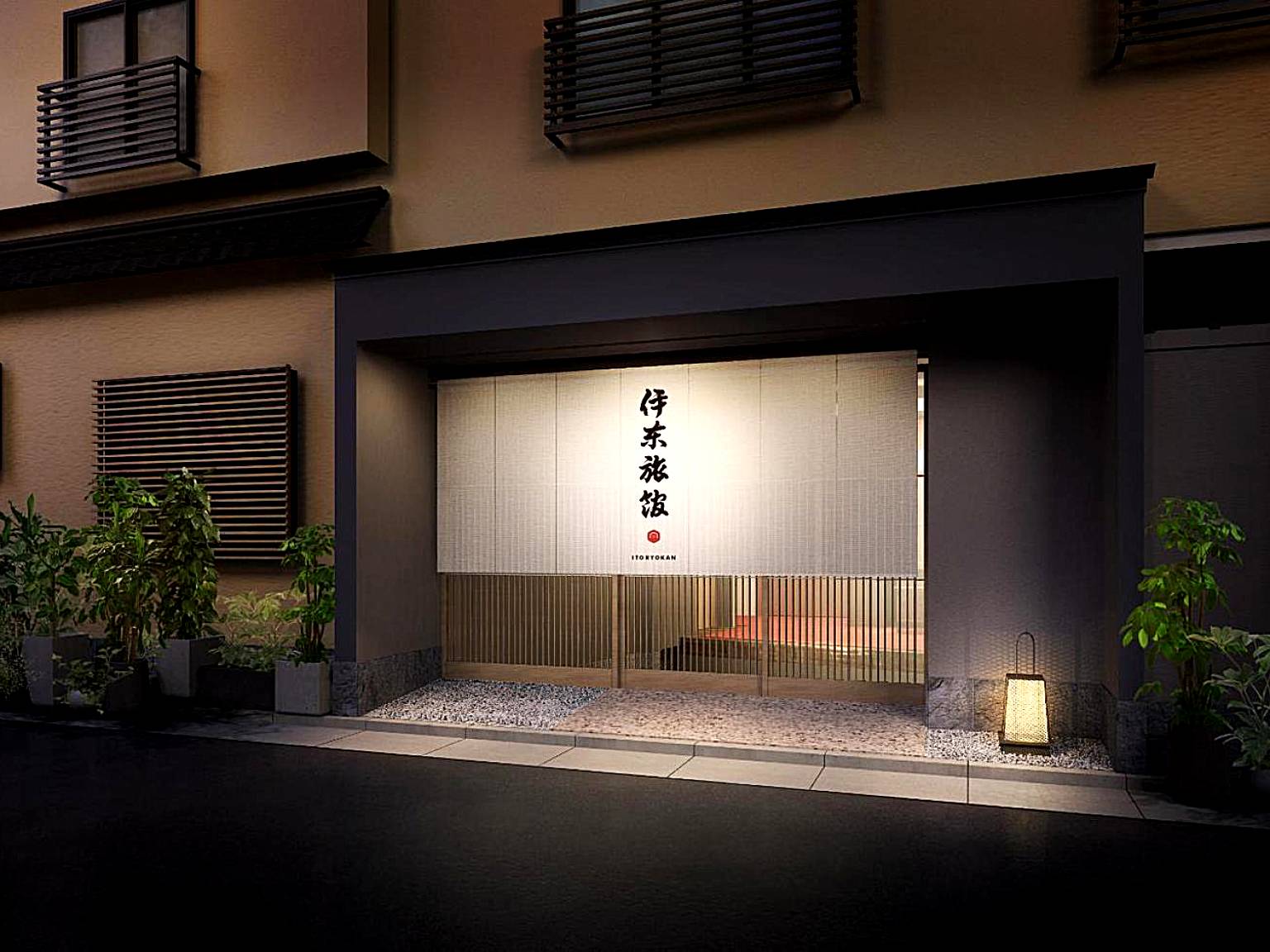
Superb ryokan with 11 rooms.
Ito Ryokan is a traditional Japanese inn located in central Tokyo. The ryokan serves a delicious Japanese-style breakfast, providing guests with an authentic culinary experience. The shared toilet and bathroom facilities are clean and well-maintained. Overall, Ito Ryokan offers an affordable option for those seeking a traditional Japanese accommodation experience in the heart of Tokyo. The ryokan offers a cozy and quiet atmosphere, with spacious rooms featuring tatami floor ing and futon bedding. The staff is known for their warm hospitality and proficiency in English, making guests feel welcome and comfortable. The neighborhood is described as cute and quiet, with easy access to the subway station and historical areas of Tokyo. Show full description
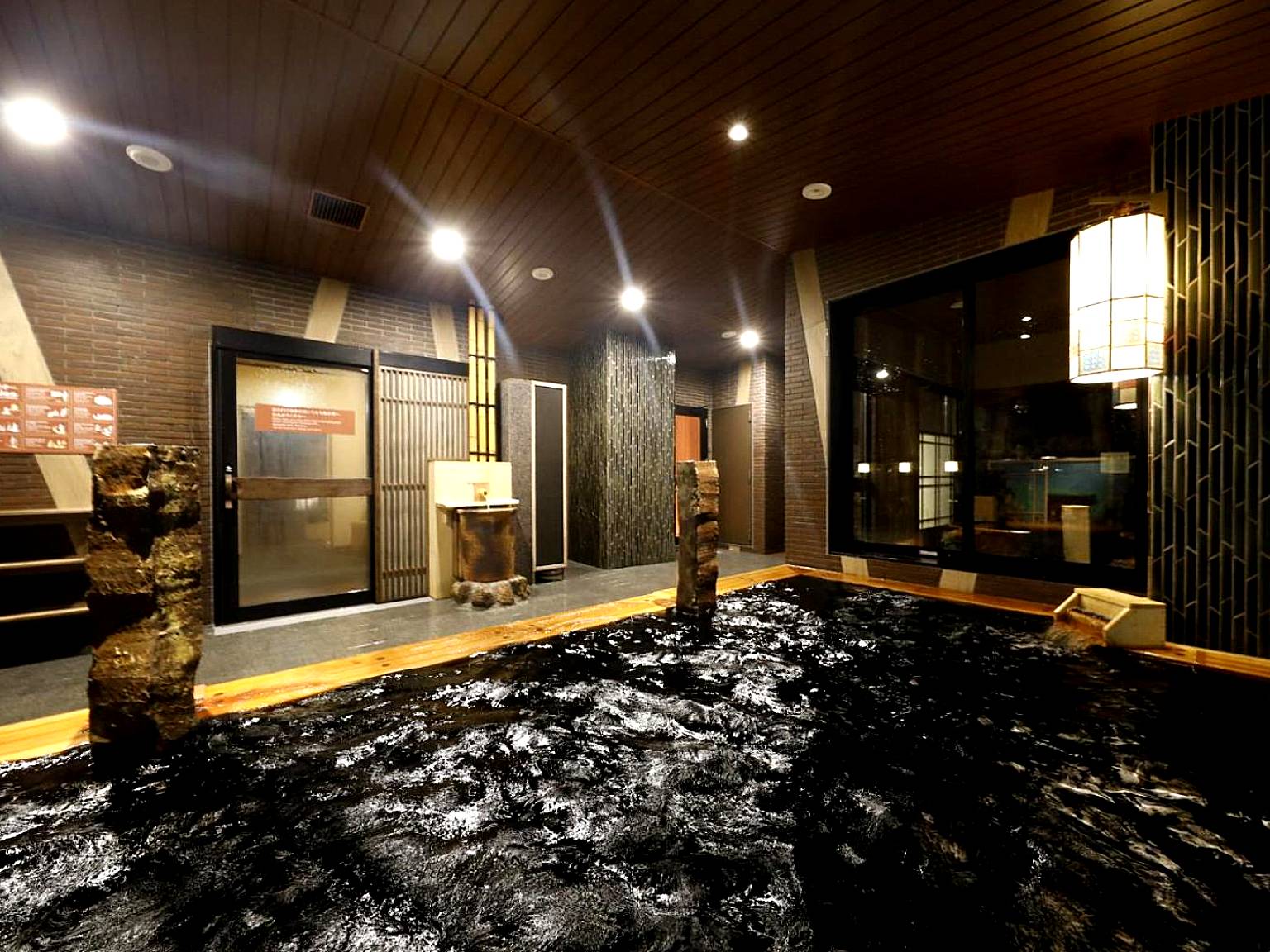
Onyado Nono Asakusa Natural Hot Spring
Fabulous 4-star hotel with 630 rooms..
Onyado Nono Asakusa Natural Hot Spring is a traditional Japanese-style hotel located in Tokyo. The hotel also features a natural hot spring bath , which is a unique and relaxing experience for guests. The staff is friendly and speaks multiple languages, including English and Japanese. Guests have praised the hotel's cleanliness, the comfort of the rooms, and the complimentary snacks and drinks provided, as well as the onsen experience. The hotel offers a variety of facilities, including a restaurant, sauna, and spa facilities. The rooms are air-conditioned and come with amenities such as a kettle, fridge, and flat-screen TV. The hotel's location is close to popular attractions such as the Senso-ji temple and Asakusa ROX Shopping Center. The hotel's traditional Japanese design and the availability of onsen and sauna facilities make it a great choice for those looking to experience a ryokan-style stay in the heart of Tokyo. Facilities at this hotel include a sauna and hot-spring bath . Show full description
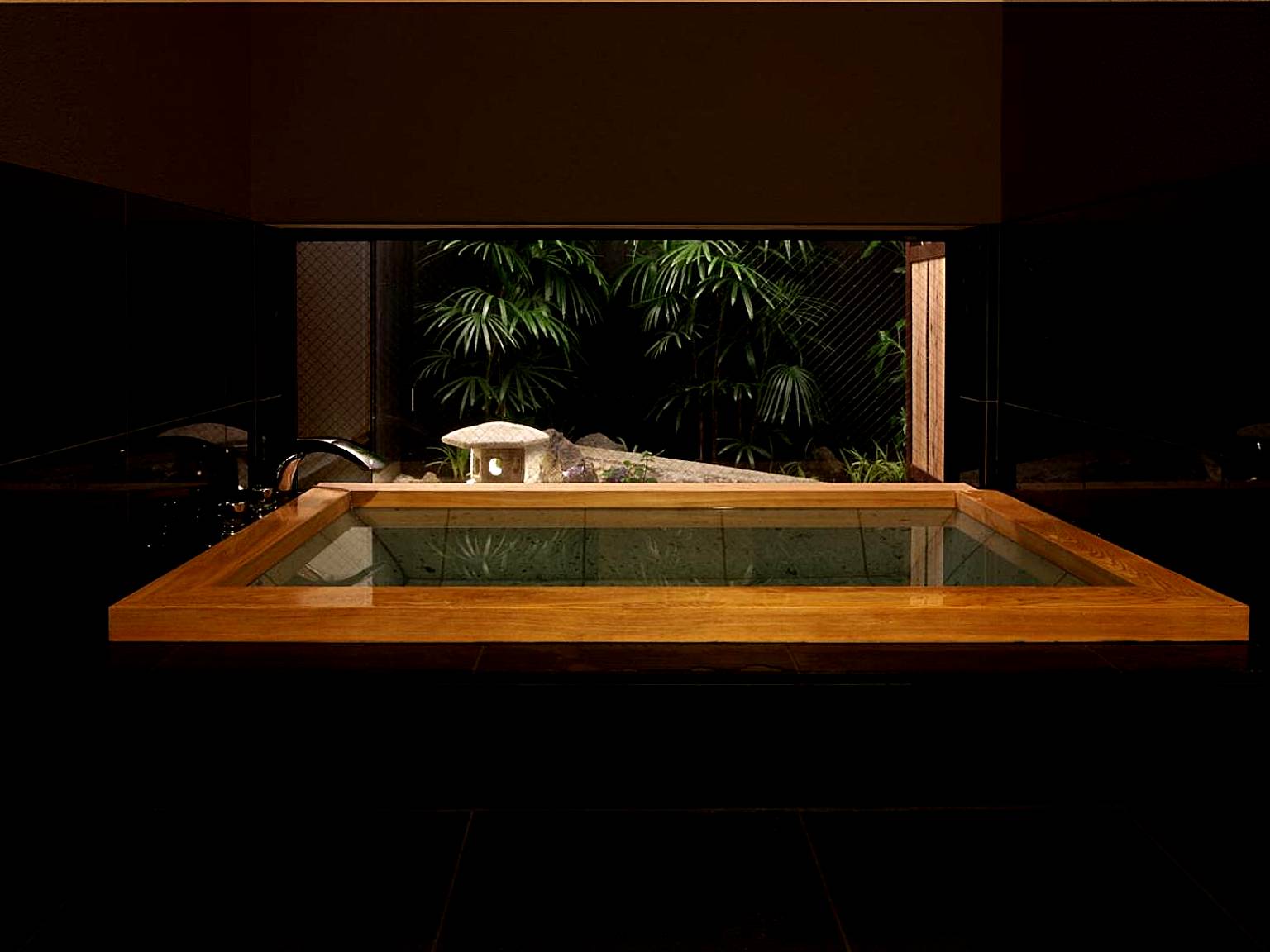
The Edo Sakura
Superb ryokan with 30 rooms..
The Edo Sakura is a traditional Japanese-style ryokan located in a quiet neighborhood, offering a peaceful atmosphere. The ryokan also offers a private reservable bath, allowing guests to enjoy a traditional onsen experience. Additionally, the ryokan provides a complimentary tea ceremony for guests to participate in. The ryokan also offers a Japanese-style breakfast, including vegan options, and the staff is accommodating and attentive to guests' needs. The rooms feature tatami mats and futon beds, providing an authentic Japanese experience. The staff is friendly, helpful, and fluent in English, providing excellent service. The location is convenient, with easy access to public transportation, making it a great base for exploring Tokyo. Overall, the Edo Sakura provides a genuine taste of Japanese hospitality and culture, making it a recommended choice for those seeking an authentic and relaxing stay in Tokyo. Show full description
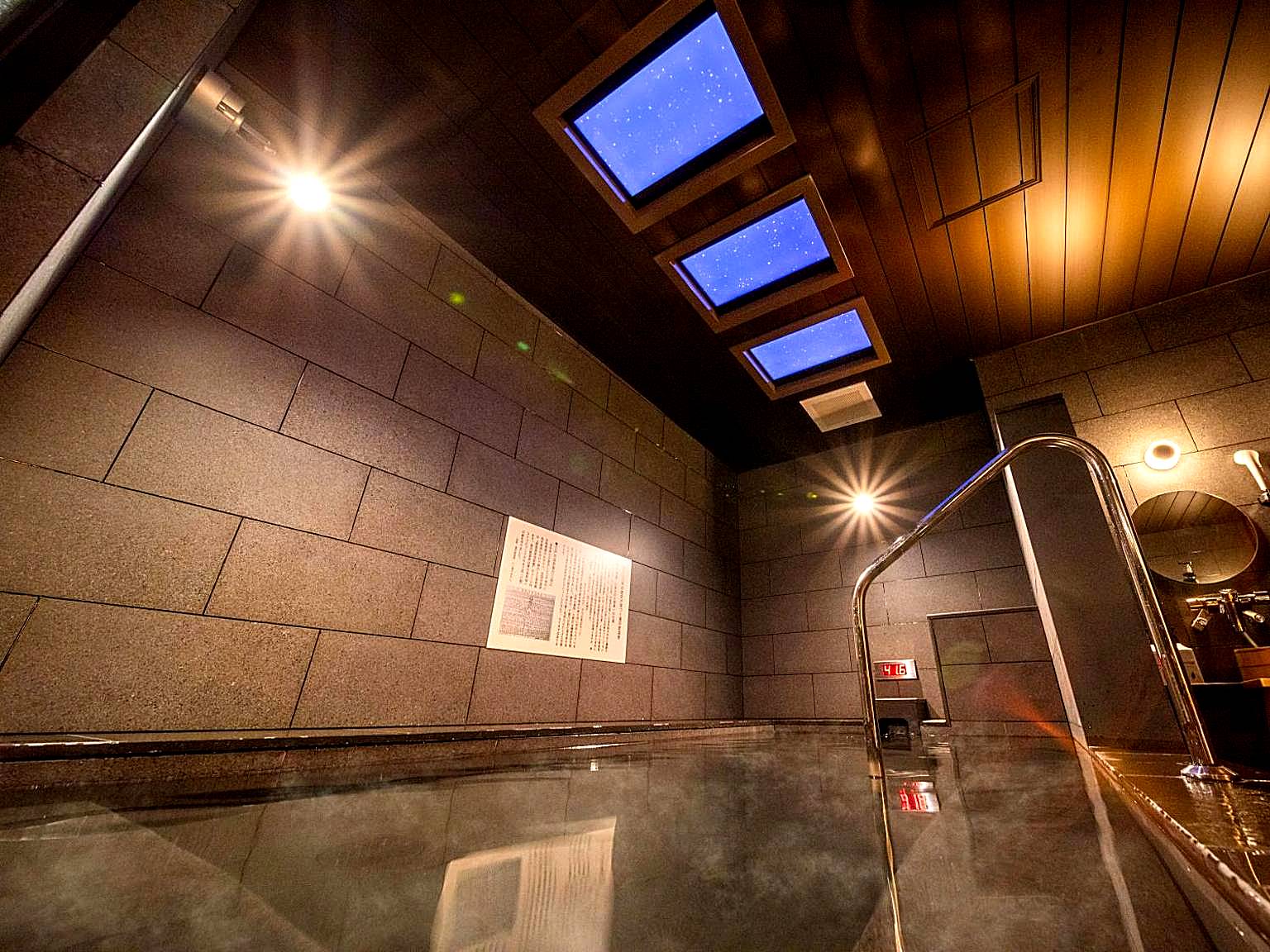
Super Hotel Premier Akihabara
Fabulous hotel with 98 rooms..
Super Hotel Premier Akihabara is a casual hot spring hotel located in Tokyo. It features indoor bathhouses for guests to enjoy, and the hot spring bath is available 24 hours, which is not common in suburban Tokyo. The staff are friendly and helpful, and the hotel provides amenities such as a public bath , a coin laundry, and a free open bar from 6 pm to 10 pm. The onsen is a great bonus, and the hotel is a good base to stay in Tokyo, with easy access to transportation and a variety of amenities available for guests. The hotel offers streamlined rooms with flat-screen TVs and provides a healthy breakfast for an additional charge. The hotel also offers free WiFi throughout the property. The location is convenient, close to Akihabara Station and various tourist attractions. Show full description
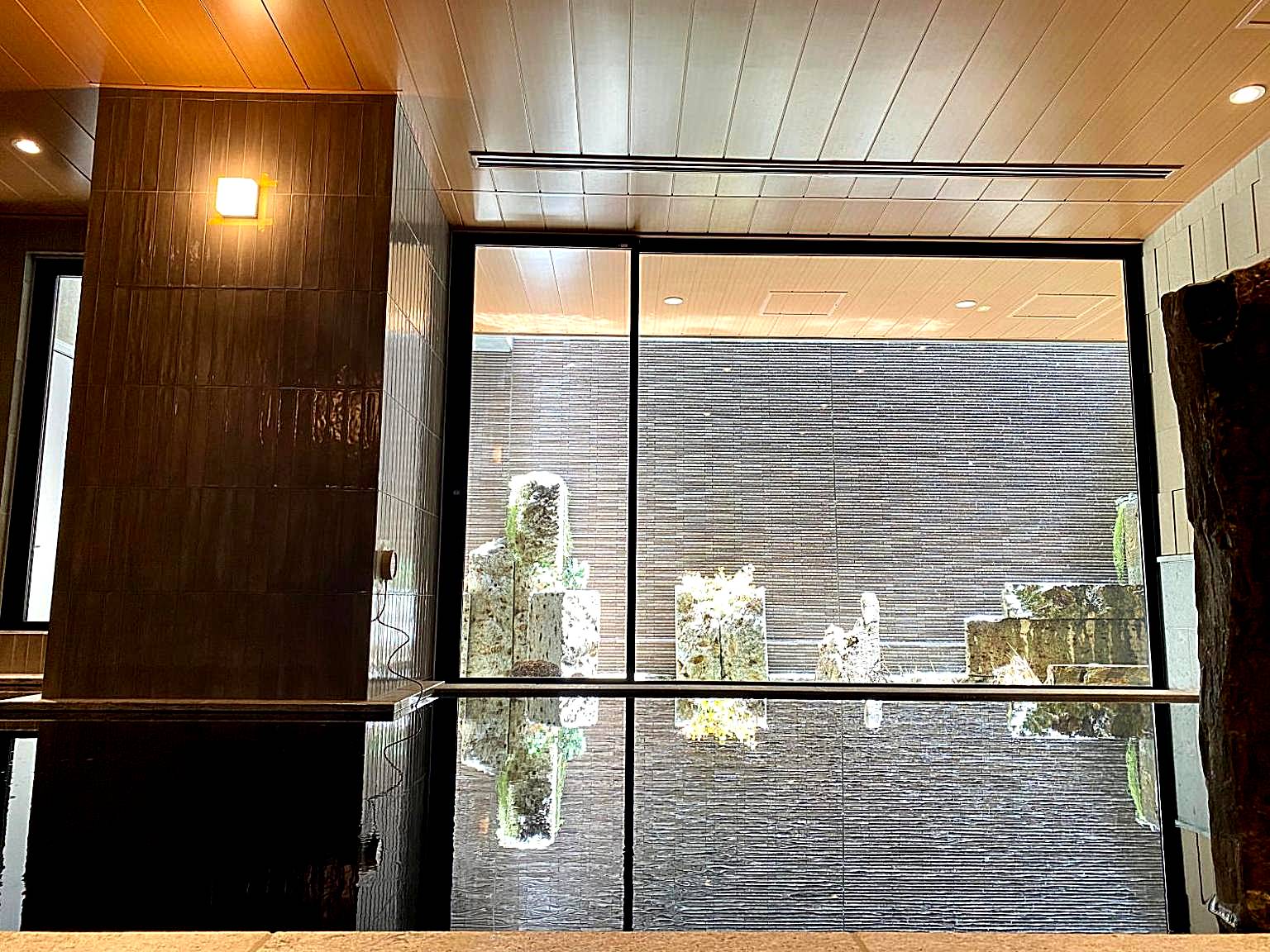
Dormy Inn Premium Ginza
Superb hotel with 153 rooms..
Opened May 2021 . Dormy Inn Premium Ginza is a hotel located in the center of Tokyo. It features a restaurant, sauna, and hot spring bath . The reception staff speak English and Japanese and are available to assist guests. The hotel offers air-conditioned rooms with free WiFi and private parking. The rooms are equipped with a kettle, desk, and flat-screen TV. Some rooms have a terrace. The hotel also provides bed linen and towels. The property is non-smoking and is situated near popular attractions such as Shimbashi Station Museum and Caretta Shiodome. The nearest airport is Tokyo Haneda Airport, located 15 km away. Facilities at this hotel include a sauna and hot-spring bath . Show full description
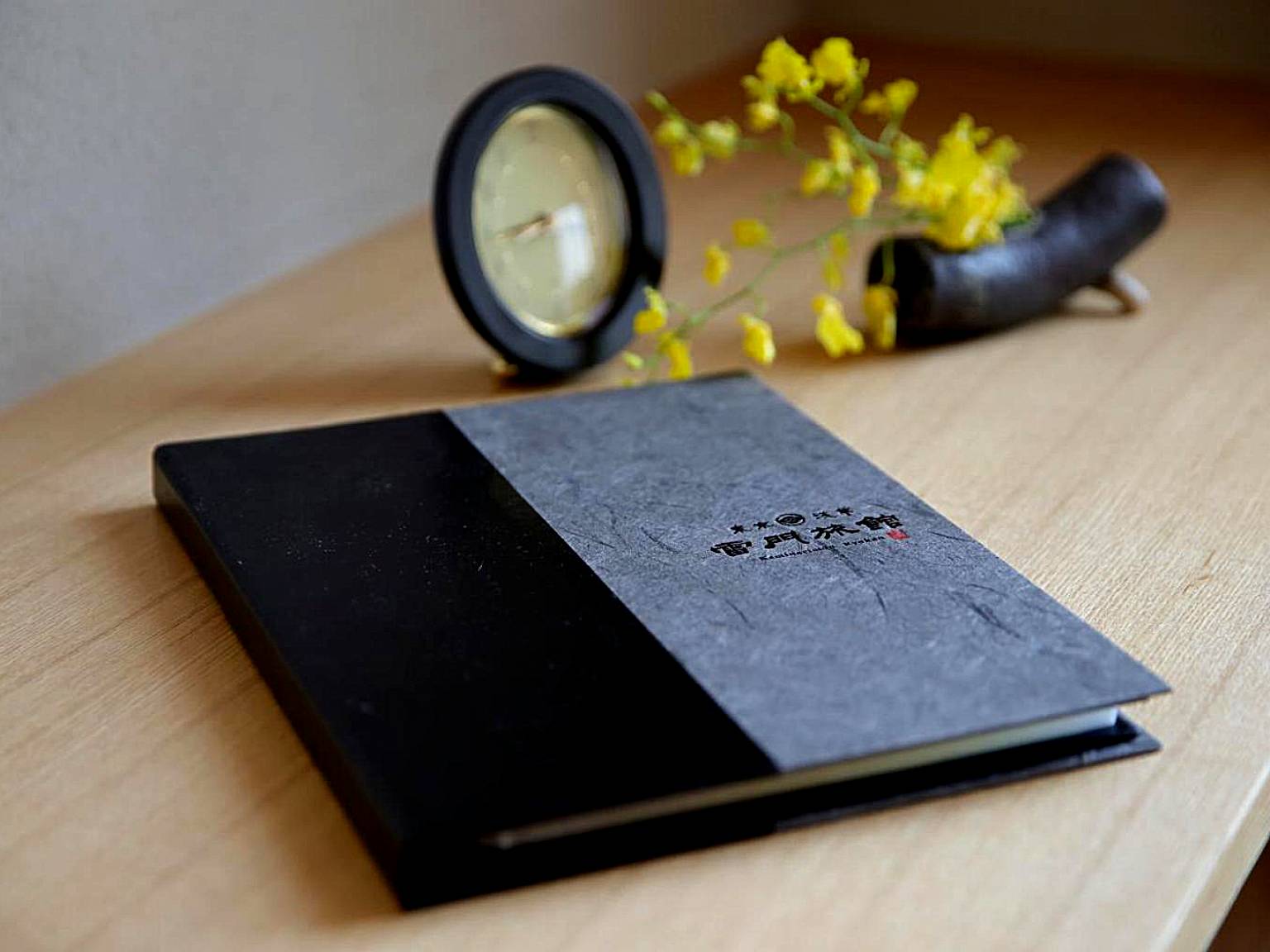
Kaminarimon Ryokan
Amazing 4-star boutique hotel with 14 rooms..
Kaminarimon Ryokan is a traditional Japanese-style hotel located in the heart of Asakusa, Tokyo. The hotel also offers a delicious traditional Japanese breakfast, providing guests with an authentic culinary experience. Overall, Kaminarimon Ryokan offers a peaceful and elegant stay, perfect for those seeking a genuine Japanese atmosphere in a central location. The hotel offers a genuine Japanese experience with its Japanese-style rooms, complete with futon beds and traditional decor. The rooms are spacious and clean, and some offer stunning views of Tokyo Skytree, Sensoji Temple, Nakamise Street, and Kaminarimon Gate. The hotel's location is convenient for travelers, situated right beside the front gate of Senso-ji and a short walk from Asakusa Metro Station. The staff are friendly and accommodating, with some able to speak English well. Show full description
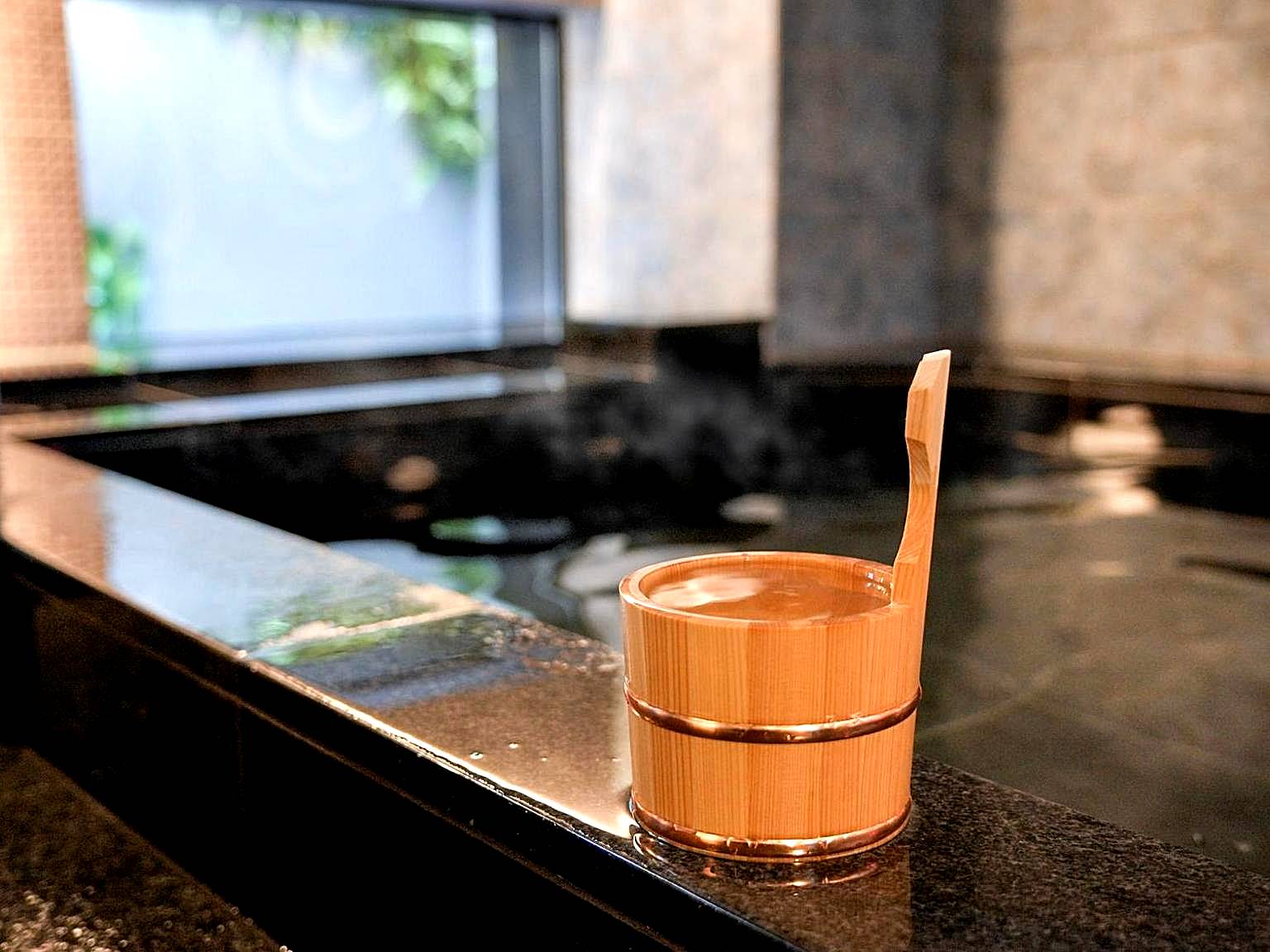
Super Hotel Premier Ikebukuro Natural Hot Spring
Fabulous hotel with 64 rooms..
Opened September 2022 . Super Hotel Premier Ikebukuro Natural Hot Spring is a 3-star hotel located in Tokyo. The hotel features a hot spring bath , which is a bonus for travelers looking to relax after a long day of exploring the city. The hotel's new and clean facilities, along with the onsen , make it a good choice for those visiting Tokyo. The hotel offers air-conditioned rooms with private bathrooms and free WiFi. Guests can enjoy a daily breakfast with buffet, continental, or Asian options. The staff are polite, helpful, and provide good service. The rooms are designed to seem spacious, and the hotel provides a selection of toiletries, including face masks, and a variety of pillows for guests' comfort. Show full description
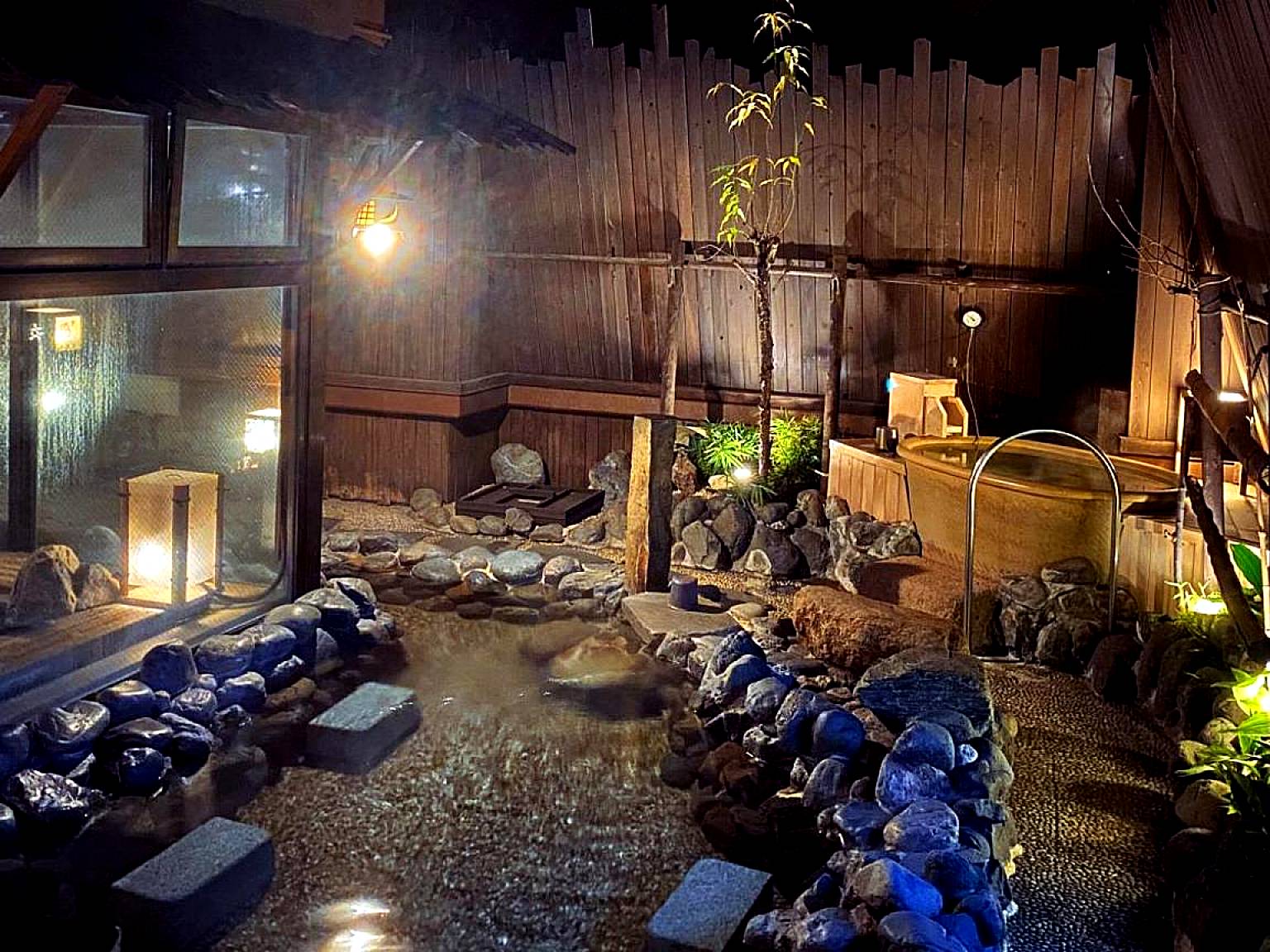
Dormy Inn Akihabara
Very good hotel with 209 rooms..
Dormy Inn Akihabara is a Japanese-style business hotel located in Tokyo. It also features a communal bathhouse with a sauna, providing guests with a traditional Japanese bath ing experience. The communal bathhouse and sauna offer a relaxing retreat for guests after a day of sightseeing. The onsen area at the top of the building is a highlight, with an indoor onsen, outdoor onsen, outdoor tub, and sauna. The hotel offers simple rooms and a restaurant. The hotel is conveniently situated with good transportation links, making it easy for guests to explore the surrounding area. The hotel's facilities include a restaurant, free internet access in the lobby, and coin-operated laundry machines with free detergent. The hotel also offers complimentary noodles in the evening, ice cream, and probiotic drinks. The staff is helpful and welcoming, and the hotel provides a cozy and comfortable experience for guests. Facilities at this hotel include a sauna , open-air bath and hot-spring bath . Show full description
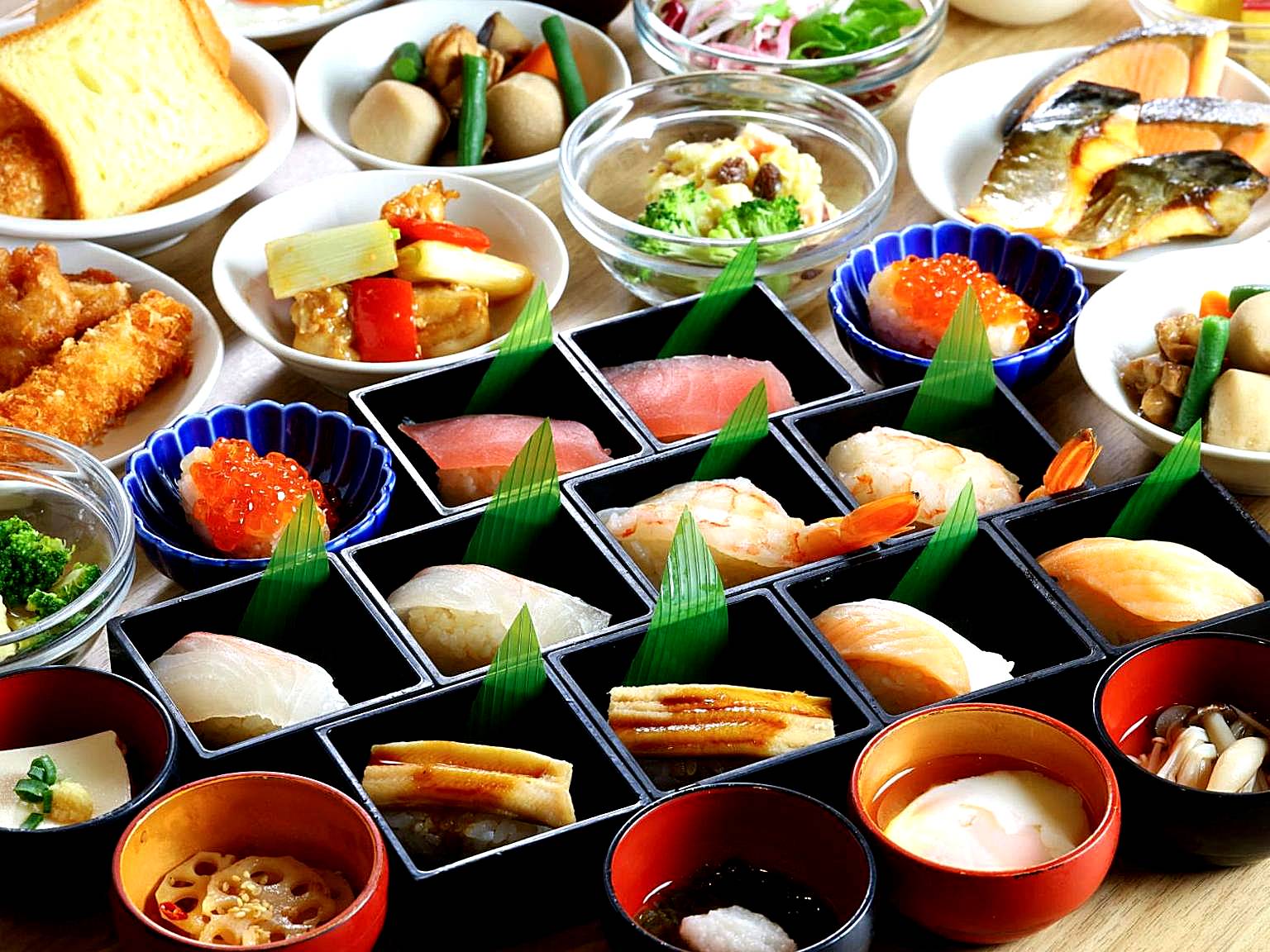
Dormy Inn Tokyo Hatchobori Hot Spring
Very good hotel with 213 rooms..
Dormy Inn Tokyo Hatchobori Hot Spring is a Japanese-style business hotel located in Tokyo. It offers a restaurant and a communal bathhouse with natural hot spring, sauna facilities, and modern rooms with free internet. The onsen (hot spring) at the hotel is a popular feature, offering a relaxing experience for guests. The hotel features down-to-earth rooms and is situated by the riverside. The hotel is conveniently located near Hatchobori Station, providing easy access to transportation. Additionally, the hotel provides a complimentary breakfast and free ramen noodles in the evening. The surrounding area is quiet, and the hotel offers a shuttle service to Tokyo Station, adding to the convenience of the location. Facilities at this hotel include a sauna , open-air bath and hot-spring bath . Show full description
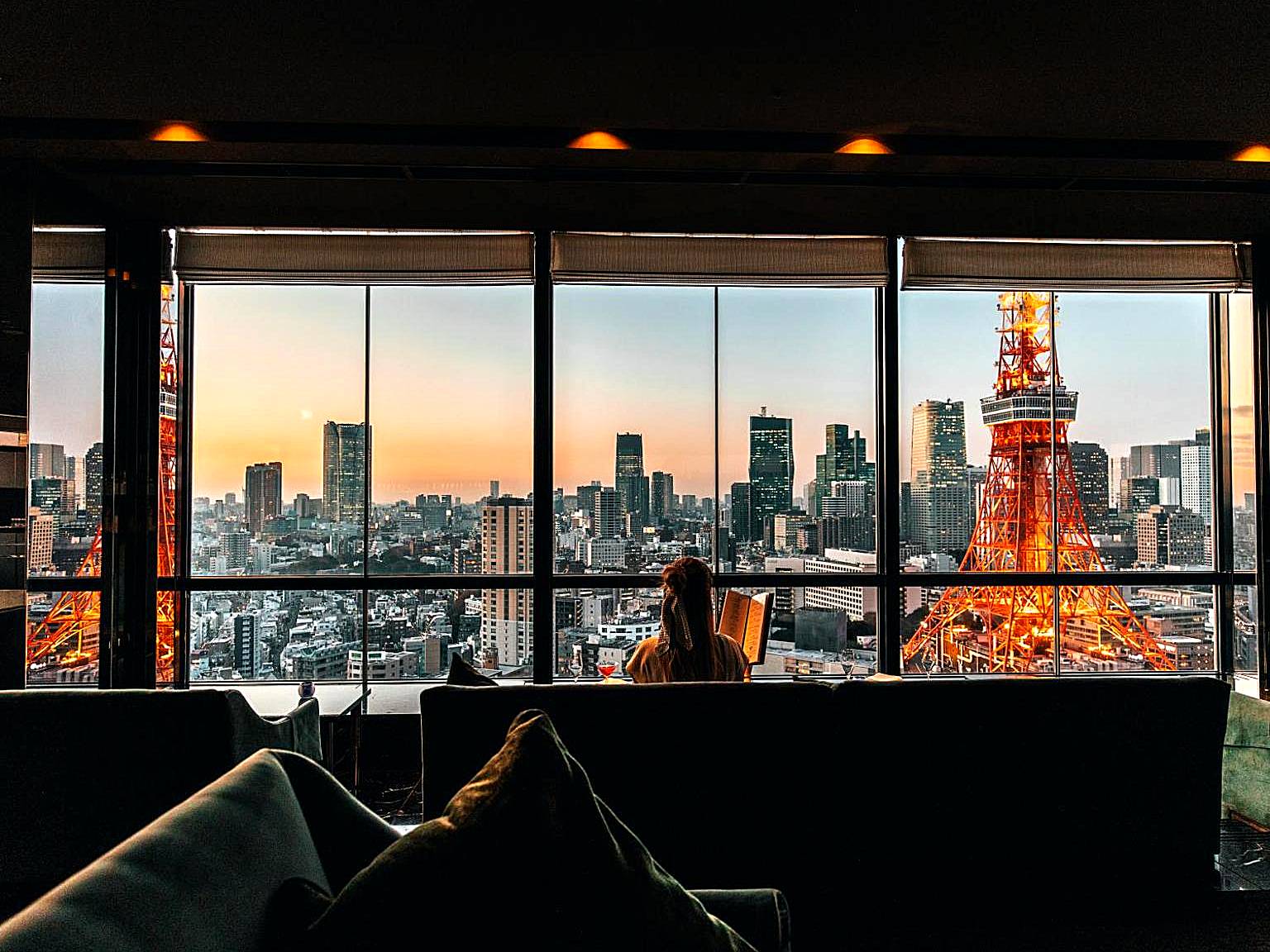
The Prince Park Tower Tokyo
Fabulous 5-star hotel with 203 rooms..
The Prince Park Tower Tokyo is an upscale hotel located in Tokyo, Japan. The hotel features a natural hot spring , also known as an onsen , and a full range of other amenities. The hotel boasts 7 restaurants, an indoor pool, and a sleek bar. The hotel offers polished rooms and suites, with stunning views of Tokyo and Tokyo Tower. Guests can enjoy panoramic city views at the French restaurant and the Sky Lounge. The hotel is situated in the upmarket Minato district, an area popular with travelers and expats, teeming with restaurants, bars, shops, galleries, and attractions. The hotel also offers a fitness center, sauna, and massage services, making relaxation easy for guests. Facilities at this hotel include a swimming pool and hot-spring bath . Show full description
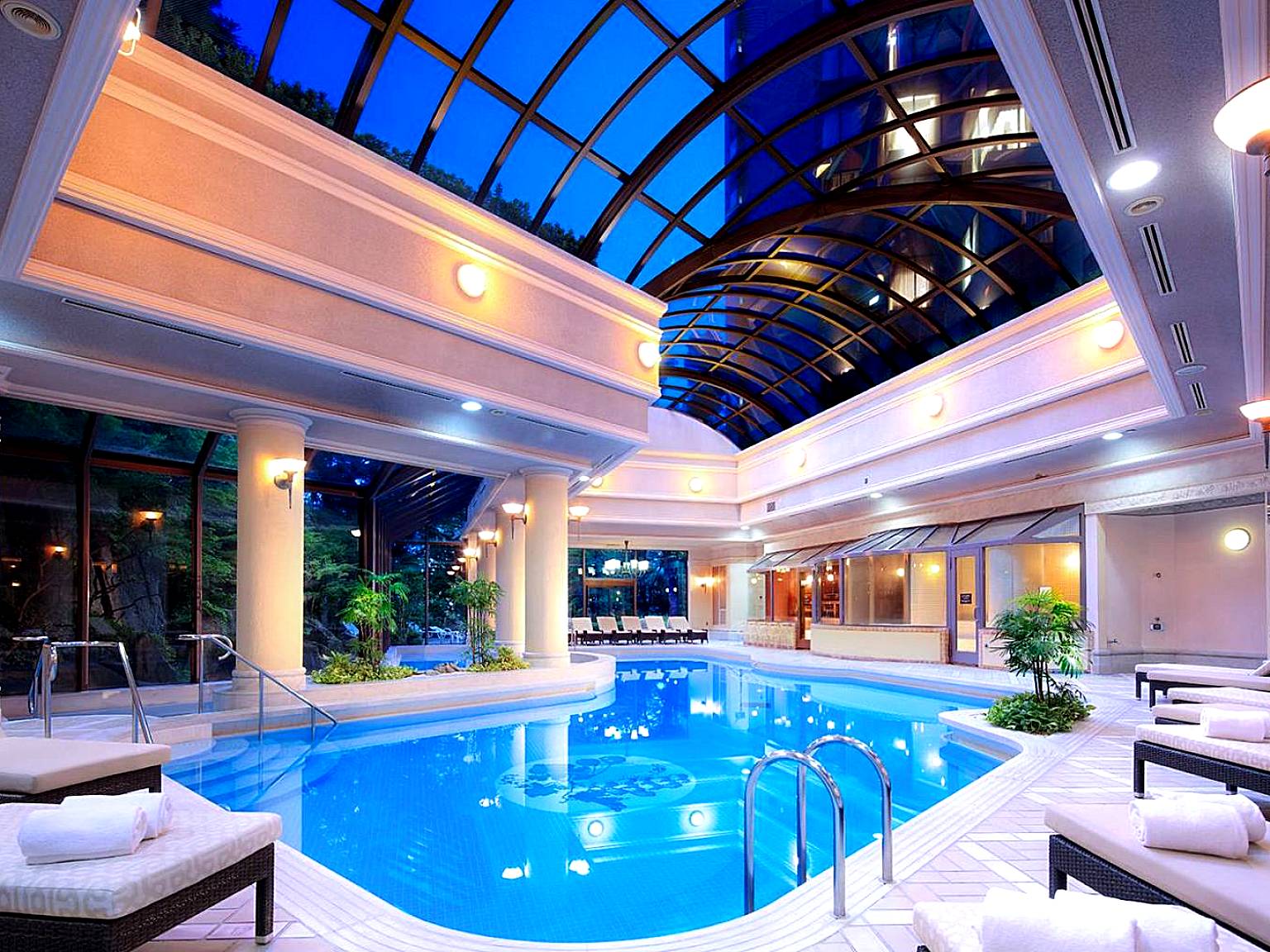
Hotel Chinzanso Tokyo
Superb 5-star boutique hotel with 92 rooms..
Hotel Chinzanso Tokyo is a refined property located in Tokyo, Japan. The spacious rooms provide views of the Japanese garden or the city. The on-site YU The Spa features massages with scented oils and traditional Japanese hot-spring baths, as well as an open-air heated hot tub and a hot spring bath . The hotel also has a fitness center, sauna, and an indoor pool. The hotel offers multiple restaurants, lush gardens, a spa, and an indoor pool. The hotel also features one-of-a-kind suites, ranging from 83m2 to 280m2 in size. Guests can enjoy seasonal events and unforgettable culinary experiences. The hotel's garden is a place of seasonal beauty, offering spring cherry blossoms, summer fireflies, autumn leaves, and winter camellias. The property is known for offering its guests the chance to enjoy a sea of clouds in the heart of the city. The restaurants on-site offer a range of Japanese and international cuisine, and the hotel is located in a quiet neighborhood close to public transportation. Facilities at this hotel include a fitness center , a sauna , a swimming pool , hot tub , garden , spa and wellness centre and hot-spring bath . Show full description
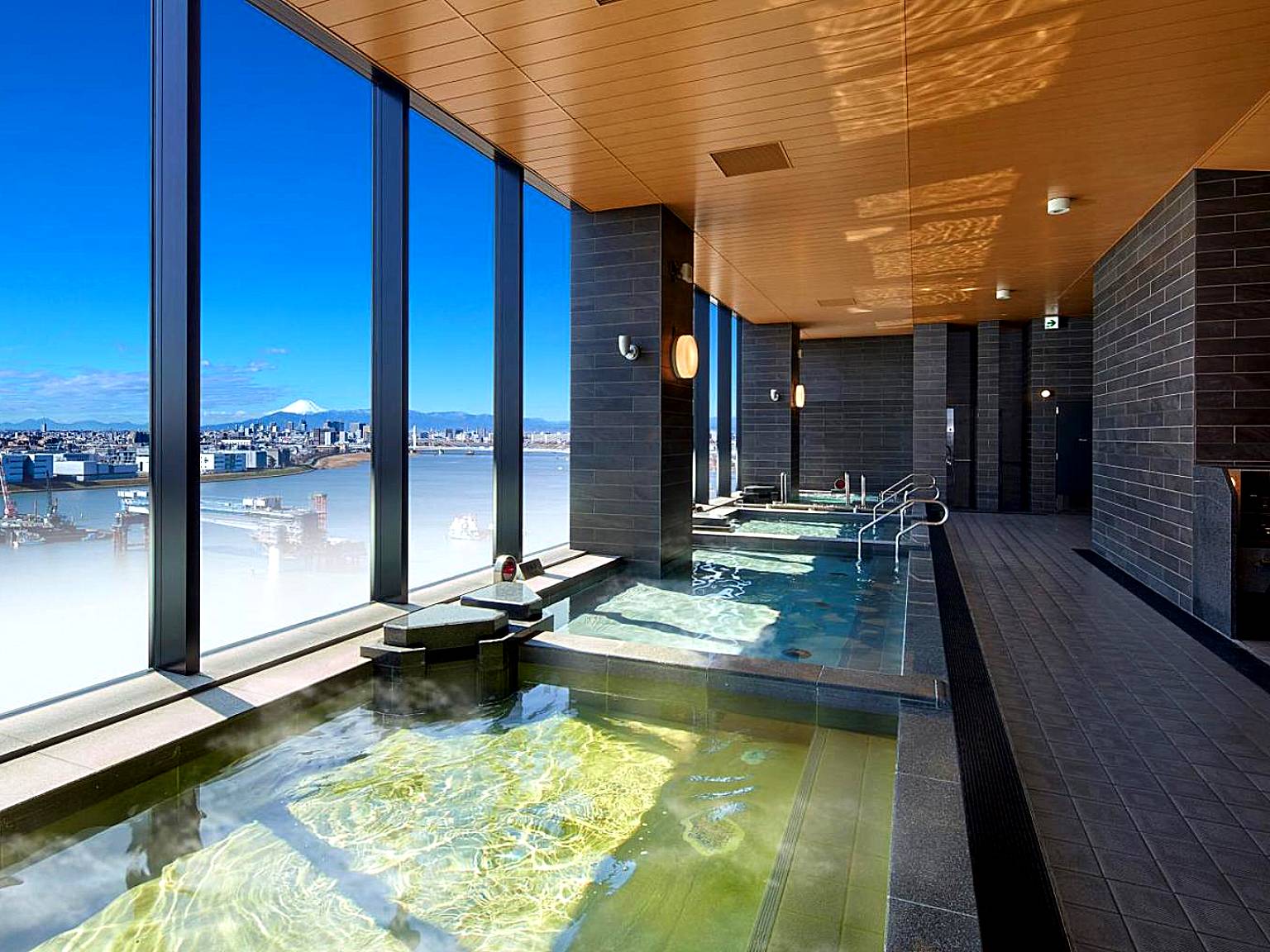
Villa Fontaine Premier Haneda Airport
Superb 5-star hotel with 160 rooms..
Villa Fontaine Premier Haneda Airport in Tokyo is a modern hotel connected to Haneda Airport International Passenger Terminal. Guests can enjoy an open-air hot spring bath , stone spa, and sauna for relaxation. The hotel offers a fitness center, bar, and free WiFi throughout the property. The rooms feature air conditioning, flat-screen TVs, and views of the river. The on-site facilities include 30 restaurants, 60 shops, a business center, and vending machines with drinks. The hotel also provides a buffet or American breakfast and offers a concierge service, luggage storage, and currency exchange. Facilities at this hotel include a fitness center , a sauna , hot tub , spa and wellness centre , open-air bath and hot-spring bath . Show full description
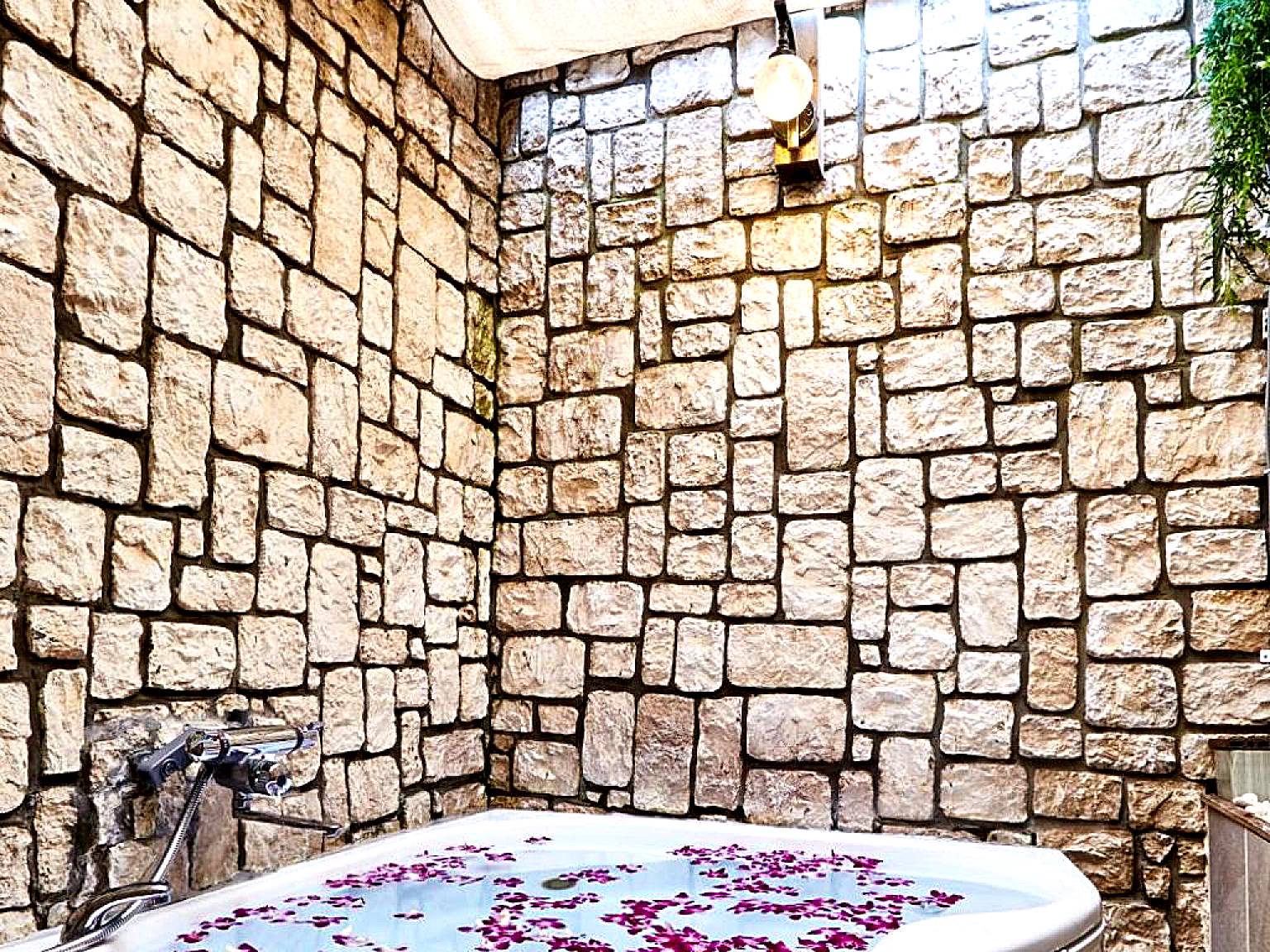
Petit Bali Ikebukuro
Very good hotel with 57 rooms..
Petit Bali Ikebukuro is a cozy love hotel located in the center of Tokyo. The rooms have a private bathroom with a shower, free toiletries, and a hairdryer. The hotel offers air-conditioned rooms with a shared lounge and free WiFi. It's conveniently situated near Ikebukuro Station and is close to Nishi-Ikebukuro Park and Metropolitan Plaza. The property features a bar/lounge and a spa, and some sources mention karaoke facilities. Guests can enjoy playing darts at the hotel, and the reception can provide tips on the area. The love hotel provides room service and is within walking distance of popular shopping centers and parks in the Ikebukuro area. Show full description
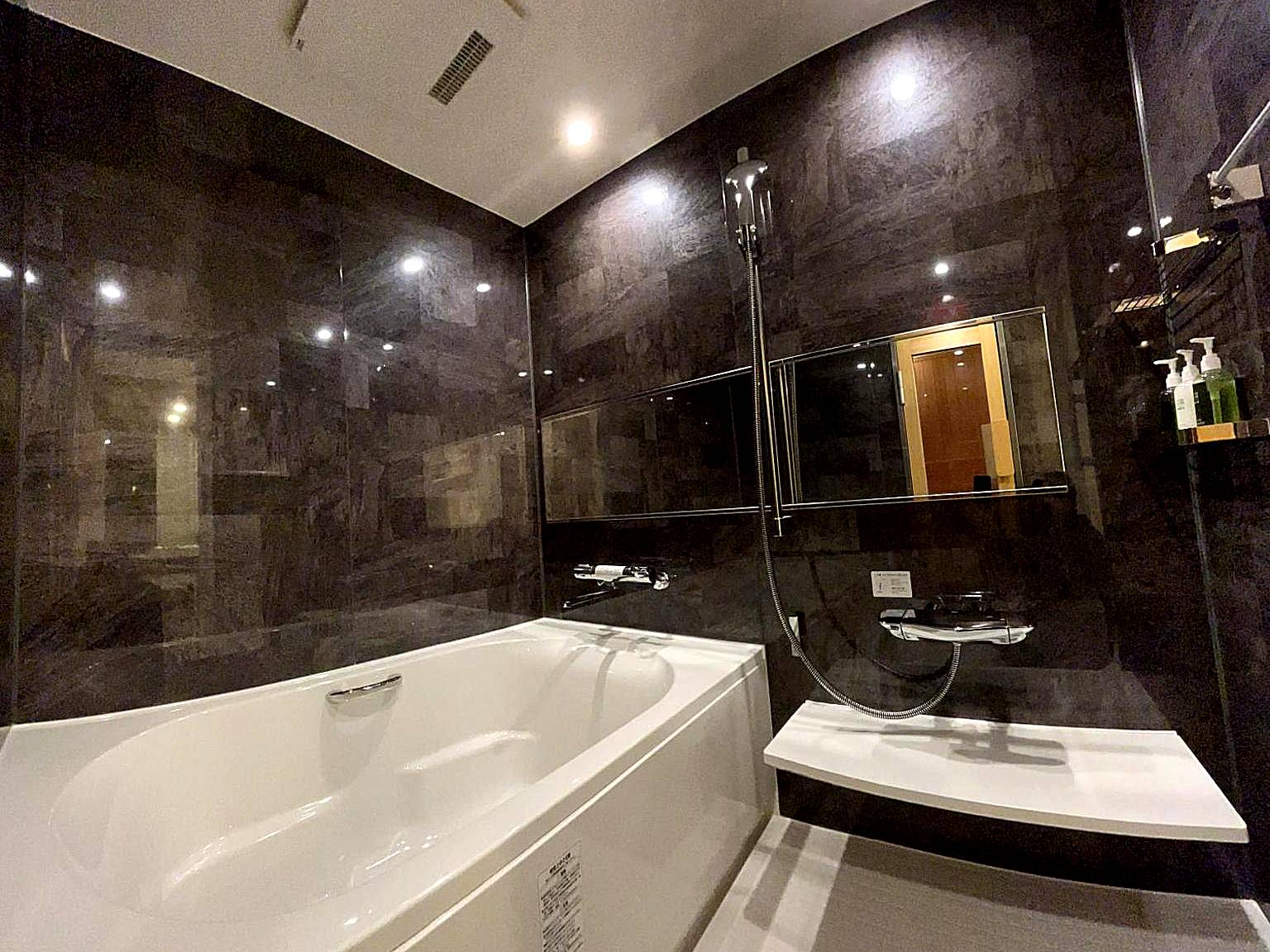
PROSTYLE RYOKAN TOKYO ASAKUSA
Fabulous 4-star boutique hotel with 44 rooms..
The PROSTYLE RYOKAN TOKYO ASAKUSA is a modern hotel located in Japan, offering airy, minimalist rooms and suites. The rooms feature traditional Japanese tatami mats and some rooms have a private open-air bath , providing a blend of traditional Japanese and modern Western style. The hotel features a restaurant with a terrace and a bar. It is situated in the heart of Tokyo, offering a convenient location for exploring the city. The hotel also offers a shared lounge and bicycle rental facilities. Guests can enjoy a continental or an American breakfast during their stay. The hotel is newly built, ensuring that all rooms and facilities are in perfect condition. The staff provides excellent service and the location is great for exploring Asakusa and its surroundings. Show full description
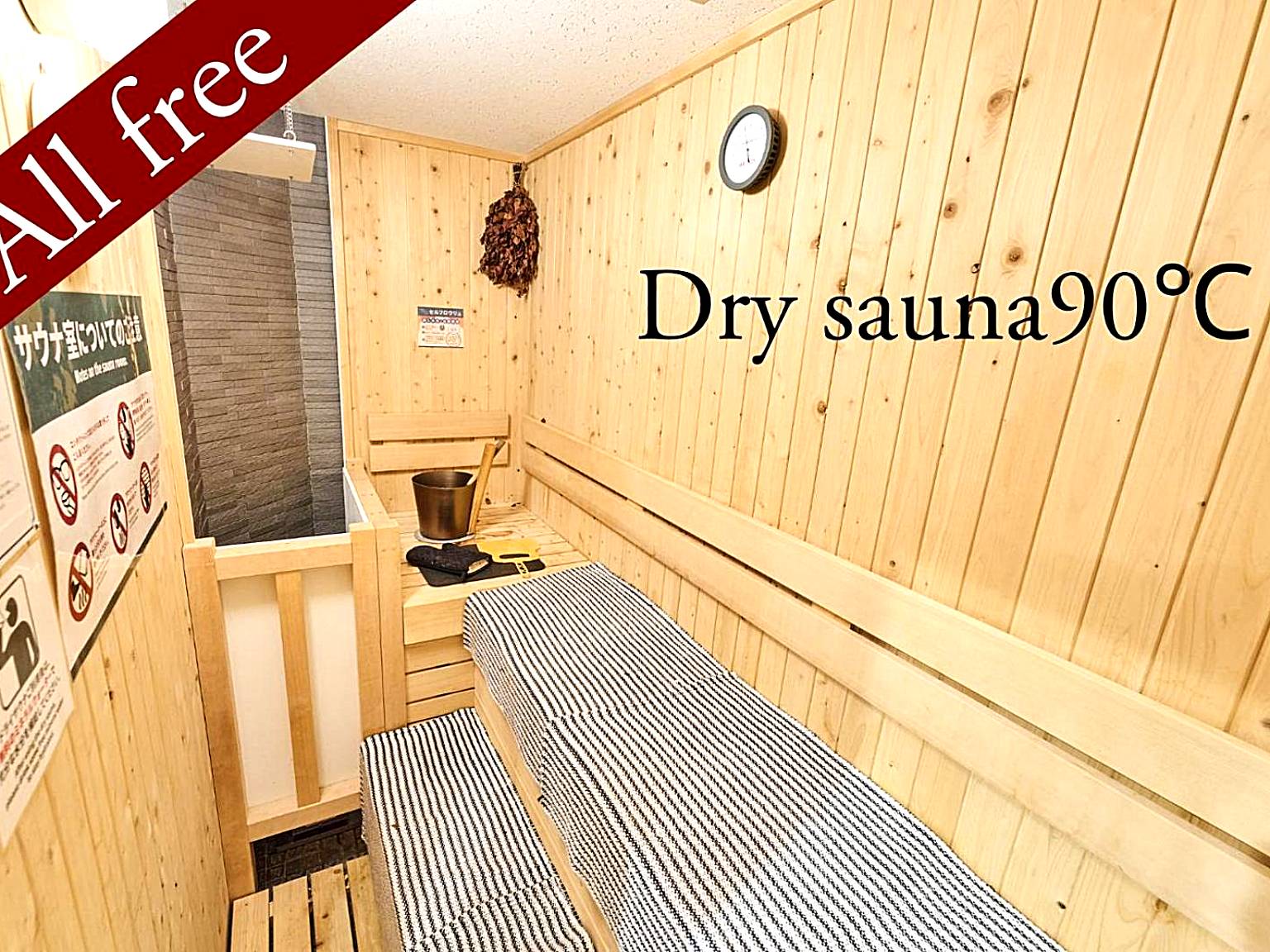
Anshin Oyado Tokyo Shinjuku Ekimaeten - Male Only
Very good capsule hotel with 777 rooms..
Anshin Oyado Premier Shinjuku is a male-only capsule hotel located in Tokyo, just a 2-minute walk from JR Shinjuku Station and Shinjuku 3-chome station. The sleeping capsules are air-conditioned, fitted with a flat-screen TV, and come with shared toilets and bathing facilities that provide brand amenities. The hotel offers an artificial hot spring bath , sauna, and a spa and wellness center. Guests can enjoy free hot drinks, unlimited alcoholic beverages, and white rice. The hotel also provides an internet cafe, complimentary Wi-Fi, and a free breakfast. Additionally, guests have access to a mist sauna, vending machines for snacks and drinks, and a clothing shop. The hotel is conveniently located near popular tourist spots, including the Shinjuku Gyoen National Garden and the Robot Restaurant. Facilities at this hotel include a sauna , hot tub , spa and wellness centre and hot-spring bath . Show full description
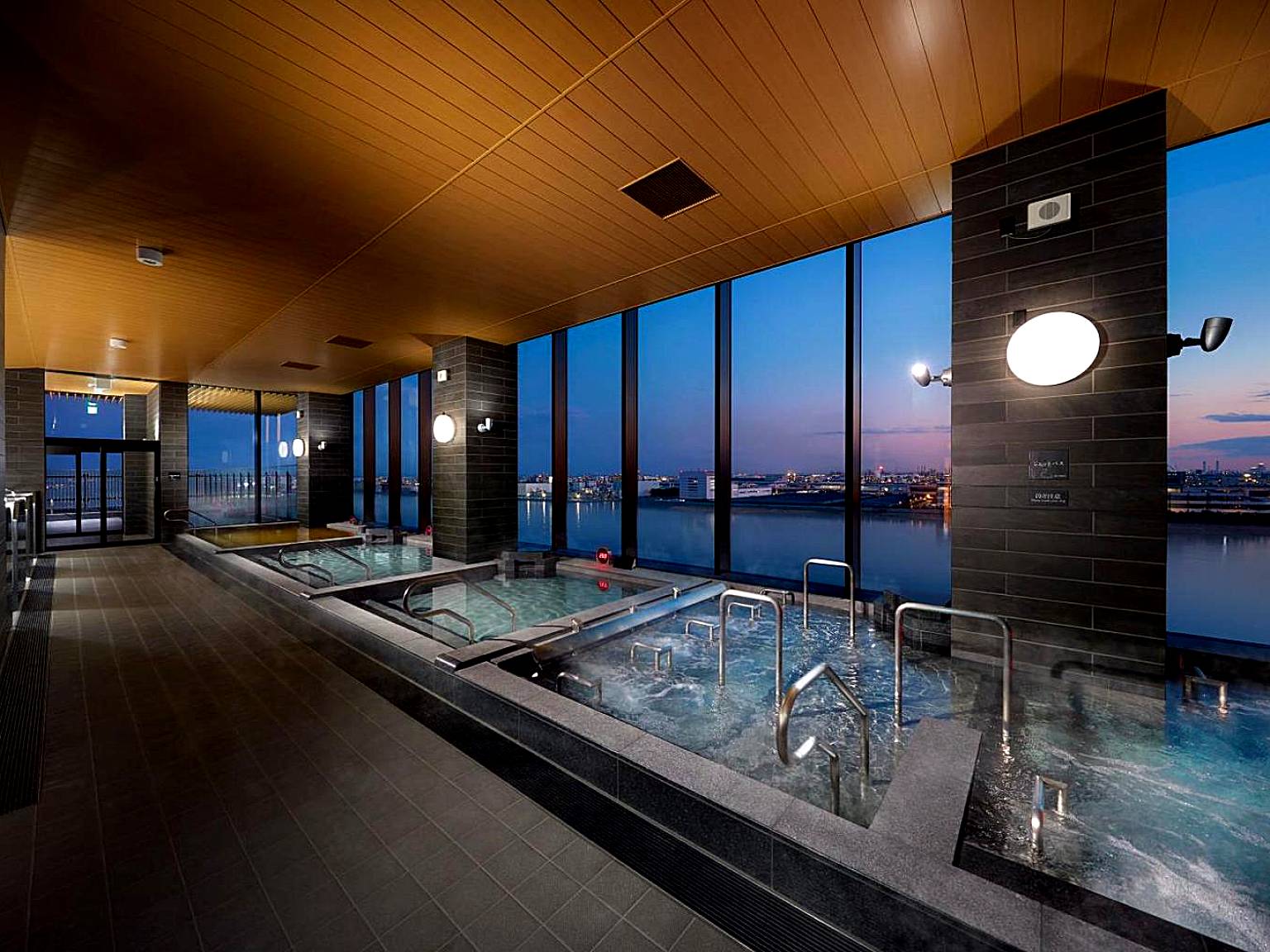
Villa Fontaine Grand Haneda Airport
Very good 4-star hotel with 2136 rooms..
Set in Tokyo and connected to Haneda Airport International Passenger Terminal, Villa Fontaine Grand Haneda Airport offers accommodation with a bar and private parking. The accommodation offers an open-air hot spring bath , stone spa, sauna for guests to relax, while 30 restaurants are available onsite along with 60 shopping and gift stores. Featuring a restaurant, the 4-star hotel has air-conditioned rooms with free WiFi, each with a private bathroom. The accommodation features a 24-hour front desk, a business centre and currency exchange for guests. The units in the hotel are equipped with a kettle. At Villa Fontaine Grand Haneda Airport all rooms are fitted with a flat-screen TV with satellite channels. A buffet breakfast is available every morning at the accommodation. Facilities at this hotel include a fitness center , a sauna , hot tub , spa and wellness centre , open-air bath and hot-spring bath . Show full description
By Benjamin Thompson
This is my list with the best ryokans & onsens in Tokyo.
Explore by neighbourhood
Set your dates.
to show prices and availability
Get my guide to hot new cafés, eateries and shops in Tokyo.

- About this site
Popular Destinations
- Minami Uonuma
More destinations
© Copyright 2020-2024 Ryokansjapan.com All Rights Reserved
©Arukikata. Co. , Ltd. | ©Bringer Japan Z Inc.
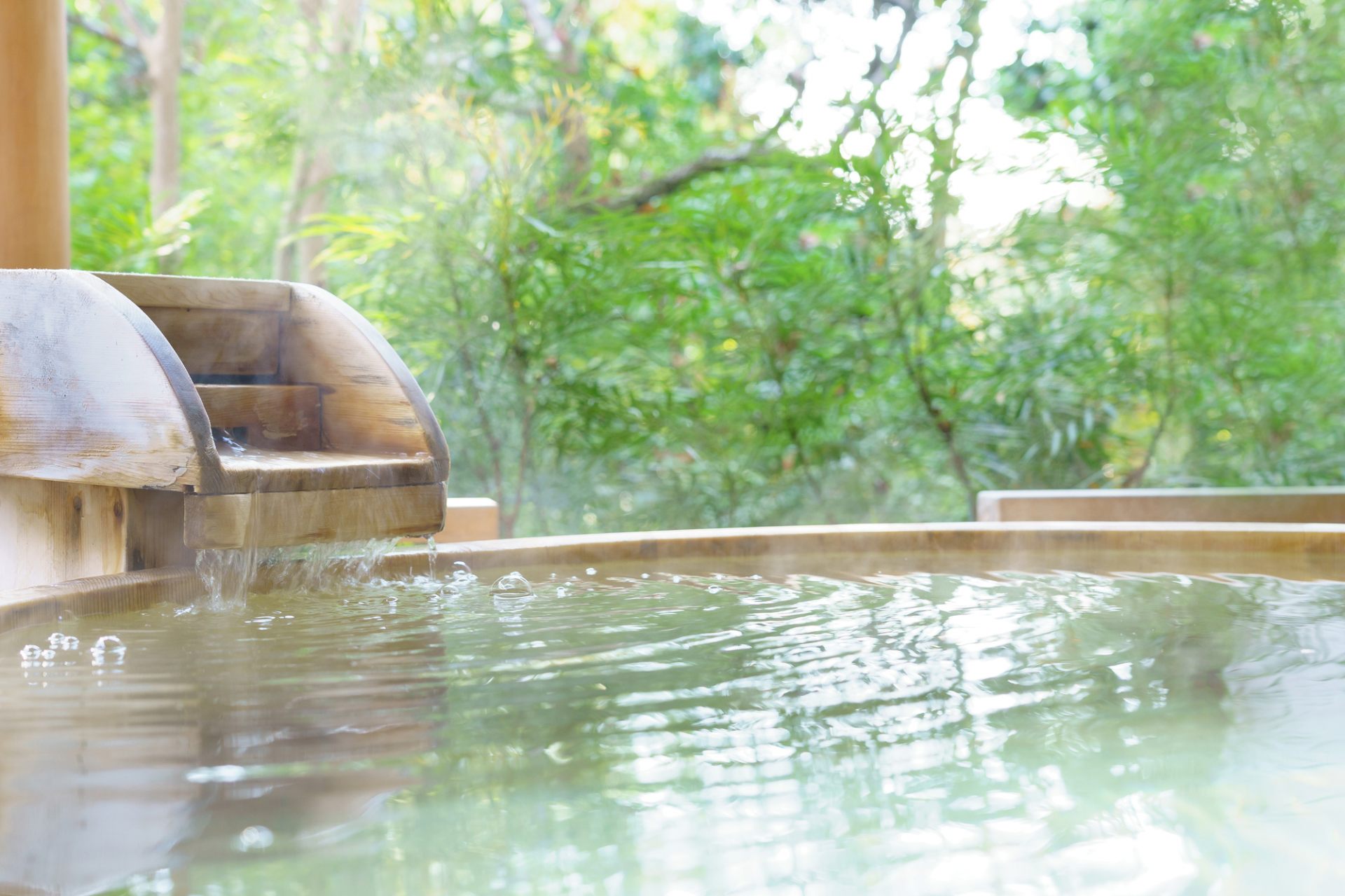
Top 11 Recommended Onsen(Hot springs) in Tokyo
Onsen is the local word for hot springs, one of the great joys of travel in Japan. In Tokyo specifically you may not immediately think of onsen in the big urban jungle, but the city is home to a surprising number of onsen destinations just waiting for you to take a dip. Plus, if you’re willing to take a few more steps just outside the city you’ll find the neighboring areas are burbling with famous, travel-worthy hot spring escapes for you to visit. Just a hop, skip and a jump and you’ll be ready to treat yourself to a little R&R in lush, natural settings with plenty of authentic, traditional atmosphere to love. Below is a roundup of recommended hot springs in Tokyo or at the countryside hot spring resorts just outside of town. Bookmark a few as you plan your next trip in Tokyo with the following tips as your handy guide.
Table of Contents
Enjoy hot springs without the fuss: top 3 day-use onsen spots in tokyo, experience quintessential hot spring towns and breathtaking nature top 5 hot spring destinations near tokyo, hidden gems known to few: top 3 secluded onsen near tokyo, frequently asked questions about onsen in tokyo.
Even Tokyo’s got something to say when it comes to easy onsen day trips. Complete with bath essentials like towels available for rent, many spots are perfect to pop in without having to worry about brining anything. From stylish onsen classics to traditional public baths, some facilities offer not just Onsen, but also saunas, stone baths, rest areas, and plenty of dining, too. No matter which you pick below they’re easy to access meaning you can add them along your sightseeing itinerary. If you’re curious about hot springs and plan to be in Tokyo, be sure to try one from the list coming up next.
1. Oyata Onsen Myoujin-no-yu
This picture-perfect hot springs facility is where you’ll find easy access to baths made from natural cypress and Japanese cypress so you can bask in the full relaxing therapy of wooden aroma. The open-air baths are hugged by nature, provide a space to soak while taking in the scenery. There is also a mist sauna, dry sauna, and cold water bath available. Shampoo, conditioner, and body soap are provided, along with amenities like bath towels and lounge wear for rent, ensuring you can drop in empty handed.
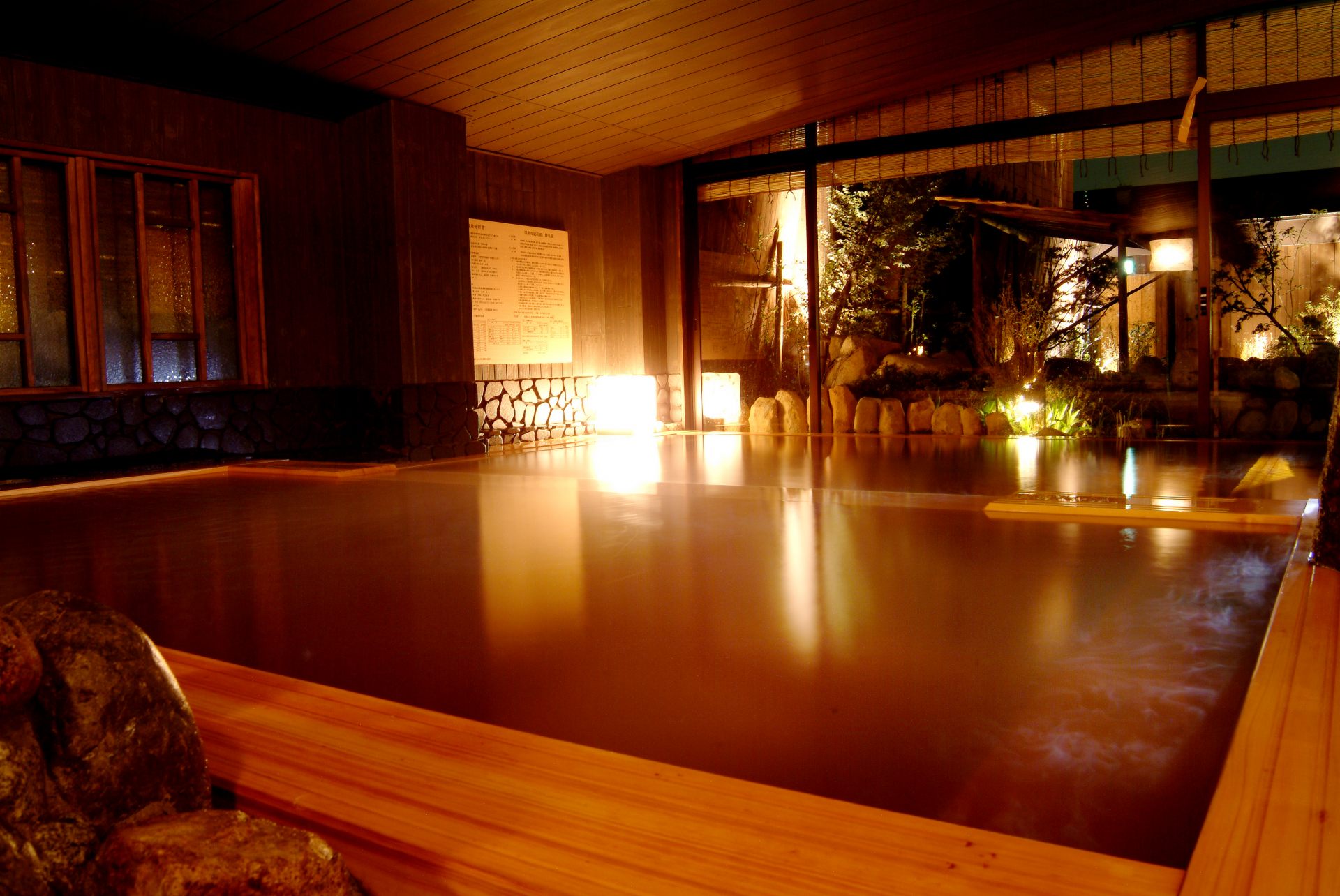
View more details about Oyata Onsen Myoujin-no-yu
2. Musashi-Koyama Onsen Shimizu-yu
A traditional public bath established in 1923, Shimizu-yu features two types of natural hot springs to try: Kuroyu (black water) and Kogane-yu (golden water), both luxuriously flowing directly from the source. Many onsen-lovers visit here for the chance to dip in two different kinds of natural hot springs at affordable public bath prices. The amber-colored Kuroyu, springing from 200 meters deep is particularly fine-grained and clear in comparison to Tokyo's black hot springs. Known for its high moisturizing and heat-retaining properties, the waters here are acclaimed for their beautifying effects.
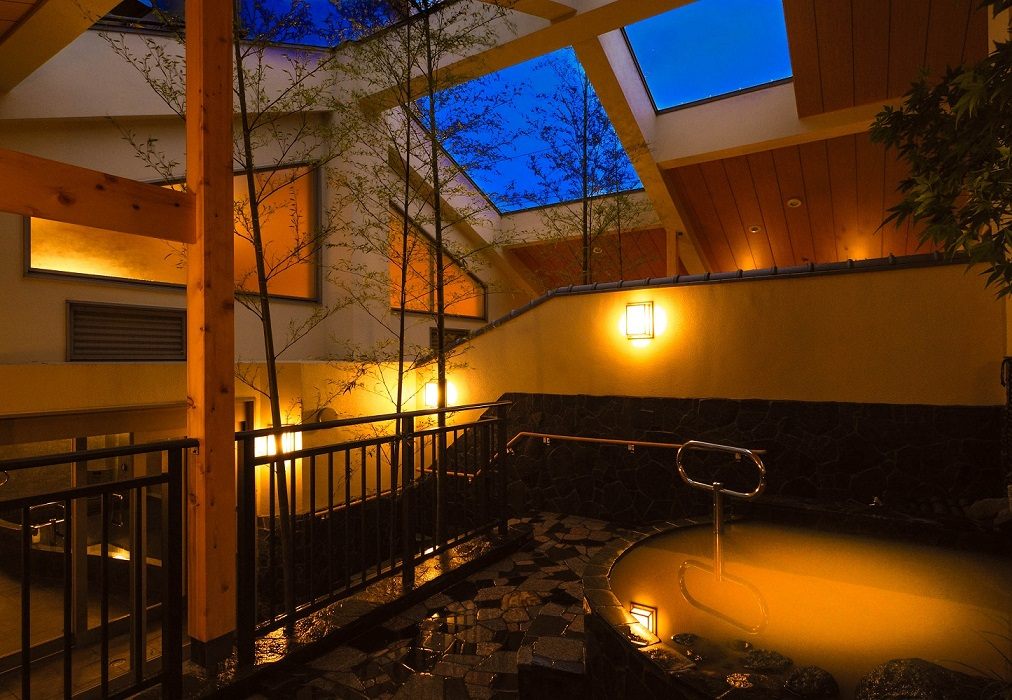
3. Spa LaQua
Step in to find hot springs anywhere between the 5th and 9th floors of LaQua , one of the buildings at Tokyo Dome. In the center of the city, you can enjoy natural hot springs bubbling up from 1,700 meters below the surface. Besides outdoor and large baths using natural hot spring water, there is a wide variety of baths highly effective for health and beauty, like carbonated and oxygen springs.
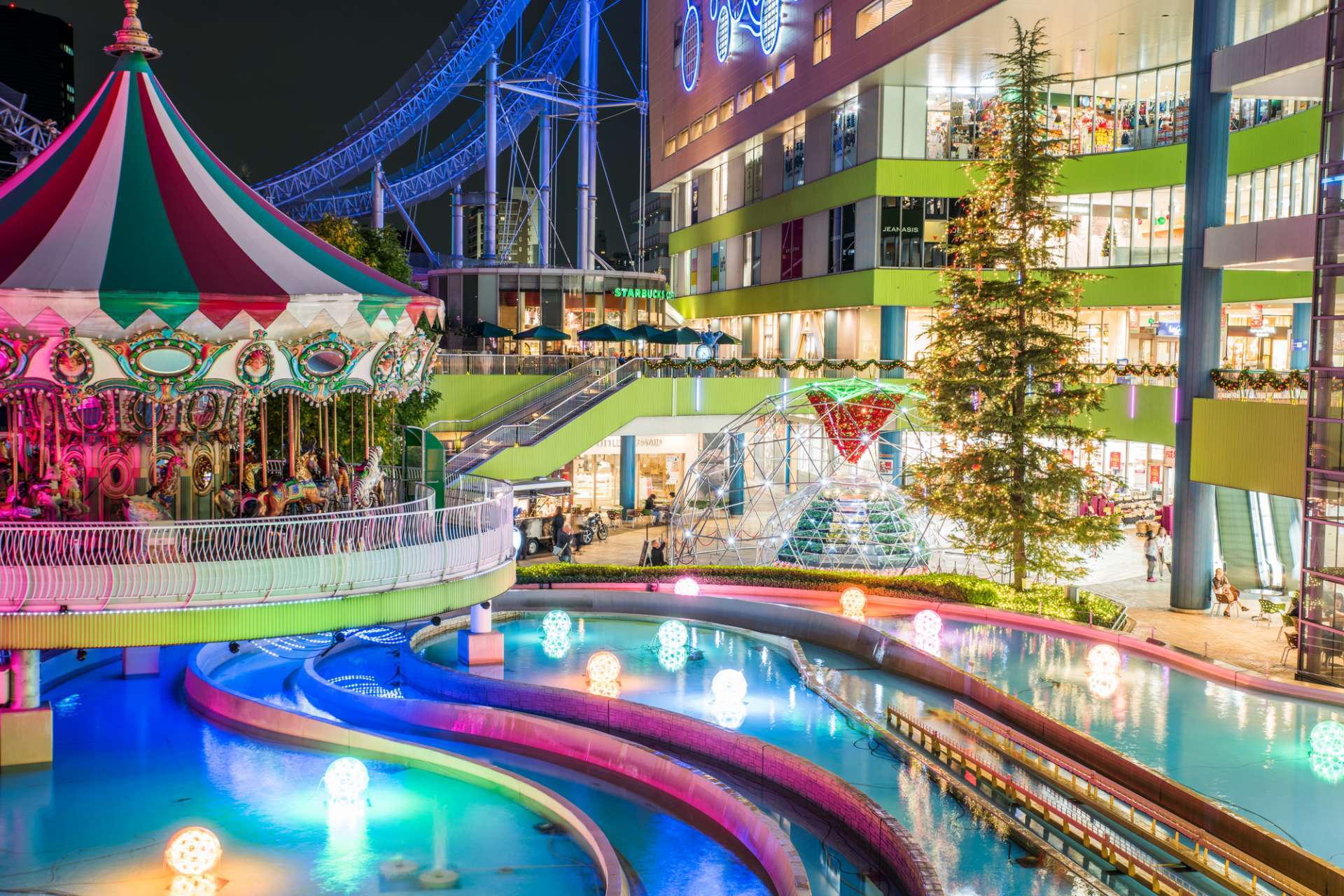
View more details about Spa LaQua
The areas surrounding Tokyo are dotted with nationally famous and coveted hot spring destinations. Below is a curated selection of some of the most popular to try. Each spot has its own unique atmosphere to love and easy access meaning you can easy visit these hot springs towns as an add-on to Tokyo-centric travels.
1. [Shizuoka Prefecture] Atami Onsen
Atami Onsen is a hot spring town nestled in Atami City, Shizuoka Prefecture . Across the area you’ll find an impressive count of some 500 hot spring sources, 90% of which are high-temperature springs over 42 degrees Celsius, known for their high concentration of therapeutic components. An essential part of Atami Onsen's history is the "Atami Seven Hot Springs" (Atami Shichiyu), considered important sources. Atami was once home to one of the world's three great geyser springs. Although it no longer erupts naturally, a monument near Yu-no-Kami Shrine on Ginza Street recreates this historical highlight, making it a recommended stop while heading to the hot springs to help connect with Atami's history. The waters of Atami Onsen are colorless, odorless, and known for their moisturizing and skin-beautifying effects. With a history of providing stable hot spring water for over 1,200 years, this valuable spring vein is a must-experience when visiting Atami.
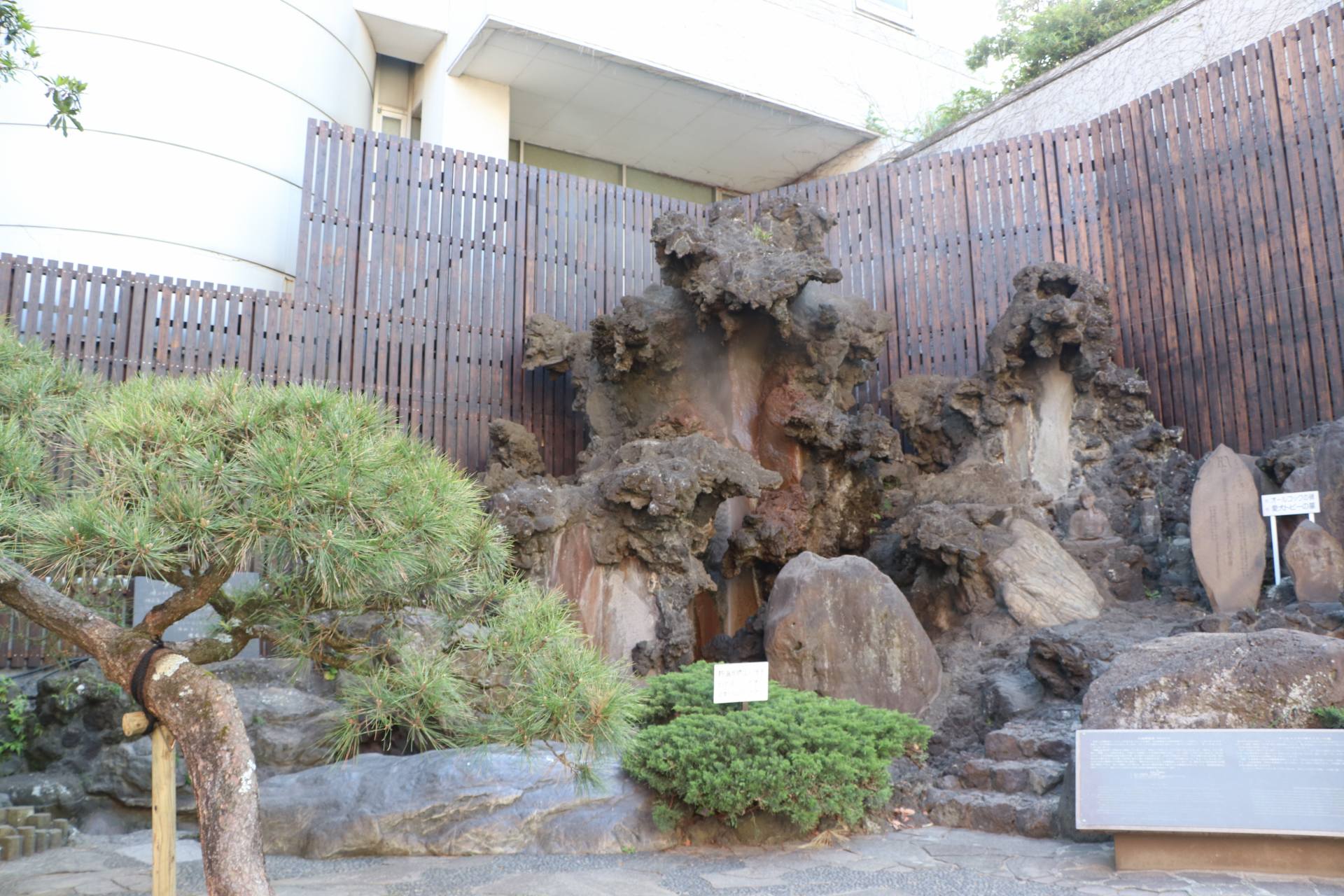
View more details about Atami Onsen
2. [Kanagawa Prefecture] Hakone-Yumoto Onsen Village
Hakone-Yumoto Onsen Hot Spring Village is known as one of the seven Onsen in Hakone and the largest hot spring resort in Hakone. It is said that Hakone's Onsen were first established in the Nara period (710-794), and during the Edo period (1603-1868), it flourished as a hot spring resort along the Tokaido highway, one of the five highways of the time. Even today, Hakone is a lively place with many hot spring facilities, lodging facilities, restaurants and shops for souvinirs. This destination is a major hot spring resort among the many in Hakone, frequented by tourists everyday who’ve come for a dip. Consider Hakone-Yumoto Station as the gateway to Hakone, where the Odakyu Limited Express Romancecar , Hakone Tozan Railway , Hakone Tozan Bus, and other transportation systems converge.
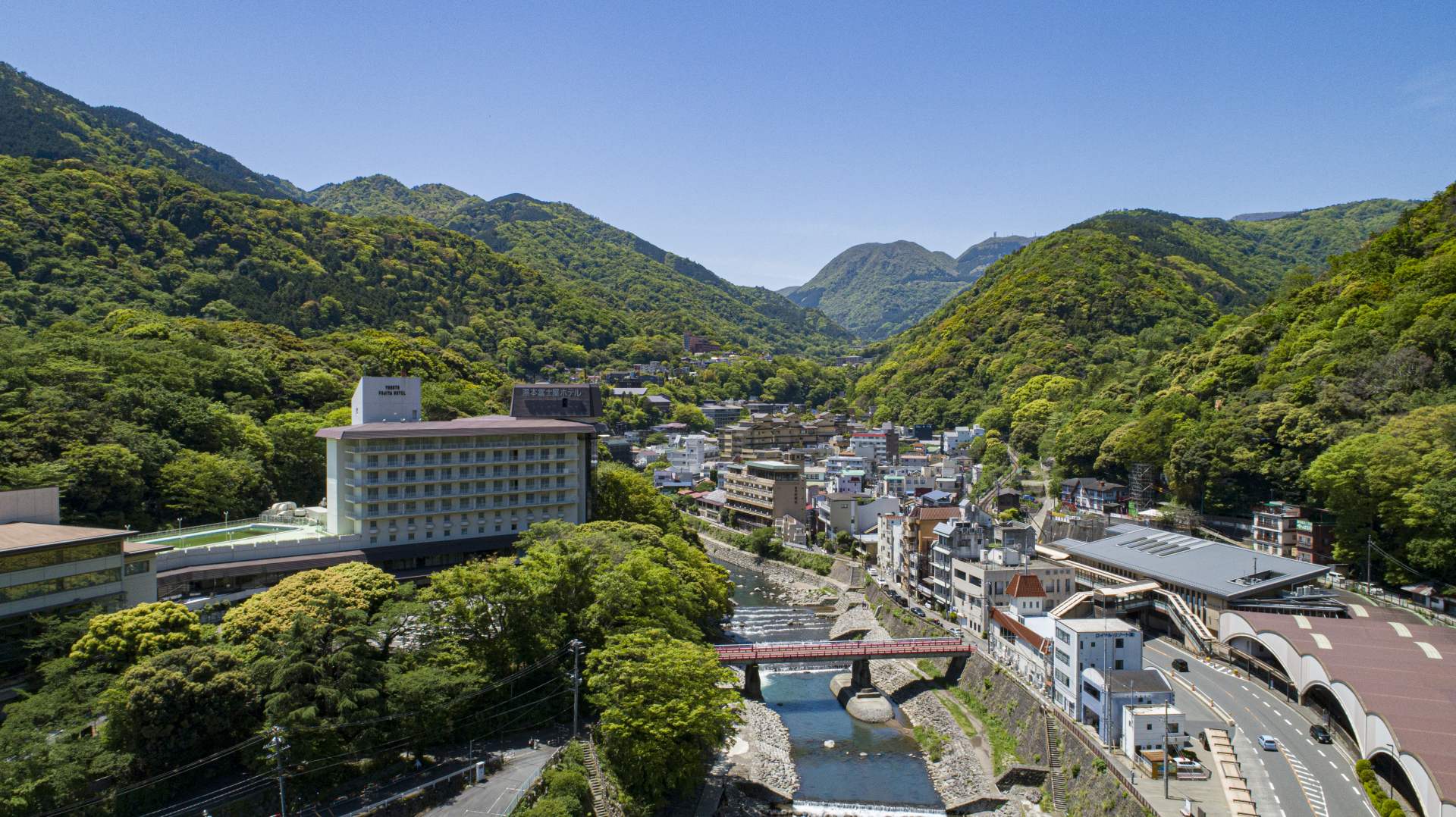
View more details about Hakone-Yumoto Onsen Village

3. [Gunma Prefecture]Kusatsu Onsen
Kusatsu Onsen is popular and well known as one of Japan's three major Onsen. The site gushes naturally with as much as 32300 liters per minute, said to be the highest volume in Japan. The source waters rank as high acid, giving it an extra antibacterial boost. Yubatake is a cover-worthy stop in Kusatsu, set with its iconic natural waters, steam and aroma that continually flow at volumes of 4000 liters per minute. Stroll around the pavement or kickback on a bench nearby as a perfect way to spend a time relaxing.
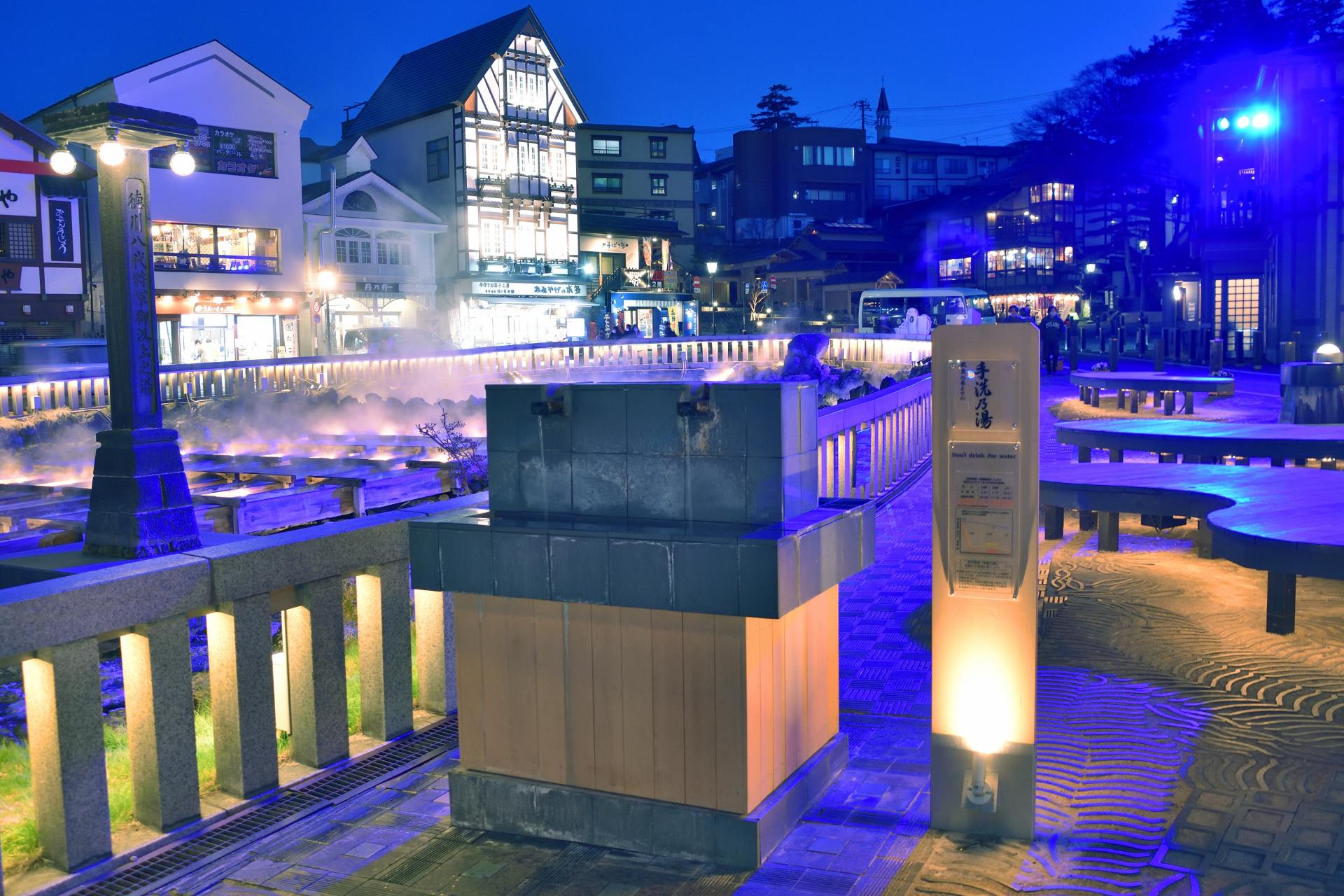
View more details about Kusatsu Onsen
4. [Kanagawa Prefecture]Yugawara Onsenkyo Resort
Seated in the town of Yugawara on Kanagawa Prefecture’s western coast you’ll find hot springs gushing along the Chitose River valley from the flows of Hakone Mountain. There are only a few large hotels. Most of the inns are upscale, ikkenyado-style Japanese ryokan (single-house, boutique inns in secluded quiet), which keep all the romance of a moody hot spring escape. The river gives the prefectures its natural border, laying way for several hot spring resorts to the south in Atami City, Shizuoka Prefecture.
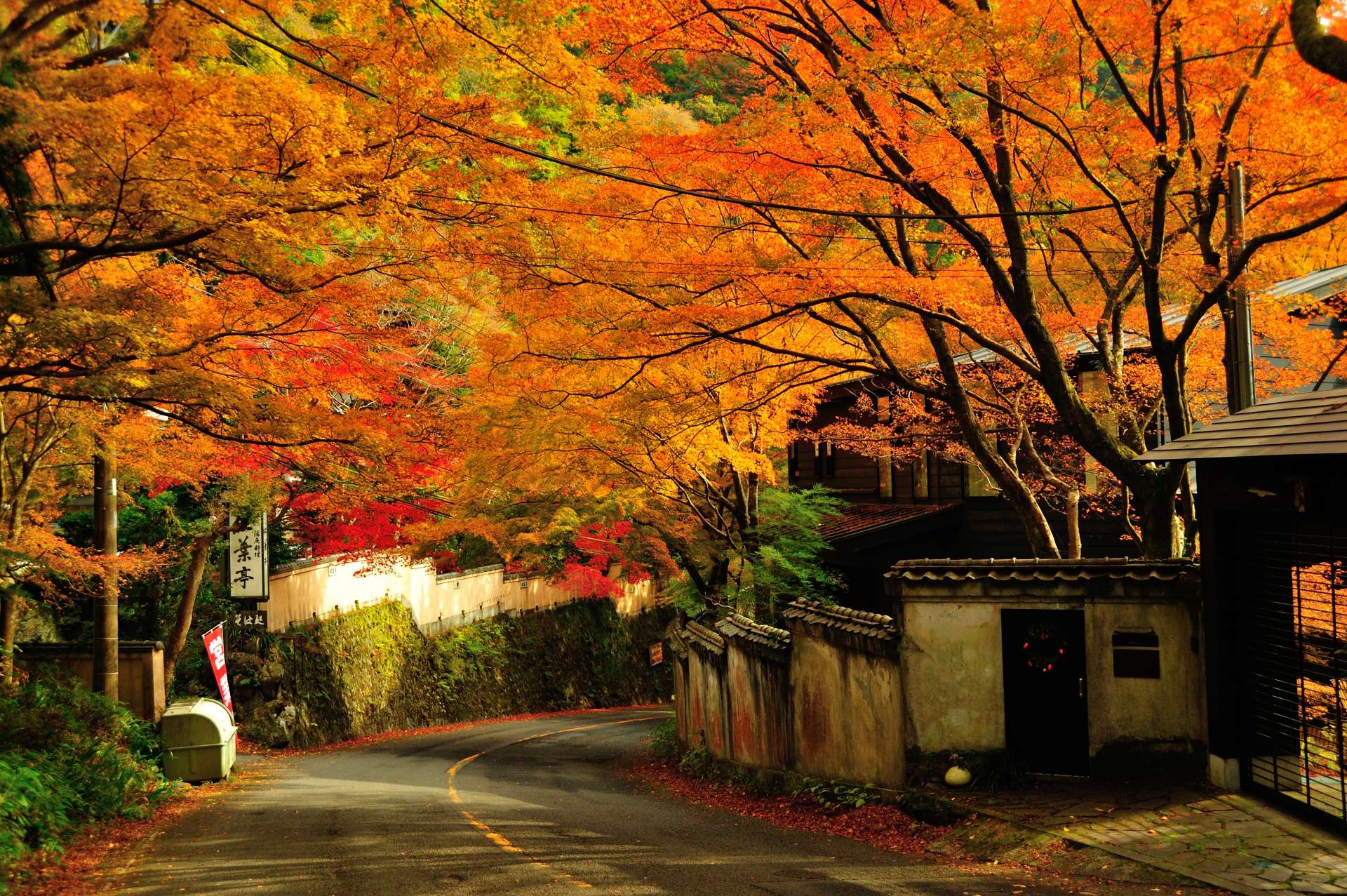
View more details about Yugawara Onsenkyo Resort
5. [Tochigi Prefecture]Kinugawa Onsen
Kinugawa Onsen sits tucked away in the upper reaches of the Kinugawa River in the city of Nikko, one of the most popular onsen in the Kanto region. The hot spring water is tasteless, odorless, and non-habit-forming alkaline simple hot spring. The soft, skin-friendly water is said to be effective for burns and skin diseases, as well as for gastrointestinal disorders and recovery from fatigue, making it popular among all people. The magnificent nature along the Kinugawa River valley is another reason for its popularity, gifting visitors with the complete joy of spectacular seasonal scenery throughout the year, including fresh greenery, autumn leaves, and snowy landscapes.
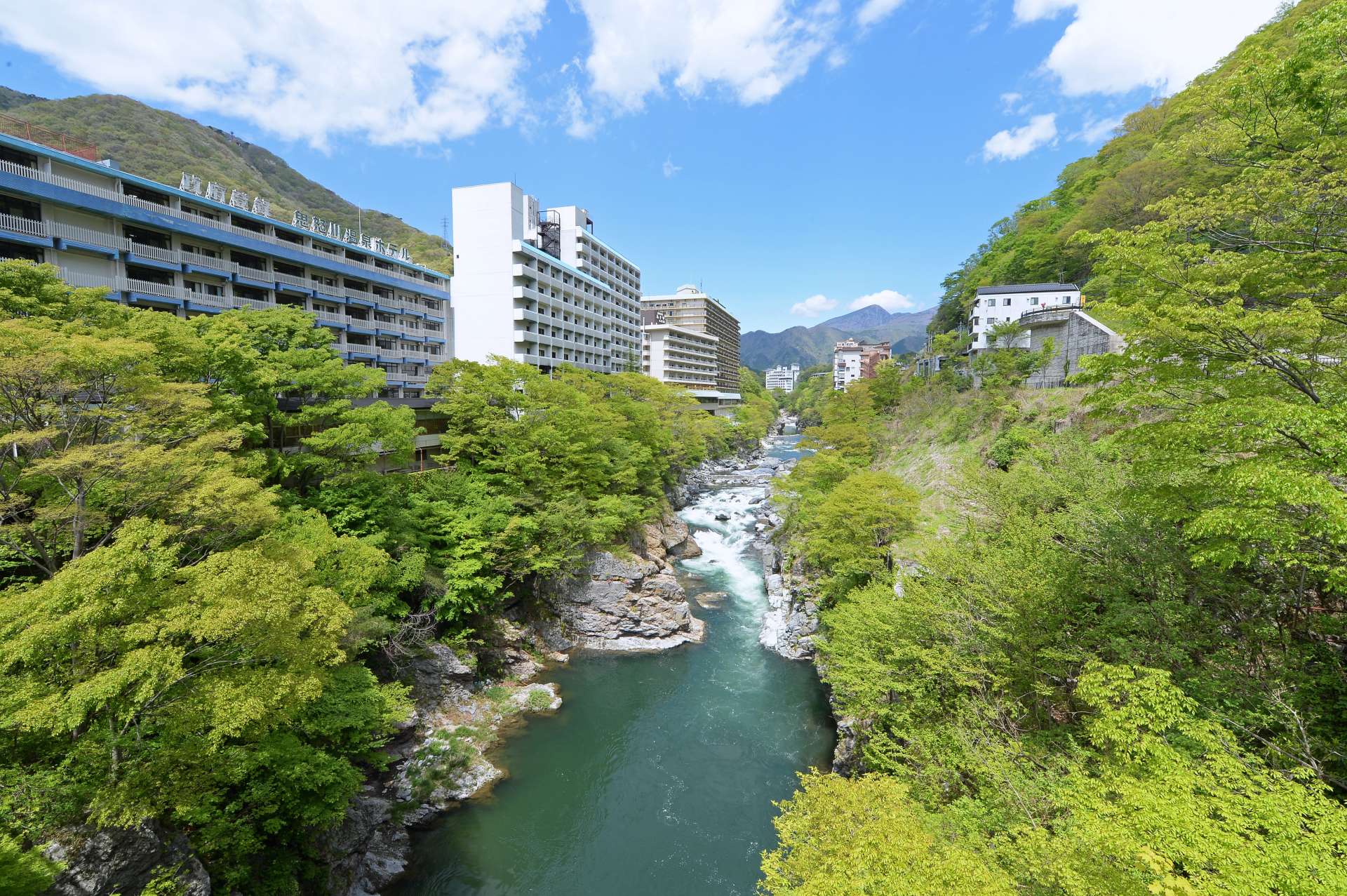
View more details about Kinugawa Onsen
A "hidden hot spring" (hito) refers to the onsen that are quietly nestled in remote locations, often deep in the mountains away from populated areas. The greatest allure of these hidden springs is not just the leisurely soak, but also the chance to encounter Japan's pristine natural landscapes. Surprisingly, many such hidden Onsen exist near Tokyo. These may take a little extra trek, but the journey is worth the unforgettably unique, exquisite world away that waits on the other side.
1. [Gunma Prefecture]Hoshi Onsen Chojukan
The springs are said to have been first discovered by Kobo Daishi during his travels, located today at this inn in the Joshin'etsu Kogen National Park. While the inn was established in 1875, today it still keeps the full romance of its Meiji era heyday, just as when many literary figures and artists stayed here. Both the main building from that period and the annex built in 1940 (Showa 15) are registered as tangible cultural properties by the country. The baths, with natural hot spring water flowing directly from the source, include the traditional mixed-gender bath "Hoshi no Yu" housed in a charming building reminiscent of the Rokumeikan, which is over a century old (available for women only from 20:00 to 22:00), the "Tamaki no Yu" with a cypress structure and open-air bath available for both men and women on a rotational basis, and the "Chojyu no Yu," a secluded bath near the Hoshi River, also available on a rotational basis for men and women.
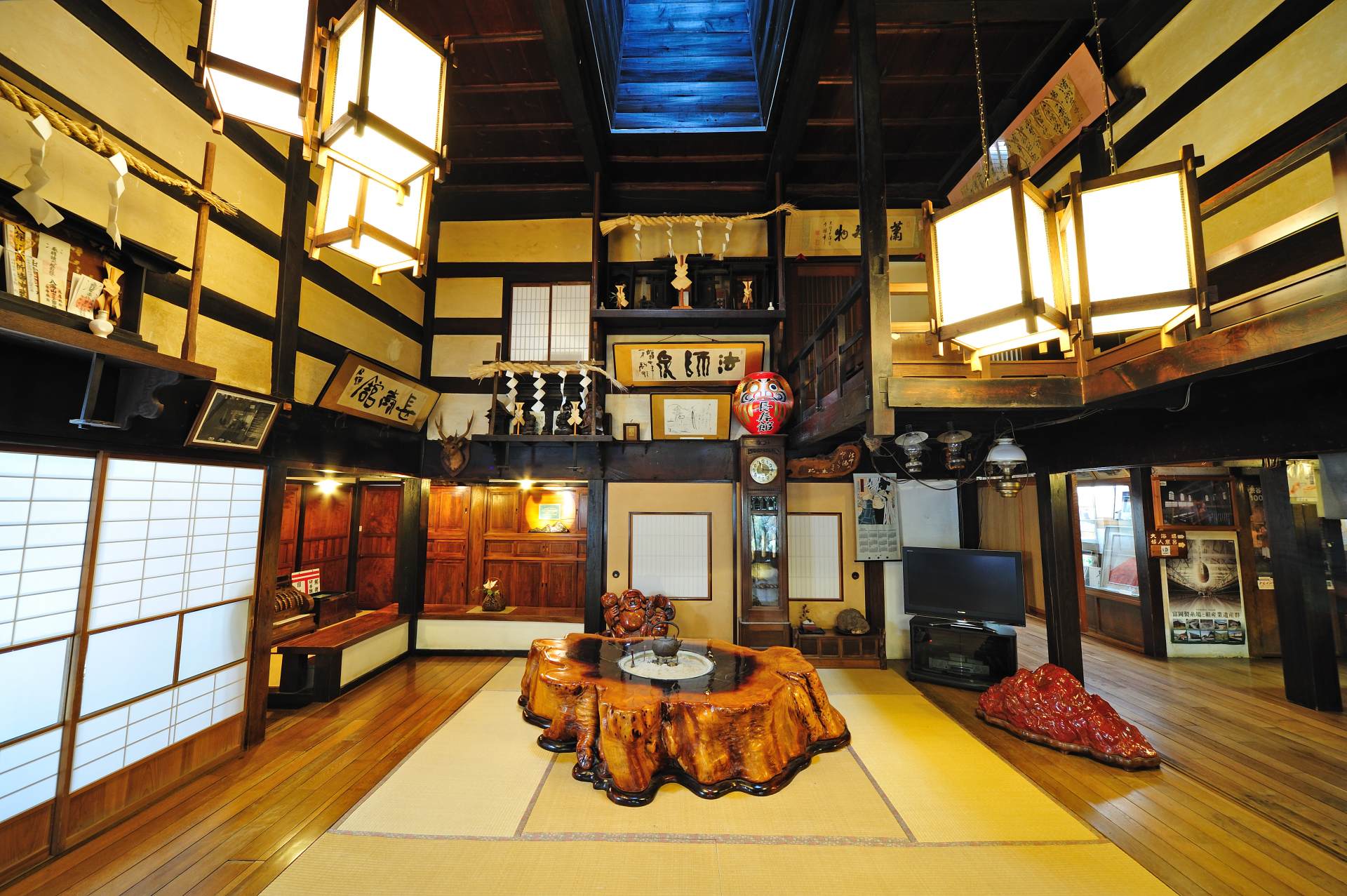
View more details about Hoshi Onsen Chojukan
2. [Tochigi Prefecture]Omaru Onsen Ryokan
Omaru Onsen Ryokan is a secluded hot spring inn located in the deepest parts of the highly sought-after Nasu Onsen resort area, perched in a mountainous valley at an altitude of 1,300 meters. The spot remains today a well-known retreat since ancient times. The inn is known to have been frequented by General Nogi Maresuke for therapeutic bathing every year during the Meiji era, a store outlined by exhibits for General Nogi found inside the inn. The inn's pride is its hot springs, which are noted for keeping the largest volume in the Nasu Onsen area. Guests can enjoy a variety of hot spring baths, including the natural open-air bath "Kawa no Yu" which was designed by damming a river of hot spring water flowing from the inn's private source, and four other open-air baths of various sizes. The baths are fed directly from the source without heating or adding water (although there is some heating during certain seasons).
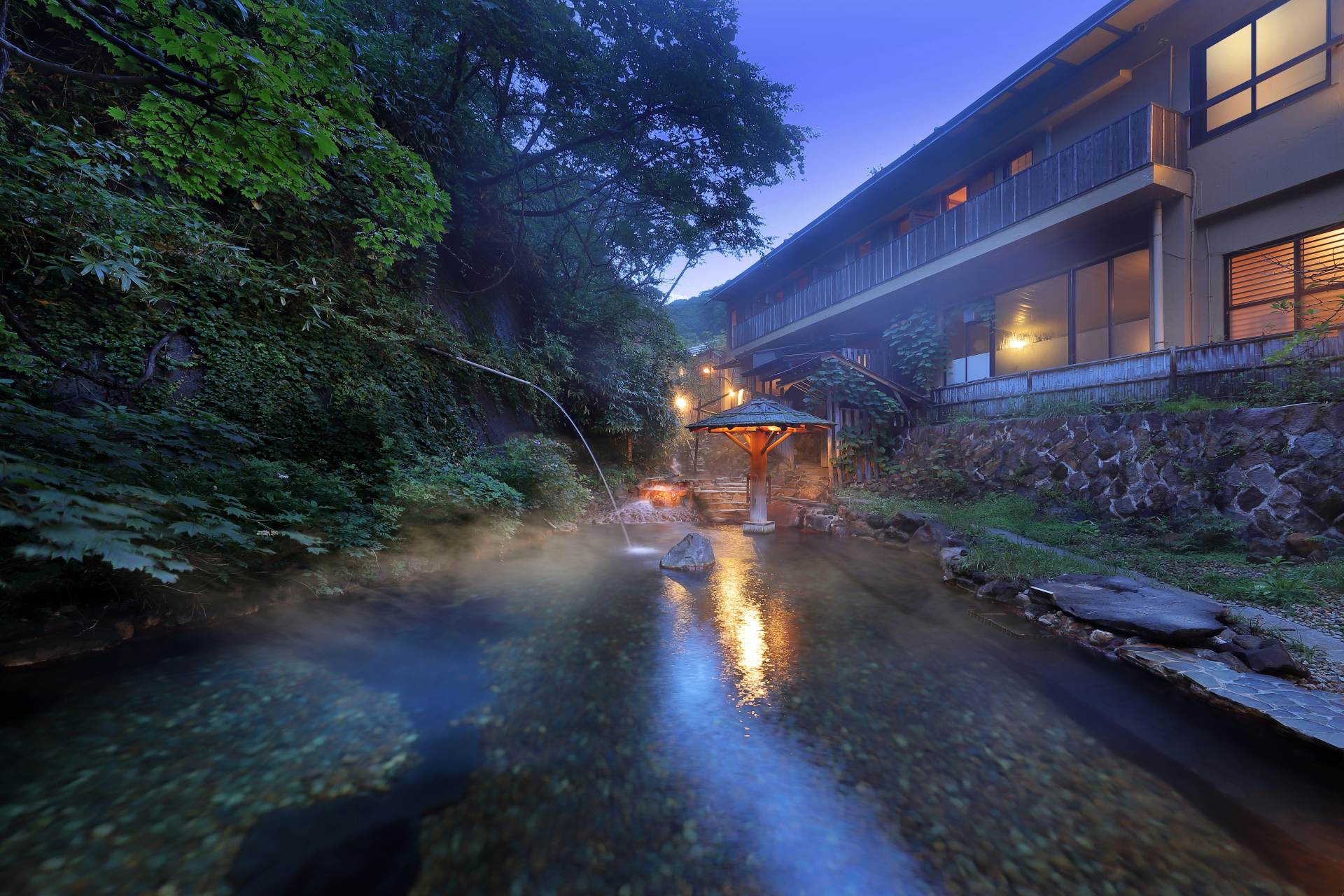
View more details about Omaru Onsen Ryokan
3. [Tochigi Prefecture]Okukinu Onsen
Situated in the source area of the Kinugawa River in Kawamata, Nikko City, Okukinu Onsen is a hot spring village that hosts four inns, each offering baths with water from different sources. The area was once a remote gem until access roads were developed, earning it the nickname "the last hidden hot spring in the Kanto region." Nestled within Nikko National Park, where primeval beech forests remain, vehicle access is currently prohibited to preserve nature. Some inns offer shuttle services, but the primary access is by foot. A leisurely hour-long stroll through the lush nature, followed by a relaxing dip in the hot springs is one authentic sojourn you’ll not soon forget.
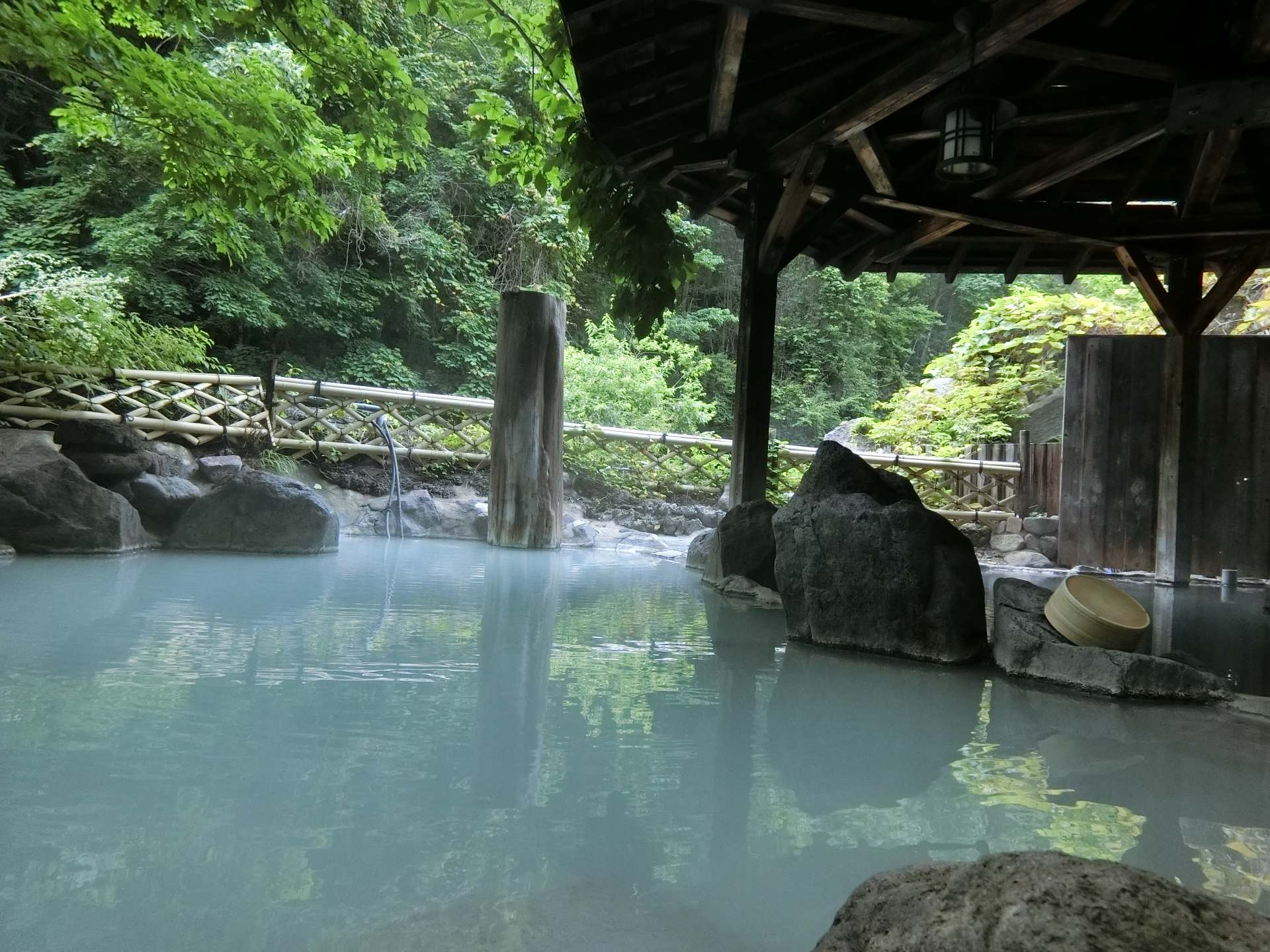
View more details about Okukinu Onsen
Are there day-trip Onsen in Tokyo?
Yes, Tokyo has numerous day-trip hot spring facilities.
Are there hot spring destinations within 1-2 hours from Tokyo?
Yes, destinations like Atami Onsen, Yugawara Onsen, and Hakone Yumoto Onsen can be accessed within 2 hours.
Tokyo may be a big city, but it’s still got plenty of places for you to try a soak in the onsen as part of an easy day trip. Seeing how Tokyo does onsen is an easy add-on to any travels, but if you’re feeling a little adventurous checking out the hidden gems and hot spring areas in the Tokyo suburbs is one idea worth getting your feet wet. Take in all the best of authentic Japan vibes by adding a little onsen experience to your trip in Tokyo. As an added perk, don’t forget to beef up your Tokyo travels and make the most of your time with our handpicked highlights of the must-see tourist spots in Tokyo.
19 things to do in Tokyo
- Theme for Trip
Thank you for log in.
Thank you for signing up. A confirmation email has been sent to your registered email address.
This website uses cookies to ensure you get the best experience on our website. Learn more
- Destinations
Best Onsen in Tokyo
Best Onsen Spas and Bathhouses in Tokyo
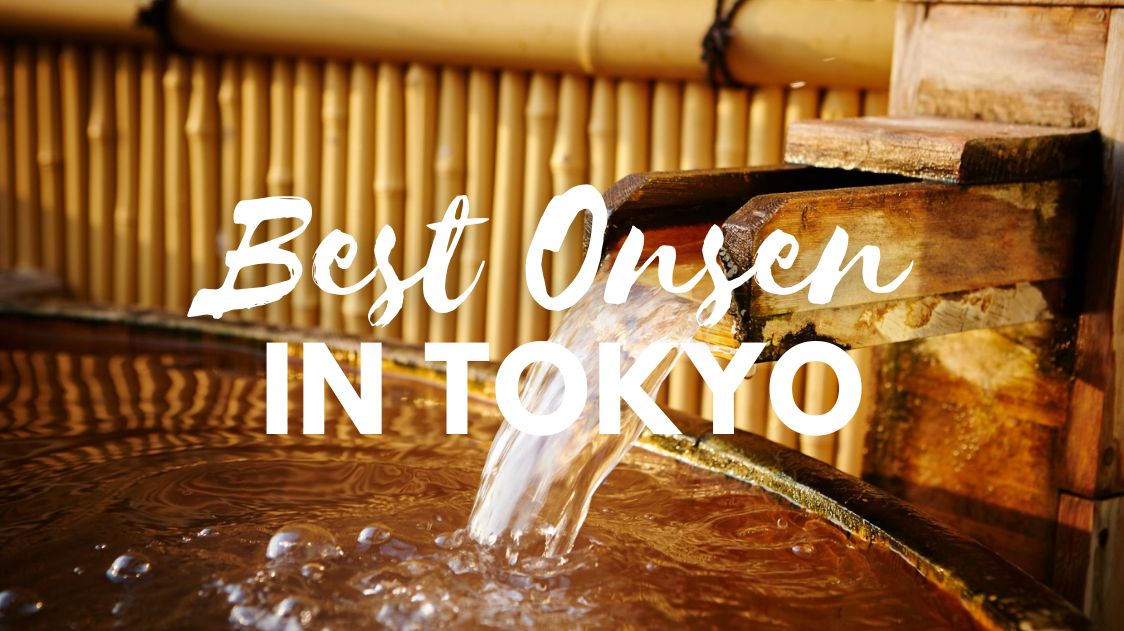
Japan’s onsen culture is surely one of the greatest highlights of all travelers. And while some of the most popular onsen towns are a must when planning your itinerary, did you know that you can also enjoy quite a lot of natural hot springs within Tokyo ? Japan’s great Metropolis is no exception to the ever present volcanic activity across the entire country!
This is not to say that you can skip iconic onsen spots like Hakone or Kinugawa Onsen of course, just letting you know so you can plan even more opportunities to engage in one of the most relaxing and refreshing activities after an intense sightseeing day! So without further ado, I will introduce you to the best onsen spots in Tokyo!
Bear in mind that unlike regular public baths, onsen places do not allow customers with visible tattoos. For those with small tattoos, cover stickers or skin-colored patches will suffice.If your tattoos are too large to be covered, check our guide on tattoo-friendly onsen !
Be sure to check also Japanese Onsen Etiquette: Dos and Don’ts
*Please note that this article contains affiliate links.
1. Toshimaen Niwanoyu
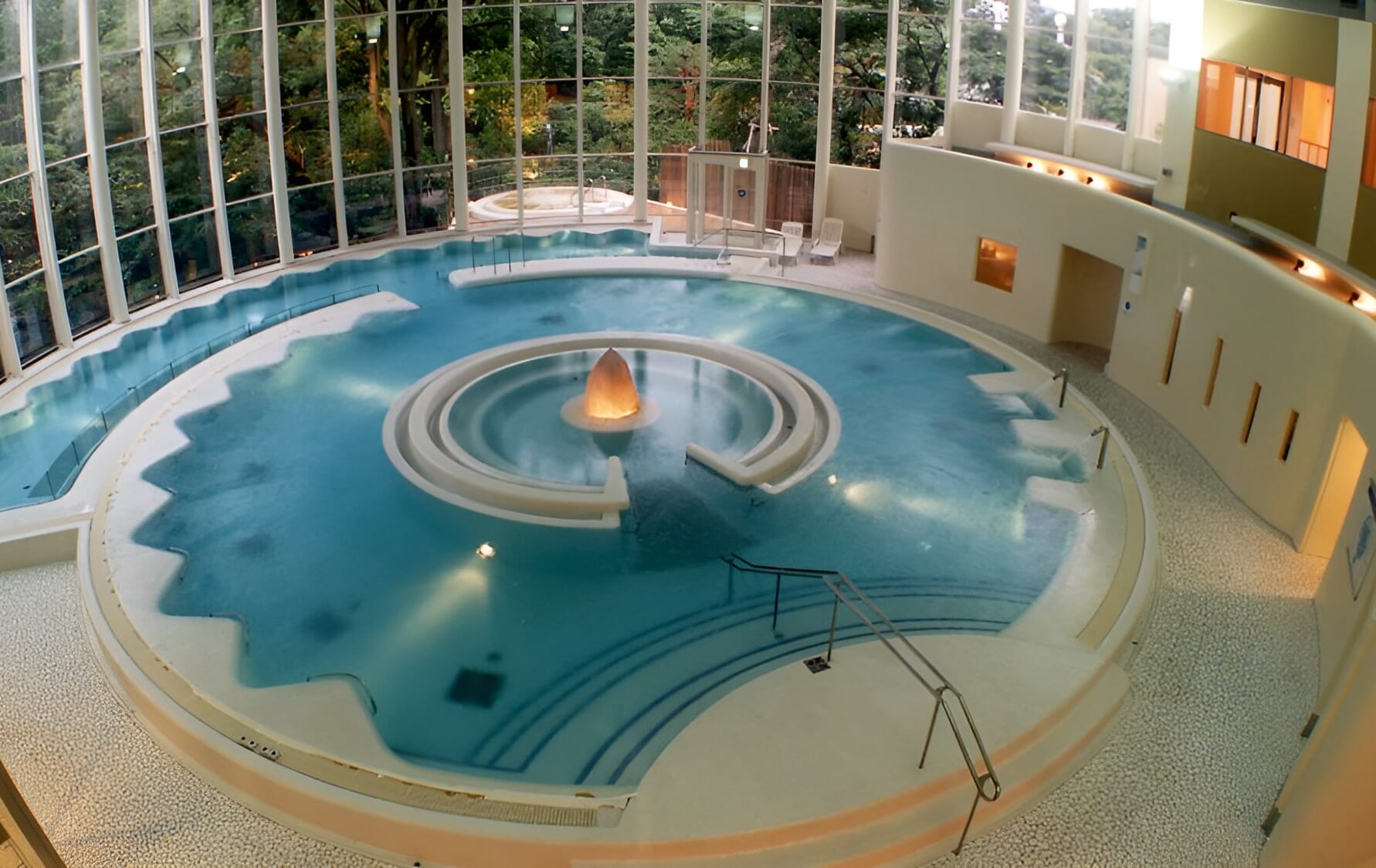
Toshimaen Niwanoyu (豊島園 庭の湯) is an excellent retreat located in a tranquil residential area. This large onsen complex is also unique among its peers in being one of the few in the city allowing for a mixed-gender area with swimsuits (in addition to normal nude gender-segregated areas), ideal for those that do not feel quite comfortable with being naked in front of strangers.
It has six distinct baths, including a scenic open-air rock bath where you can just relax and forget about everything else. The sodium chloride-rich waters are renowned for soothing aches, complemented by aqua massages and a Finnish sauna. There’s also a beautiful Japanese Garden in the premises, if you feel like taking a break between baths or to end your day with a scenic stroll.
Information
2. Maenohara Onsen Sayano
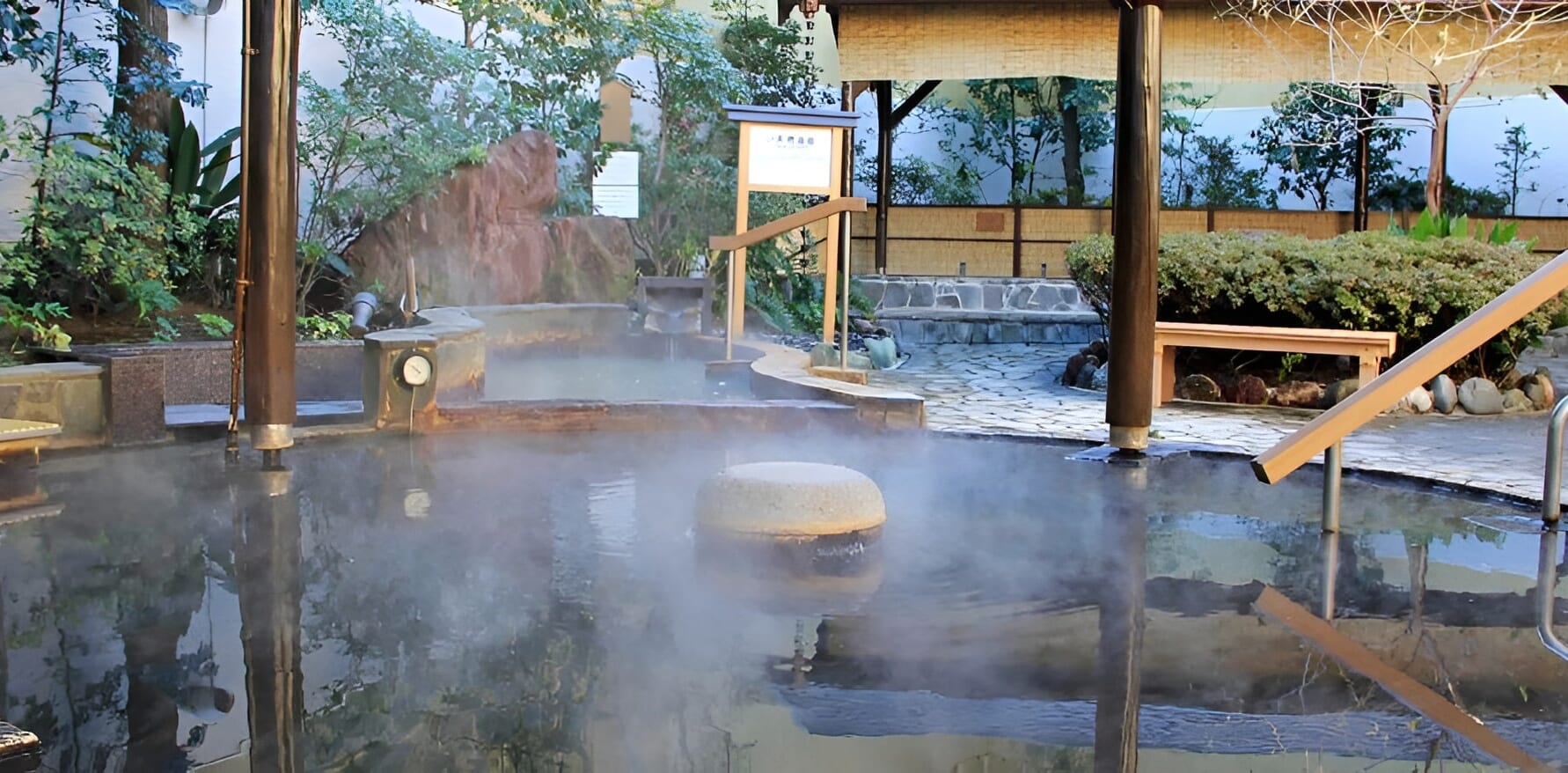
Maenohara Onsen Sayano (前野原温泉 さやの湯処) is one of the greatest hidden gems in the northern side of Tokyo, in Itabashi ward. Housed in a traditional-style building with a small lovely zen garden, it’s the perfect place to let your worries wash away. It has green-hued, sodium chloride-rich waters sourced directly from 1,500 meters underground, considered to have healing properties.
The facility, once a private residence, now provides a variety of baths, including a secluded semi-open-air option, and a bedrock bath with four temperature zones. Ideal for those seeking a quiet retreat while feeling like a local in one of the most authentic onsen experiences in the city.
3. Tokyo Toyosu Manyo Club
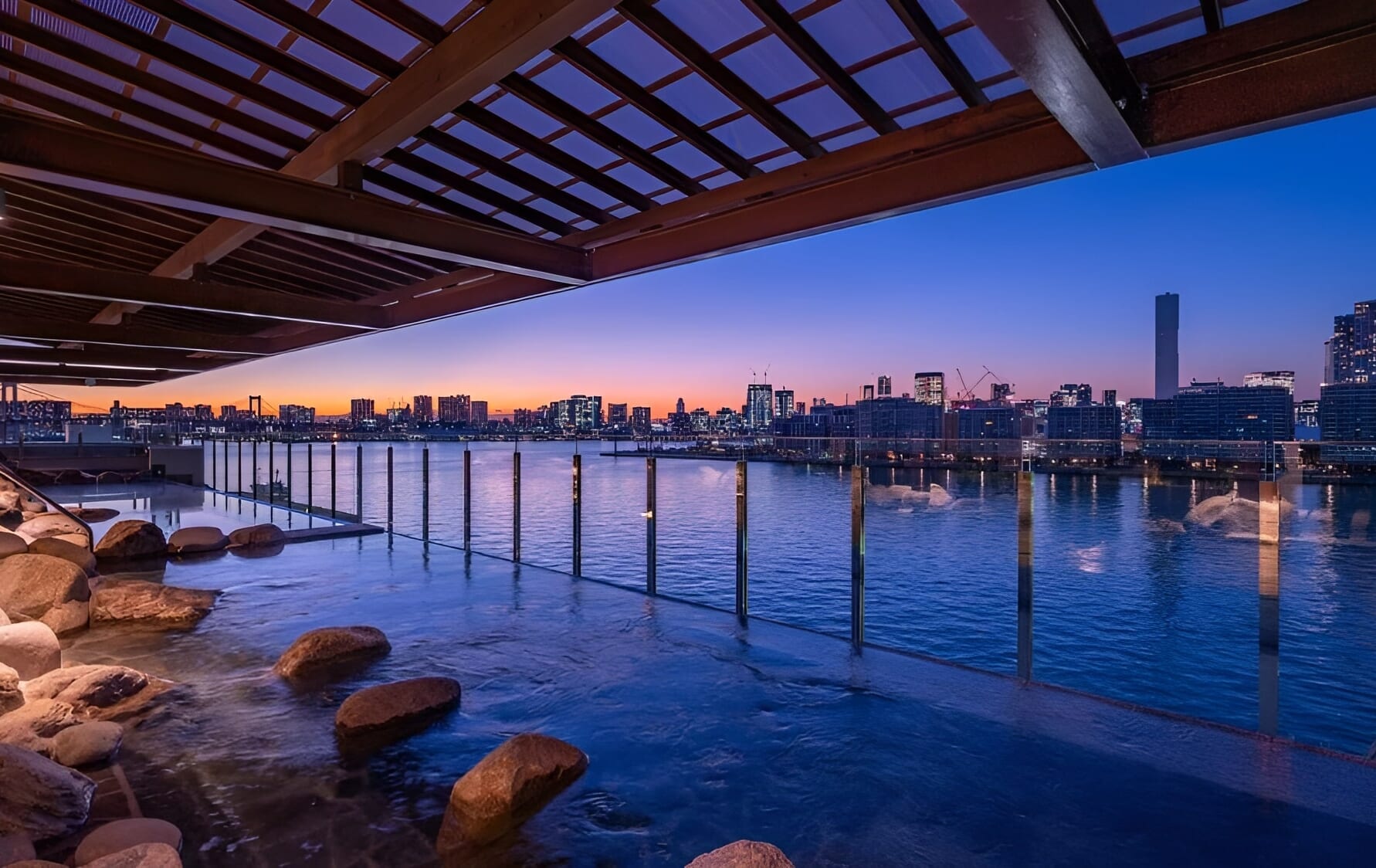
Tokyo Toyosu Manyo Club (東京豊洲 万葉倶楽部) , the latest establishment in the Manyo Club series, is a modern-day oasis in the futuristic districts of Toyosu . The onsen waters, transported daily from Hakone and Yugawara hot springs, promise to make you feel born anew. This onsen is open 24/7, so it has convenient options for overnight stays for an extra fee, but it’s also an excellent choice for day trips or just a late night relaxation session after a busy day.
The rooftop garden and footbath has stunning views of the surroundings and its convenient location at the Toyosu Senkyaku Banrai Facility make it a very convenient spot for a complete leisure experience.
<<Book your tickets fro Tokyo Toyosu Manyo Club here!>>
4. Tokyo Dome City Spa LaQua
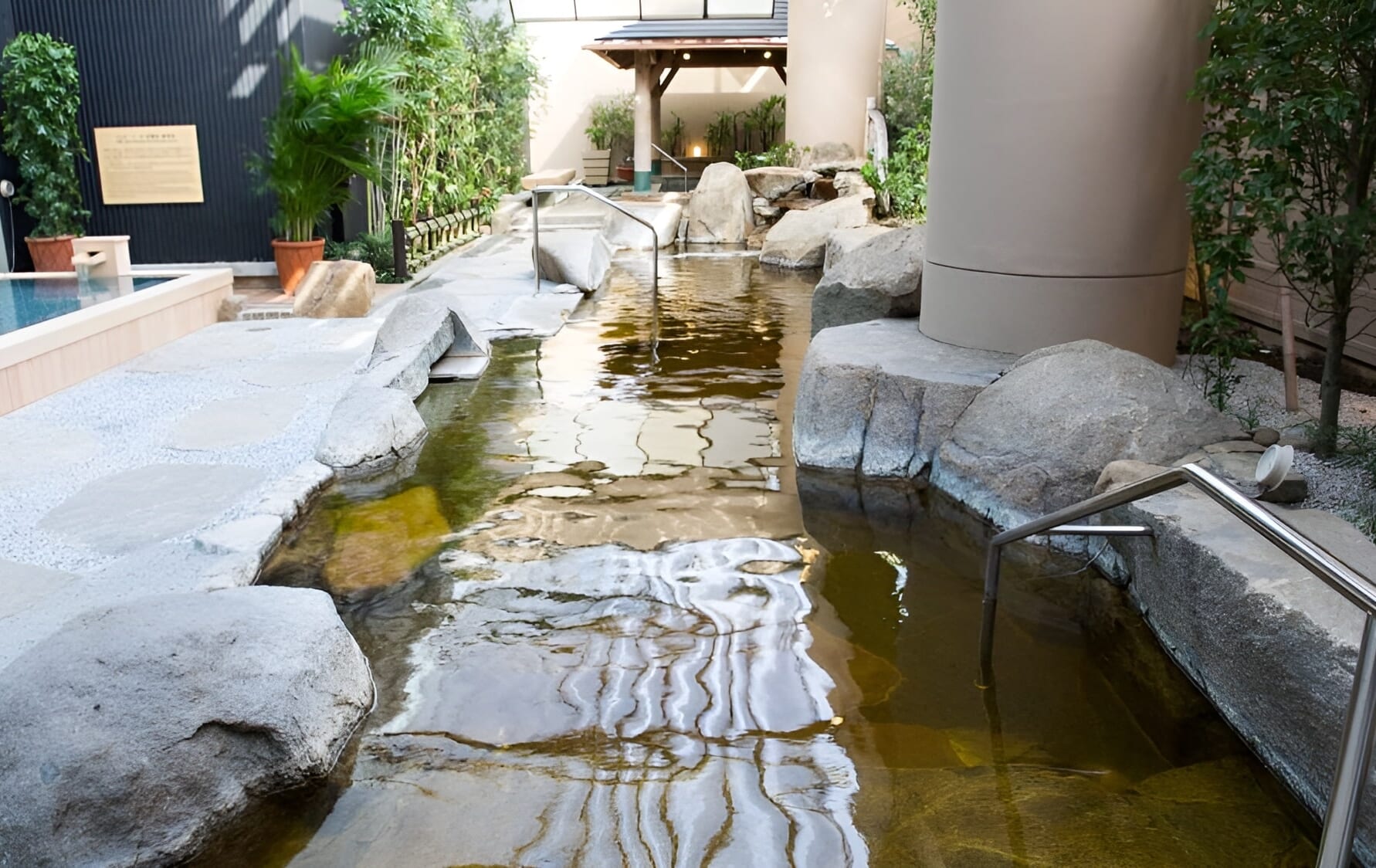
Tokyo Dome City Spa LaQua (東京ドーム天然温泉 スパ ラクーア) is a luxurious urban retreat that brings together the best of of relaxation and entertainment. It boasts natural hot spring waters flowing from 1,700 meters below, featuring a variety of baths, saunas, and relaxation spaces, including a scenic open-air bath.
Open nearly 24 hours (it closes from 9 to 11 am for cleaning), it caters to those seeking a peaceful respite any time of day. Despite its central location, LaQua maintains a tranquil atmosphere, save for the occasional screams from Tokyo Dome’s famous roller coaster which is right next to the spa, for a fun chuckle while soaking away your worries.
5. Asakusa Rox Matsuriyu
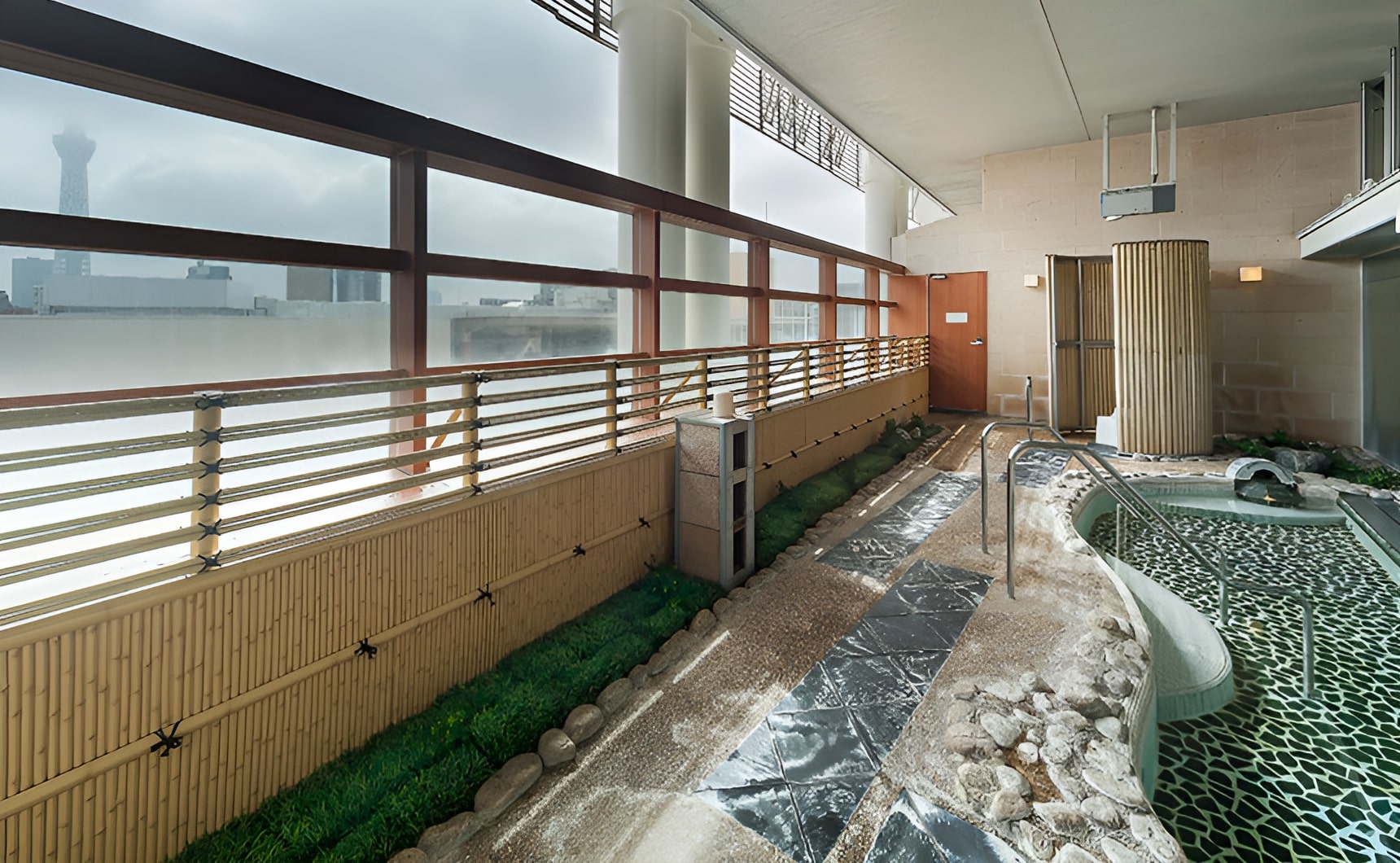
Asakusa Rox Matsuriyu (浅草ROX まつり湯) is a wonderful bath and spa facility located in the heart of Asakusa. Although it’s not a natural hot spring, it boasts a variety of bathing options, including the popular “Hinsui Open-air Bath” with views of the Tokyo Skytree. Their water is enriched with essential minerals like calcium, magnesium, silicon, and iron, believed to contribute to overall health and tension relief.
Additionally, there’s a rest area to unwind complete with reclining seats and TV. It also has a game corner featuring over 3,500 comics and crane games, ideal for families with kids or if you just don’t feel like lying down after your bath.
6. Thermaeyu
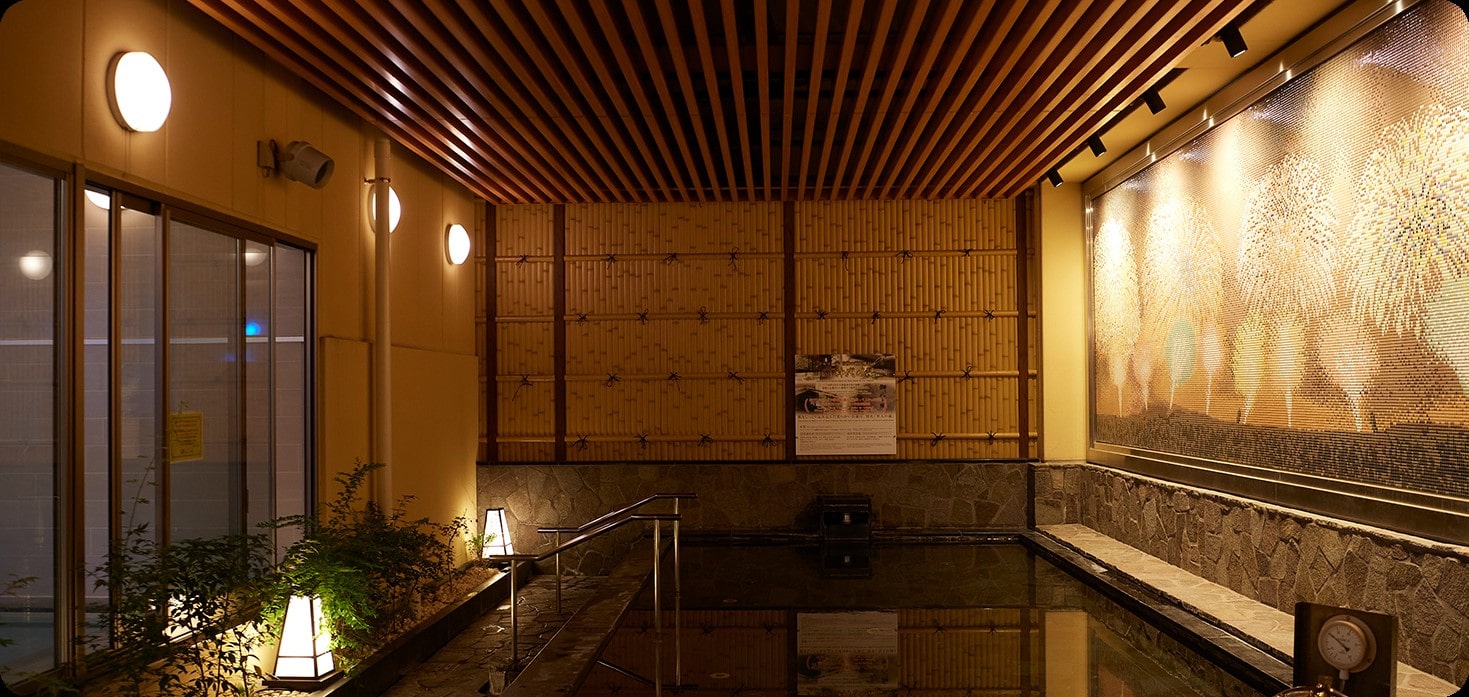
Thermae Yu (テルマー湯) is located the heart of Tokyo, in the bustling commercial district of Shinjuku as an urban sanctuary that’s open 24 hours a day. This onsen draws visitors with its convenient location and the variety of baths it offers, sourced from the hot springs of Nakaizu in Kanagawa Prefecture.
What sets Thermae Yu apart is its innovative “toner bath,” designed to moisturize the skin, mimicking the effects of skincare products. The facility boasts four saunas, split equally between men and women, and electric baths that provide a unique low-frequency electric current experience. After indulging in the thermal waters, guests can unwind in the lounge, equipped with massage chairs and relaxation spaces, or dine in the on-site restaurants.
7. Hisamatsuyu
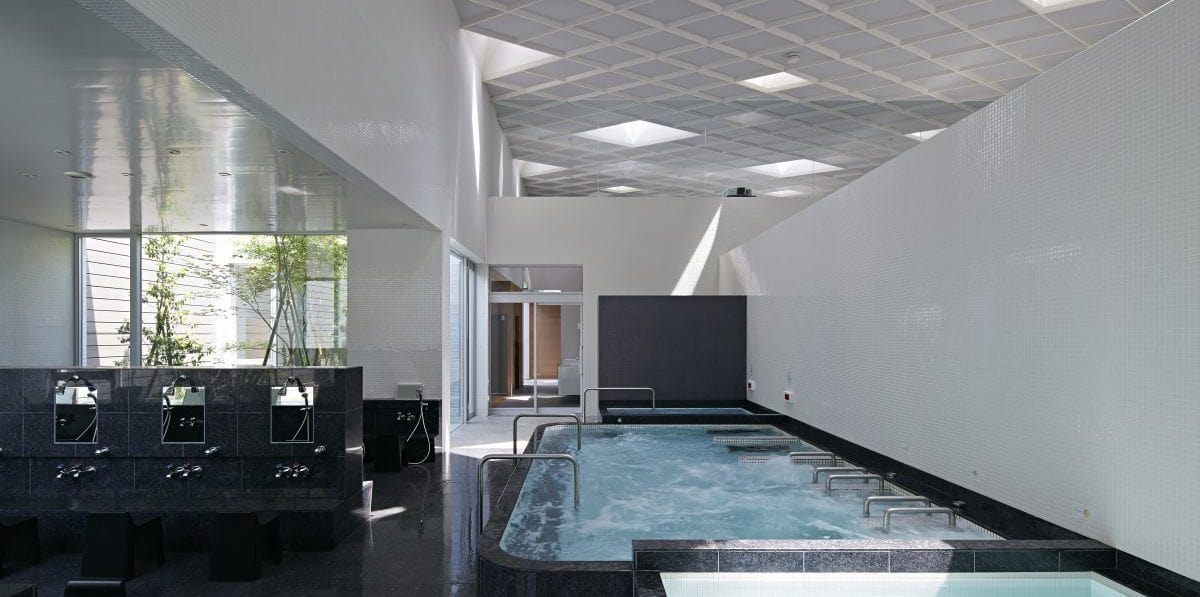
Hisamatsuyu (天然温泉 久松湯) embodies one of the most modern approaches to public baths, mixing tradition with cutting-edge technology. One of its features is projection mapping by Atelier Omoya, an art collective known for transforming mundane materials into art. These projections create a relaxing yet visually striking atmosphere in the bath areas with artistic nature scenes.
The facility features high-quality sodium water baths sourced from 1,500 meters underground, alongside jacuzzi and unique electric baths designed to massage and soothe the body, for a complete aesthetic and relaxing experience.
8. Tokyo Somei Onsen Sakura
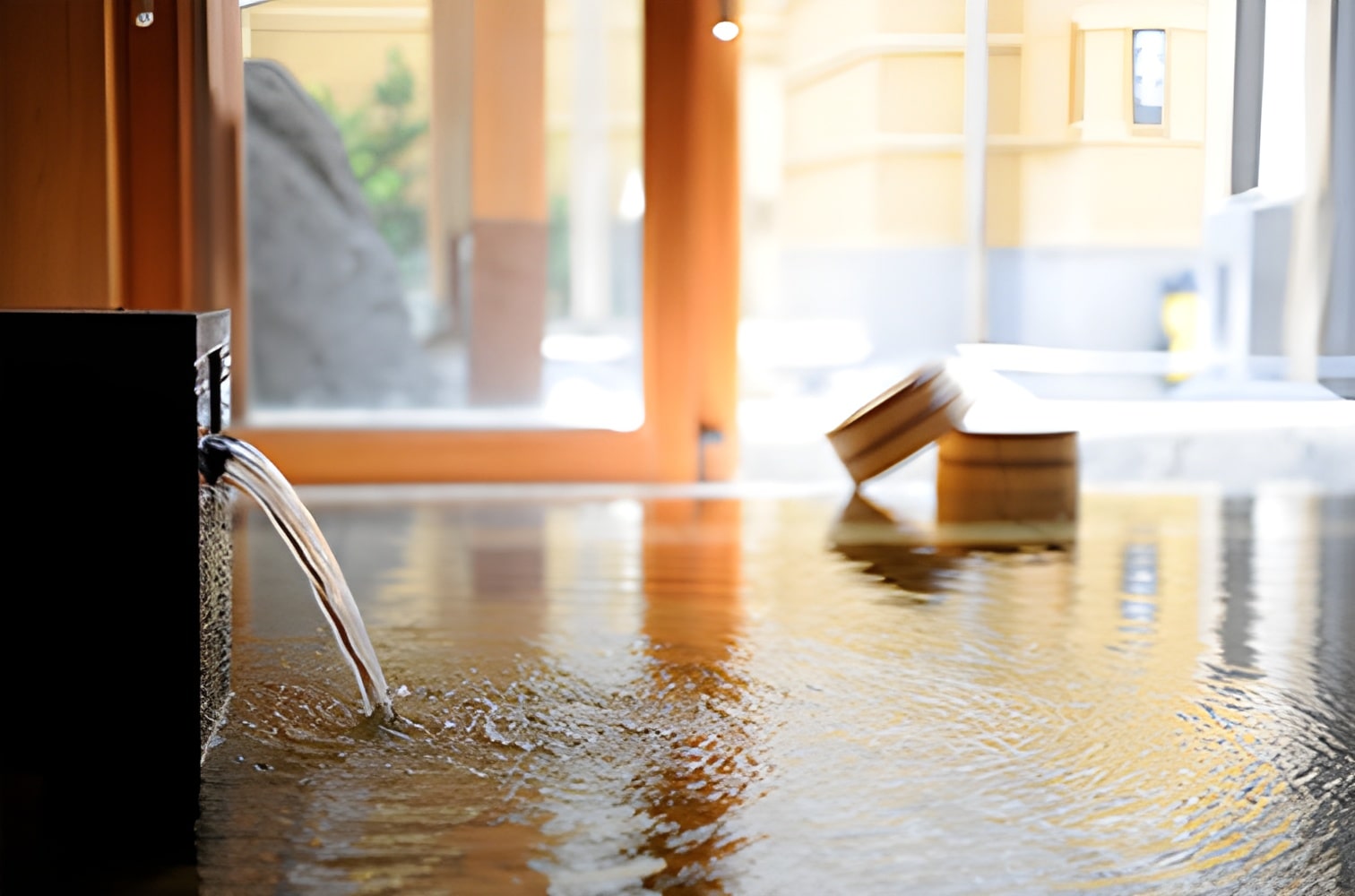
Tokyo Somei Onsen Sakura (東京染井温泉 SAKURA) is a natural hot spring located in a residential area of Toshima Ward. Its sodium chloride-rich waters are said to be ideal for alleviating chronic muscle and joint pain, improving gastrointestinal function, and aiding in the recovery from illness and exhaustion.
For those seeking relaxation beyond the baths, Tokyo Somei Onsen Sakura features a hot stone sauna, a dining area serving a variety of cuisines, and a lounge for unwinding, so it’s a great option for a relaxing evening after a day of activities or simply to take a day off and forget about the world.
9. Onsen Sachi no Yu
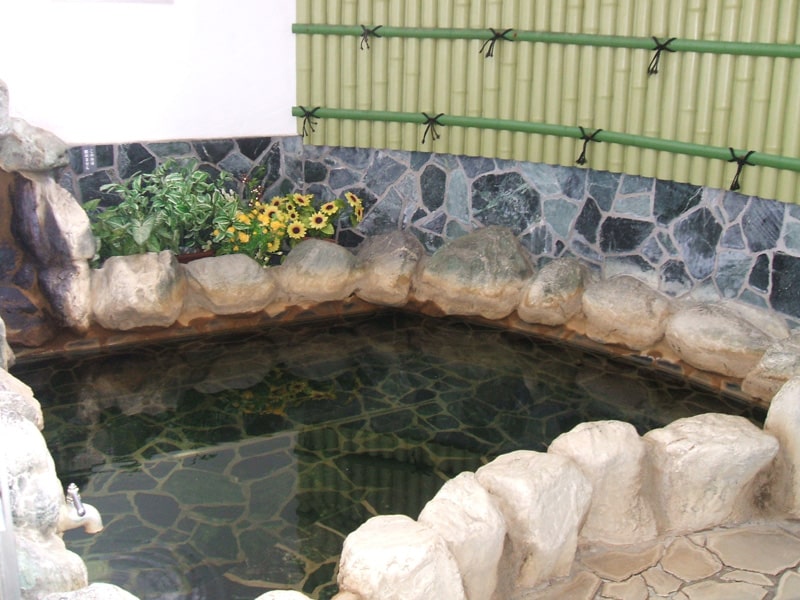
Onsen Sachi no Yu (天然温泉 幸の湯) and its characteristic waters with a light tea-brown hue are a mainstay among the most popular onsens in Tokyo thanks to its alkaline chloride cold mineral spring waters are believed to be effective for neuralgia, chronic skin diseases, chilblains, contusions, joint pains, and fatigue recovery.
In addition, it boasts comprehensive amenities, including a variety of baths such as electric and body massage baths, and a unique daily herb sauna that infuses the air with therapeutic aromas.
10. Izumi Tenku no Yu
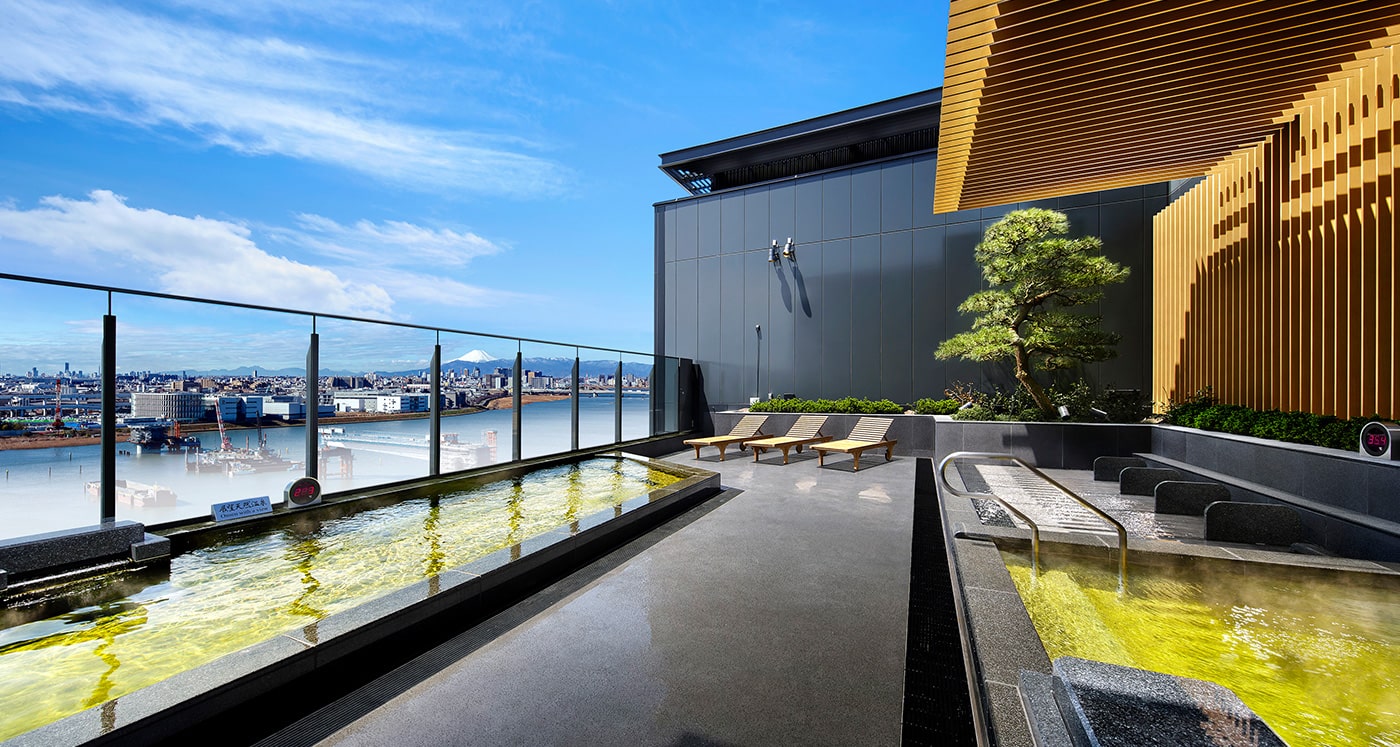
Izumi Tenku no Yu (泉天空の湯) , located within Haneda Airport Garden , is a unique hot spring experience directly connected to Haneda Airport, making it a perfect relaxation spot before or after a flight. It features an observation hot spring where visitors can enjoy views of airplanes or even Mount Fuji on a clear day while soaking in its therapeutic waters.
The facility is open 24 hours, although bathing is not available from 10:00 to 13:00 for cleanup (you can relax in the lounge or in the cafe meanwhile if needed).
In addition to the scenic outdoor baths, there’s a range of indoor baths, a dry sauna, and a bedrock bath, complemented by dining options for a complete rejuvenation experience.
For more information about leisure and traveling in Japan, check these articles below, too!
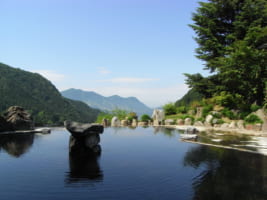
▽Related Articles▽
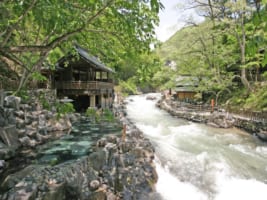
▼Editor’s Picks▼
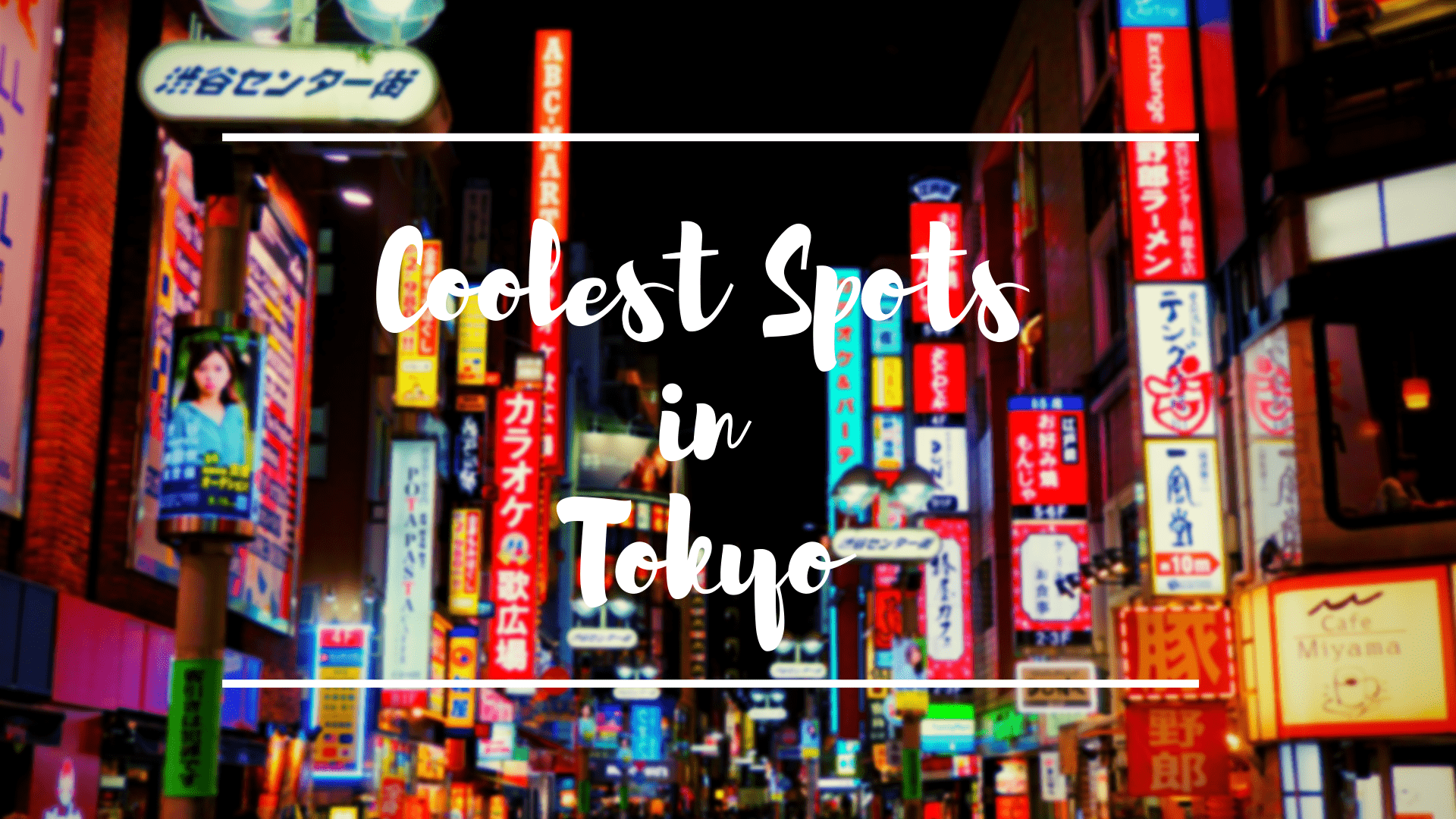
Photographer, journalist, and avid urban cyclist, making sense of Japan since 2017. I was born in Caracas and lived for 14 years in Barcelona before moving to Tokyo. Currently working towards my goal of visiting every prefecture in Japan, I hope to share with readers the everlasting joy of discovery and the neverending urge to keep exploring.
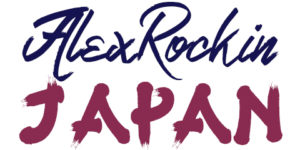
8 Best Onsen For Families With Children Near Tokyo
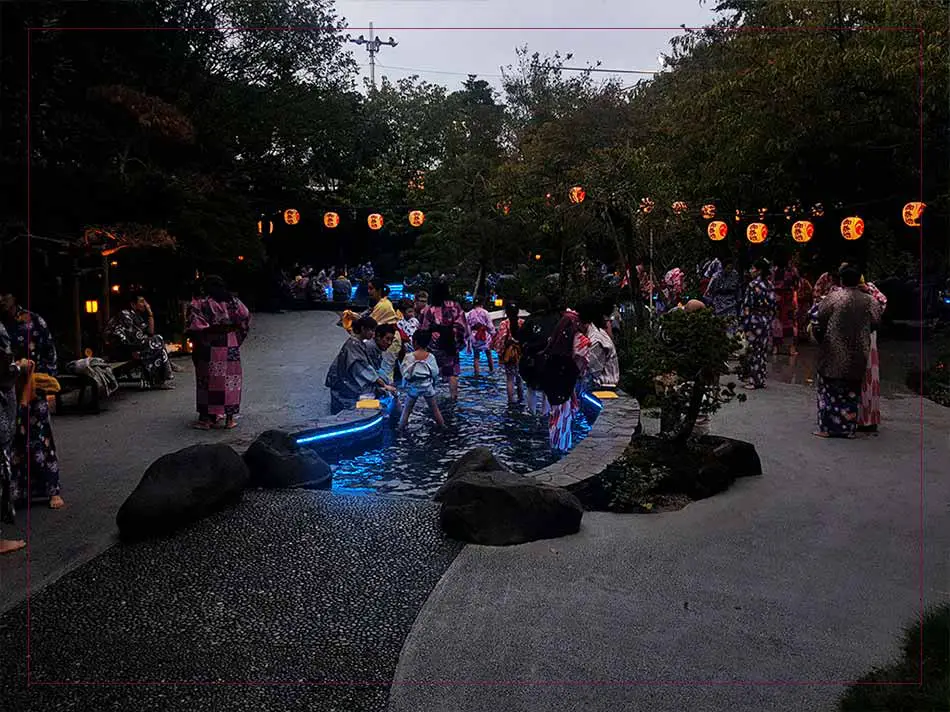
When planning your family trip to Japan you might be wondering about taking your children to a hot spring. Since I don’t have children I asked Japanese parents for help and they recommended me these 8 onsens for families with children in and near Tokyo city.
In Tokyo, the best onsens for families with children are Oedo Onsen Monogatari and Niwa No Yu, but for parents with a toddler or baby, Kom-Pal is considered the most kid-friendly Sento in Tokyo. As a day trip from Tokyo, you can find many family-friendly hot springs in Hakone and Ito Onsen.
The first 4 recommendations below are directly in Tokyo city. The other 4 family-friendly hot springs are near Tokyo, but so close that you can visit the onsen as a day trip. At the end of the post, I also have some general things you should know or keep in mind when visiting an onsen with your children.
1. Oedo-Onsen Monogatari (Odaiba)
Location: Odaiba, Near Ginza & Tsukiji Fish Market, Tokyo
General Information: Oedo-Onsen Monogatari (大江戸温泉物語) is located on Odaiba, a large artificial island overlooking Tokyo Bay. The island is actually one of my favorite places in Tokyo and I bring all of my family and friends there whenever they come to visit me. The futuristic ride over the Rainbow Bridge is already a highlight immediately followed by the giant Gundam Statue and plenty of other places for amusement and entertainment. I’m sure your children will love this place, too!
Onsen Theme Park: This is one of the best onsens in Tokyo for families with children because it is not only a real natural hot spring with open-air baths but also an Onsen town-themed amusement park. So in between or after soaking, your children can show how good they are at being a ninja or try out different traditional Japanese summer festival games. There is also a large Japanese Garden themed foot bath where you and your family can stroll around in Yukata.
The changing area, where you put on your free Yukata, and the onsen’s indoor and outdoor bathing facilities are gender-separated, but you can enjoy the open-air foot bath and the amusement area altogether as a family. If you or your children get hungry you will also find plenty of eateries offering traditional Japanese food from Ramen to Sushi as well as old-fashioned Japanese candy and treats.
The last time I went there with one of my friends, I saw many Japanese families with children and also a few toddlers. The only downside might be that Oedo-Onsen Monogatari is a bit more expensive than a normal onsen. But it also offers more entertainment than other onsen baths.
- Adults & children over the age of 12: ¥2,720 ($25 or 23€)
- Children ages 4 – 12: ¥1,058 ($10 or 9€)
- No fee for children under the age of 4
Access: The nearest Station is Telecom Center Station on the Yurikamome Line. This is the same line that brings you to the island via the Rainbow Bridge. From the station, it is a 6-minute walk to the Onsen. You can get to the onsen in about 30 minutes from Ginza and the Fish Market. Shibuya is about 40 minutes away and Shinjuku is about 50 minutes away. Unfortunately, the JR Pass is not valid on the trains towards Odaiba (Yurikamome Line and Rinkai Line).
Website: www.daiba.ooedoonsen.jp
2. Kom-Pal (Near Shibuya)
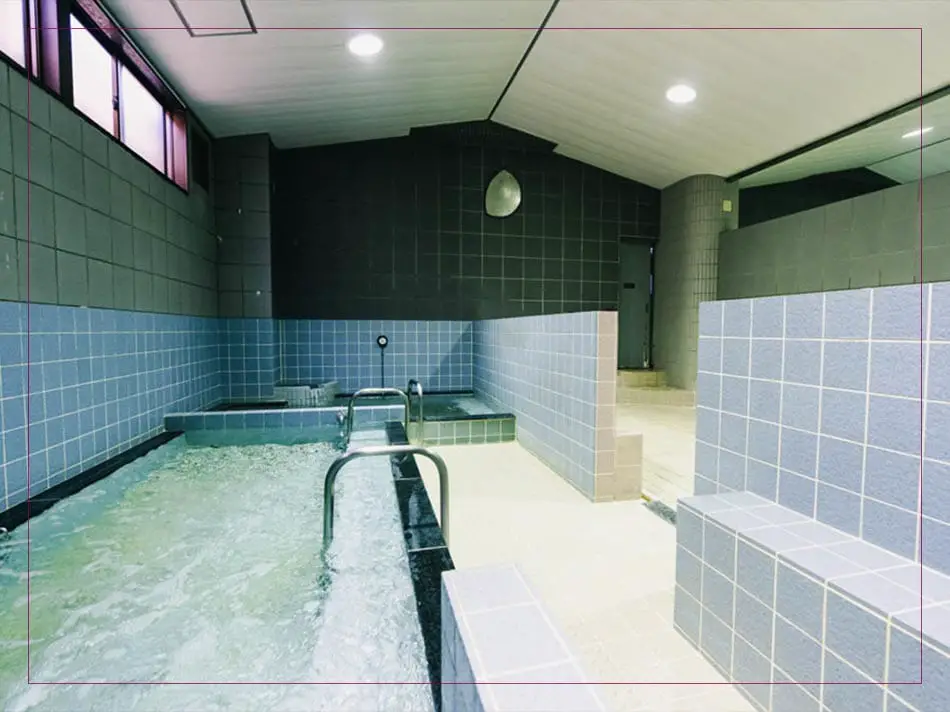
Location: Osaki, Between Shibuya & Shinagawa, Tokyo
General Information: Kom-Pal or Konparu-Yu (金春湯) is a family-friendly and authentic public bathhouse near Meguro River and right in the center of Tokyo. I’m pretty sure you have seen pictures of Meguro before since the river has become one of Tokyo’s most famous Hanami spots. Meguro is a more residential part of Tokyo and less popular for sightseeing, but Rinshi-No-Mori is a nice park to visit with children. You could also go to the unique Parasitological Museum. Shibuya, Meiji Shrine, Yoyogi Park, and other more famous sights are about half an hour away.
Family-Friendly Sento: This is actually not an onsen, but a public bathhouse called “Sento” in Japanese. Before you dismiss this option let me explain! Usually, I refrain from recommending public bathhouses in my onsen posts, but Tokyo is not an onsen town (there are a lot of amazing onsen towns near Tokyo , though) and the options are extremely limited. While a Sento is definitely not the same as an onsen, it still provides a similar and very authentic Japanese bathing experience. Out of all the family-friendly onsen and bathing facilities that I found directly in Tokyo, Kom-Pal is the most traditional one, in my opinion.
The gender-separated Sento has a history of nearly 100 years. It has 3 cozy indoor baths. One bath with a temperature of 42°C, one with a temperature of 40°C, and a cold one. Its bathing facilities are really, really basic but it is considered one of the most kid and family-friendly Sento in Tokyo. They have all kinds of toys children can play with while taking a bath and they also offer kids’ shampoo and a bath mat for babies for free. If you have very young children or a toddler, this is definitely the best place to go. The owner also has 2 really cute kids.
- Adults & children over the age of 12: ¥470 ($4 or 4€)
- Kids ages 13 – 15: ¥300 ($3 or 3€)
- Kids ages 7 – 12: ¥180 ($1.70 or 1.50€)
- Children younger: ¥80 ($0.80 or 0.80€)
Access: 12 minutes on foot from JR Osaki Station on the Yamanote Line
Website: www.kom-pal.com (Japanese only)
3. Toshimaen Niwa No Yu Onsen (Near Ikebukuro)
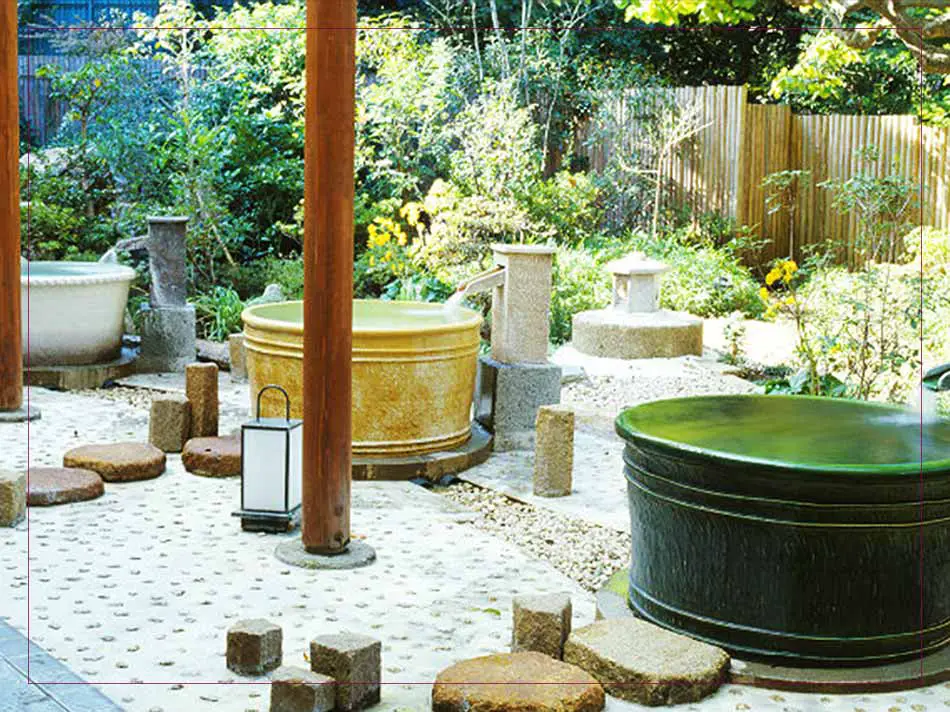
Location: Toshimaen, Near Ikebukuro & Shinjuku, Tokyo
General Information: Toshimaen Niwa No Yu (豊島園 庭の湯) sometimes also written as Niwa-no-yu is a natural onsen spa and bathing facility in Tokyo. You can get there in about 18 minutes from Ikebukuro Station and in about 24 minutes from Shinjuku Station. Both places are among the top 10 most visited spots in Tokyo. Sunshine City in Ikebukuro, for example, is a 240-meter-tall skyscraper perfect for shopping and entertainment and the Tokyo Metropolitan Government Office in Shinjuku has a free observatory from where you can see Mt. Fuji. Just around the corner from the spa is also Toshimaen, a water park with rides, slides, and pools perfect for kids.
Family Onsen & Swimming Pool: Niwa No Yu Onsen is an excellent hot spring spa for families with older children. It features 2 zones, a very beautiful gender-separated onsen, and a swimming pool area where you can bathe together with your whole family wearing swimwear. The onsen facilities are the most beautiful you will find in Tokyo at the moment. Very traditional and natural with a huge variety of open-air and indoor baths. In the huge swimming pool area, you can enjoy heated pools, outdoor pools, and a jacuzzi. They also have a nice Japanese garden with colorful Koi carp.
This is my No. 1 recommendation for onsen in Tokyo, but unfortunately, you can only come here with your children if they are junior high school students. That means they have to be at least 12 years old. This is the only reason why I didn’t put it on top of this list. Still, if your children are old enough forget about the other options and come to this place. Niwa No Yu is perfect for families because in contrast to the other onsen you can bathe together. Not in the onsen, but in the swimming pool area at least. Also, if your children are too shy or too old to run around in their birthday suits you could still try out an onsen by yourself while your partner takes care of the children in the pool area.
- Adults & children over the age of 12: ¥2,370 ($22 or 20€)
- Only junior high school kids or older are allowed
Access: Toshimaen Station on the Seibu-Ikebukuro Line is the nearest station. From the station, it is just a short 3-minute walk to the onsen facilities. Definitely a plus, but unfortunately you can’t use your Japan Rail Pass because the line belongs to the Seibu Railway.
Website: www.niwanoyu.jp (English Translation available)
4. Spadium Japon (1 hour from Shinjuku)
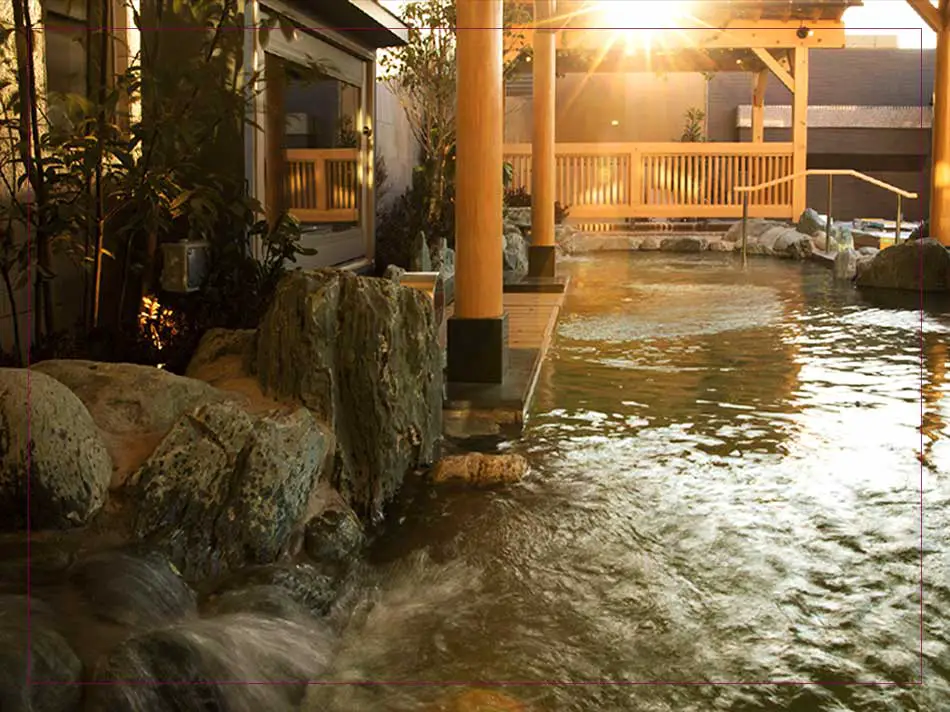
Location: Higashikurume, 1 hour from Ikebukuro & Shinjuku, Tokyo
General Information: Spadium Japon (スパジアム ジャポン) is a spa and wellness center located in the outskirts of Tokyo in Higashikurume. Honestly, I don’t know this area of Tokyo very well and after checking the surroundings I could only find Seibuen Amusement Park, a kid-friendly theme park, and the Tokorozawa Aviation Memorial Park, but both are about 1 hour away from the spa. That is about the same time it takes to Tokyo’s more famous sightseeing districts Ikebukuro, Shinjuku, and Shibuya.
Family Onsen Spa: This modern onsen spa has 3 floors and features 15 kinds of baths including a rotenburo (open-air bath), seasonal aroma baths, a silk bath, and many more. The open-air bath looks like a traditional Japanese onsen but the rest of the bathing facilities feel more like a typical spa. However, the onsen water comes from a real hot spring. According to their webpage, it is a transparent hot spring which is pretty rare in Tokyo. While the bathing facilities are gender-separated you can dine and relax together on the other floors after your bath. Sometimes they also have special kids or baby days.
If you have older kids and/or if you are looking for a more relaxing spa this might be a good alternative. However, two very important things. The spa has 2 electric baths. I know that they are supposed to be good for you but I have never dared to try them and so I don’t know how they are. But I am pretty sure it can be a bit of an unpleasant surprise, especially for children. So watch out for 電気風呂 (Denki Buro) and the “Sixpack Electric Jet Bath”. Also, since this place is popular among locals it can get pretty packed on the weekend.
This is also a tattoo-friendly onsen by the way. As long as you only have one tattoo and it can be covered you are allowed to enter. You have to tell the front and purchase one of their tattoo-cover seals, though.
- Adults & children over the age of 12: ¥850 ($8 or 7€)
- Children ages 7 – 12: ¥350 ($3 or 3€)
- Children ages 3 – 6: ¥100 ($1 or 1€)
- No fee for children under the age of 3
Access: The nearest station is Higashi-Kurume Station on the Seibu-Ikebukuro Line from where you can use the spa’s free shuttle bus (10-minute ride). Unfortunately, the Seibu-Ikebukuro Line is not covered by the Japan Rail Pass. From Ikebukuro, it takes about 45 minutes to get to the spa, from Shinjuku it takes about 1 hour.
Website: www.spajapan.com (Japanese only)
5. Hakone Kowakien Yunessun (2h from Tokyo)
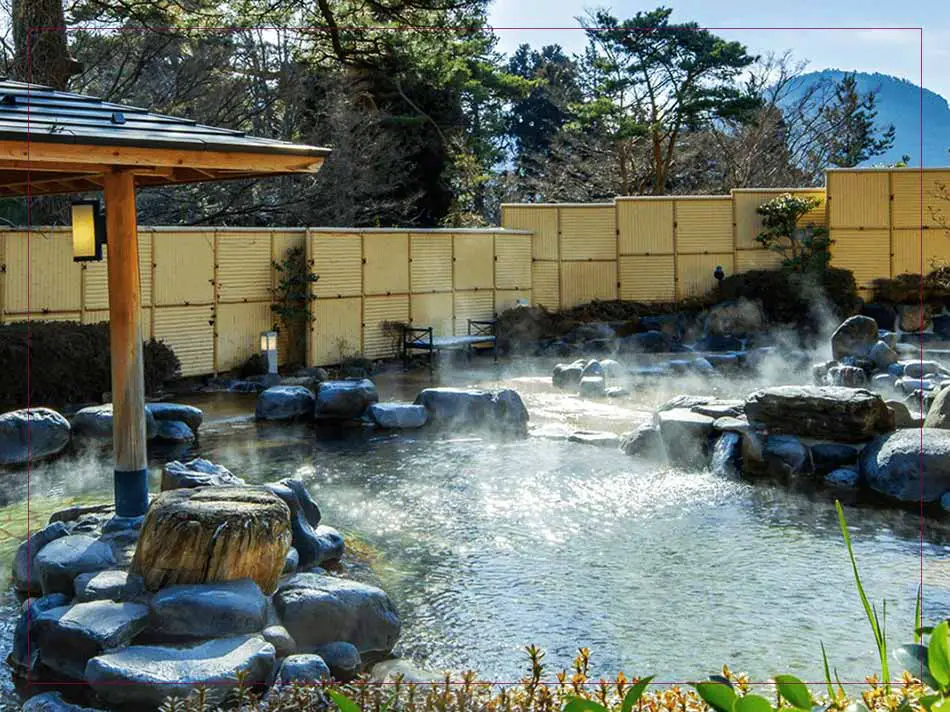
Location: Hakone, about 2 hours from Tokyo, Kanagawa Prefecture
General Information: Hakone Kowakien Yunessun (箱根 小涌園 ユネッサン) is an onsen theme park located in the famous hot spring and nature resort Hakone. It is part of the Fuji-Hakone-Izu National Park and one of the best and most popular day trip from Tokyo. I am going to write a whole article about this amazing hot spring destination, so stay tuned. From Tokyo, you can get to the onsen in about 1.5 hours if you take the Tokaido-Sanyo Shinkansen.
Onsen Theme Park: This onsen theme park consists of 2 areas. Mori no Yu is the name of the beautiful gender-separated onsen facility with open-air baths, a cypress bath, and pot baths. Yunessun, on the other hand, is a unisex swimming pool area with a lot of crazy pools. Outdoors you have water slides, cave baths, and a dragon waterfall. Indoors you have a wine bath, a coffee bath, a green tea bath, a Japanese sake bath, and more. It is not really a traditional onsen, but I am sure that the outdoor area and the crazy indoor baths will be a lot of fun for your children. In the Yunessun area, you are required to wear swimwear.
Private Onsen: From 11:00 – 20:00 o’clock you can rent a private onsen for your family. The costs are ¥3,000 ($28 or 25€) per hour.
- Adults & children over the age of 12: ¥3,500 ($32 or 29€)
- Children ages 7 – 12: ¥1,800 ($17 or 15€)
Access: Take the Shinkansen to Odawara Station, transfer to the Hakone Tozan Line, and get off at Kowakidani Station. From there it takes about 19 minutes to the onsen.
Website: www.yunessun.com
6. Enoshima Island Spa (1.5h from Tokyo)
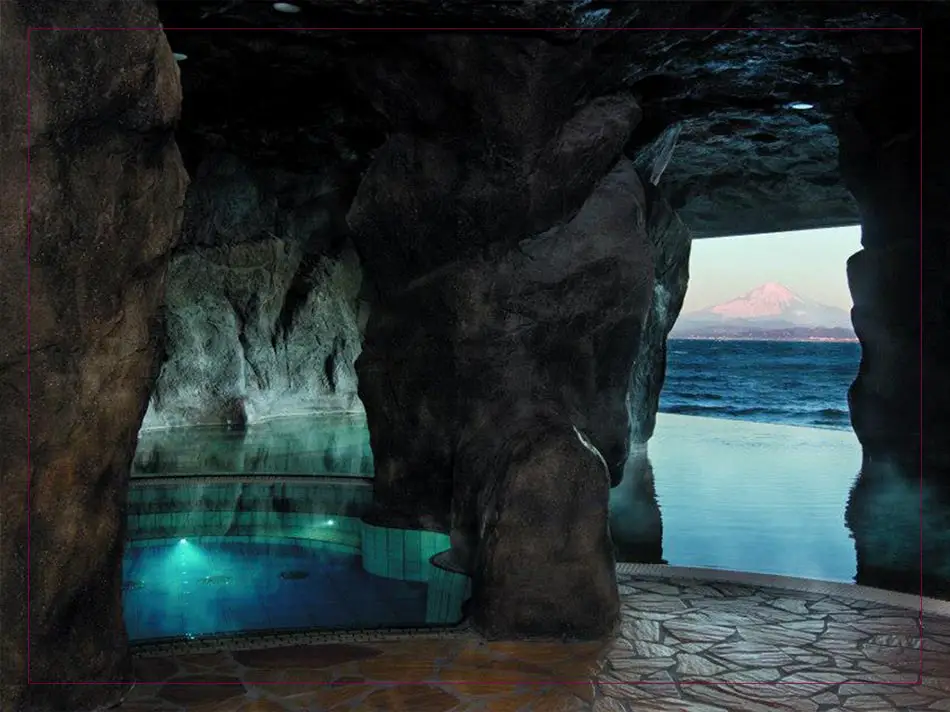
Location: Enoshima, Near Kamakura, 1.5 hours from Tokyo, Kanagawa Prefecture
General Information: Enoshima Island Spa (江の島アイランドスパ) or short EnoSpa is a fun onsen spa located on the same-named island near Kamakura. Enoshima is famous for its beaches and Kamakura is especially famous for its temples and a large Buddha Statue that you can go inside. When you are in Tokyo you should definitely make a day trip to Kamakura.
Family Onsen Spa: EnoSpa is a natural and modern onsen spa that spans over 2 floors. The first floor is a basic gender-separated onsen facility with a few different tubs. The other floor is a unisex swimming pool area where you have to wear swimsuits. Something that is especially cool for children is the cave area with waterfalls. In the evening this also turns into a romantic place for couples where you can enjoy the views of Mt. Fuji. In total the onsen has 10 different indoor and outdoor pools.
Now the bad. On Sunday the onsen spa is closed for children. Also, your children have to be at least 6 years old, otherwise, they are not allowed in.
- Adults & children over the age of 12: ¥3,175 ($29 or 26€)
- Children ages 6 – 12: ¥1,540 ($14 or 12€)
- Only elementary school kids or older are allowed
Access: 12 minutes walk from Katase-Enoshima Station on the Enoshima Line. This line is operated by Odakyu and is not covered by the JR Pass.
Website: www.enoshimaislandspa.com
7. Yusakasou Onsen Ryokan (1.5h from Tokyo)
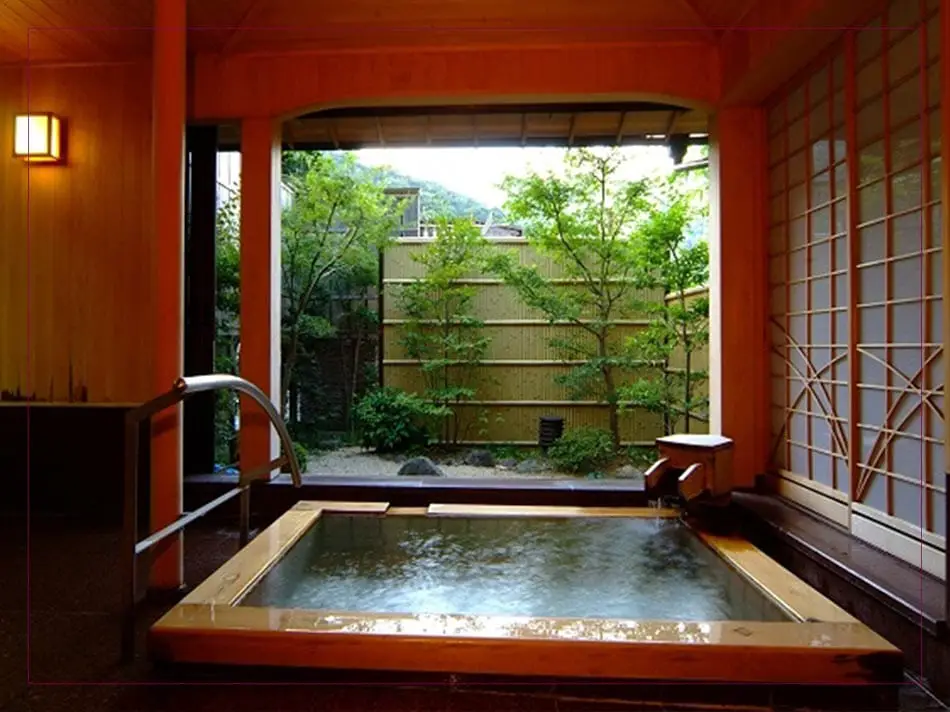
Location: Hakone, 1.5 hours from Tokyo, Kanagawa Prefecture
General Information: Yusakasou (湯さか荘) is an Onsen Ryokan located in Hakone. As I mentioned earlier you can get here from Tokyo in about 1.5 hours if you take the Tokaido-Sanyo Shinkansen.
Baby-Friendly Onsen Ryokan: This onsen ryokan has 4 types of baths: a mixed outdoor bath, an indoor male-only bath, an indoor female-only bath, and a private onsen. Since the outdoor bath is mixed your whole family can bathe together. Women can wear a special bath towel and from 8 – 9 o’clock it is a women-only bath.
They have a plan for day visitors where you can use one of their Japanese-style rooms from 14:30 – 20:00 o’clock. During that time you can soak in the mixed outdoor bath, you can also use the private onsen for 30 minutes for free, and they will serve you a Japanese Kaiseki dinner in your room.
In case you want to stay overnight, they also have a special baby plan. If your child is younger than 2 it can stay for free and your room will be equipped with diapers and a bottle warmer. Since the water for the onsen comes from an alkaline spring it is very gentle on babies’ skin.
Private Onsen: A semi-open-air cypress bath that can be reserved for 30 minutes upon arrival without any additional costs. The private onsen is also equipped with a diaper changing station and soap for babies.
- ¥11,000 ($102 or 91€) for adults and children (12+)
- ¥7,700 ($71 or 65€) for children (7 – 12)
- ¥2,200 ($20 or 18€) for younger children
Access: Take the Shinkansen to Odawara Station, and transfer to the local Hakone Tozan Railway. Get off at Hakone-Yumoto Station from where it is an 18-minute walk to the onsen ryokan. The Shinkansen ride to Odawara is covered by the JR Pass, but not the rest of the trip.
Website: www.yusaka.jp (Japanese only)
8. Hotel Epinard Nasu (2.5h from Tokyo)
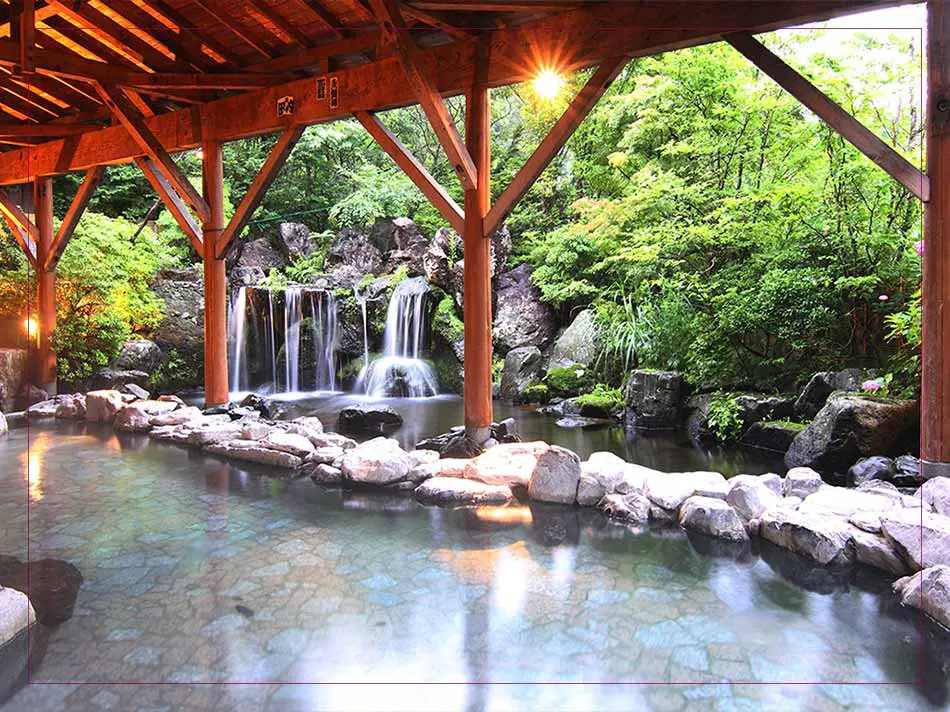
Location: Nasu-Shiobara Onsen, 2.5 hours from Tokyo, Tochigi Prefecture
General Information: Hotel Epinard Nasu (ホテルエピナール那須) is a family-friendly onsen hotel located in Nasu. You can get there in about 2 hours from Tokyo. The hotel is part of Nasu-Shiobara Onsen, a tranquil hot spring resort part of the Nikko National Park and surrounded by nature. It is less than 100 kilometers away from Nikko, another day trip you definitely can’t miss when you are in Tokyo, but by train, it would still take about 2 – 3 hours.
Family Onsen Hotel: The hotel’s bathing facilities consist of an onsen area with a variety of indoor pools and a beautiful open-air bath, as well as a large swimming pool with a kid’s area. The onsen is equipped with baby beds, bathing chairs, and soap for babies. They also have free swim helpers for children. If you are staying overnight you can use the bathing facilities for free, but the hotel also opens its doors to day trippers. As with the other facilities on my list, the onsen is gender-separated, but the pool is unisex, of course. So don’t forget to bring your swimsuit when you go to the pool.
- Adults & children over the age of 12: ¥1,109 ($10 or 10€)
- Children ages 7 – 12: ¥809 ($8 or 7€)
- Children under the age of 7: ¥500 ($5 or 4€)
Access: The nearest JR station is Nasushiobara Station from where it is a 30-minute bus ride and a 20-minute walk to the hotel. They also have a free shuttle bus that only takes 30 minutes from the station, but you need to tell them in advance.
Website: www.epinard.jp (Japanese only)
Bonus: Family-Friendly Onsen Ryokan Near Tokyo
Two other recommendations for family-friendly onsen ryokans I got are Yutaka (ゆたか) in Kusatsu Onsen and Hotel Epinard Nasu (ホテル エピナール 那須) in Nasu Onsen.
Inatori Akao Hotel Kaifuro (赤尾ホテル 海諷廊) is a modern and nice onsen hotel located on the Izu Peninsula in Shizuoka. The peninsula can be reached in about 2 – 3 hours from Tokyo and is famous for its onsen towns Atami, Ito, and Shimoda. Besides a beautiful onsen bath with rotenburo, the hotel also has 6 private hot spring baths. They are equipped with a baby bed and baby chairs and therefore perfect if you are traveling with a young toddler.
Another option I would like to recommend for younger children, not a natural onsen, though, is Hoshino Resort Risonare Yatsugatake (星野リゾート リゾナーレ八ヶ岳). It is about 3 hours away in Yamanashi Prefecture. One of my friends went there with her family (2 children) just a week ago and she loved it because her children had so much fun playing in the water area for kids. She showed me pictures of it and it looks so cool but also really safe.
Know Before You Go to an Onsen With Children
- Babies and toddlers that are still wearing diapers or haven’t been potty trained yet are usually not allowed to enter onsen baths. So, in that case, I would rather suggest you rent a private onsen or stay at an onsen ryokan with a family onsen bath
- Children up until the age of 7 can accompany their parent of the opposite sex
- If your child is older than 12, you usually have to pay the full adult ticket price
- Onsens can be extremely hot and are often way too hot for young children. So warn them before they enter the tub and try to find the ones that have a lower temperature. Also, try to stay away from the tap or the place where the hot spring water flows into the tub
- Don’t forget to tell your children that they can’t wear a swimsuit or swim trunks and that everybody will be in their birthday suit before entering the onsen
- Children with sensitive skin should better take a shower or rinse after the onsen . I explain everything about it in my post about the beauty benefits of onsen for your skin . You will also find more recommended onsen towns that you can visit if you or your children have sensitive skin
Hey. I'm Alex. I've been living in Japan since 2015. Before moving to Tokyo, I traveled through Japan for 7 months to visit all 47 prefectures. Traveling and living in Japan has been so much fun and such an incredible experience that I decided to write about it. Hopefully, my articles help you to get the most out of your trip and to fully enjoy your time in Japan! Feel for free follow me on Twitter and/or Instagram .
Recent Posts
All About Meiji Jingu: What to See & Do, Hours, Fee, Access
Meiji Jingu (明治神宮), also known as Meiji Shrine, is a famous Shinto shrine in Tokyo that is surrounded by a large evergreen sacred forest and known for its beautiful wooden architecture. It is...
How Much is an Onsen in Japan? 15 Examples from 100円 ($1,1€)
Before you are actually planning a trip to a hot spring you might be wondering how much it costs to visit an onsen in Japan. Luckily, there are a lot of awesome but affordable hot springs and...

7 Best onsen around Tokyo for winter to warm up your bodies
by Flip Japan Guide | Dec 4, 2021 | Blogs , Japan Travel , Winter in Japan | 0 comments
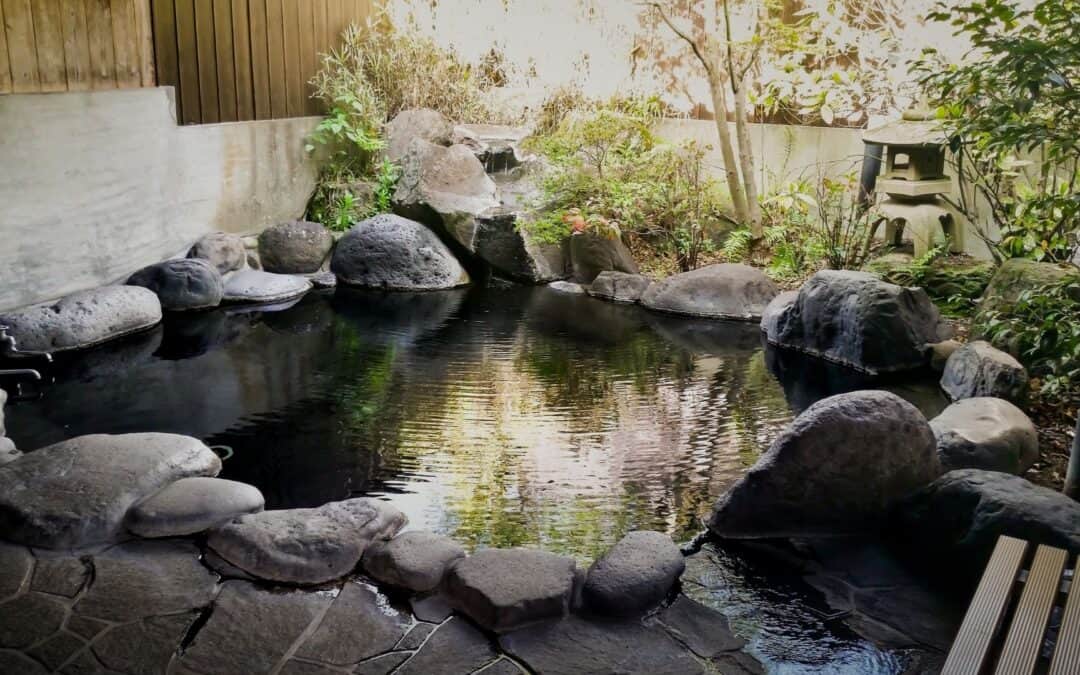
In Japanese, onsen means to take a natural hot spring bath. Many say that you haven’t actually been to Japan unless you have had an onsen trip. Onsen is believed to be having therapeutic benefits for both your body and your mind. Thanks to Japan’s unique geographical location and volcanic activities, there are so many onsen spots all around the country. So, which onsen around Tokyo do you want to visit?
Check out what to do in Winter , best illuminations in Tokyo , best illuminations in Japan , illumination day trips , best ski resorts , winter festivals , best onsen spots and ways to escape the cold in winter in Japan .
Table of Contents
Onsen around Tokyo
1. [yamagata] ginzan onsen.
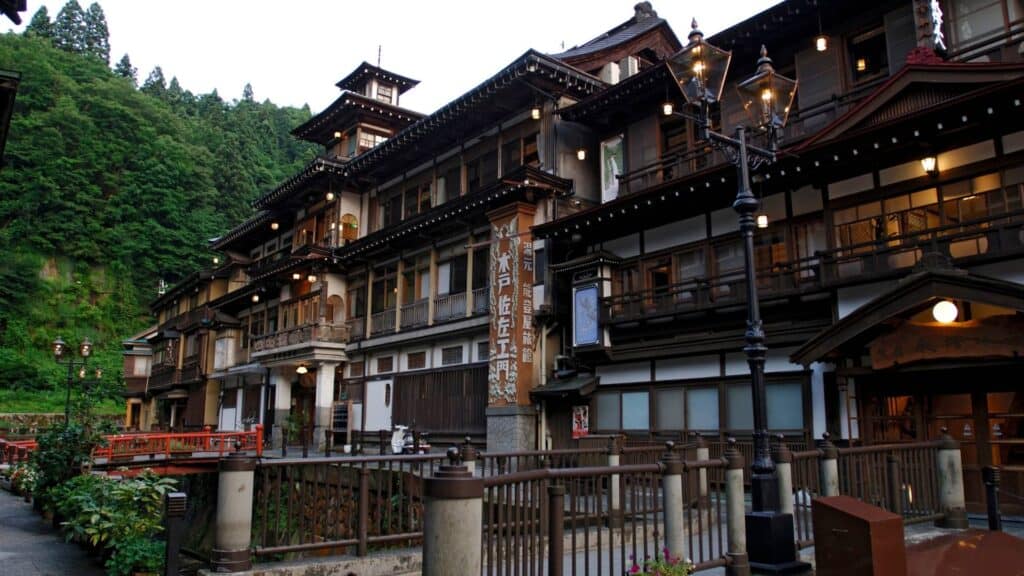
Ginzan Onsen stands quietly in the mountains of Obanazawa City, Yamagata Prefecture. Ginzan Onsen is a hot spring town with hints of the Taisho period with its nostalgic cityscape. This place is the setting for the NHK TV series “Oshin”, bringing it in the limelight and its name has been spread nationwide.
Although it is a small hot spring town, Western-style wooden multi-story inns built from the end of the Taisho era to the early Showa era are lined up along both banks of the Ginzan River, along with the red-painted bridges and retro wooden inns float with gas lights.
At dusk, the gas lamps standing at the foot of the bridge illuminate the hot spring town, creating a romantic atmosphere. In winter, you will be surrounded by a fantastic world of snow. Many tourists from all over the country come to see this scenery, and it is crowded around the year-end and New Year holidays.
Ginzan Onsen is especially beautiful in the snowy landscape, and many tourists come to see it in winter. Take a scroll around this hot spring town and enjoy different delicious hot pot dishes at hot springs and inns.
2. [Kanagawa Prefecture] Hakone Onsenkyo
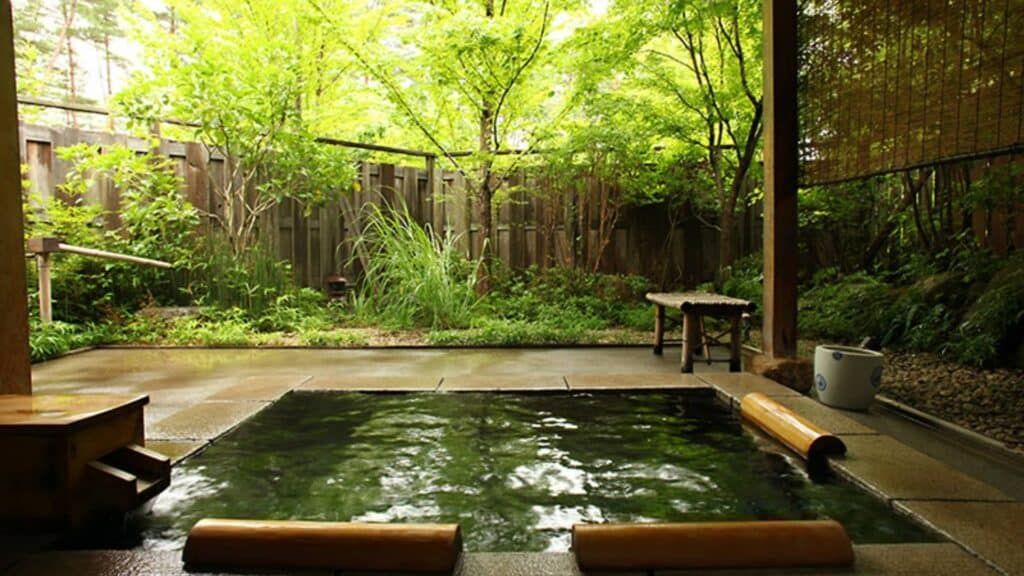
Hakone Onsenkyo is well-known nationwide. It is said that the milky white nigori hot spring water has a skin-beautifying effect, and the skin after bathing is moist and smooth. This onsen can help you remove unwanted dead skin cells.
From Hakone, you can see the magnificent view of Mt. Fuji. It is said that in the winter season, the air is extra clear and you can see far into the horizon. Fuji reflects beautifully on the surface of Lake Ashi, especially from December to February. Since Mt. Fuji is covered in snow in winter, the scenery is extra gorgeous.
3. [Gunma Prefecture] Kusatsu Onsen
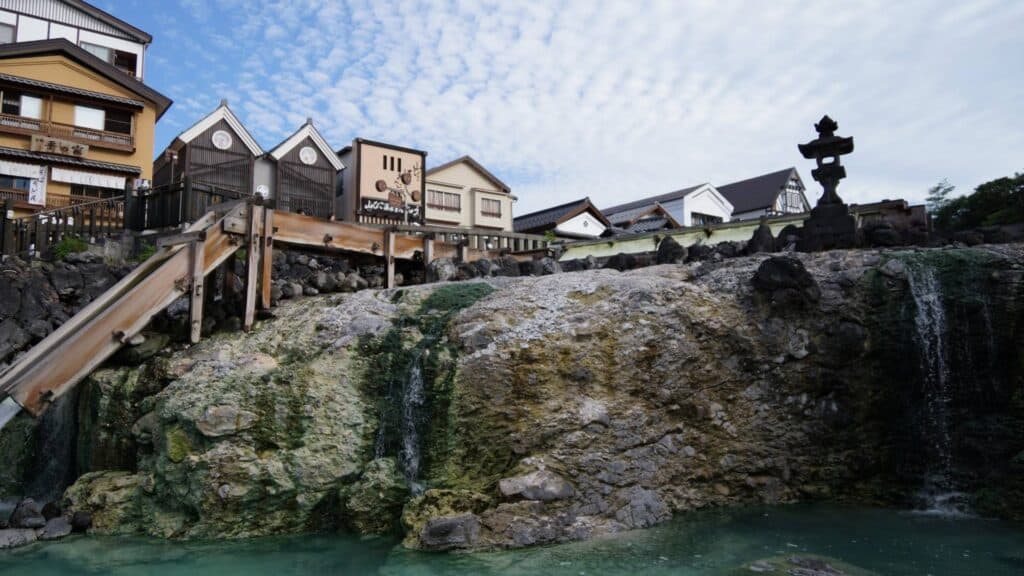
Kusatsu Onsen has been visited by many celebrities and the area is known for having the largest amount of natural springs in Japan. The place has become incredibly famous after a visit by a German doctor, Erwin Bälz. Dr. Bälz served for the Japanese Imperial Family and promoted Kusatsu, because he believed that Kusatsu’s water has health benefits.The sight of the emerald-colored water flowing down like a waterfall and the smoke rising is breathtaking.
Kusatsu Osen is located in Gunma prefecture and is about 4 hours away from Tokyo. You can get there easily by taking an express train.
Another fun fact about Kusatsu Onsen (and perhaps it is another reason behind its popularity): unlike most other onsen, this place is tattoo-friendly! 🙂
4. [Gifu Prefecture] Gero Onsen
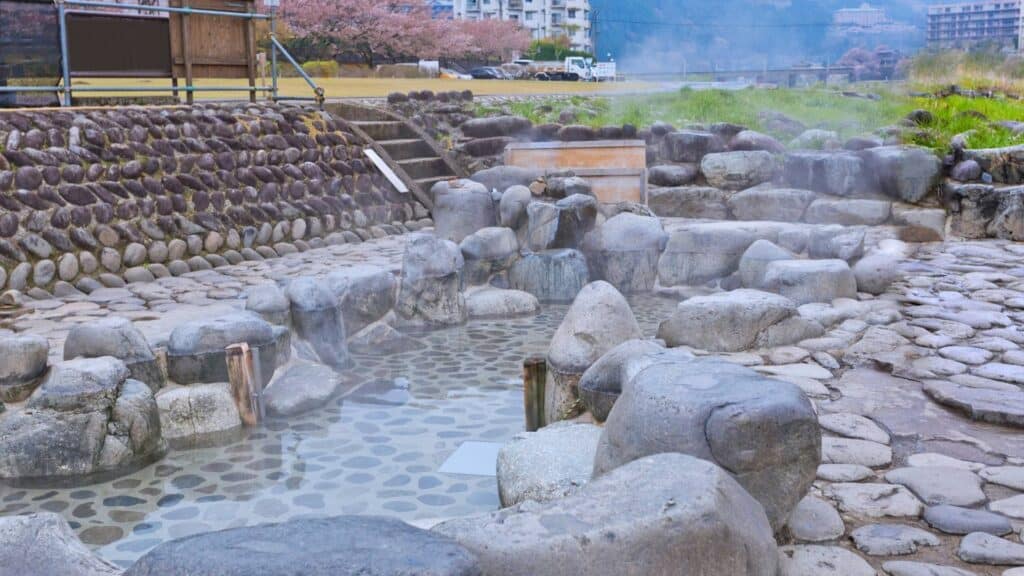
Gero Onsen, one of Japan’s three famous hot springs, is lined with more than 40 hot spring inns along the Hida River, and footbaths are scattered throughout the hot spring town.
Take a leisurely stroll through the charming town where inns and souvenir shops are lined up. If you visit during the end of the year and New Year holidays, you can immerse yourself in the festivities.
It is also famous as a hot spring for beauty because the soap effect of the alkaline spring quality makes the skin smooth. You can enjoy the rich nature of Gero from the open-air baths and observatory baths of the elaborate hot spring inn.
After experiencing the history and culture of the hot spring town and enjoying the hot spring tour, there are also many gourmet dishes made with local ingredients that you can taste!
5. [Oita Prefecture] Yufuin Onsen
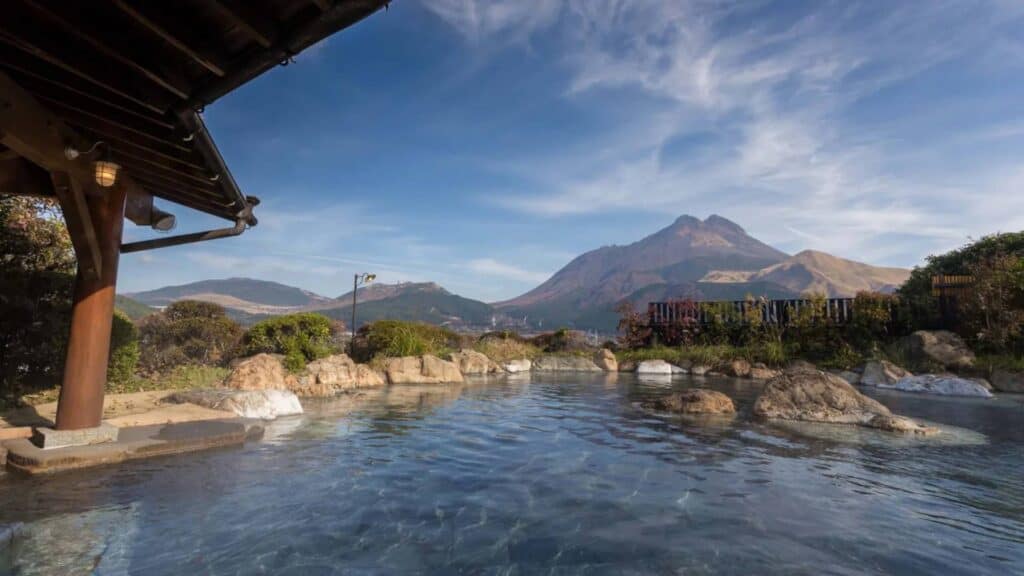
Yufuin Onsen is full of warmth, where the idyllic nature and the hot spring town are in harmony. Since it is one of the most popular hot spring resorts in Japan, it is especially crowded with people who want to spend a luxurious time during the year-end and New Year holidays.
Besides the Yufuin Onsen, there are many sightseeing spots such as Kinrin Lake, which is a mysterious lake with hot springs and cold springs, and Yufudake, which is the symbol of Yufuin, so it is attractive that there are various ways to enjoy it besides hot springs.
The inns are mainly Japanese-style inns with a calm atmosphere, including the famous inn called “Yufuin Gosanke”. Yufuin’s hot water has no peculiarity and is characterised by its smooth feel, and is said to be effective in relieving tiredness.
6. [Ehime Prefecture] Dogo Onsen
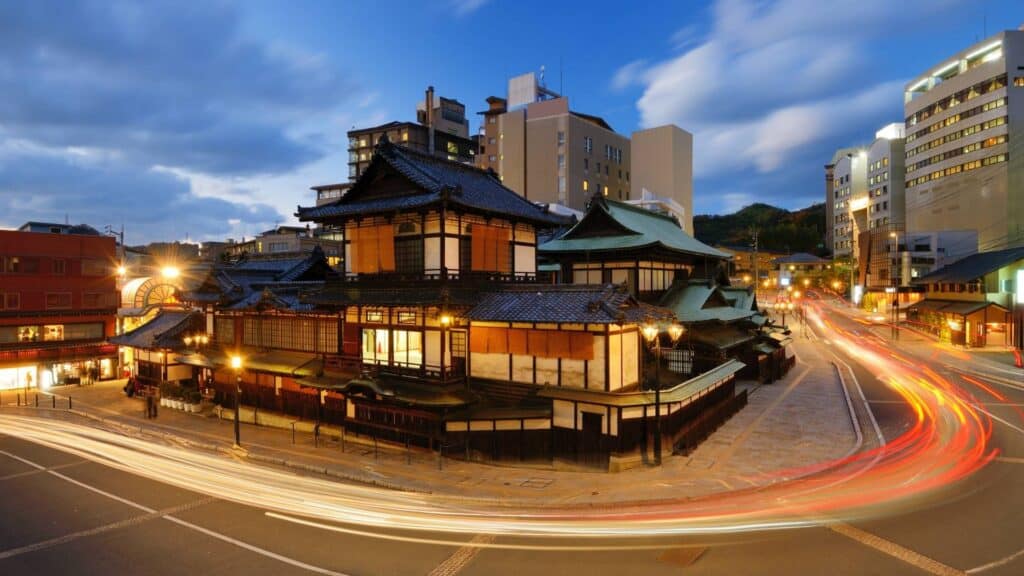
Dogo Onsen is well-known for its history of 3,000 years. The main building has a magnificent appearance of a wooden three-story building and is designated as an important cultural property.
The inside of the building, which has the same remnants of the Meiji era, is like a labyrinth. There are two types of bathing courses, “Kami no Yu” and “Rei no Yu”, in the intricate building, and there are four bathing courses.
Dogo Onsen is said to be good for dry skin and it is perfect for winter, since the temperature can be dry. Besides the hot springs, there are other attractions such as the private room “Botchan no Ma”, which is related to Natsume Soseki. It is a must-see for history lovers!
7. [Hokkaido] Noboribetsu Onsen
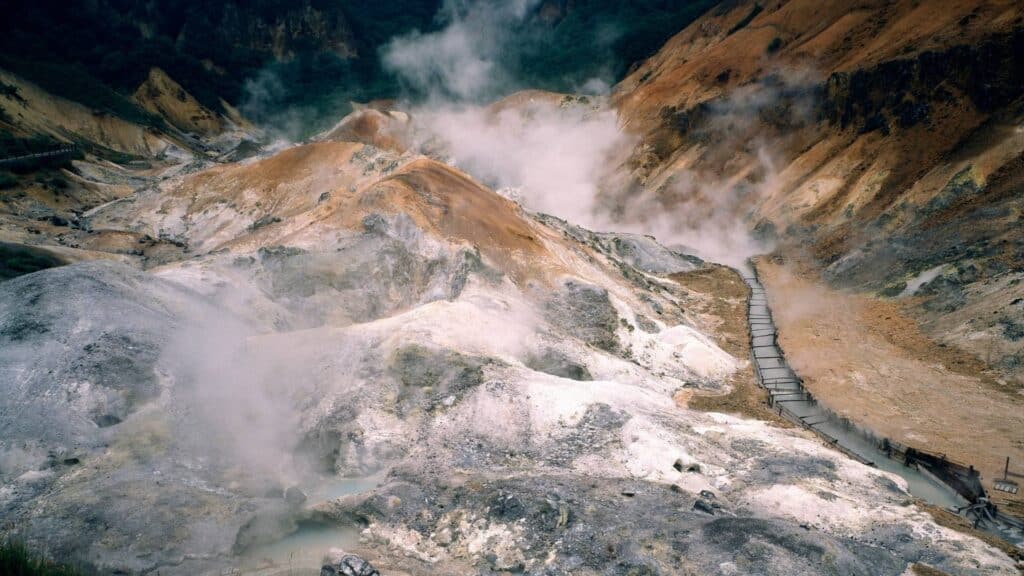
At Noboribetsu Onsen, one of the famous hot spring areas in Hokkaido, you can enjoy the relaxing onsen while being surrounded by nature. There is a huge variety of onsen here and with all the ryokan options available to you, you will definitely be able to find something that’s right for you.
The resort town consists of many ryokan and hotels with onsen and many of them allow you to use them during the day even if you’re not staying there.
A lot of the onsen here have different natural stones to help stimulate the acupuncture points on the soles of your feet, improving your blood flow, which is excellent for poor circulation and swelling!
After enjoying onsen, take a walk in the wilderness and feel the gorgeous atmosphere. It is especially recommended during the snowy winter season because it offers fantastic scenery.
Have you ever ever relaxed in warm onsen spring water while taking in the gorgeous winter scenery? These beautiful onsen spots are stunning and I hope you get to check out these places for yourself.
Stay tuned for more information about Japan travel , Japanese culture , moving to Japan , living in Japan , Japanese language and more.
Submit a Comment Cancel reply
Your email address will not be published. Required fields are marked *
Save my name, email, and website in this browser for the next time I comment.
Recent Posts
- The Best Japan Internet Access Options: Budget SIM Card Versus Pocket WiFi
- 29 Best Summer Destinations in Japan
- Top Places to Visit in Japan in June: Revealing 15 Must-See Destinations
- One Night in Tokyo: Insider Tips for an Epic Mini Adventure
- 17 Spine-Chilling Haunted Places in Japan to Discover
Recent Comments
- Tere Bellido on Autumn in Japan: 60+ Spots to Enjoy Autumn Leaves (Koyo) from September to December
- Vijay Singh on Ultimate guide to Zamami Island in Okinawa: What to do and hidden gems
- Lori on Overnight & Weekend Trip Ideas from Tokyo
- Robie on How much does it cost to live in Japan? You might be surprised
- Sidney Johnson on How much does it cost to live in Japan? You might be surprised
15 Best Onsen near Tokyo | Great View and Traditional Experience
Published on 2022-06-13 by Sakura Mobile

- I want to find a hot spring that I can go to on a day trip or weekend trip from Tokyo.
- I want to know which hot springs are easily accessible from Tokyo by train or bus.
- I want to go to an outdoor hot spring near Tokyo where I can enjoy a great view.
In this article, the Sakura Mobile Blog Team has selected 15 of the best hot spring spots near Tokyo. From open-air baths with spectacular ocean views to ryokan (Japanese inns) where you can experience Japanese traditions to hot spring resorts popular among international travelers, these are all great places to visit at least once.
If you are coming to Tokyo on a vacation, be sure to check them out.
Let’s get started!
Have you booked your SIM card or pocket WiFi for your trip to Japan yet?
In Japan, you’ll want to be connected without missing out on high speed data and internet!
By reserving online before departing, you can
- Lower your rental fees
- Avoid stock shortages at the airport
To learn more about data and WiFi options for your trip, check out our products below.
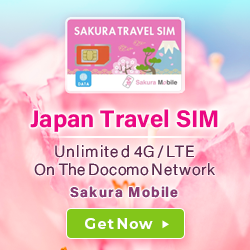
Hello readers! Sakura Mobile is a SIM & WiFi service provider for international residents and tourists in Japan.
Our global editorial team living in Japan will introduce the charms of the country based on what we have actually experienced and felt.
Table of Contents
- Boso Kamogawa Onsen – ZEKUU – (房総鴨川温泉 是空-ZEKUU-)
- Akazawa Day-Trip Onsenkan (赤沢日帰り温泉館)
- Hiratsuru (平鶴)
- Seiryu (清流)
- Shiriyaki Onsen (尻焼温泉)
- Tsumagoi Prince Hotel (嬬恋プリンスホテル)
- Hishino Onsen Tokiwakan (菱野温泉 常盤館)
- Modern Toji Only Yu (モダン湯治 おんりーゆー)
- Maguse Onsen (馬曲温泉)
- Ikaho Onsen (伊香保温泉)
- Kusatsu Onsen (草津温泉)
- Hakone Onsen (箱根温泉)
- Kinugawa Onsen (鬼怒川温泉)
- Atami Onsen (熱海温泉)
- Nasu Onsen (那須温泉)
9 Best Onsen Ryokan/Hotels near Tokyo
First, we will introduce the 9 best onsen ryokan/hotels near Tokyo. You can access all of these places within one to three hours from Tokyo by trains and buses.
It is unbelievable how close these places are to Tokyo. They also come with amazing views.
We will introduce them below.
1. Boso Kamogawa Onsen – ZEKUU – (房総鴨川温泉 是空-ZEKUU-)

Boso is a Japanese-style hot spring inn located along the coast of Chiba Prefecture, about a two-hour train ride from Tokyo Station. The inn is built on a cliff carved by the rough waves of the Pacific Ocean and offers a stunning ocean view.

This hot spring inn has a large public bath, and the private outdoor bath is the most attractive feature. The private baths are located on an open-air terrace and offer a panoramic view of the infinitely wide sky and sea. It is truly the ultimate place to relax.
The bath is available from 6:00 am to 9:30 am and from 3:00 pm to 11:00 pm, so you can watch the sun rise or the sun set over the ocean. Spending that kind of time with your loved ones would definitely make a great memory!

If you are looking for something a little more luxurious, stay in a guest room with an open-air hot spring. When your body gets hot from the hot water, you can sit on the bench right next to it and let the sea breeze cool you down.
At Boso, you can enjoy a course meal that uses a lot of locally caught seafood and freshly grown vegetables. The fresh lobster, abalone, and local fish dishes are especially popular. These are some of the most expensive seafood ingredients in Japan, so be sure to try them.
Information
- Onsen : Boso Kamogawa Onsen – ZEKUU – (房総鴨川温泉 是空-ZEKUU-)
- Price : Starting from around 26,400 JPY/person per night
- Map : Google Maps
- Access : 2 hr. 20 min. by train from Tokyo sta.
- Tattoo : No tattoos allowed
- Visit Official Site
↑ Go back to the table of contents
2. Akazawa Higaeri Onsenkan (赤沢日帰り温泉館)

Lying between the Izu Kogen Forest and the Pacific Ocean is the Akazawa Higaeri Onsenkan. It takes around two hours from Tokyo to Akazawa Higaeri Onsenkan by riding the Tokaido-Sanyo Shinkansen.
The Akazawa Higaeri Onsenkan has many kinds of hot springs. The most popular ones are the open-air hot springs that lie at a height of 20 meters and 25 meters above sea level. You can view both the scenic beauty of the Pacific Ocean and the Izu Kogen Forest from these hot springs.

Soaking in the hot spring will make you feel as if you are being embraced by the ocean. If you are someone that likes privacy then we recommend using the open-air hot springs that have a room attached to them. This onsen was created by the famous Japanese cosmetics company named DHC, its main focus being rejuvenating beauty among its customers. The water in the hot springs will help you enhance your beauty and release stress from your mind and body.

If you want to stay for longer we recommend staying at the Akazawa Geihinkan which is right next to the Akazawa Higaeri Onsenkan. It is a traditional Japanese-style hotel that serves Japanese-style seafood cuisine. The interior of the hotel is a masterpiece of Japanese architecture and all rooms are equipped with an open-air bath that flows with deep seawater. The hotel provides other facilities such as karaoke and a game room.
- Onsen : Akazawa Higaeri Onsenkan (赤沢日帰り温泉館)
- Price : For adults Regular season 1,600 JPY/ person, Peak season 2,000 JPY/ person
- Access : 2 hr. 10 min. by train from Tokyo sta.
- Tattoo : Tattoos allowed
3. Hiratsuru (平鶴)

Originally a seafood restaurant, Hiratsuru is now known for its relaxing hot springs with beautiful Pacific Ocean views and its nutritious traditional Japanese cuisine. It is located in Atami City in Shizuoka Prefecture and it takes around one and a half hours to get there using the Tokaido-Sanyo Shinkansen from Tokyo. The meals that you can enjoy at Hiratsuru are made up of ingredients from the ocean that are caught and served fresh.
Hiratsuru has naturally made open-air hot springs near the sea and one is a private onsen named “Shiosai”. These hot springs contain calcium which is known to help people with muscle cramps, joint pain, and other various skin-related issues. The private hot springs are available from 11:00 am to 7:45 pm and it costs 3,500 JPY for one to four people. Amenities are provided in the rooms so it is not necessary to bring anything extra.

Hiratsuru offers special stay plans which include the hot springs, Japanese cuisine, and tickets to the events happening during the current season. One of the most popular special stay plans at Hiratsuru is the one that involves the Atami City fireworks festival in the summertime.

Most local people visit Atami City to see the Atami Castle. Other places you can visit are Izu Skyline, Atami pleasure boat, parks, and museums. If you ever visit Atami City, make sure to visit these places and enjoy the local seafood cuisine.
- Onsen : Hiratsuru (平鶴)
- Price : Starting from around 12,000 JPY/person per night
- Access : 1 hr. 30 min. by train from Tokyo sta.
- Tattoo : No tattoos in the public onsen, okay in private onsen
4. Seiryu (清流)

Seiryu, a ryokan in Nishi-Izu in Shizuoka Prefecture has multiple hot springs available with the perfect panoramic oceanic view. Nishi-Izu is known as the Sunset City where you can view Japan’s best sunset. It takes around three hours from Tokyo to reach Nishi-Izu by riding the Tokaido-Sanyo Shinkansen and Izuhakone Tetsudo-Sunzu train.
The hot springs available are one open-air hot spring, two private hot springs named “enman” and “danran”, and a big bath area. Basking in the gorgeous sunset view and the pacific sea breeze from the private open-air hot spring should be on your to-do list if you were to ever visit Shizuoka Prefecture. Since the hot spring is right beside the sea, there is a possibility of small waves coming in the hot spring. Locals enjoy dipping in the hot springs to refresh themselves and usually visit Seiryu for one-day trips.

Dishes served by the restaurant at Seiryu are a treat for both your eyes and your taste buds. You can enjoy traditional Japanese cuisine made from popular fresh seafood in that area. The menu s different depending on the season so it is definitely worth trying and experiencing true traditional Japanese food. The restaurant also offers a children’s menu so it is easy for families with younger children to visit.

Seiryu has six types of rooms varying in size and price. We recommend the Junior suite Japanese room with an open-air hot spring as it gives you a beautiful view of Doga Island’s natural beauty. You will also enjoy viewing the ocean and the bright sky while dipping in the hot spring in the privacy of your room.
- Onsen : Seiryu (清流)
- Price : Starting from around 6,600 JPY/person per night
- Access : 2 hr. 40 min. by train from Tokyo sta.
5. Shiriyaki Onsen (尻焼温泉)

A tucked-away location in a river, this onsen is popular among hot spring lovers who want to relax and reenergize after a long week of hard work. Shiriyaki Onsen is located in Nakanojo-machi in Gunma Prefecture and it takes about three hours to get there by car from Tokyo. The name is derived from the soldier who was dipping in this hot spring to cure their wounds and ended up burning his bottom.

This is an open-air bath that anyone can access and is located in the river itself. Most people visit this hot spring during the summer and autumn seasons but you will find people during other seasons as well. The trees near the river change their colors to the beautiful rustic shades in the autumn so you can enjoy the scenery while in the hot spring. The water is said to help with many skin issues and relieve muscle pain.
Since this is a completely natural open-air hot spring, there is no fee you have to pay to use the hot spring. There are no changing rooms available so please be careful as there is no place nearby to store your clothes. There is a parking lot near the hot spring so you can leave your belongings in the car while you enter the river. You can wear swimsuits to dip in the hot spring but most local people do not wear anything. Near the Shiriyaki Onsen, there are many mountains, lakes, and waterfalls that you can visit as well.
- Onsen : Shiriyaki Onsen (尻焼温泉)
- Price : Free
- Access : 3 hr. by car from Tokyo
6. Tsumagoi Prince Hotel (嬬恋プリンスホテル)

Immensely popular among golf lovers in Japan for the various golf courses it provides alongside the top-class hotel, Tsumagoi Prince Hotel is located in the mountain highlands of Gunma Prefecture. It takes around two and a half hours to reach this hotel by riding the Hokuriku-Shinkansen from Tokyo. This hotel is a perfect retreat for golf lovers and onsen lovers because of its abundance of different golf courses.

After playing golf, you can enjoy the Motoshirane open-air hot spring located at a height of 1,126 meters above sea level and bask in the scenic view of the city below. From the hot spring, you can also view the beautiful Mt. Asama and Mt. Motoshirane and enjoy the natural breeze from the mountains while dipping in the onsen. The open-air hot spring is also known to have an amazing sunset view and the water also has medicinal properties which help in remedying fatigue.

The hotel has two restaurants; one is the clubhouse restaurant that provides with buffet and the other is the hotel restaurant that mainly serves high-class Western food. The clubhouse restaurant serves both Japanese and Western meals and you can view the beautiful golf courses while enjoying your food, while the hotel restaurant is perfect for couples or people who want to relax in the dim romantic lights after playing golf.
- Onsen : Tsumagoi Prince Hotel (嬬恋プリンスホテル)
- Price : Starting from around 5,700 JPY/person per night
- Access : 3 hr. by train from Tokyo sta.
7. Hishino Onsen Tokiwakan (菱野温泉 常盤)

By riding a cable car through the picturesque woods, you will reach the Tokiwakan ryokan located at a height of 1,000 meters above sea level in the woods. This ryokan is popular for the nature around it and you will surely enjoy the cool natural breeze.

This ryokan has an open-air hot spring and a large bath where you can view the beautiful woods below and around the ryokan. You can see various mountains in the area, and even Mt. Fuji when the skies are clear. The hot spring is open from 6:30 in the morning and closes at 9:00 at night, as there are fewer staff members present to watch over the cable cars.

The food served at Tokiwakan is high-class Japanese cuisine made by using the locally-farmed produce. This includes mainly seafood dishes and some meat dishes as well. We recommend that you try the fresh seafood, for example the Saku carp simmered in a secret sauce.
The rooms are a mix of modern Japanese and Western-style, featuring a Japanese ryokan design with a little touch of the Western interior. There are many different types of rooms to choose from, so you can easily find the perfect one for your group size and personal preference.
Near the ryokan, there are many places you can visit such as the Karuizawa Shopping Plaza, Takamine Highlands, Komoro Castle ruins, Ueda Castle, apple picking farms, strawberry picking farms, and Manns Wines Komoro Winery.
- Onsen : Hishino Onsen Tokiwakan (菱野温泉 常盤)
- Price : Starting from around 16,150 JPY/ person per night
8. Modern Toji Only Yu (モダン湯治 おんりーゆー)

Modern Toji Onryu is a naturally made open-air hot spring located in the woods of Minami Ashigara in Kanagawa Prefecture. It was created more than 15 million years ago and water is naturally alkalic. The hot spring is surrounded by nature and set at a temperature of 38 degrees or 42 degrees celsius. The water is known to have healing properties such as helping your immune system and making your blood flow better. Another benefit of the hot spring is that it helps in healing skin-related issues, stress-related issues, and will help to make you feel more beautiful.

This open-air hot spring has a hotel attached to it which provides various stay plans and meal plans. The food provided is organically made and uses local vegetables. You can get Japanese-style cuisine as well as Japanese and Western hybrid type cuisine as well.
This hotel is popular among guests for overnight trips and offer plans that include meals even if you are just staying for the day. Of course, you can stay for longer periods as well. There are two types of rooms in the hotel: Japanese style and Western-style. The hotel provides amenities such as towels, soaps, razors, shower caps, combs, dryers, yukata, and more.

Near the Hotel there are many attractions and one of the popular attraction is the Tobitenku Zip-line. Many people who have an adventurous spirit love to experience the zip-line while enjoying the beautiful nature around them.
- Onsen : Modern Toji Only Yu (モダン湯治 おんりーゆー)
- Price : For adults day time 2,200 JPY, night time 1,540 JPY
- Access : 1 hr. 50 min. by train from Tokyo sta.
9. Maguse Onsen (馬曲温泉)

Maguse onsen is one of the best hot springs in eastern Japan, known for the spectacular picturesque winter scenery from the open-air onsen. Although it is mostly famous for its winter landscape, it is known to have amazing views during the other seasons as well.
This hot spring is located at a height of 700 meters and has mountains surrounding it on all sides. Maguse hot spring is naturally made and its water is alkalic. It has healing properties such as the ability to cure muscle pain, joint stiffness, bruises, fatigue, blood circulation, and skin-beautifying effects. It is open from 8:00 am to 8:00 pm and you can enjoy the sunrise and sunset while viewing the beautiful mountains under the sky. It costs 500 JPY for adults and 200 JPY for children.

A hotel is attached to this hot spring and is known to have good quality Japanese cuisine and stay plans. Traditional Japanese style cuisine is provided and is most famous for the soba made with water from the nature nearby. The rooms are Japanese styles and have kotatsu, kitchen, coin laundry, and yukata provided. Most people stay in this hotel for a day-trip.

Near the hotel, there are other attractions such as Maguse Onsen Park, Ryuzoji Temple, Townhouse, shrines, and hiking trails. There are other events according to the different seasons.
- Onsen : Maguse Onsen (馬曲温泉)
- Price : Starting from around 6,000 JPY/person per night
- Access : 3 hr. 30 min. by car from Tokyo
6 Best Onsen Towns near Tokyo
Next, let’s take a look at some of the famous hot spring resorts near Tokyo. These are small towns with many ryokans (Japanese style inns) and hotels that have been around since olden times, where large amounts of hot spring water are produced.
There are also many restaurants and souvenir shops for tourists, so just walking around the town is fun.
Be sure to check some of these places out.
1. Ikaho Onsen (伊香保温泉)

First mentioned in 759CE in the Manyoshu, an ancient Japanese collection of poems, Ikaho is a famous retro onsen town in Gunma Prefecture. This town has many hot springs and they mainly use two types of water namely “Kogane no Yu” and “Shirogane no Yu”. “Kogane no Yu” means golden water and contains sulfate, so it helps in curing muscle pains, joint pains, and fatigue. “Shirogane no Yu” means silver water and it contains silicic acid which replenishes your energy and helps with skin-related issues. These hot springs are popular among women and are known for their beautification purposes.

Ikaho’s main attraction is the picturesque stone steps with 365 steps. These stone stairs are the symbol of Ikaho and were made 400 years ago. The reasoning behind having exactly 365 steps is for wishing Ikaho to be crowded and bustling with customers for 365 days a year. Near the stone steps are many popular souvenir shops where you can buy onsen Manju, a Japanese sweet made with rice cakes. You can eat these Manju while dipping in the “Ashiyu” (feet hot spring) to relax your feet and enjoy the vintage Japanese scenery.

There are many other attractions such as Mt. Haruna, Ikaho Shrine, Haruna Shrine, Kojika Bridge, and many open-air hot-springs. Many events happen in Ikaho throughout all four seasons and not only the locals but also people from other prefectures attend these festivals. Some events are the Shroijuku Double Cherry Blossom Festival, the Haruna Festival & Fireworks, the Kojika Bridge Autumn Illumination, the Ikaho Festival, and the Lake Haruna Illumination festival.
Places to Stay
- Ikaho Onsen Hibikino
- Ikaho Onsen Hotel Kogure
- Ikaho Onsen Moriaki Ryokan
- Onsen town : Ikaho Onsen, Gunma
Related article
- A Complete Guide to Ikaho Onsen – Enjoy the Gold and Silver Waters
2. Kusatsu Onsen (草津温泉)

Blessed with various high-quality hot springs with the ability to cure many maladies, Kusatsu is a famous hot spring resort. It is located in the highlands of Gunma Prefecture 1,200 meters above sea level.
The legend of this town goes back to the second-century Yayoi period when a prince named Yamato Takeru from the Yamato clan discovered the hot springs in this region and was mesmerized. It has been a popular onsen town since then and has been mentioned throughout Japanese history in the Kamakura, Sengoku, and Edo periods.

At the center of the town is the “Yubatake”, the spring source which produces the water for the hot springs. The water from Yubatake is known to be mineral-rich and has healing properties. Near the Yubatake, you can watch the Yumomi, a water performance at Netsunoyu. Yumomi is done to cool the hot spring water naturally without diluting the natural hot spring water with cold water. This way the water can retain its natural properties without losing its effectiveness. This performance is done daily so there are many opportunities to see it.

In Kusatsu you will see most people walking in yukata, a Japanese traditional dress; even the town of Kusatsu encourages visitors to wear yukata while walking in the streets. You will definitely feel closer to Japanese culture while wearing yukata and eating various Japanese cuisine like udon, okkirikomi, and yakimanju. There are various seasonal events you should visit like the Kita-Karuizawa Festival of the the Flame, Mihara cherry blossoms, Asama Plateau Rhododendron Festival, Kusatsu Onsen Appreciation Festival, and Yubatake Tree Illumination.
- Kusatsu Onsen Hotel Sakurai
- Kusatsu Onsen Hotel Village
- Yuyado Tokinoniwa (Kyoritsu Resorts)
- Onsen town : Kusatsu Onsen, Gunma
- Access : 2 hr. 50 min. by train from Tokyo sta.
- A Complete Guide to Kusatsu Onsen | Explore a Famous Onsen Town of Japan
3. Hakone Onsen (箱根温泉)

Located near Mt. Fuji and popular among both locals and international travelers as an escapade from Tokyo, Hakone is known as the onsen theme park of Japan. Hakone was first mentioned in the Heian period and is known for the Hakone Shrine located in the area.

You can dip in various types of hot springs in Hakone, each with its own appeal and deep history. Some of Hakone’s popular hot springs are either alkaline-based or contain calcium-sulfate. You will definitely enjoy the medicinal qualities of the rich hot springs and get beautified from the waters. You can find various onsen with different kinds of scenic views like mountains and lake views.

Most people visit Hakone to eat the black eggs found at Owakudani, a volcanic valley with sulfur vents. These black eggs are slowly boiled in sulphuric hot springs and are said to increase your lifespan by seven more years if you eat them. Some other attractions in Hakone to enjoy are the Open Air Museum, Owakudani, Lake Ashinoko, Hakone Shrine, Odawara Castle, Hakone Ropeway, etc. There are also many festivals according to the different seasons. If you want to enjoy true Japanese culture, then Hakone should definitely be a place on your bucket list.
- Onsen Guest House Tsutaya
- Hakone Villa Bizan
- Onsen town : Hakone Onsen, Kanagawa
- Access : 1 hr. by train from Tokyo sta.
- A Complete Guide to Hakone Onsen | A Short Trip Away From Tokyo
4. Kinugawa Onsen (鬼怒川温泉)

Kinugawa which literally translates to “Angry Demon River,” is another famous hot spring in Japan, located in Tochigi Prefecture. A river flows through the town, and there are several modern hotels and traditional ryokans lined on the riverbank. It was built to be a tourist spot in the 1970s and has been popular since then among the locals and international travelers. Other famous attractions in the area include Tobu World Square and Nikko Edomura theme park.

Made from two hot springs on the banks of the Kinugawa river, the rich water has attracted people from all over Japan to take a dip in the hot springs. Most people visit the Kinugawa onsen for an overnight trip where they enjoy the onsen and the scenery to release their pent-up fatigue.

The local cuisine such as the locally produced Kaiseki Ryori, Manju, and freshwater fish is cherished by the travelers. People usually eat Manju while dipping in the hot spring to enjoy the sweetness and relax. The dishes made from fresh seafood from the river are a must-eat for people visiting Kinugawa. We recommend visiting Kinugawa to travelers wanting to enjoy a small getaway from their stressful lives.
- Kinugawa Onsen Hotel
- Hotel Sunshine Kinugawa
- Kinugawa Royal Hotel
- Onsen town : Kinugawa Onsen, Tochigi
- A Complete Guide To Kinugawa Onsen – Where To Go and What To Eat
5. Atami Onsen (熱海温泉)

Atami has a long history of being a hot spring resort town frequented by prevalent historical figures since the Nara period around 1300 years ago. Some of the recognizable people are Minamoto no Yoritomo and Hojo Masako, familiar to those who have knowledge about Japanese history. It is still immensely popular among the locals and around 6 million Japanese tourists visit each year. Atami has all the natural attractions with a stunning view like the ocean, hot springs, and mountains. The most well-known attraction in Atami is the Atami Castle which was built in 1959. You can also dress up in traditional Japanese garments like Kimono from the Edo Period.

Some famous onsen in Atami are Atami Onsen, Izusan Onsen, Ajiro Onsen, Izu-Taga Onsen. Most onsen have medicinal properties and are great for replenishing your energy and taking away your fatigue. Most locals visit hotels and ryokans in Atami to re-energize themselves during their overnight trip visits. Atami is located near the Pacific Ocean so you can enjoy the crisp sea breeze while dipping in the hot springs. You can also view Mt. Fuji from some hot springs when the skies are clear.

Since Atami is located on the seaside, most restaurants use fresh seafood for their dishes. You must try out the sushi, dried fish, fish broiled in broth, and other seafood cuisine as well. Atami is also known for its traditional Japanese sweets like Manju which you can enjoy after dipping in the hot springs. During the 19th century, Atami became popular among international travelers wanting to learn Japanese culture, so in order to accommodate them, Japanese Western cuisine was developed. You can enjoy these Japanese Western dishes in Atami as well.
- Livemax Resort Atami Sea Front
- Hotel Micuras
- Onsen town : Atami Onsen, Shizuoka
- Access : 45 min. by train from Tokyo sta.
- Atami Onsen Guide | A Seaside Resort near Tokyo
6. Nasu Onsen (那須温泉)

Onsen in Nasu around Mt. Nasudake were first found during the Nara period around 1300 years ago. In the area there are other dormant volcanic mountains and that area is known as the famous Nasu Highlands. Most people visit Nasu for overnight trips and after hiking mountains, they go to the hot springs to re-energize themselves. These hot springs are known for their restorative properties and are loved by people all over Japan. You can enjoy the scenic mountain view while soaking in the onsen.

Nasu has rich natural beauty with forests, lakes, and waterfalls. We recommend visiting Nasu if you are interested in nature photography. Tourists who enjoy nature photography are known to frequently visit Nasu because of the numerous scenic views to photograph and share with your friends. Nasu has an annual photo contest that anyone can participate in, and you can even get prizes.

The rustic autumn shades that you can find on the trees in the fall are popular, making it the peak season for local tourists and international travelers visiting Nasu. Other popular attractions are Nasu Ropeway, Murder Stone, Heisei no Mori, Tsutsuji Suspension Bridge, Azalea Fields. From the Nasu Ropeway, you can view the beautiful forests which change color in different seasons. If you ever visit Tochigi Prefecture make sure to visit the places mentioned above and enjoy the natural hot springs.
- Tokiwa Hotel
- Laforet nasu
- Onsen town : Nasu Onsen, Tochigi
- A Complete Guide to Nasu Onsen | Historic Waters and Unique Museums
Did you find any ryokan/hotel or onsen town enticing enough to visit?
All these places mentioned above are fantastic to visit at least once, from open-air baths with amazing ocean views to ryokan (Japanese inns) where you can experience Japanese culture, to hot spring resorts popular with international travelers.
Many Japanese people love to dip in hot springs to relieve the stress from their day-to-day lives. Onsen have always been popular among international travelers who want to experience the full package of Japanese culture.
If you are visiting Tokyo for a holiday, be sure to pay them a visit.
CUSTOMER’S VOICE
Share this:.
- Share on Tumblr


The 10 Best Tokyo Hotels With An Onsen (2024 Guide)
THIS POST MAY CONTAIN COMPENSATED LINKS. FIND MORE INFO IN MY DISCLAIMER.
Home » The 10 Best Tokyo Hotels With An Onsen (2024 Guide)
One of the best experiences you must try when visiting Tokyo is the onsen.
There’s something truly special about submerging yourself in hot, therapeutic water that will leave you feeling rejuvenated and refreshed , especially after a long day of sightseeing and exploring.
Luckily, there are a plethora of options for experiencing an onsen while in Tokyo, Japan .
One of the most convenient and comfortable ways to enjoy this unique activity is to seek out a hotel that offers its own onsen facilities.
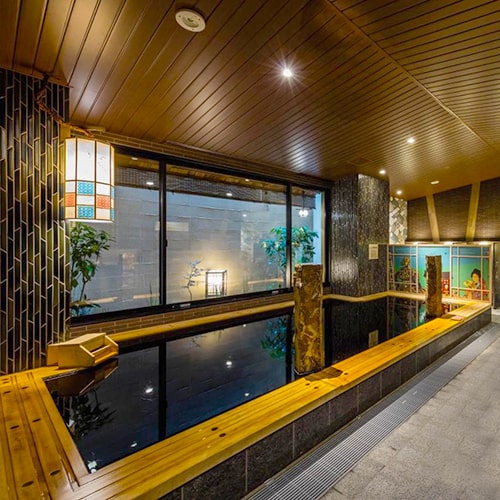
🏆 BEST TOKYO HOTEL WITH AN ONSEN
Don’t have time to read the whole article? The best choice is the beautiful 4-star hotel: Onyado Nono Asakusa Natural Hot Spring
Not only will you have access to the healing properties of the hot springs, but you’ll also have the added bonus of enjoying the experience in the privacy and comfort of your own hotel .
In this article, we will cover the 10 best Tokyo hotels with an onsen so that you can easily identify the option that works best for you.
Quick Guide: Best Tokyo Hotels with an Onsen
After a quick list of the top Tokyo hotels with an onsen? Here are the best hotel:
Onyado Nono Asakusa Natural Hot Spring
- Unique black water hot springs
- Comfortable and clean rooms
- Delicious onsite restaurant
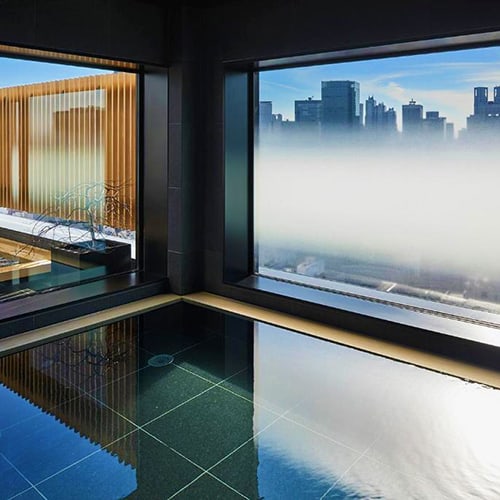
Onsen Ryokan Yuen Shinjuku
- Modern rooms with large windows
- Kid-friendly hotel with good views
- Traditional onsen, an open air bath
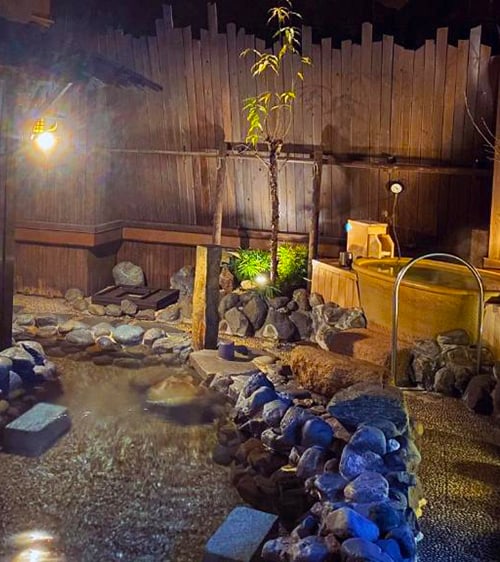
Dormy Inn Akihabara Hot Spring
- Nature-themed onsen
- Central Tokyo and close to subway
- Traditional Japanese Inn
The 10 Best Tokyo Hotels with an Onsen
Here is your all-inclusive guide to the best Tokyo hotels with an onsen. Your only task is to choose one!
1. Onyado Nono Asakusa Natural Hot Spring
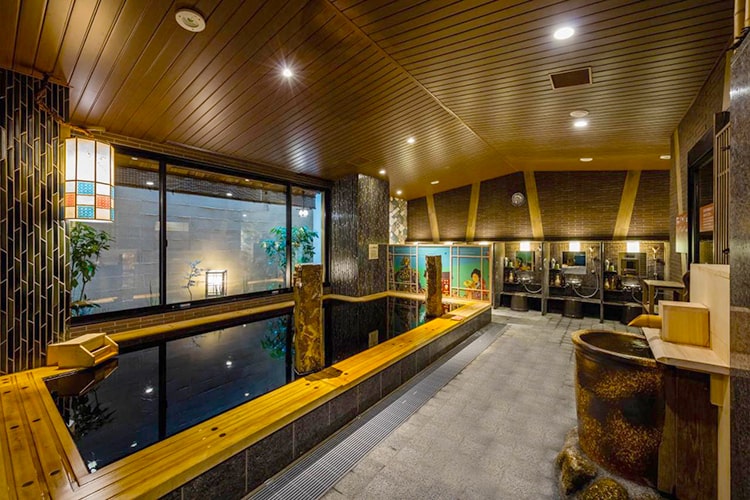
- Rating: 4-Star Hotel
- Guest Rating: 8.9/10
- Location: Asakusa, Tokyo
- View on Agoda.com or on Booking.com
Onyado Nono Asakusa is a hotel in one of the most popular tourist areas of Tokyo.
It is best known for its “Kuroyu” (black water) hot springs .
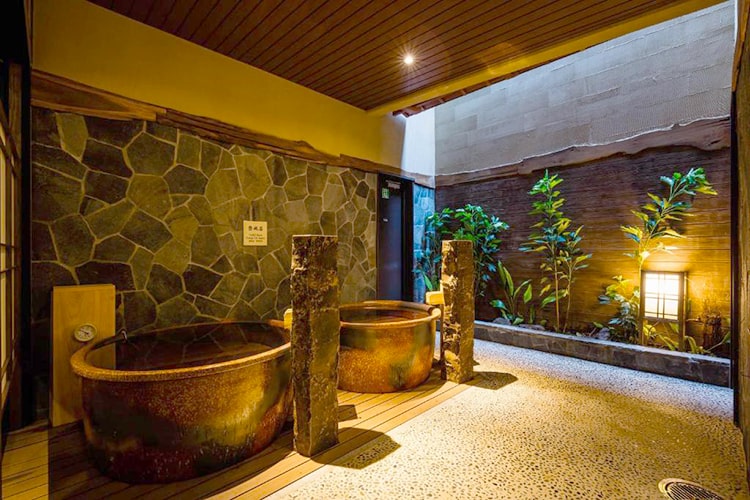
This water is rich in minerals and is said to have great healing effects on the body.
The hotel is just a 4-minute walk from the Asakusa metro station and also features a Japanese restaurant onsite.
“A new hotel where you can have everything a tourist needs: shopping, sightseeing, dining, onsen, accessibility, and a lot more. Room is clean and comfortable, space is moderate. Will stay in this hotel again when I come to Tokyo.” WAN (READ MORE REVIEWS ) ⭐️⭐️⭐️⭐️⭐️
The hotel is built to evoke Tokyo during the Edo period , giving it a unique historical feel.
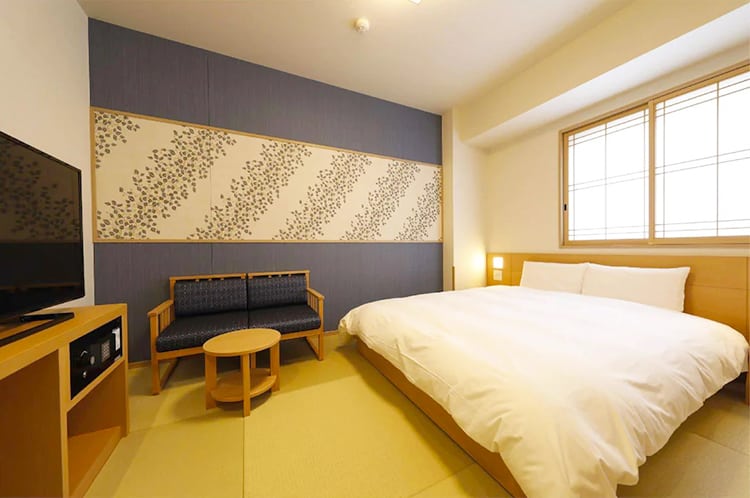
The rooms do feature raised beds, but the style of the rooms reminds you of a lovely historical Japanese home.
Tip: Did you know that this hotel is located only a 4-minute walk from the amazing Sensoji Temple?
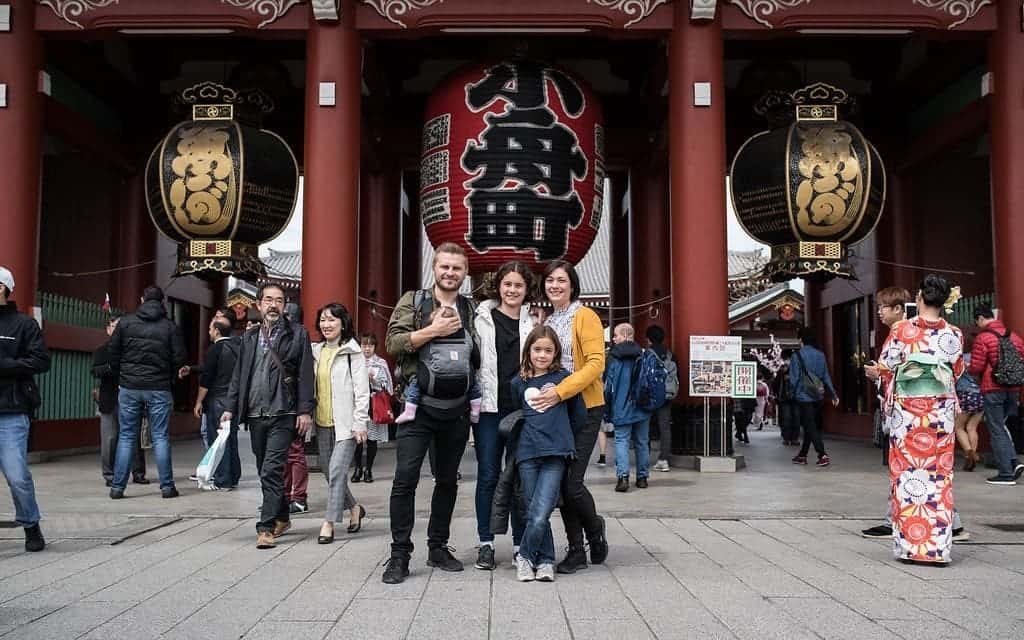
Check out our post on visiting Sensoji Temple and Ueno Park here.
Why you will love this resort:
- Natural onsen
2. Onsen Ryokan Yuen Shinjuku
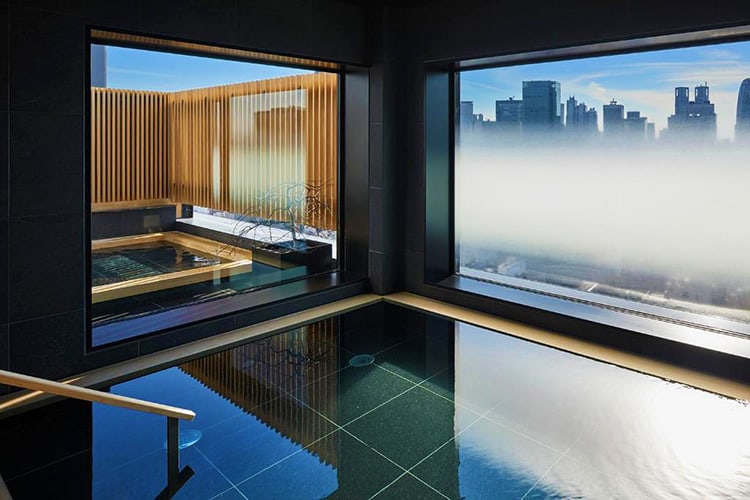
- Rating: 3-Star Hotel
- Guest Rating: 8.6/10
- Location: Shinjuku, Tokyo
- View on Agoda.com or Booking.com
Onsen Ryokan Yuen Shinjuku, as the name suggests, is a traditional ryokan located in the colorful Shinjuku neighborhood.
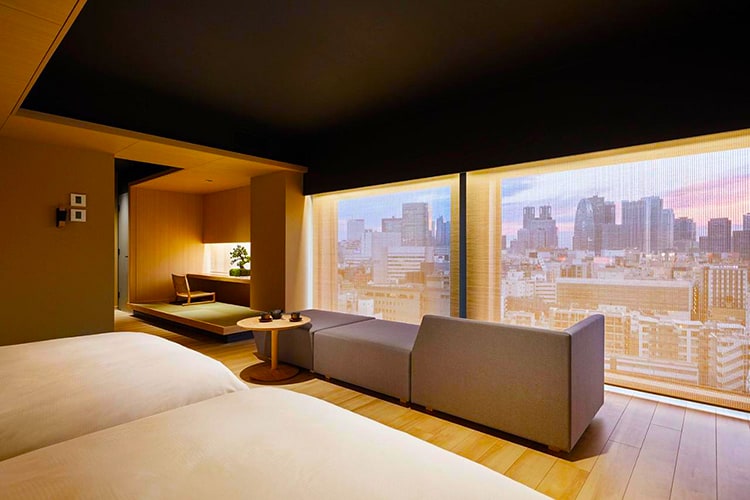
It is a modern hotel with sleek, yet simple rooms that feature impressive views of Tokyo .
Just a short walk from 3 metro stations , this hotel will support you in getting around the city quite easily as well.
The onsen at this onsen hotel is noted for deriving its water source from Hakone’s pure alkaline water .
“Surprise to me, they have onsen (hot spring) free to the hotel guests, and it has nice city view as well on top of the building. Super clean (but typical small Japanese-size) room, and very nice and professional staff. 15min away from Shinjuku station. Very recommended!” WEI (READ MORE REVIEWS ) ⭐️⭐️⭐️⭐️⭐️
This open-air hot spring bath offers quite the experience as it is situated by expansive windows.
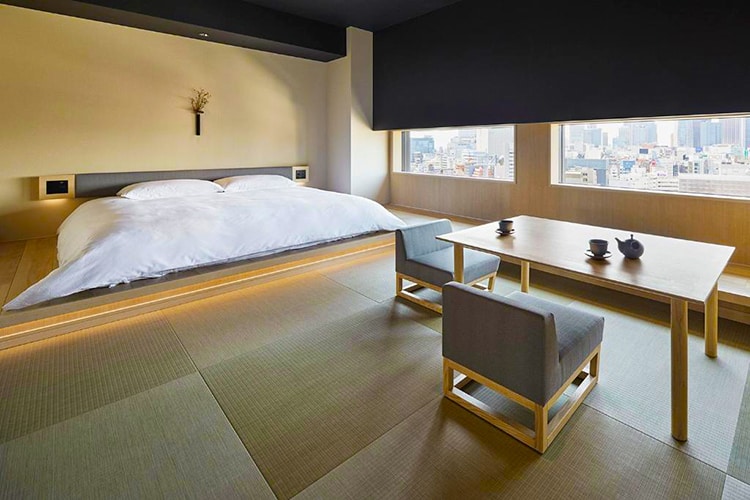
You’ll be able to take in views of Shinjuku while you relax in the onsen’s healing waters.
This hotel is one of the best ryokans in Tokyo with an open-air bath option.
Tip: Wondering what is there to do in Shinjuku? Check our recommendations for the top things to do in Shinjuku here.
- Convenient location to explore all of Tokyo
3. Dormy Inn Akihabara Hot Spring
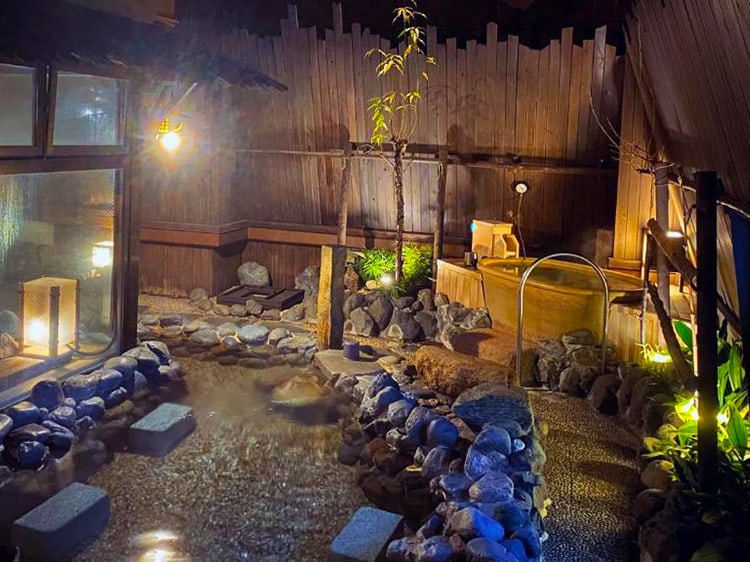
- Location: Akihabara, Tokyo
Dormy Inn Akihabara, a Tokyo hotel with an onsen features a nature-focused theme .
Here, you’ll be able to really escape the hustle and bustle of the city as you relax in the surrounding greenery.
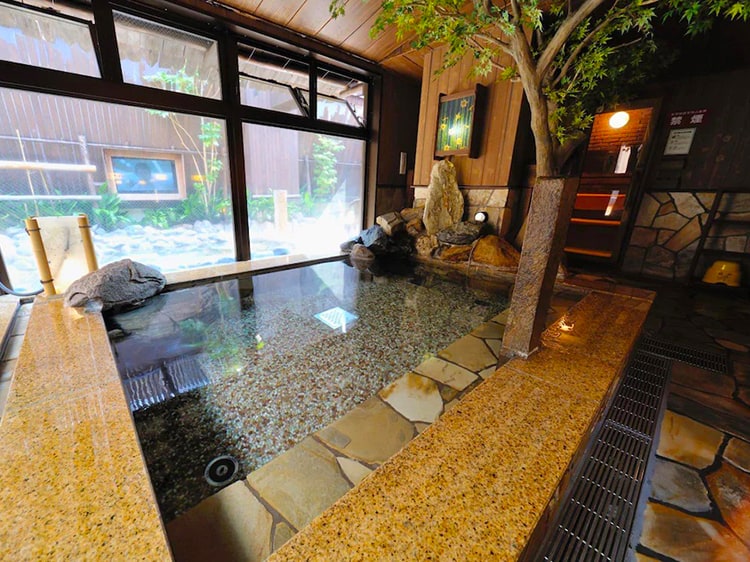
In addition to the lovely onsen, the hotel offers such benefits as complimentary ramen every night and an onsite laundromat and dry cleaning service .
There is a social area where you get the opportunity to watch TV and meet the other guests.
The rooms come complete with blackout curtains and linen service as well.
“Just a 5 mins walk from Akihabara station, this business hotel is my favorite place to stay in Tokyo! Friendly staff, great location, and best of all, indoor and outdoor hot spring bath! What more can you ask for in central Tokyo?” RICKY (READ MORE REVIEWS ) ⭐️⭐️⭐️⭐️⭐️
Also, as the hotel is located in the city center, you will be convenient to many of the area’s attractions.
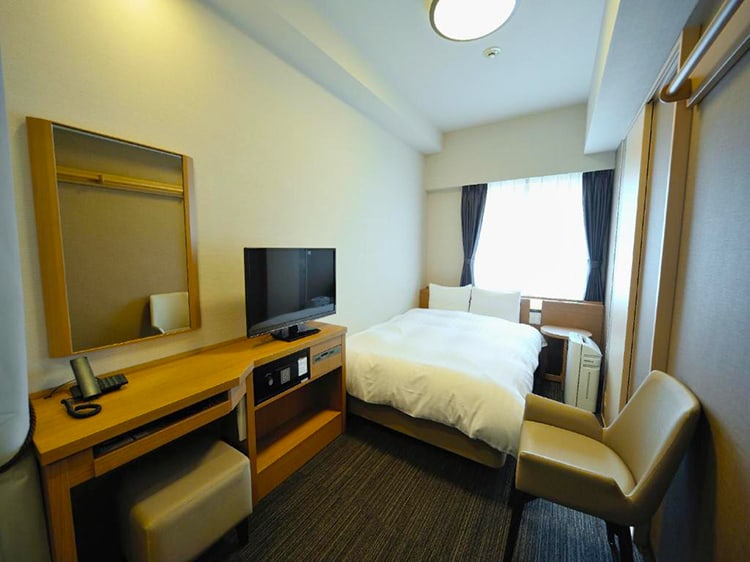
This hotel is one of the traditional Japanese hotels that you can find in Tokyo.
Why you will love this resort:
- Full laundry service
- Convenient centre of Tokyo location
- Close to subway station
4. The Prince Park Tower Tokyo
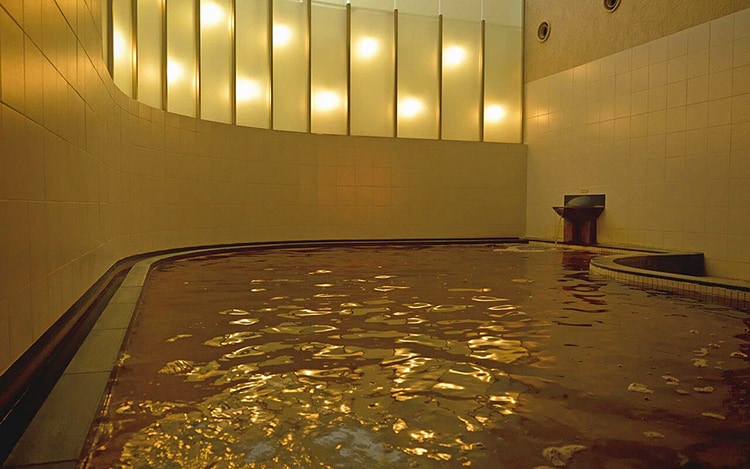
- Rating: 5-Star Hotel
- Guest Rating: 8.8/10
- Location: Shiba Park, Tokyo
This luxury high-rise hotel is located in the serene Shiba Park, taking you away from the business of the city.
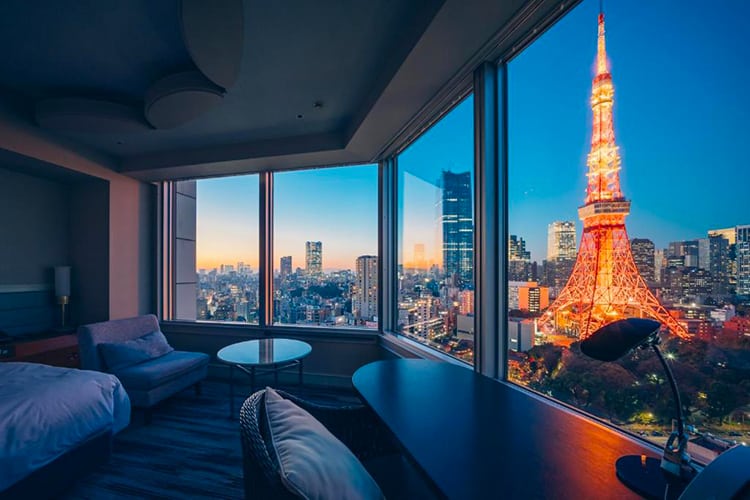
If you are looking for an upscale stay , with amenities such as exclusive butler service , this hotel should be high on your list.
Additional onsite services include an onsen, a full-service spa , a bowling salon, and a beauty salon.
There are also 11 onsite restaurants, bars, cafes, and lounges .
If desired, you will not need to eat anywhere else in the city.
The Prince Park Tower offers several categories of rooms, including the Royal Floor, offering stunning views of Tokyo and the butler service mentioned above.
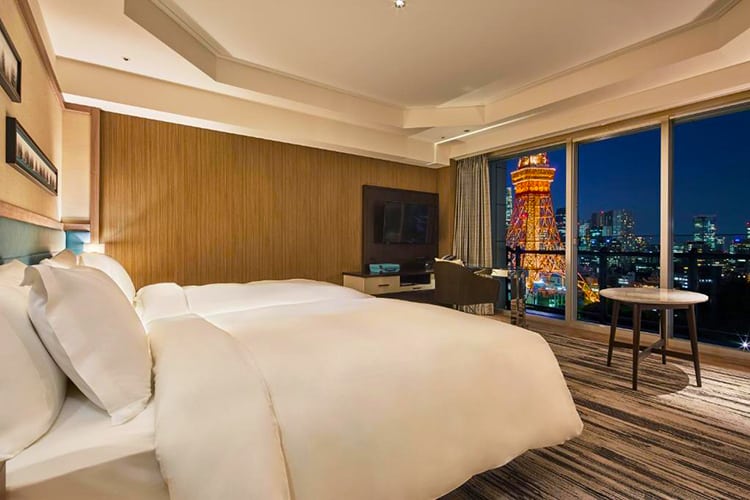
The Premium Club Floor offers room layouts built to reflect the greenery of the park.
You’ll find this same thoughtfulness reflected in each of the rooms found throughout the building.
Tip: Here is another option for where to stay in Shiba (no onsen though). Check out our review of Shiba Park Hotel here.
- Extensive variety of on-site restaurants
- Room service, rooms with a good view
- Onsite entertainment venues (Bowling alley room, lounge, Party Room)
- Spa and Fitness Center, featuring an onsen, pool, and exercise facilities
- Walking distance to Tokyo Tower
- Free Wifi, and air-conditioned rooms in public areas
5. Hotel Chinzanso Tokyo
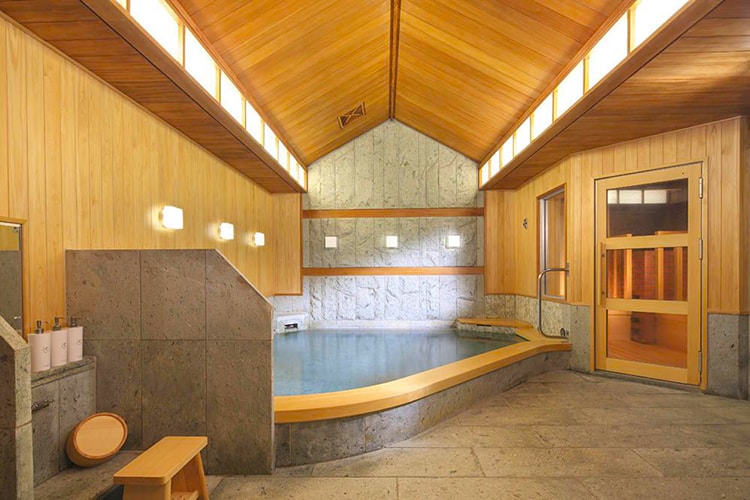
- Guest Rating: 9.0/10
This resort-style hotel is built in the center of a garden that was designed by Prime Minister Yamagata Aritomo in 1878.
The hotel features restaurants of both Japanese and western-style cuisine.
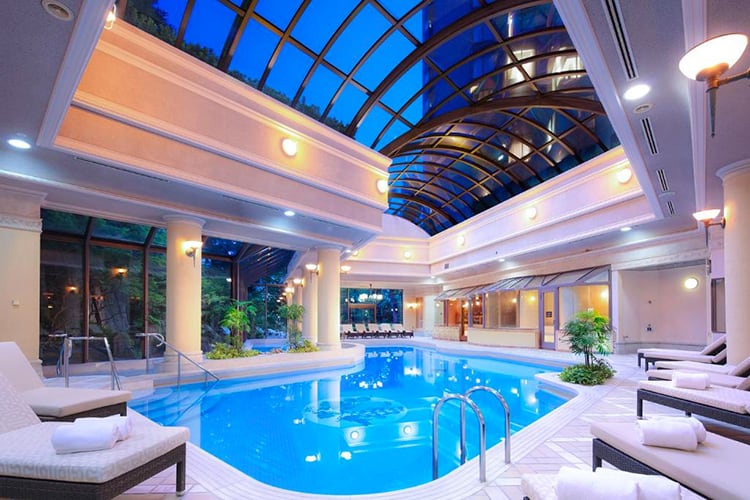
As the hotel is built into a garden , it offers experiences such as the Garden Tour.
Additional experiences include unique activities such as Japanese Language Lessons and Calligraphy instruction .
The onsite rooms and suites are decorated in an elegant style, and offer either a garden view or a city view, depending on your preference.
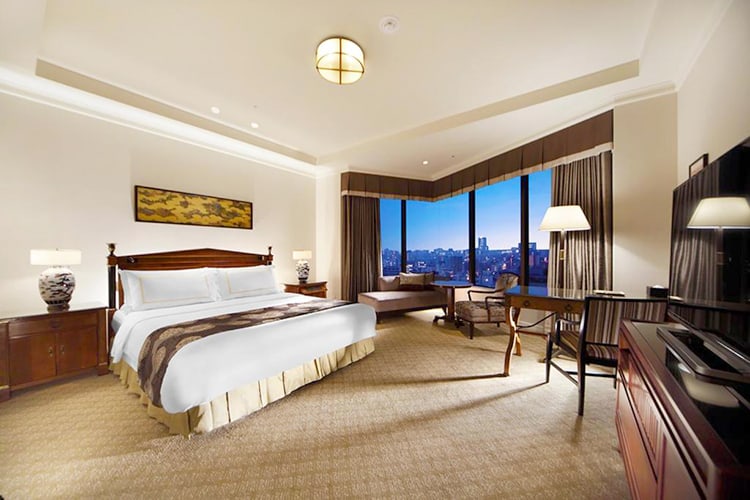
The onsite onsen features water imported from Ito, and the pool is heated for year-round enjoyment .
- Extensive variety of onsite restaurants
- Variety of cuisine offered at onsite restaurants
- Beautiful garden
6. Super Hotel Shinjuku Kabukicho
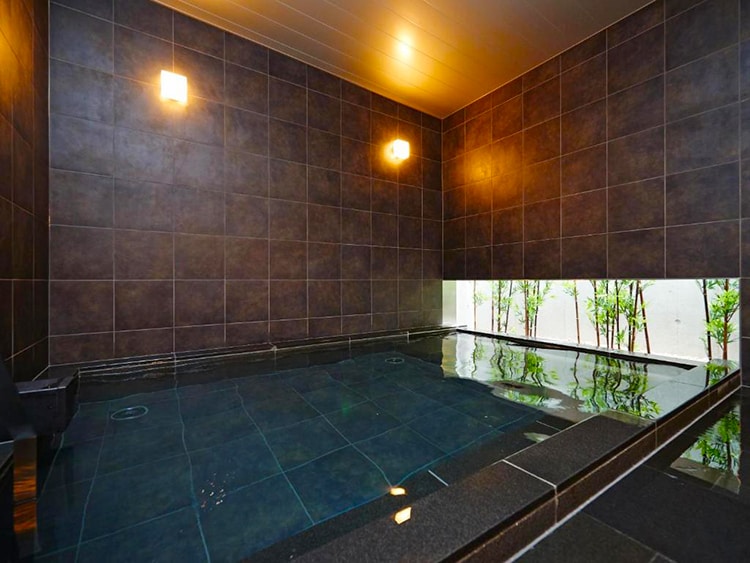
- Guest Rating: 8.5/10
This minimalist hotel is located in the popular Shinjuku neighborhood.
It offers simple, yet very clean rooms.
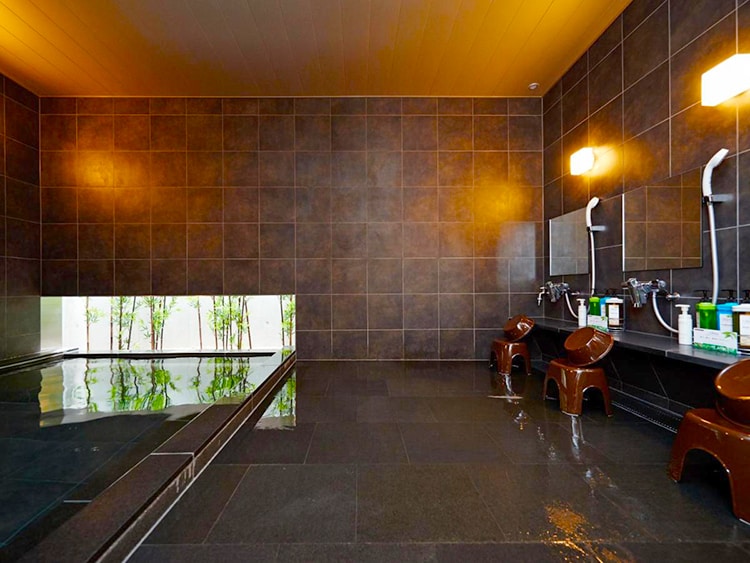
If you travel often in the Tokyo area, the hotel also offers the Smart Membership, which provides savings if you stay at this property or any of their sister properties.
The onsite onsen is warm year round as it is gas-heated and the facilities come highly rated by prior guests.
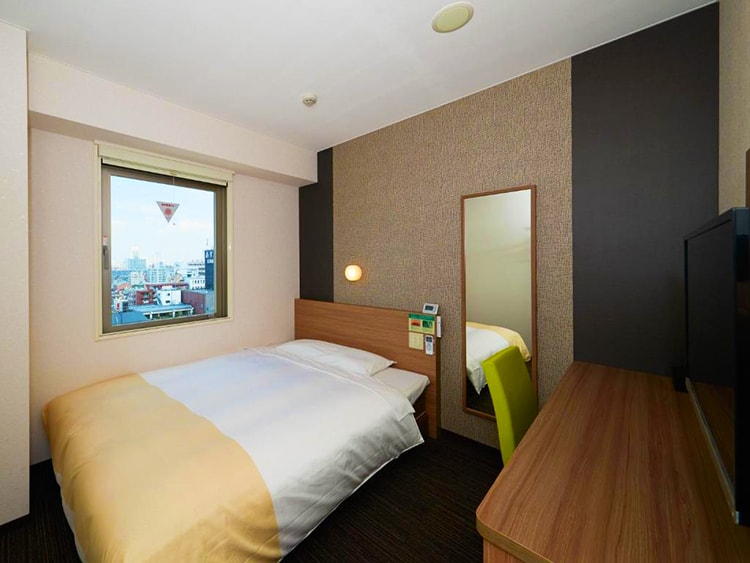
The hotel offers additional benefits such as pajamas for all guests and a nice selection of pillow options.
- Excellent free breakfast
- Clean rooms
- Free onsite onsen
7. Hotel Emion Tokyo Bay
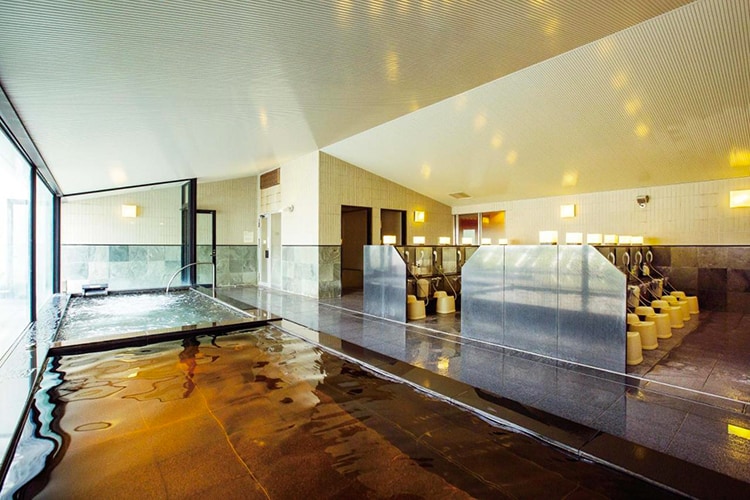
- Location: Chiba, Tokyo Disney Resort, Tokyo
- View on Agoda.com or Booking.com
The Hotel Emion Tokyo Bay is a Tokyo Disney Resort partner hotel , which means it offers services such as free shuttle service to the Disney parks .
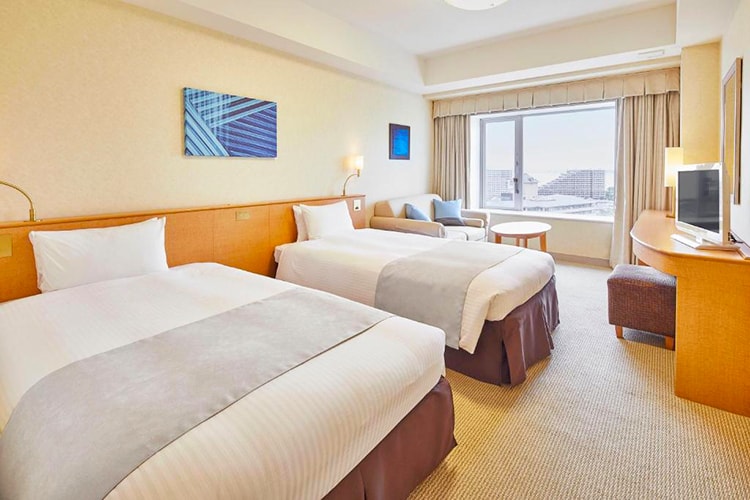
This hotel offers both Japanese-style and American-style rooms, depending on what experience you would like to have there.
The rooms offer space for up to six people, so this is a great option for larger families .
Hotel Emion offers a hot spring bath and for your convenience, there is an onsite laundry room, massage services , and a convenience store, a Family Mart.
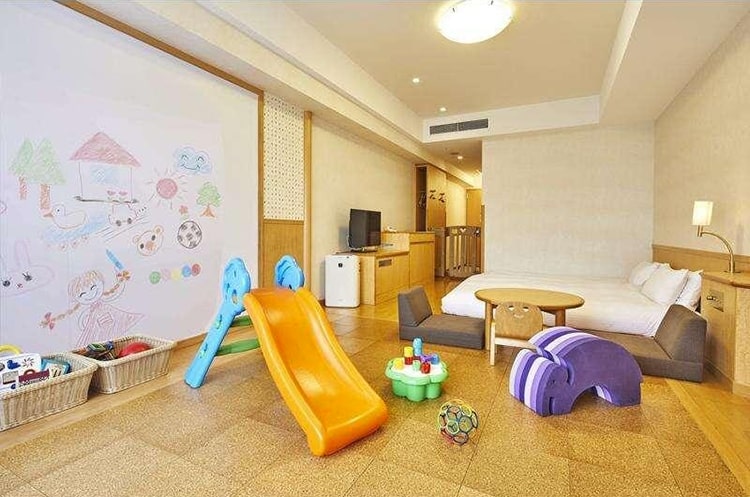
With all these amenities, you will feel right at home here. There is also a variety of onsite restaurants both Japanese and western-style as well.
- Free shuttle service to Tokyo DisneySea and Tokyo Disneyland
- Large rooms
- Onsite Family Mart
8. Onsen Ryokan Yuen Bettei Tokyo Daita
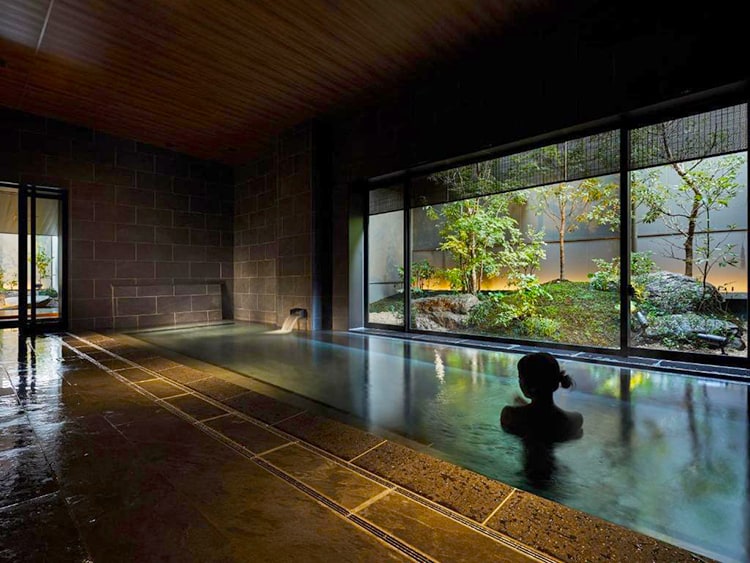
- Location: Setagaya-ku Daita, Tokyo
The tagline for this hotel is “bringing the comfort of the countryside to the city”, and it does just that.
Traveling just ten minutes outside the city center , the hotel is surrounded by gardens and comes with a nature-themed minimalist aesthetic.
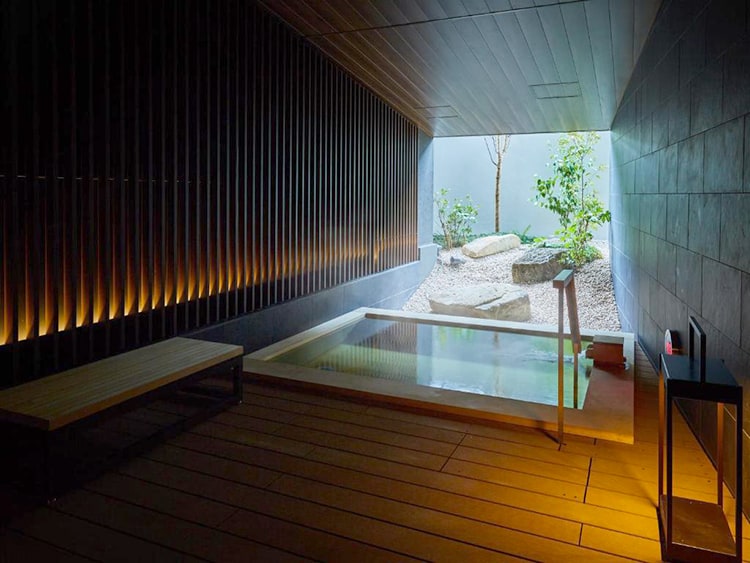
The onsen features waters from the Ashinko Hot Springs in Hakone, providing clean alkaline water , and making it one of the most sought-after hot spring hotels in Tokyo.
In addition to the onsen, the hotel also provides an aroma mist sauna and a dry sauna , as well as the full-service SOJYU spa .
The rooms are a stunning mix of the Japanese-style rooms as well as western-style room options.
This is a Tokyo hotel with a private onsen option, as some rooms feature outdoor onsens.
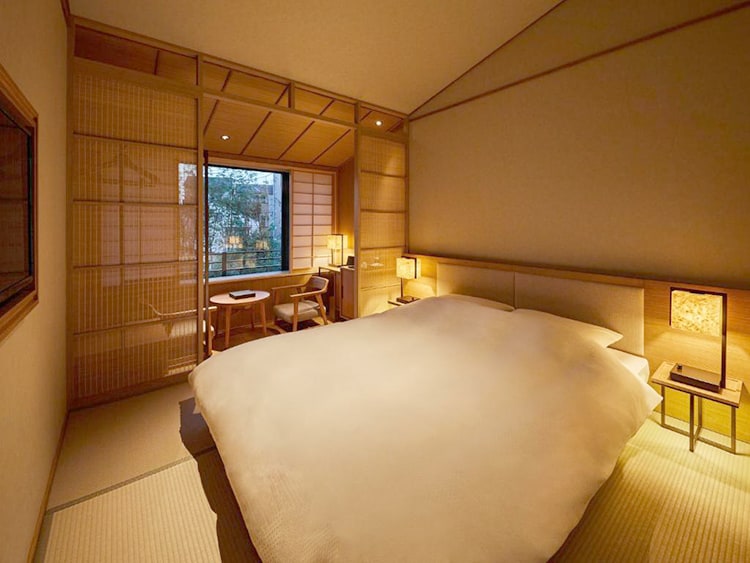
This private hot spring hotel has also an onsite restaurant that features the best of Japanese cuisine.
- Nature-themed aesthetic
- Beautiful outdoor onsens / private outdoor bath
- Calming and zen atmosphere
9. Capsule Hotel Anshin Oyado Premier Tokyo Shinjuku Station
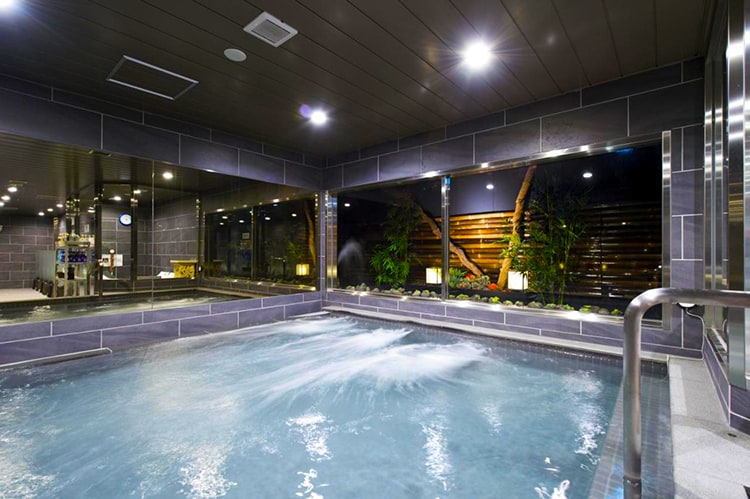
- Rating: 1.5-Star Hotel
The capsule hotel, a staple in Japan, is one experience that many should try at least once when they are in Tokyo.
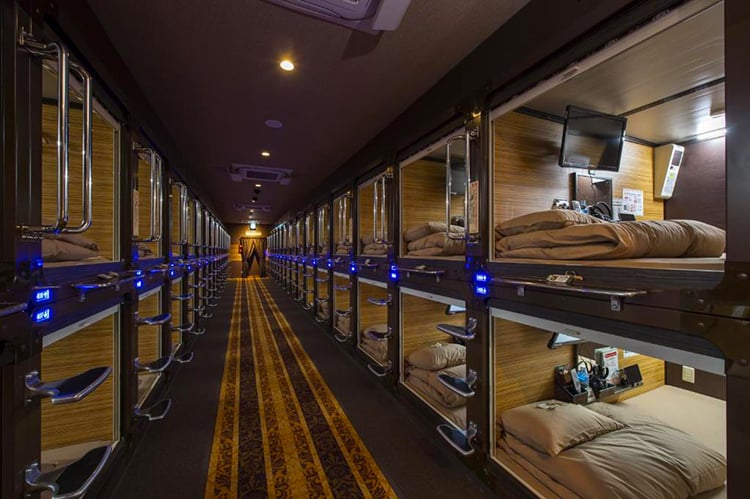
The Capsule Hotel Anshin Oyado hotel features all the amenities you need for a cozy but comfortable stay.
In-room amenities include a flat-screen TV, comfortable bedding, and noise-canceling headphones.
Outside the room, there is a Helston Maifan stone artificial hot spring water and a mist sauna so that you can relax in peace.
A major benefit of this capsule hotel is that you get a wide variety of free services.
These include an internet cafe, tablet PC, beauty and skin care products, free drinks, a locker, and more.
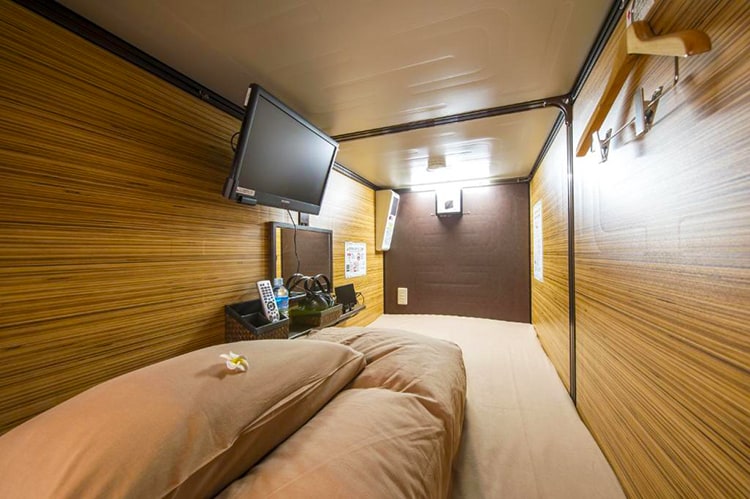
In addition to all of the features above, this hotel is conveniently located a very short walk away from the Shinjuku subway Tokyo station.
You’ll have no issue getting around the city with ease.
- Affordable room prices, especially for solo travelers
- Variety of onsite amenities
- Helpful and friendly staff
10. Super Hotel Akihabara Suehirocho
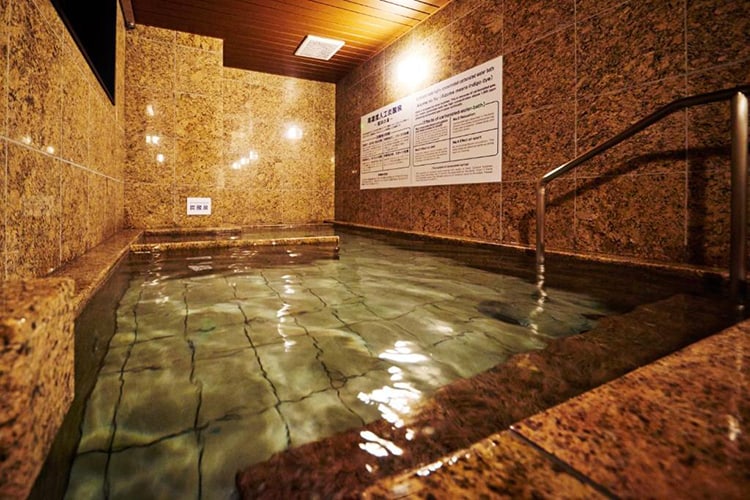
- Guest Rating: 8.2/10
- Location: Taito-ku, Tokyo
The Super Hotel Akihabara Suehirocho features a minimalist and simple style and is noted by prior guests as having a great free breakfast option .
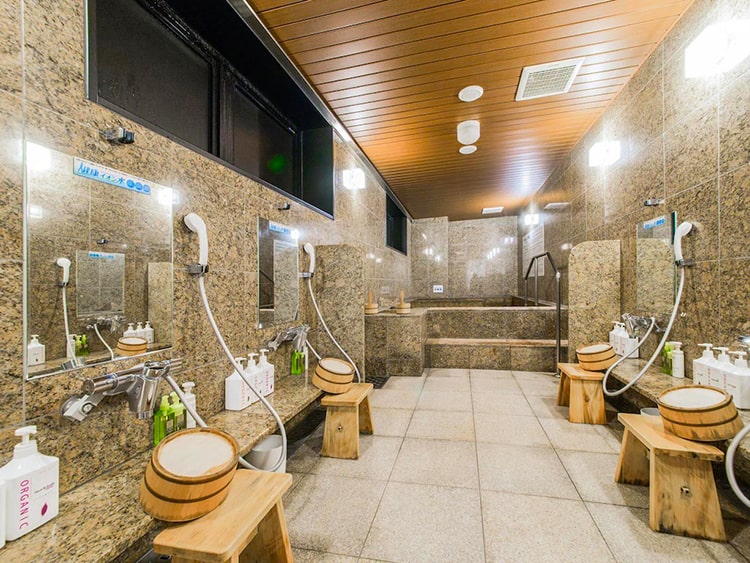
The rooms come with a variety of pillow options and amenities such as a fridge and electric kettle .
The gas-powered onsen here is noted for being very relaxing and prior guests have loved this hotel’s accessibility to two nearby subway stations.
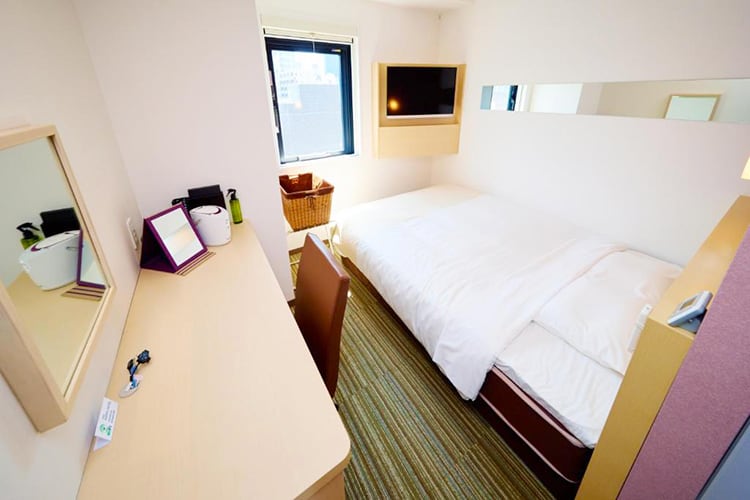
In addition, this Super Hotel offers services such as dry cleaning, onsite laundry, vending machines, and parking .
- Convenient location in Akihabara
- Gas hot spring
- Free and delicious breakfast
Here are some answers to some of the most commonly asked questions about Tokyo hotels with an onsen:
If you are less familiar with the term, onsens are Japanese bathing facilities and the traditional inns that house them. Japan is a country that is volcanically active, so many onsens are actually naturally heated. The onsens come separated by gender and after showering, you bathe sans clothing in the hot pools. Often you will find spa services provided onsite as well for a truly zen experience.
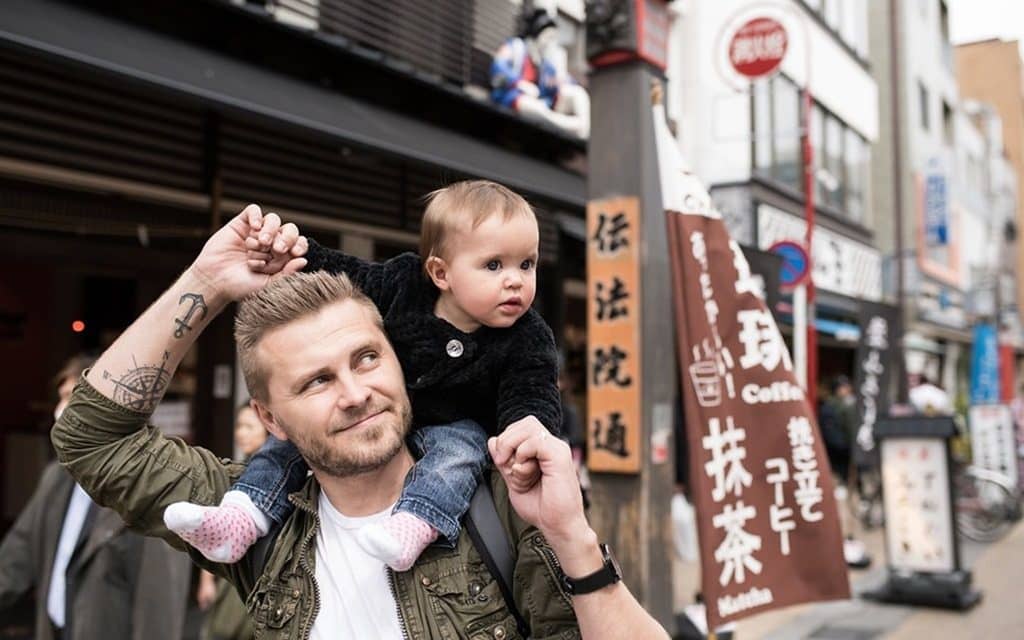
There are several “rules” for visiting an onsen, and here are those that are most important: Wash Before Getting In – You are required to shower before you get into the pools, and this typically is in a public shower area. You Must Remove All Your Clothes – This is a requirement to enter the pools as well. If you are not used to this, it can feel strange at first. But you will soon see that no one cares what you look like. Don’t Put Your Head or Hair Into the Water – This is a rule to prevent any contamination in the pools from your orifices or residue in your hair. Research Tatoo Requirements – If you have large tattoos, know that these are often prohibited in many onsens due to associations with the Yakuza crime organization. This is not a rule at all onsens, so you should do your research in advance. These rules will apply whether you are in Tokyo, Kyoto , or anywhere else in the country. So please do keep these in mind as you plan your trip.
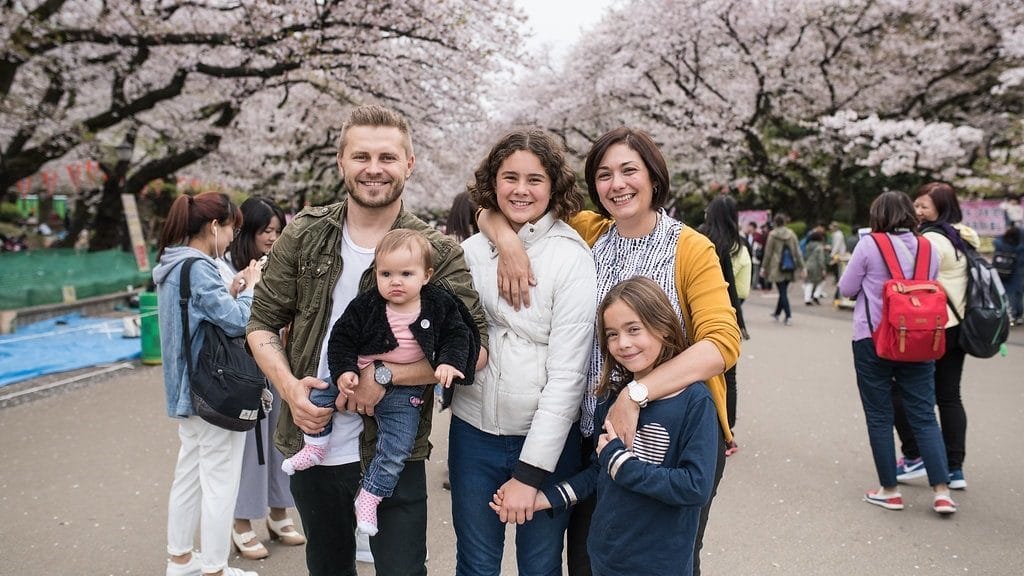
Onsen and ryokan are two different things in Japanese culture. Onsen refers to hot springs, while ryokan refers to traditional Japanese-style inns. While many ryokans have onsen facilities, not all onsens have ryokans attached to them. Onsens are popular destinations for relaxation and health benefits, while ryokans offer a unique cultural experience with traditional Japanese rooms, cuisine, and hospitality.
In Japanese onsens, it is customary to be naked while soaking in the hot springs. Wearing swimsuits or any other clothing is generally not allowed. However, in some modern onsens, there may be separate areas or private baths where you can wear a swimsuit or towel if you feel more comfortable. It’s best to check the rules and etiquette of each specific onsen before visiting to avoid any cultural misunderstandings.
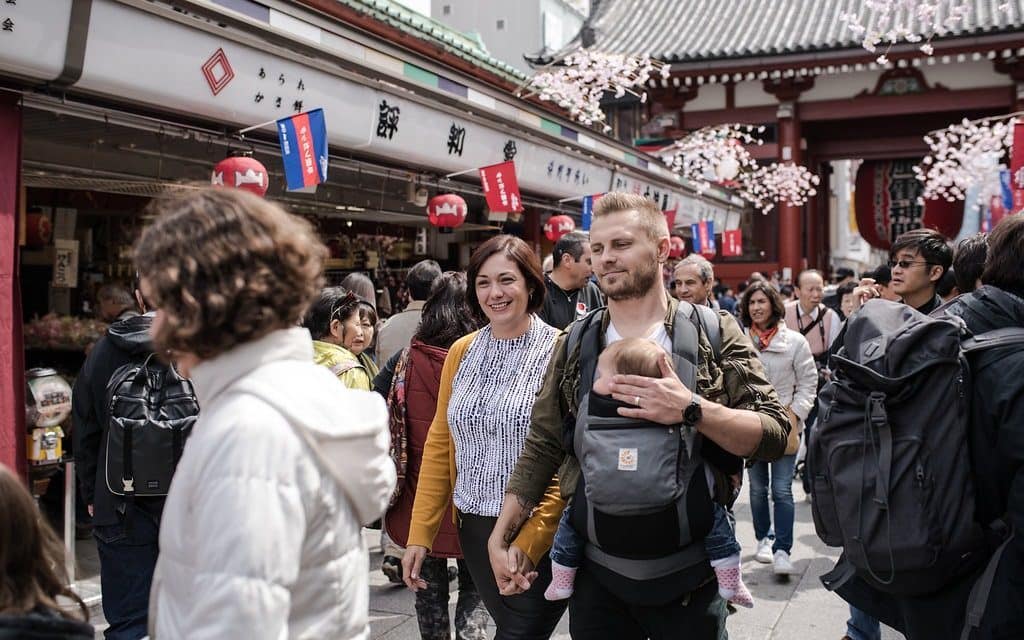
The recommended time to stay in an onsen varies depending on the individual’s preference and the temperature of the water. Generally, it is suggested to soak in the hot spring for about 10-15 minutes at a time and then take a break to cool down before returning for another soak. It is important to listen to your body and not stay in the hot water for too long, as it can cause dehydration, overheating, or dizziness. It’s best to stay hydrated and take breaks when needed.
Final Thoughts On Tokyo Hotels with an Onsen
We have come to the end of this post, which highlighted the top onsen hotels in Tokyo.
In conclusion, staying at one of the Tokyo hotels with onsen facilities that were mentioned in the post can be a fantastic way to experience this unique and rejuvenating activity.
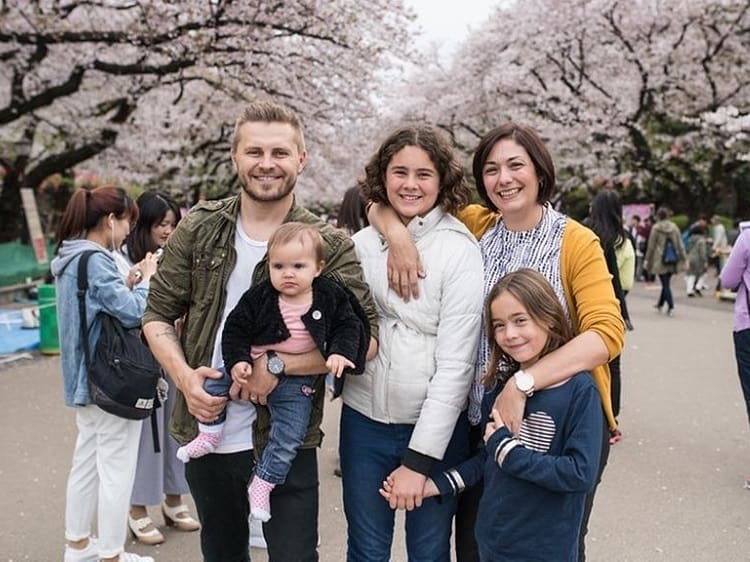
I hope that you have found the information helpful and that it has inspired you to book your hotel.
Tip: If you are staying in Tokyo for a few days, you might also be interested in checking out the famous Shibuya district. Check out our blog on what to do in Shibuya here.

Andrzej Ejmont
2024 - Wanderlust Storytellers. All Rights Reserved.
About Us | Contact Us | Work with Us | Privacy Policy | Disclaimer
* Disclaimer: Wanderluststorytellers.com is a participant in the Amazon Services LLC Associates Program, an affiliate advertising program designed to provide a means for sites to earn advertising fees by advertising and linking to amazon.com and other Amazon sites.

7 Best Private Onsens in Tokyo
By miho okamoto | .

A Hot Spring Bath or Onsen is a great way to spend time relaxation, especially on busy days. It is an experience a person should try, especially when he/she wants to fully immerse in Japanese Culture and tradition. Though mixed baths are an exciting thing to try, some people prefer to spend relaxation time either alone or with their significant other and family. Thankfully, some bathhouses and ryokans offer private baths.
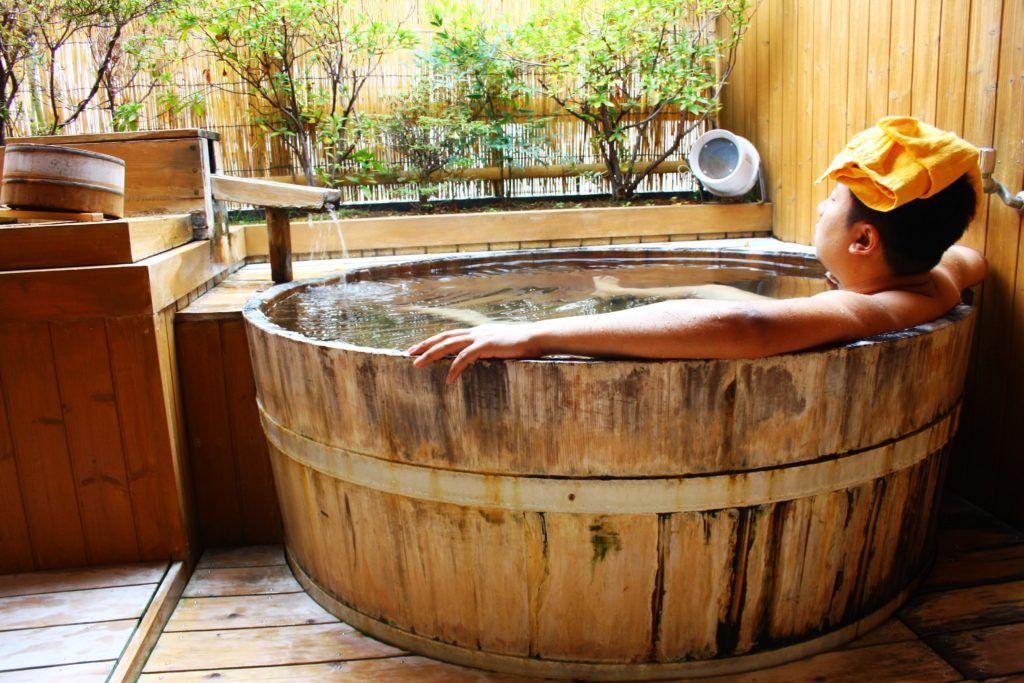
From the hustle and bustle of Tokyo City , travelers can enjoy the calm by visiting onsens. Kashikiriburo is a type of onsen bath that can be enjoyed by families, couples, and sometimes tattoo-wearers. The word “kashikiri” means “reservation” when translated from Japanese, making the kashikiriburo a rental onsen reserved for private and exclusive use. This list will guide readers where they can visit private onsens when in Tokyo.
Bessho Sasa
Established in 2004, Bessho Sasa is a ryokan located in Yamanashi and is currently considered as one of the top ryokans in the area. Situated in the suburbs of Tokyo, the inn has a building, Hotel Kaneyamaen , where guests can enjoy large public baths . Ideal for families and couples, all of its rooms are equipped with open-air baths that show off the view of the famed Mount Fuji . The location is near to sites like Oshina Hakkai Springs and the Arakura Fuji Sengen Jinja Shrine , which guests can visit during their stay at the inn.
- Website: bessho-sasa.com
- Email: [email protected]
- Address: 6283 Kamiyoshida, Fujiyoshida, Yamanashi 403-0005, Japan
Konansou is a traditional Japanese inn that boasts views of Mount Fuji and Lake Kawaguchi . Right in the suburbs of Tokyo, the ryokan has rooms based on traditional Japanese design , complete with tatami mat flooring and futon bedding. Its rooms including a seating area and open-air hot spring baths in some of the rooms, where guests can relax privately. Yukata robes are also provided so guests can experience an authentic cultural experience at the inn.
Konansou invites its guests to try their indoor and outdoor hot spring baths . A private onsen can also be used but at a separate fee. A foot bath can also be enjoyed on the rooftop. For added relaxation, massage services are available upon request. After relaxation, Japanese multi-course meals can be savored in the dining room. Tourist attractions like the Fuji-Q Highland Amusement Park can be visited by guests during their stay at the onsen.
- Website: konansou.com
- Email: [email protected]
- Address: 4020-2 Funatsu, Fujikawaguchiko, Minamitsuru District, Yamanashi 401-0301, Japan
Kozantei Ubuya
Established in 1948, Kozantei Ubuya is an accommodation located in the district of Minamitsuru and is considered to be the top ryokan of the area. It is an upscale hot spring inn with rooms that have private open-air hot spring baths and an incredible display of Mount Fuji and Lake Kawaguchi.
Guests are invited to take a dip while appreciating the view from the large public hot spring baths . A dinner featuring Japanese cuisine can also be anticipated. Their dishes pride in wagyu, which is known as high-class local beef, and their hot pot dish, also referred to as shabu-shabu. The location is near Mount Fuji and the Arakura Fuji Sengen Jinja Shrine , which can be visited by guests during their stay at the inn.
- Website: ubuya.co.jp
- Contact: +81555721145
- Address: 10 Azagawa, Fujikawaguchiko, Minamitsuru District, Yamanashi 401-0303, Japan
- Website: kukuna.jp
- Contact: +81555833333
- Address: 70 Azagawa, Fujikawaguchiko, Minamitsuru District, Yamanashi 401-0303, Japan
Oedo Onsen Monogatari
The building has its floor resemble the style of the Edo Period , where private rooms and accommodations are offered. If guests are looking for a more reserved type of bath, they can try Iseya , a private bath located on the second floor of Oedo-Onsen Monogatari. The rooms are available for rent and are exclusive for couples only or for people who plan to have an overnight stay at the onsen.
- Website: daiba.ooedoonsen.jp
- Contact: +81355001126
- Address: 2 Chome-6-3 Aomi, Koto City, Tokyo 135-0064, Japan
Takaragawa Onsen Osenkaku
Takaragawa Onsen Osenkaku is a traditional Japanese inn tucked away in a valley by the Takara River in the suburbs of Tokyo . The ryokan uses traditional Japanese architecture and has a history that spans over 80 years. Takaragawa Onsen Osenkaku features an open-air bath that measures more than 330 square meters, the biggest in the hot spring area . It has also appeared in various media like magazines, television shows, and posters–one film, in particular, is “Thermae Romae II”.
The ryokan has rooms with traditional Japanese elements –tatami mat flooring, shoji sliding screen doors and windows, and futon bedding. Guests are also provided with yukata robes during their stay. Guests are invited to relax and unwind in the indoor and outdoor public hot spring baths , one of which is situated along the mountain stream, and, as with its other outdoor baths, harmonizes with nature. There are three communal baths in the establishment and one that’s restricted to only women. A private large public bath is also available. The water is sourced from four types of hot springs.
- Website: takaragawa.com
- Email: [email protected]
- Address: 1899 Fujiwara, Minakami, Tone District, Gunma 379-1721, Japan
Wakakusa no Yado Maruei
- Website: maruei55.com
- Email: [email protected]
- Address: 498 Kodachi, Fujikawaguchiko, Minamitsuru District, Yamanashi 401-0302, Japan
Onsen Manners and Etiquette
- Culture Research
- Japanese Culture
- Japanese History
- Tea ceremony
- Harakiri and Suppuku
- Tea ceremony Kyoto
- Geisha Tea Ceremony
- Ninja Experience & Samurai
- Kimono Wearing Experience
- Geisha Experience
- Cooking Class Kyoto
Contact us : [email protected]
Readers of this article also read
Shima onsen.
Shima Onsen is a peaceful town located in Nakanojo, in the northwest mountainside of Gunma Prefecture. It is considered as one of the top four hot

6 Mixed Onsens in Tokyo
Hot spring baths or onsens have long been a part of Japanese culture and history, from being used for healing injuries to relaxation, socialization, and leisure. These onsens can be enjoyed individually or by groups. One kind of onsen is the konyoku, a type of onsen where men and w

7 Mixed Onsens in Kyoto
Hot spring baths or onsens have long been a part of Japanese culture and history, from being used for healing injuries to relaxation, socialization, and leisure. These onsens can be enjoyed individually or by groups. One kind of onsen is the konyoku, a type of onsen where men and women can mingle an

7 Best Mixed-Gender Onsens in Japan
The use of hot spring baths has long been in Japanese history, where onsens have brought people together for healing and relaxation. Mixed-Gender, Coed, or the Konyoku is a term described to onsens that do not separate men and women. A little new and a bit uncomfortable to beginner hot spring enthus

4 Best Tattoo-Friendly Onsens in Kyoto
This post about tatoo friendly onsen hot springs is brought to you by Samurai Ninja Museum Tokyo With Experience Kyoto is the capital of a prefecture

KIMONO TEA CEREMONY KYOTO MAIKOYA at NISHIKI
Kimono tea ceremony tokyo maikoya, kimono tea ceremony kyoto maikoya at gion kiyomizu, samurai & ninja museum with experience.

9 Best Ryokans in Tokyo With Private Onsen (2024 edition)
By: Author Sylvia
Posted on Last updated: February 16, 2024
Drawing from our own experiences of staying in various ryokans across Japan, We are excited to help you find the perfect ryokan for your upcoming Tokyo vacation!
Are you planning a trip to Tokyo and considering immersing yourself in the traditional ryokan experience?
If so, you’re in luck! Our comprehensive list features the finest ryokans in Tokyo, each offering a private onsen for your ultimate relaxation.
Staying in a traditional ryokan is an essential part of any visit to Japan. The blend of traditional elements creates a serene and authentically Japanese atmosphere that’s truly unforgettable.
Opting for a ryokan with a private onsen ensures an even more exclusive experience, allowing you to unwind without the worry of sharing the onsen with others.
Discover some of Tokyo’s best ryokans with private onsens right here.
There is a really good chance that this post contains affiliate links. If you click one of them, we may receive a small commission (for which we are deeply grateful) at no extra cost to you.
In A Hurry? Our Picks For the Best Private Onsen in Tokyo
Do you not have the time or inclination to read the entire post? Below, we list the best ryokans per area.
- Asakusa: Cyashitsu Ryokan Asakusa ( traditional elegance with modern comforts)
- Shibuya: Onsen Ryokan Yuen Bettei Tokyo Daita ( luxury stay with amazing onsen)
- Ueno: Centurion Hotel Uneo (budget-friendly option with comfy rooms)
- Chiyoda: Ryumeikan Ochanomizu Honten ( affordable luxury ryokan)
- Ikebukuro: Kimi Ryokan ( budget-conscious stays in a traditional ryokan)
Table of Contents
Best Ryokans With Private Onsen in Tokyo
Here, we’re excited to present a roundup of the finest ryokans in Tokyo featuring private onsens.
To make your search easier, we’ve organized them by area.
Furthermore, we’ve provided highlights for each area. This way, you can select the perfect ryokan tailored to your individual tastes.

Asakusa
Firstly, we have Asakusa.
Asakusa is one of the most popular traditional districts in Tokyo. Centrally located, it is a bustling hub of beautiful traditional architecture and picturesque locations.
Due to its convenient location, it is easy to visit and makes for a great base area when visiting Tokyo. Asakusa is considered a must-visit for most tourists visiting Tokyo.
Staying in Asakusa offers the best of both worlds: a rich cultural heritage with attractions like Senso-ji Temple and Kaminarimon Gate, combined with modern conveniences and excellent transportation links to other parts of Tokyo.
It’s the perfect choice for those seeking a blend of tradition and convenience during their stay in Tokyo.

Cyashitsu Ryokan Asakusa
At Cyashitsu Ryokan Asakusa , just 300 meters from the peaceful Asakusa Fujisama Shrine, you’ll discover a tranquil escape tucked away on a quiet backstreet.
Combining traditional Japanese charm with modern comforts, the Ryokan’s shared spaces like the lounge, bar, and outdoor terrace offer timeless elegance.
Inside, rooms boast tatami flooring and lantern lighting, with modern bathrooms for convenience.
Don’t miss the private onsen bath on the 6th floor, available by reservation.
With various room options, including those with private baths, there’s something to suit every budget at Cyashitsu Ryokan Asakusa.
Booking Rating: 9.5

What Others Are Saying
Past visitors to Cyashitsu Ryokan Asakusa showered the staff with praise for their warmth and helpfulness, creating a welcoming and cozy atmosphere.
They also raved about the delicious breakfast offerings, highlighting the staff’s willingness to accommodate dietary needs, including vegetarian options or simplified meals for children.
Cyashitsu Ryokan Asakusa blends traditional elegance with modern comforts , creating a charming and inviting atmosphere. Its well-appointed shared spaces and central location make it the perfect choice for anyone exploring the heart of Tokyo
Check prices and availability:
Booking.com

Prostyle Ryokan Tokyo Asakusa
Prostyle Ryokan Tokyo Asakusa offers a traditional Japanese experience with modern amenities.
The rooms in Prostyle Ryokan Tokyo Asakusa are large and spacious, especially by Japanese standards. They feature several Japanese design aspects, but the rooms use western bedding and bathroom features.
This makes the ryokan ideal for those who want to have the ryokan experience but struggle with futon bedding.
While not all rooms feature this, the highlight of the ryokan is the private outdoor bath on the wooden deck, providing a serene and private relaxation space.
Previous guests have praised the private onsen experience for its tranquility and convenience.
The ryokan’s location near Asakusa Station offers convenience for exploring the area while still providing a peaceful retreat from the city.
Booking Rating: 8.6

Past guests praised the room’s unique design and spaciousness, making luggage storage effortless—a rarity in Japan’s compact accommodations.
Some enjoyed the option of Japanese breakfast.
Opinions on the walking distance to Asakusa Station varied, with some finding it convenient while others felt it was too far.
This ryokan would be an ideal accommodation choice for travelers who want to experience the best of traditional Japanese ryokans but have back issues or general trouble with sleeping on futons.

Ryokan Kamogawa Asakusa
Ryokan Kamogawa Asakusa holds a prime spot just a two-minute stroll from Kaminarimon and Sensoji Temple, making it ideal for exploring the heart of Asakusa. Plus, it’s only a short walk from Asakusa station.
Stepping inside, you’ll find a perfect blend of traditional Japanese aesthetics and modern comforts, creating a cozy and convenient ambiance.
Each room boasts traditional tatami flooring, shoji screen doors, and comfy futon bedding. The Ryokan offers a large public onsen bath for all guests to enjoy.
For those seeking a bit more privacy, there’s also a smaller private bath available for reservation.
You can soak in tranquility for 30 minutes between 5 pm and 11 pm, offering the best of both worlds: the communal experience of the public bath or the privacy of your own retreat.
It’s a fantastic option for anyone wanting to tailor their onsen experience to their comfort level.
Rating: 9.2

Many guests praised the convenient location of the ryokan , noting its quiet ambiance despite its proximity to attractions.
They enjoyed the authentic Japanese breakfast and the option for a Western-style meal.
The onsen bath was also a favorite among visitors.
If you’re traveling with a small family and seeking a cozy retreat, this ryokan is perfect for you. With family rooms available and child-friendly meals offered, it caters to your family’s needs.
Plus, you can enjoy the privacy of a private onsen together—a great way to unwind as a family.

Stay Sakura Tokyo Asakusa Yokozuna Hotel
Stay Sakura boasts a prime location just a few hundred meters away from Sensoji Temple and the Asakusa Shrine.
Yet, once inside, the hotel offers a serene and comfortable environment.
While not entirely a traditional ryokan, Stay Sakura offers a unique ryokan-style deluxe room featuring a spacious onsen bath. Decorated with traditional elements like tatami flooring and shoji screens, the suite exudes an authentic ambiance complemented by traditional artworks.
The highlight is the large semi-open air onsen bath, allowing guests to enjoy the refreshing outdoor atmosphere without sacrificing privacy.
Agoda Rating: 8.6

Previous guests were happy with the location as well as the spacious rooms. They enjoyed the private onsen bath and the good service provided by the hotel staff.
Many guests were happy with the comfort and quietness of the hotel.
Stay Sakura offers a prime location near key attractions in Tokyo, coupled with a tranquil atmosphere once inside. While not a traditional ryokan, its unique suite blends modern comfort with traditional elements, highlighted by a spacious onsen bath.
Check prices and availability: Agoda

Shibuya
Shibuya, Tokyo’s vibrant center, is famous for its iconic scramble crossing , a global sensation.
It’s not just a crossing; it’s a fashion and entertainment hotspot, attracting young crowds year-round.
From trendy shops to hidden gems, Shibuya offers endless shopping delights.
Don’t miss people-watching at the crossing or the stunning views from Shibuya Scramble Square, Tokyo’s tallest skyscraper, featuring Shibuya Sky, an observation deck 230 meters high.
Here is our selection of the best ryokans with private onsen:

Onsen Ryokan Yuen Bettei Tokyo Daita
At Onsen Ryokan Yuen Bettei Tokyo Daita in Shibuya, convenience meets tranquility. Situated near popular tourist spots and just a short stroll from the nearest train station, it’s the perfect balance of accessibility and serenity.
This ryokan offers a luxurious escape, ideal for indulging in spa and wellness activities. With a large public onsen , various massages, a sauna, and more, there’s no shortage of relaxation options. Plus, a delightful Japanese restaurant awaits to satisfy your culinary cravings.
The spacious rooms cater to diverse preferences, some boasting garden views of a traditional Japanese garden, while others feature terraces. For an extra touch of luxury, certain rooms even come with a private open-air onsen bath.
Combining traditional décor with modern comforts like Western bedding, the rooms ensure a comfortable and authentic experience.
Rating: 9.1

Previous guests praised the ryokan as a serene paradise in bustling Tokyo.
They loved the delicious food and efficient service. The onsen facilities were a highlight, making their stay memorable.
This ryokan is perfect for any traveler seeking a luxurious experience infused with the beauty of traditional Japanese design and onsens.
Whether you’re drawn to the serene ambiance or the indulgent amenities, it offers an unforgettable blend of comfort and authenticity.

Ueno is a unique blend of bustling city life and serene green spaces, with Ueno Park as its centerpiece.
Home to Japan’s oldest zoo, Ueno Zoo, and several museums, including the Tokyo Metropolitan Art Museum, Ueno Park offers diverse attractions for all ages.
Throughout the year, the park’s seasonal displays, from cherry blossoms in spring to vibrant foliage in autumn, attract visitors from near and far.
Ueno provides the perfect balance of urban excitement and tranquil relaxation, making it a must-visit destination in Tokyo.
Here is our selection of ryokans with private onsen in Ueno.

Centurion Hotel Ueno
Centurion Hotel Ueno is just a short walk from Ueno Station.
The hotel is just a short walk from both Ueno Station and the numerous attractions around Ueno Park like the Tokyo National Museum. This makes it very easy to get around by public transit or explore the local area.
The hotel provides a variety of room options, including Japanese-style rooms with traditional features like tatami flooring and futon beds. While rooms may be on the small side per Japanese standards, most feel they offer good value given the location.
Indulge in relaxation with a Japanese-style room featuring a spacious open-air onsen bath and balcony.
On-site dining options include a restaurant specializing in wagyu steak and hamburgers, as well as a cozy café for drinks and light meals.
Rating: 6.8

After undergoing a recent renovation , the hotel has really stepped up its game.
The improvements in cleanliness and modern amenities are noticeable and appreciated. And let’s not forget the fantastic staff —friendly, helpful, and always ready to assist according to several glowing reviews.
Centurion Hotel Ueno is our go-to budget-friendly option in Tokyo. With clean, comfy rooms and excellent service, it offers great value for money.
Its prime location near Ueno Station makes it a top choice for anyone exploring the city.
The Edo Sakura

The Edo Sakura is a charming private townhouse ryokan.
Nestled just outside the city center, the ryokan offers a serene escape between Sensoji in Asakusa and Ueno Park. It’s a leisurely 15-minute walk to Sensoji and a 20-minute stroll to Ueno Park, placing you right in the heart of Tokyo’s cultural treasures.
Whether you prefer the comfort of Western bedding on wooden floors or the traditional feel of futon bedding on tatami floors, they’ve got you covered.
Many rooms at The Edo Sakura boast stunning views of the picturesque garden , adding to the tranquil ambiance.
For the ultimate relaxation, don’t miss the reservable private onsen bath , available for private use between 3 pm and 11 pm.
It’s the perfect way to unwind after a day of exploring the city.
Booking Rating: 9.1

Previous guests loved the cozy atmosphere of this ryokan.
With a small number of rooms, there’s a sense of intimacy and calm. The staff’s proficiency in English was praised, making communication easy.
Guests particularly enjoyed the private onsen bath, perfect for unwinding after exploring Tokyo. Adding bath salts was recommended for an extra relaxing experience.
And the Japanese breakfasts were a delightful start to the day.
For travelers like myself who enjoy a bit of extra walking for a special and intimate experience, this ryokan is a fantastic choice.
It offers a cozy and personalized stay, perfect for those seeking a unique retreat away from the hustle and bustle of the city.
Chiyoda, nestled at the heart of Tokyo, is a district characterized by captivating contrasts. From the historic Tokyo Station to the modern marvel of Akihabara, it offers a mesmerizing blend of old and new.
It houses iconic landmarks like the Imperial Palace. The Yasukuni Shrine adds a touch of significance to the area.
For art enthusiasts, the National Museum of Modern Art offers a journey through Japan’s artistic heritage over the past two centuries.
But perhaps most intriguing is Akihabara , where technology meets pop culture. Once a tech hub during Japan’s Bubble Era, it’s now a haven for anime, manga, and gaming enthusiasts.
Exploring Chiyoda means immersing oneself in the rich tapestry of Japan’s past and present, offering a truly unique and unforgettable experience.
Hotel Ryumeikan Ochanomizu Honten

Hotel Ryumeikan Ochanomizu Honten stands out as one of Tokyo’s premier affordable luxury ryokans, providing guests with a serene retreat in the bustling city center.
Blending traditional Japanese charm with contemporary amenities, this ryokan offers the ideal balance of comfort and elegance.
Each room features its own deep J apanese stone bathtub , allowing guests to indulge in a private onsen-like experience.
With the added comfort of Western beds complementing the traditional tatami floors and decor, every stay promises a harmonious blend of luxury and tradition.
Google rating: 4.3

Previous guests have showered praise on the warm and attentive hospitality provided by the staff, making their stay truly memorable.
Additionally, many guests have relished the delightful Japanese breakfast offerings.
The on-site restaurant caters to diverse tastes, offering both traditional kaiseki cuisine and more casual dining options, ensuring there’s something for everyone to enjoy.
Boasting a prime location in Ochanomizu and easy access to top attractions, Hotel Ryumeikan Ochanomizu Honten beckons travelers seeking a memorable stay.
Located in the vibrant heart of Tokyo, Ikebukuro district offers a thrilling fusion of urban vibrancy and cultural allure.
Boasting incredible shopping malls such as Sunshine City and Seibu Department Store, it’s a dream destination for avid shoppers.
Delve into the bustling streets adorned with eclectic shops, cozy cafes, and enticing eateries.
Dive into the realm of Japanese anime, manga and video culture along the renowned Otome Road.
Ikebukuro Station, a bustling transportation hub seamlessly connects travelers to every corner of Tokyo via an extensive network of metro and train lines.
Ikebukuro pulsates with an irresistible energy and a kaleidoscope of experiences waiting to be discovered.
Kimi Ryokan

Tucked away in the vibrant Ikebukuro district, Kimi Ryokan has been a haven of tranquility since 1953.
Stepping into its traditional tatami rooms and sliding shoji screen-lined corridors feels like a journey back in time.
The ryokan beautifully blends heritage with modern comforts.
But it’s the private bath that steals the show for many guests.
With round-the-clock friendly staff and a convenient location near transportation hubs, Kimi Ryokan is a true oasis in the heart of Tokyo.
Its nostalgic charm, coupled with modern amenities and cultural experiences, make it a top choice for travelers—both new and returning.
Booking rating: 8.3

If you appreciate traditional and straightforward accommodations, Kimi Ryokan is the perfect choice.
Guests loved the excellent service and impeccably clean rooms. They also appreciated the private hot tub.
Plus, its proximity to Ikebukuro Station makes it convenient to access major attractions and serves as an excellent base for day trips outside of Tokyo.
Whether you’re seeking relaxation or cultural immersion, Kimi Ryokan offers the perfect starting point to discover Tokyo’s endless vibrancy.
It caters to both budget-conscious adventurers and those in search of unique experiences.
Tokyo Travel Tips
Tokyo is full of interesting and unique ways to learn about Japan and its culture, as well as fun experiences to have regardless of your interests.
Tokyo itineraries
For more details about some of these locations as well as some further suggestions, see our Tokyo itinerary posts:
- 4 days in Tokyo
- 5 days in Tokyo
- 7 days in Tokyo
Where to stay in Tokyo
Shinjuku is a great place to stay for first-timers.
- Luxury Hotel: Park Hyatt Tokyo
- Premium Comfortable Hotel: Hilton Tokyo
- Comfortable Hotel: Hotel Gracery Shinjuku
Here is an overview of the best areas to stay in Tokyo.
If you prefer staying in an Airbnb or vacation rental, check out these posts:
- Best Airbnb in Tokyo
- Best Airbnb in Tokyo for families
If you are looking for something special, check out this list of cool hotels in Tokyo.
For those that prefer staying in a ryokan with a private onsen in Tokyo, check out this post.
Public Transport in Tokyo
Looking for the best way to travel around Tokyo? Check out this post in which we share the different possibilities.
Wondering what else Tokyo is famous for, click here.
Conclusion
Why not add a touch of tradition to your next Japan adventure by staying in a traditional ryokan?
With this list, you can easily find the best Ryokan in Tokyo offering a private onsen, ensuring your trip to Japan is truly unforgettable.
- Tokyo Cheapo (繁體中文)
In Search of Snow Monkeys: Getting to Jigokudani Monkey Park from Tokyo
Planning to visit the snow monkeys from Tokyo? It’s definitely a bucket-list item. Japanese macaques have been patronizing the hot-spring baths at Jigokudani Snow Monkey Park for decades (since 1964, officially), and they have become one of Japan’s most iconic sights.
Even in the era of “overtourism”, a visit to the Japanese snow monkey park — tucked away high in the mountains of Nagano Prefecture — is a worthy, relatively uncrowded endeavor.
It’s possible to see the snow monkeys as a day trip from Tokyo, but it’s more fun as part of a longer itinerary. Here’s an overview of how to make your way from Tokyo to the snow monkey park, and what to expect when you get there.
Pro tip: Jigokudani Monkey Park is a great addition to the itinerary if you have a Hokuriku Arch Pass or a JR East Nagano and Niigata Area Pass . These regional rail passes are an economical way to travel around on the Shinkansen.
What is the Jigokudani Monkey Park?

Jigokudani Monkey Park is a remote park in Nagano, where you can see the famous Japanese snow monkeys having a bath. The park is home to a whole troupe of wild Japanese Macaques. There are no cages, and the park does not have a perimeter fence to keep the monkeys inside.
The park does feed the monkeys, so they have a reason to pop round for a visit. The monkeys are not trained, though, and they choose whether to visit the park and whether to take a dip in the hot spring (onsen). That’s part of the beauty of the place, and something that sets it apart from many of Japan’s other animal experiences .
The iconic scenes with monkeys in the onsen surrounded by snow can be seen from roughly late December until early April. There’s little to no snow for the rest of the year, but even then, it’s still a great opportunity to get up close and personal with some unique Japanese fauna.
Pro tip: Take a look at the live snow monkey camera to get an idea of the vibe.
Where is Jigokudani Snow Monkey Park?
Jigokudani Snow Monkey Park is in Yamanouchi in the Shimotakai district of Nagano. It’s within the vast Shiga Kōgen National Park, a prime place for hiking, as well as skiing and snowboarding .
The word “Jigokudani” means “Hell Valley” — and is a name given to this, and several other volcanic areas of Japan, because of the steam and boiling water that escapes from the harsh terrain.
How far away is it? It takes a minimum of 4 hours to get to the Jigokudani Snow Monkey Park from Tokyo, depending on your mode of transport and traffic/weather conditions.
When should I visit the snow monkeys?
January and February are prime “snow monkey” spotting months.
The Yamanouchi region receives heavy snowfall in winter, and it’s generally white from December through March. However, January and February are said to be the best time of year to visit the monkey park. It’s definitely the most scenic, with snow-capped trees backgrounding groups of bathing Japanese macaques.
You can actually visit in any month, though — park employees feed the monkeys year round. Because of that, they can be found near the man-made rock bath (the center of attention) fairly reliably, even in summer.

Snow monkey park: Opening times and entrance fees
¥ 800 for adults 9 a.m. to 4 p.m. (Nov. to March)
The monkey park is open daily from 8:30 a.m. to 5 p.m. in the warmer months, and 9 a.m. to 4 p.m. between November and March.
The park entrance fee is ¥ 800 for adults, and half that for kids.
Getting to the snow monkey park from Tokyo
It is possible to make a day trip to see the snow monkeys from Tokyo. But you’ll need to leave bright and early, and be prepared for a long day. If possible, we recommend extending your trip and spending at least one night in the area.
There are three main ways to get to Jigokudani Monkey Park from Tokyo, so let’s break them down.
Pro tip: If you’re committed to making a snow monkey day trip from Tokyo, we recommend this bus tour . It includes a round-trip coach from Shinjuku, and entry to the monkey park. Plus, you also get an all-you-can-eat buffet lunch. It costs ¥ 16,000 , which is less than the approximately ¥ 20,000 you’d otherwise spend on transport alone.
Shinkansen and bus: The best route
¥ 10,140 one way 2 hours and 15 minutes, plus transfer time Only one transfer, and partly covered by regional rail passes
This route is by far the easiest and most convenient way to get from Tokyo to the snow monkey park. You’ll take the Hokuriku Shinkansen from Tokyo Station to Nagano Station.
Then, from the East Exit of Nagano Station, there are well sign-posted buses, run by Nagano Electric Railway, leaving for the snow monkey park about once an hour. They cost ¥ 1,800 each way, and the journey to the Snow Monkey Park Bus Stop (next to the Shigakōgen Roman Museum) takes about 45 minutes.
Using a JR Pass or a regional rail pass to get to Jigokudani Snow Monkey Park
The Hokuriku Shinkansen part of the journey is covered by regional rail passes, so it makes sense to use one if the snow monkey expedition is part of a longer itinerary.
Our top picks for rail passes to use for this trip are the Hokuriku Arch Pass and the JR East Nagano and Niigata Area Pass .
The Hokuriku Arch Pass is great value if you’re planning a round trip between Tokyo and Osaka or Kyoto, and want to take a more scenic route. Along the way, you can stop at Jigokudani Monkey Park, as well as other destinations like Karuizawa and Kanazawa .
Meanwhile, the Nagano and Niigata Area Pass is great for exploring the region in-depth — for example, you can hit up ski slopes at Gala Yuzawa , and the hot springs at Kusatsu Onsen .
Shinkansen, train, and bus: For train fans
¥ 10,240 one way 2 hours and 30 minutes, plus transfer time Cool old trains, partly covered by regional rail passes and the Snow Monkey Pass
If you’re a train buff, you might like this route: it makes use of the Nagano Electric Railway. This line runs a combination of iconic former Odakyu Railway Romance Car train sets and former Narita Express wagons.
Note: Nagano Electric Railway trains are not covered by the JR Pass, or any other regional JR passes, since it’s a private, non-JR railway company. You can book seats online .

To get to the snow monkey park, you take the Hokuriku Shinkansen to Nagano Station. Then take the Nagano Electric Railway to Yudanaka Station. There are “Snow Monkey” and “Yukemuri” services, which run six times each day, with the journey taking about 45 minutes and costing ¥ 1,590 .
From Yudanaka Station, there is one bus each hour from 9 a.m. until 12 noon, then less frequent services after that. Check the timetable here . The bus takes 10 to 15 minutes ( ¥ 310 ) depending on the service, and the bus stops at a sligtly more convenient bus stop further up the hill.
The Snow Monkey Pass
If you opt for this route, consider getting a Snow Monkey Pass. It costs ¥ 3,400 and covers the Nagano Electric Railway, the bus from Yudanaka, and entry to the monkey park. Just the round trip from Nagano Station to the monkey park would usually cost ¥ 3,800 , so you’ll definitely see savings. Plus, the pass is actually valid for two days, so it’s great value if you’re staying overnight in the area.
By car: Convenient for groups and families
¥ 5,000 to ¥ 6,000 in tolls one way 4 to 5 hours, with breaks

If coming from Tokyo, the trip will take you 4 to 5 hours, including rest stops. From central Tokyo, you need to get on to the Kanetsu Expressway that heads towards Niigata, then switch to the Jōetsu Espressway heading towards Nagano. After about 4 hours of driving and ¥ 5,000 to ¥ 6,000 of tolls, you leave the expressway at the Shinshu-Nakano Interchange. From here, it’s a 30-minute drive to either of the parking lots.
There are two parking lots. One is free ( Jigokudani Monkey Park Main Parking Lot ), with a 25 to 30-minute walk to Jigokudani. The other costs ¥ 500 ( Jigokudani Parking ), but means a shorter, 15-minute walk to the bathing area.
The paid parking is reached via a narrow road, is closed in winter, and is not suitable for large vehicles. While the walk is shorter, it also involves a climb up some stairs on a rather steep dirt track. If you or members of your group struggle with stairs or rough ground, then the longer walk from Kanbayashi Onsen Parking may actually be a better option!
One-day tour packages for Jigukodani Snow Monkey Park

If you want to pack the snow monkeys into a day trip, we recommend joining a tour. It will save you a lot of stress, and can actually be great value.
Best snow monkey tour from Tokyo
¥ 16,000 Book here Great value. Includes round-trip transport, park entry, and a buffet lunch.
For those who want to make a snow monkey day trip from Tokyo, we recommend this bus tour . You’ll also visit the Shiga Roman Museum while you’re in the area, as a bonus.
Best snow monkey tour from Nagano
¥ 22,000 Book here Snow monkeys, sake tasting, and Zenkōji Temple
If you are already in Nagano City, you can join this tour . Not only will you visit Jigokudani Monkey Park, but you’ll also go sake tasting and visit Zenkōji Temple . Lunch and transport are included, and you’ll be accompanied by an English-speaking guide.
Overnighting: Accommodation options near Jigukodani Monkey Park
While you can visit the snow monkeys from Tokyo, it will take your whole day — and it will be a long day indeed. Instead, we recommend staying nearby to get the most out of all that travel time.
The closest hotel to the snow monkeys is Korakukan Ryokan , a traditional Japanese inn that is in the valley itself. It’s not cheap, but it does offer an up-close-and-personal view of the primates and a rare chance to bathe with them in the facility’s own outdoor hot spring bath. There are indoor and private baths too, if you aren’t so keen on sharing with Curious George and his crew.
Your other options are staying in the nearby towns of Yudanaka or Shibu, where you’ll be able to find cheaper hotels and inns, most of which feature their own hot spring baths, too. Try the intimate and onsen-equipped Yudanaka Yasuragi in Yudanaka. You can also walk around and visit the numerous public baths in the area — many of the onsen use an honesty-box system for payment.
Nearby Nagano City is also full of hotel options, but doesn’t have much going for it besides Zenkōji Temple . Instead, the nearby Shibu Onsen area offers a quaint, convenient, and historic base for exploring the area.
No monkeying about: Rules and reminders

The monkeys may like bathing, but they’re far from domesticated. Like any wild animals, it’s important that you don’t try to touch or feed them. Leave doggo at home, keep a safe distance, and avoid looking in their uncannily human eyes (they’ll take it as a sign of aggression and may come at you). Oh, and don’t try to bathe with them (unless you’re doing so at Korakukan Ryokan). Just enjoy the sight of them taking advantage of a 100% free outdoor bath.
Frequently asked questions
Is there somewhere to eat at the snow monkey park.
There is no food or drink available at Jigokudani, and carrying any food or drink into the park is not permitted. However, meals are available at Jigokudani Onsen Korakukan on the other side of the river from the monkey park. There is also a cafe called Enza, between the main parking lot and the start of the park trail.
How much time do you need for Jigokudani Monkey Park?
Allow yourself an hour or two to explore the park — that’s about enough time to see all there is to see.
Special thanks to fellow Cheapos Selena Hoy and Kaori Nagy for their help with this Tokyo to Jigokudani article. While we do our best to ensure that everything is correct, information is subject to change. Originally published in October 2017. Last updated: November 2023.
- Bullet train
- Cheap Getaways
- Family friendly
- Hot springs
- Rail Passes
- Rail travel
- Snow monkeys
- Weekend-getaway
Get our Tokyo Cheapo Hacks direct to your inbox

The Best eSIMs for Visiting Japan

Top Things to do in Odaiba: Gundam, Museums & Tokyo Bay
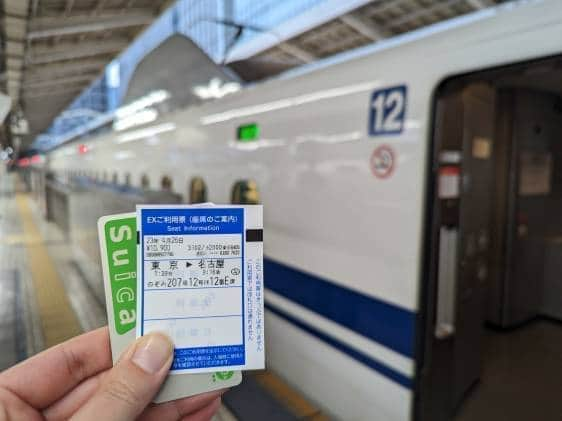
How and Where to Buy Shinkansen Tickets

Asakusa: A Guide to Tokyo's Traditional Center

Narita Airport to Tokyo

A Guide to ALL Pokemon Centers in Tokyo, Japan

Tokyo's Best Airport: Flying into Narita vs. Haneda

May 2024: 5 Events Not to Miss in Tokyo
May is the official start of festival season in Tokyo. With mega-fests like Sanja Matsuri and the Golden Week holiday, you're spoiled for choice!

Tokyo Events This Week: Wisteria, Gyoza, and Shoe Festivals
Tokyo events for Monday, April 22 to Sunday, April 28, 2024.

New Video: Hidden Gems — Tokyo's Most Underrated Shrines and Gardens
Tokyo is often described as busy, crowded and futuristic, but there are also traditional shrines and gardens where you can swap the hustle and bustle of the city for peace and quiet.

3 Hidden Sound, Art and Poetry Experiences in Tokyo
A different way to tune into the city.

Where To See Yaezakura: Late-Blooming Cherry Trees in Tokyo
8 perfect picks, from parks to shopping streets.

New Video: Top 20 Things to Do in Shinjuku
You'll need more than a day — there are LOTS of things to try!

International Music Artists and Bands Coming to Japan in 2024 (Updated)
Upcoming names include Baekhyun, the Red Hot Chili Peppers, Iron Maiden — and more.

6 Spectacular Spring Flower Festivals Around Tokyo
Move over, cherry blossoms! These other blooms will take your breath away well into late spring.

Yozakura: 8 Best Nighttime Cherry Blossom Illuminations in Tokyo
Light-ups have been extended, since the blossoms were so late this year.

Close without accepting

Japan Life Things To Do in Tokyo
Exploring Tokyo’s Hidden Mosques
Check out these tucked-away sanctuaries for Muslims seeking refuge, community and a sense of belonging in a city that never sleeps.
April 23, 2024
Despite their modest numbers, mosques in Tokyo are vital for Muslims seeking worship, gatherings and cultural exchange. Japan’s biggest mosque, Tokyo Camii in Shibuya, stuns those who come across it with its gorgeous Ottoman-style architecture as a striking testament to cultural diversity amid the city’s modern skyline. However, unlike some cities where these mosques dot the landscape, in Tokyo there aren’t so many and they are often inconspicuously nestled within the urban fabric. Here are some of the more quaint spots to engage with the Islamic faith in Japan’s capital.
List of Contents: 1. Masjid Nusantara, Akihabara 2. Masjid Shin-Okubo, Shin-Okubo 3. Jame Masjid, Kinshicho 4. Dar Al Taqwa Nihon Islamic Bunka Center, Ojima 5. Masjid Al Ikhlas, Kabukicho Related Posts
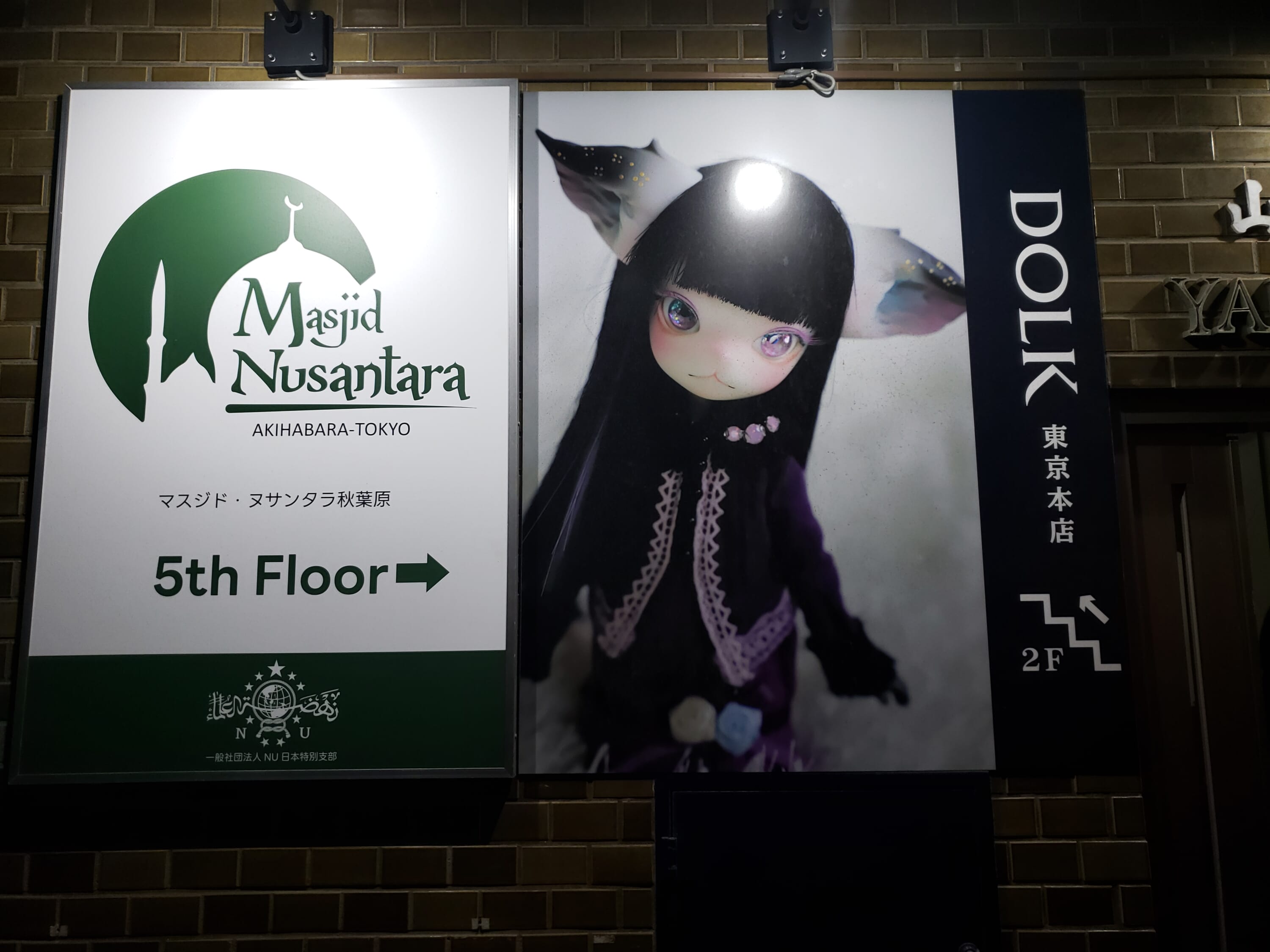
1. Masjid Nusantara, Akihabara
A short walk from the area’s neon lights, maids and game centers will bring you to this unassuming building where an Indonesian-run mosque can be found on the fifth floor. We put down our manga and picked up the Quran from one of the decorated prayer rooms where Arabic calligraphy can be found, as well as helpful signs in both Japanese and Indonesian. The mosque has regular events with the well-known Japanese Imam, Sheikh Ahmad Maeno. There is even a halal restaurant across the street with halal versions of ramen, gyoza and Japanese curry.
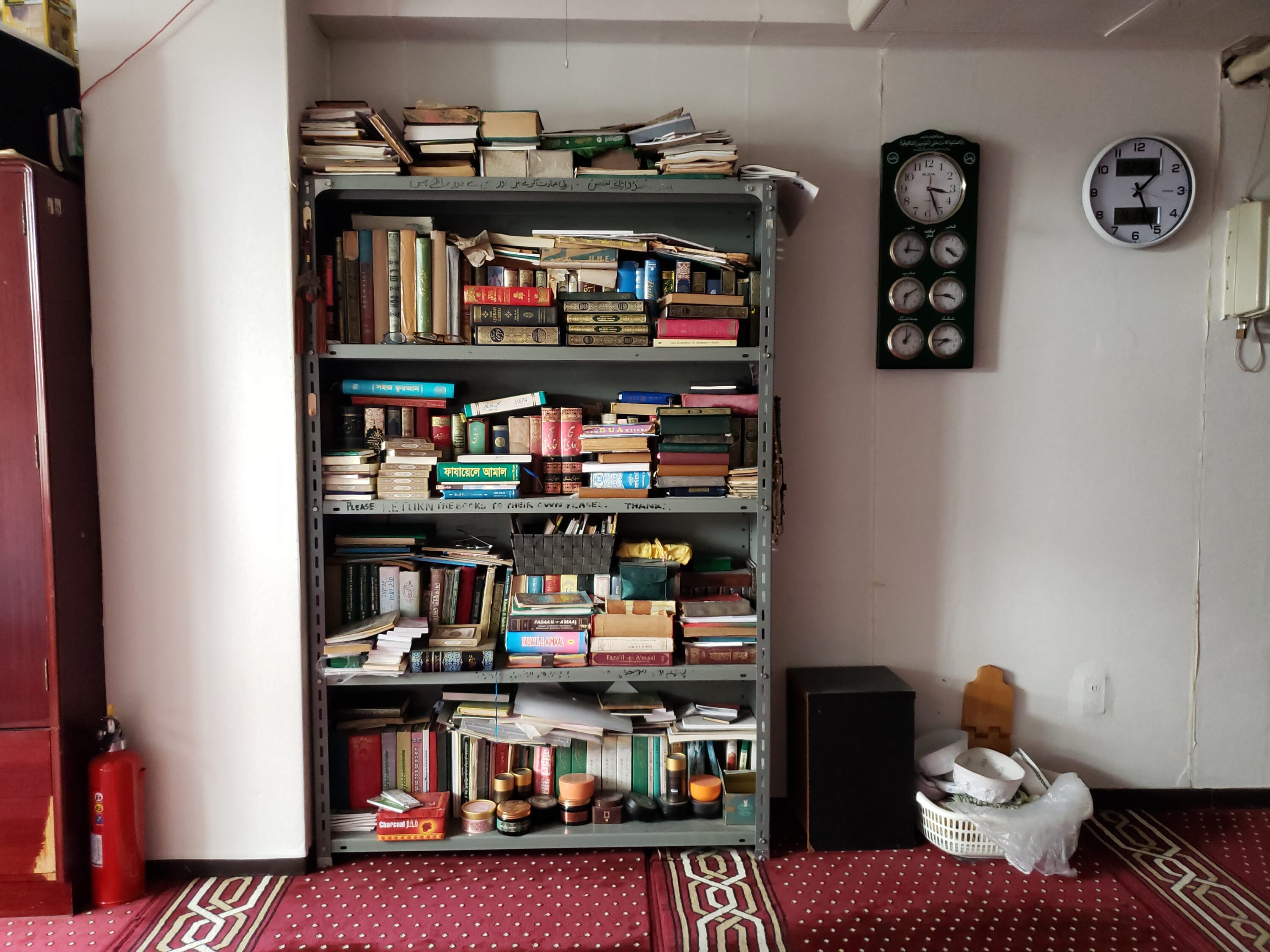
2. Masjid Shin-Okubo, Shin-Okubo
Nestled down an alley in the middle of Tokyo’s famous Koreatown, the harmonies of BTS pause momentarily as the azan, or adhan (Muslim call to prayer) echoes through the streets, calling the many foreign residents and business owners in the area in for their daily prayers. This single-room mosque can be found in what is known as Islam Yokocho, a street dedicated to halal restaurants and supermarkets. Despite only being one room in a building, the mosque provides a place to perform wudu (the ritual of washing before prayer), a shelf overflowing with Islamic books and a decent-sized prayer space.
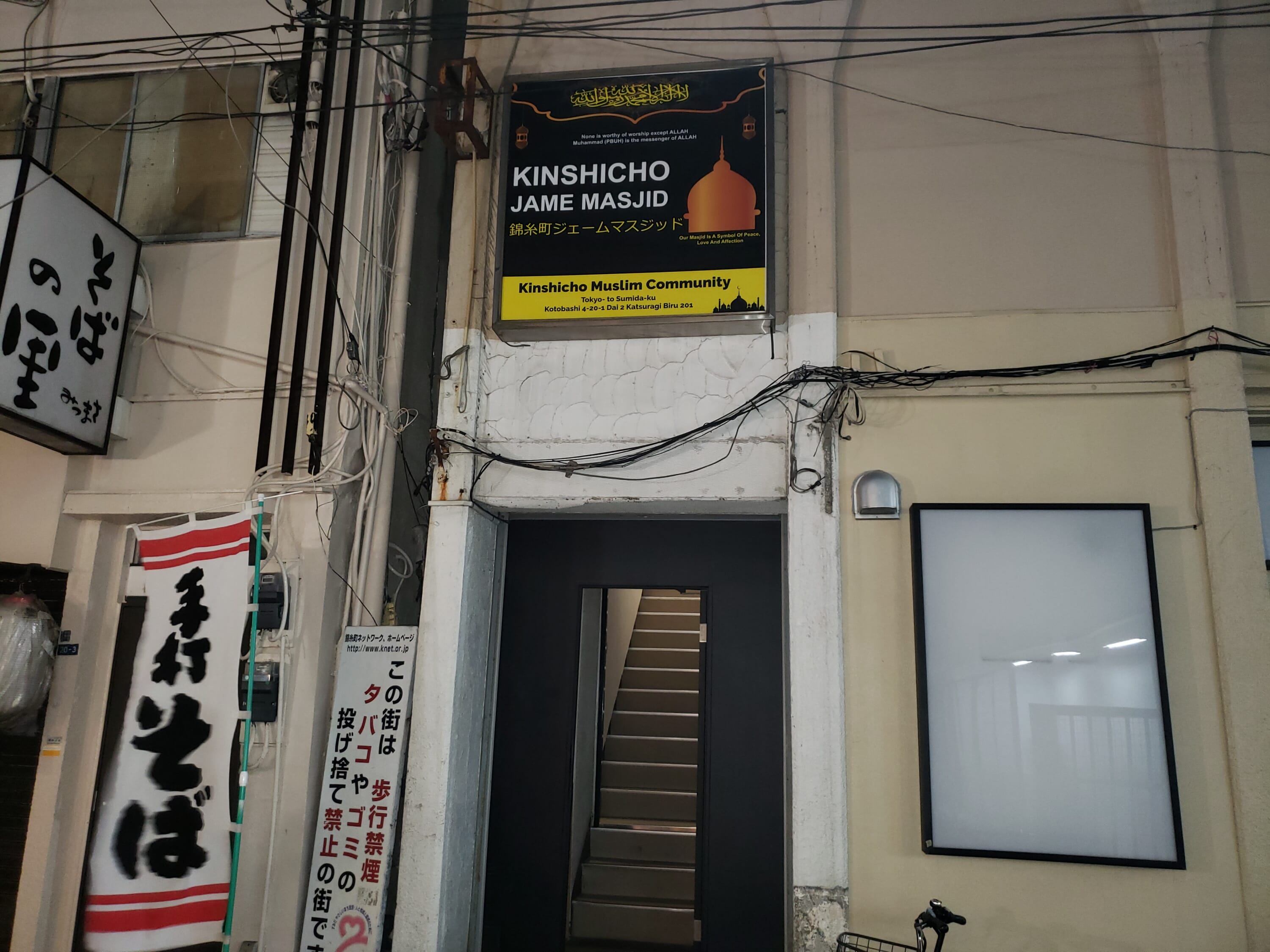
3. Jame Masjid, Kinshicho
After appreciating the spectacular view of Tokyo Skytree, head towards this conveniently located prayer space. A stone’s throw away from JR Kinshicho Station’s south exit, Jame Masjid is open 24 hours a day, every day. Before Friday’s prayers, a friendly Japanese doorman will usually greet you. There might also be some biryani served here on the odd occasion. There are sometimes talks on Islam held here for newly-reverted Japanese Muslims and they even provide iftar (a fast-breaking meal) during the holy month of Ramadan.
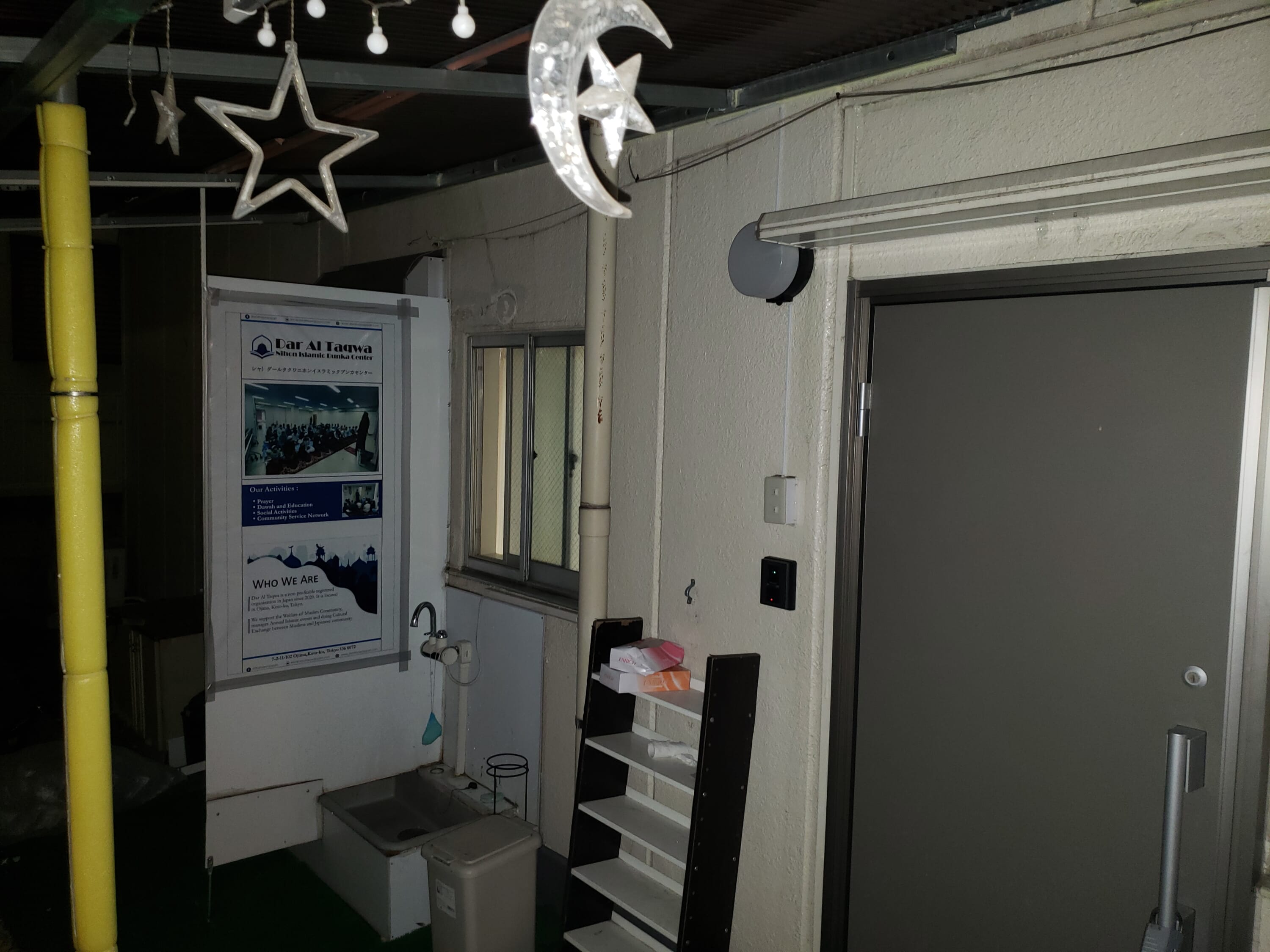
4. Dar Al Taqwa Nihon Islamic Bunka Center, Ojima
The hardest-to-find mosque on this list, Dar Al Taqwa provides a decent prayer space for people living around Koto ward in Tokyo. There is a convenient basin outside the mosque for visitors to perform wudu and a shelf to store shoes. That is pretty much it. This no-frills establishment sees many migrant workers and businesspeople in the area come to pray Isha , the fifth and final daily prayer for Muslims. Located in a small alley within a residential area of Ojima, Google Maps is truly your best friend.
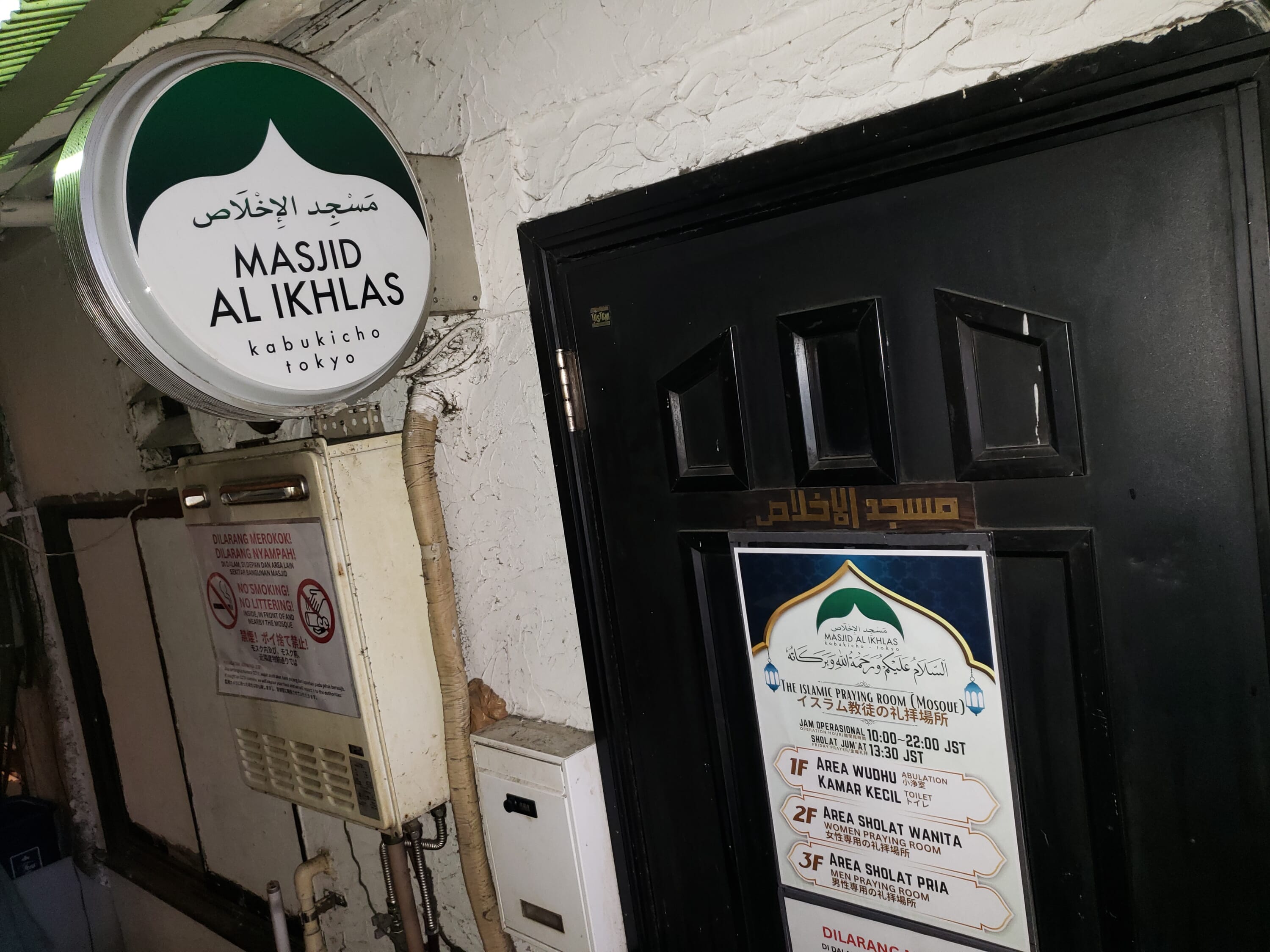
5. Masjid Al Ikhlas, Kabukicho
It is hard to imagine that Tokyo’s famous red-light district has a place of worship right in the middle of it, but Al Ikhlas is actually a regular place of worship for many people working in the area. Seek forgiveness in this small but clean mosque which holds Jummah (Friday communal prayer) to the best of its capacity with people even praying in the hallways. The location is quite odd, but staff members have commented that there is no better place for a holy establishment than the area of Tokyo which is most famous for its debauchery.
Related Posts
- 7 Places of Worship in Tokyo With Unique Architecture
- People and Churches of Goto Islands: A Travelogue From a World Heritage Site
The 6 Best Retro Onsen and Sento in Tokyo

Two Charred Bodies Found in Nasu and Japan’s Dual Custody Bill | News Roundup

Snake on a Shinkansen Delays Service by 17 Minutes

The Heart of Aso, Restored: Inside the Rebuilding of Aso Shrine

Tara: A Mystical Oceanside Town Where You Can Feel the Moon’s Power

Super Delivery International: Bringing Japan to Your Door

Stay in Style at DoubleTree by Hilton Kyoto Station

A Culinary Wonderland in Hyogo Prefecture
More From Forbes
7 must-try japanese wellness experiences.
- Share to Facebook
- Share to Twitter
- Share to Linkedin
From cycling tours to sand bathing, Japan's reverence for nature and wellbeing lends itself to ... [+] one-of-a-kind wellness experiences.
In Japan, it’s not hard to find locals bathing in a public onsen and immersing themselves in the forest—wellness is woven into the fabric of everyday life. With nature considered divine in the Japanese indigenous religions of Buddhism and Shintoism, wellness in Japan is built around the prevalence of volcanoes, forests and hot spring pools. While you might see ‘forest bathing’ offered in the West, in Japan, it is more than a new-age wellness treatment, and considered a form of preventative healthcare. Likewise, ‘sand bathing’ is not a light-hearted children’s beach activity, but instead a therapeutic treatment whose benefits have been espoused for over 300 years.
Sand bathing at Ibusuki Hakusuikan, Japan.
Whether you’re seeking a healing spa treatment or immersion in nature, you’ll want to try these six experiences the next time you’re in Japan.
Onsen Bathing
The Japanese regularly frequent communal onsens to experience the benefits of the mineral-rich hot ... [+] spring water.
While onsen bathing has risen in recent years to become arguably the country’s most popular wellness treatment, the Japanese have revered the practice since the sixth-century , when the first references to bathing appeared in texts. In the Buddhist and Shinto tradition, water is considered a means of purifying oneself and the steam from a bath is believed to improve one’s health. Subsequently, private baths were a coveted possession built by Japanese noblemen in the Kamakura period (1185-1333) that eventually became accessible to all in the form of sento (communal bathhouses). While the prevalence of onsen baths has declined since its peak in the 1960s (Tokyo had an estimated 2087 at that time), you can still find them all over the country as locals regularly frequent them to experience the benefits of the mineral-rich hot spring water.
WhatsApp Brand New iPhone Feature Just Launched That s Much Easier To Use
Earth s new second moon is as big as the statue of liberty and scientists just found its origin, new apple id password reset issue hitting iphone ipad and macbook users.
Try It: The Many hotels in Japan have their own onsen facilities but there are also onsen towns that are built around their hot spring pools. You’ll find the most opportunities to onsen in Oita, on the eastern side of Kyushu Island, where there are over 5000 hot springs .
Cycling Tour in Kyushu
Cycling tours offered by operators like Responsible Travel provide visitors the chance to connect ... [+] with nature while sightseeing.
With nature held in such high regard in Japan, what better way to immerse yourself in local culture than to explore Japan’s diverse landscapes on a cycling tour. Whether you’re eager to witness the cherry blossoms in full bloom, traverse Sakurajima Volcano or bath in the hot springs, the southern island of Kyushu offers a cycling course for everyone. Customized for every level of experience—from the casual biking enthusiast to the seasoned cyclist—curated itineraries offer a blend of scenic views, historical shrines, hot springs, authentic local encounters and impressive landscapes—from volcanos to mountains to ancient forests. Tours range from five days to 12 days, and include a cycling guide, overnight accommodations, meals from local restaurants, a support car with an accompanying driver and insurance.
Try It: Discover Kyushu has partnered with Responsible Travel to offer 10 different cycling tours, each with a different focus. The ‘ Off The Beaten Track Course ,’ for example, involves riding along the picturesque coastline on the west side of Kyushu, while the ‘ Cherry Blossom Course ’ takes you to some of the best spots to see the cherry blossoms in Yamaguchi Prefecture.
Sand Bathing
Sand bathing is believed to deliver three to four times the benefits of bathing in an onsen.
The therapeutic benefits of Japan’s volcanic activity extends beyond hot spring pools to the earth itself, with the act of sand bathing being considered an effective treatment for an estimated 300 years. What makes the sand unique is that its heated by the steam of hot spring water that flows beneath it. The weight of the mineral-rich sand on the body is believed to increase the volume of blood pumped out of the heart, improving circulation and stimulating waste secretion. The improvement of 11 body indicators studied by professor Tanaka, Faculty of Medicine, at Kagoshima University has even led to the claim that the beneficial effects of sand bathing are 3 to 4 times those of bathing in a hot spring. While perhaps not the treatment for anyone whose claustrophobic, the sensation feels similar to lying under a warm, weighted blanket.
Try It: Sand bathing is unique to Ibusuki on the southern island of Kyushu. Ibusuki Hakusuikan offers sand bathing in their traditional Yagura-style spa, which also features several indoor and outdoor hot spring pools for bathing afterward.
Lymphatic Drainage Massage
Lymphatic drainage massages are popular in Japan for reducing bloating, swelling and inflammation.
With massage known to improve circulation and stimulate detoxification, one targeted to the lymphatic system—the network of organs, vessels and tissues that move and drain a fluid called lymph from other parts of your body into your bloodstream—takes these benefits a step further. Similar lymphatic drainage techniques have been gaining popularity in Western facial treatments to reduce puffiness in the face, but this treatment has a similar effect on the body, reducing bloating, swelling and inflammation. Beyond the cosmetic benefits of making skin glow, a lymphatic drainage massage can help treat health conditions like rheumatoid arthritis , chronic venous insufficiency, fibromyalgia and lipedema. Either way, the use of gentle, repetitive strokes is sure to leave you feeling relaxed.
Try It: Spas across Japan offer lymphatic drainage treatments. The Sheraton Kagoshima specializes in this style of massage with several lymph treatments to choose from.
Okyu (known as ‘moxibustion’) is a Traditional Chinese Medicine therapy that involves the burning of ... [+] dried mugwort on acupressure points.
Okyu (known as ‘ moxibustion ’) is a Traditional Chinese Medicine therapy that involves the burning of dried mugwort, in the form of small cigar-shaped sticks, on the skin. Typically applied in conjunction with acupuncture, the treatment has been used for centuries in other Asian countries such as China, Korea and Vietnam, but remains a popular spa treatment in Japan today. By creating inflammation to targeted areas, okyu is believed to encourage healing by increasing blood circulation and encouraging the production of white blood cells. It’s even used as an adjunctive treatment for tuberculosis in developing countries.
Try It: Okyu is not typically offered at hotels as practitioners need a license to perform the treatment. The service is more often found at acupuncture clinics.
Forest Bathing
In Japan, forest bathing is believed to improve sleep, mood, ability to focus and relieve stress and ... [+] muscle tension.
The Japanese practice of ‘ shinrin-yoku ,’ or forest bathing, is the simple act of immersing oneself in the forest without distractions (like your phone). While the practice has entered the wellness mainstream in the West, it’s taken very seriously in Japan, as it began as a medicinal practice in the 1980s in response to rising depression and poor health due to urbanization. Reported to improve sleep, mood, ability to focus, and relieve stress and muscle tension, forest bathing is considered so effective it’s considered a of preventative healthcare in Japan. In our hyper-connected age, arguably its greatest appeal is that it provides a chance to disconnect from technology. Instead, one engages in a sort-of walking meditation, noticing and engaging with all the intricate elements of the forest—from listening to the birds to touching the bark of trees.
Try It: The best part about forest bathing is its accessibility, all you need is a forest, of which there are plenty in Japan. But if you feel you’re likely to grab for the phone or need some structured guidance, there are centers that offer forest bathing experiences all over the country.
In a Japanese head spa treatment, the hair is washed and conditioned and the head is massaged, ... [+] followed by a hair mask.
While Japanese head spas have been trending lately, the practice can be traced back to ancient Ayurvedic traditions that considered scalp health an integral part of overall well-being. As the name implies, a head spa treatment involves the head being washed, conditioned and massaged, followed by a hair mask. Most head spa treatments start with a consultation in which the client communicates the unique conditions of their hair and scalp so the treatment can be customized to their needs. The conditioning and masking exfoliates the scalp and nourishes the hair follicles while the massage portion of the treatment relieves tension and increases blood flow to the scalp, which can help stimulate hair growth.
Try It: Head spas are popular all over Japan but if a plane ticket is not in your budget, you can now find Japanese head spas in major American cities thanks to the treatment gaining popularity in the West. Headspa EN in Los Angeles analyzes the scalp with a microscope and treats inflammatory conditions such as eczema and psoriasis. NAGI in New York City offers a range of head spa treatments such as an anti-aging treatment to remove excess buildup. The salon, which has multiple locations in Manhattan, incorporates microscopic scalp counselling, infrared light therapy and deep conditioning treatments.

- Editorial Standards
- Reprints & Permissions
- Japan Tourism
- Japan Hotels
- Japan Bed and Breakfast
- Japan Vacation Rentals
- Flights to Japan
- Japan Restaurants
- Things to Do in Japan
- Japan Travel Forum
- Japan Photos
- All Japan Hotels
- Japan Hotel Deals
- Last Minute Hotels in Japan
- Things to Do
- Restaurants
- Vacation Rentals
- Travel Stories
- Rental Cars
- Add a Place
- Travel Forum
- Travelers' Choice
- Help Center
Nagano to Tokyo following alpine route. - Japan Forum
- Asia
- Japan
Nagano to Tokyo following alpine route.
- United States Forums
- Europe Forums
- Canada Forums
- Asia Forums
- Central America Forums
- Africa Forums
- Caribbean Forums
- Mexico Forums
- South Pacific Forums
- South America Forums
- Middle East Forums
- Honeymoons and Romance
- Business Travel
- Train Travel
- Traveling With Disabilities
- Tripadvisor Support
- Solo Travel
- Bargain Travel
- Timeshares / Vacation Rentals
- Asia forums
- Japan forum

We would expect to be at Ogizawa for the last bus at approx 5pm, so are likely to be at Nagano around 18.45. I'm guessing that getting a shinkansen around 7pm would be doable, but is there any need to try to book tickets for this journey, and if so, is there any option to book ahead of our arrival in Japan on 13th of May.
Any advice on this would be appreciated.
Thanks everyone
4 replies to this topic

I wondered if it was worth booking beforehand to save time at the station. We have approx 20 minutes between bus arrival at Nagano bus station and Kagayaki shinkansen departing at 19.05.
Enough time to get to and to buy at station?
https://www.eki-net.com/en/jreast-train-reservation/Top/Index
Excellent, thank you again.
- Stay in Kyoto train station or another area in Kyoto? 1:00 am
- Sashiko shopping 12:59 am
- Hierarchy: Mimaru, Monday, Minn, MyStays, Sakura 12:50 am
- Narita to Haneda connection - unconnected tickets Saturday. 12:48 am
- Help! How to reserve Yufuin No Mori tickets? 12:37 am
- Kyshu travel for 2 in Nov 2024 12:04 am
- Izu peninsula 11:49 pm
- Vegetarian Ryokan for Family 11:44 pm
- Express bus to Oshino Hakkai 11:30 pm
- Shari Bus 11:19 pm
- Flowers in May? 11:02 pm
- Peace Park- tickets in advance? 10:55 pm
- Best Shinkansen from Tokyo Station to Kyoto Station 10:52 pm
- Kanazawa, Toyama, Takayama area 10:36 pm
- 'semi double' rooms 5 replies
- Pocket WiFi Rental Experience? 315 replies
- kyoto-takayama JR or Lmtd express??? 6 replies
- Best Japan travel guide book? 29 replies
- Best/cheapest time of year to visit?? 3 replies
- Radiation danger in Tokyo? 37 replies
- Best Skiing in Japan? And When? 3 replies
- Japan in 10 days 3 replies
- How far is Nara from Kyoto 8 replies
- how to get to Hokkaido from Tokyo? confused..pls HELP. 5 replies
- 2024 public holiday chart in East Asian countries
- Where can I find more onsen in Japan?
- Driving Information
- Catholic mass in English and other languages
- How can we access tourist attraction from cruise port?
- Pocket WiFi Rental Experience?
- Halal Information
- Tokyo trip report here
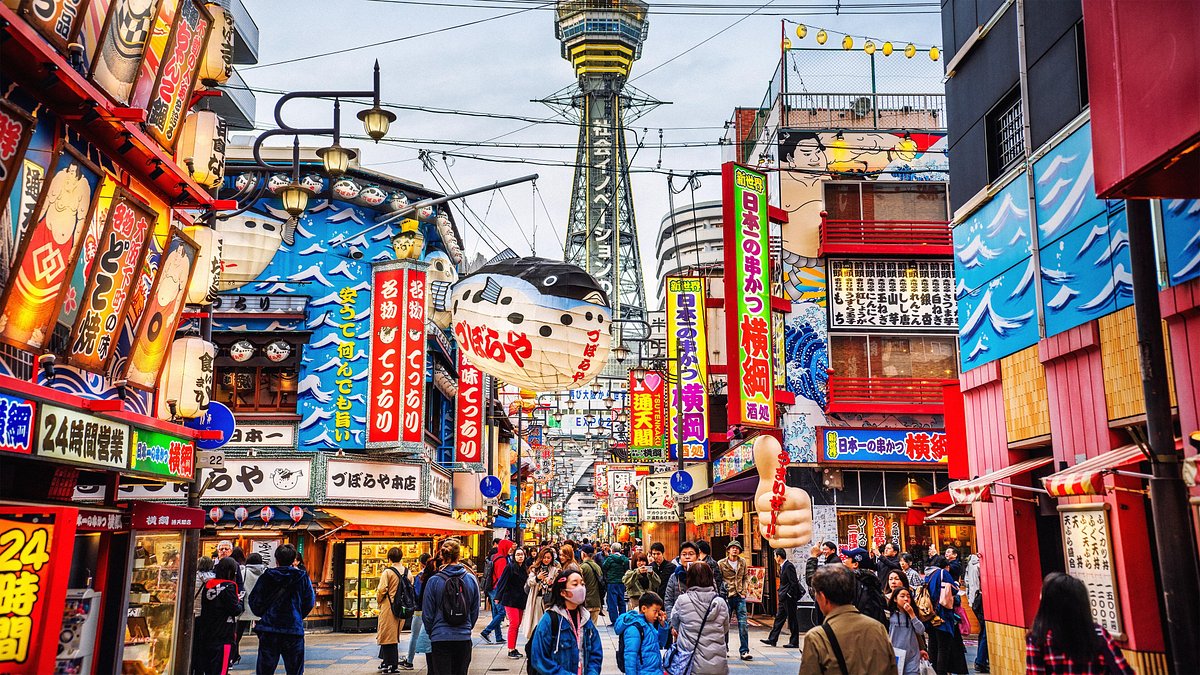

Tips and tricks for traveling to Tokyo
W hatever you're looking for, you'll find it in Tokyo. The city entices visitors with its blend of modern and traditional culture, vibrant nightlife and entertainment, innovative hospitality, and exquisite cuisine.
Because there's so much to see, do, and try across Tokyo's diverse neighborhoods and districts, it can be a bit overwhelming for a first-timer to plan a visit. Here are a few tips and tricks to make prepping a little easier.
Some things to know about Tokyo
Tokyo is a sprawling city, and each distinct neighborhood has its own perks that draw in visitors. Harajuku is where fashion styles are born and the shopping is on point, while Asakusa is more traditional and home to the Sensoji Temple and theaters offering rakugo storytelling. Read up on the different areas before you start planning your trip, so you can have a better idea of the neighborhoods that provide what you're looking for.
Hotel rooms are often smaller in Japan, so try to pack as lightly as possible. One thing you don't want to leave at home is cash; in many places, credit cards are not accepted.
Bullet train basics
Shinkansen is a network of high-speed trains that sweep passengers from city to city. The main Tokyo Station connects travelers to major destinations, and tickets can be purchased in advance online. Izumi Kirchmayr Ogawa, an independent affiliate of Direct Travel-Vancouver, told The Week that "you don’t necessarily need to book a green car," or first-class, tickets, adding, "All the cars are clean and comfortable." If you can find out which side of the train has the best view for your journey, make sure to choose a seat in the right spot. "For example, from Tokyo to Kyoto, I recommend that people should reserve seats on the right side of the train, as they can see Mt. Fuji," Ogawa said.
The bullet trains don't have much storage, and space is even more limited when there are a lot of tourists. Instead of lugging your belongings around, Ogawa suggests using a delivery service. "It’s very convenient and the service is very reliable to get your bags delivered to your next destination in a timely manner," she said. "Plus, you're not struggling to navigate the busy train stations with your large bags."
If you're traveling a long distance on the train, be sure to grab something to eat and drink before boarding. Ekiben are bento boxes riders can enjoy while riding the rails, which are sold in convenience stores in and around train stations. "This is our favorite thing to do on the train," Ogawa said. You can also imbibe, but drink responsibly.
All about sento and onsen
In Japan, "having baths is part of our culture and we take a bath every day," Ogawa said. Public bath houses are known as sento. Here, the baths are filled with heated tap water, while onsen are hot springs; Ogawa noted that today, "there are many public bath houses where the water contains mineral ingredients. Since Mt. Fuji is closer, there are a lot of public baths in southern Tokyo."
There are guidelines to follow, and they differ from what might be acceptable at a spa in North America or Europe. "No clothing or swimsuits are permitted," Ogawa said. Women's changing rooms are usually behind a red curtain and men's behind a blue curtain, and once you're undressed, you should head to the cleansing areas before going to the baths or onsen. Don't forget to bring your towel along for every step of the experience — you'll need it to dry off, and you can use it to cover up when walking around. Just make sure you follow etiquette and keep the towel out of the water.
If you've got ink, know in advance that most baths do not allow visitors with tattoos. That's because in Japan, "gangsters are typically heavily tattooed," the Japanese National Tourism Organization explained, and the bans "tend to come from a desire to avoid non-tattooed guests feeling uneasy around people perceived as dangerous." Tiny tattoos could be covered up with bandages, but it's best to check with a bath ahead of time to find out its exact rules.
The place for foodies
For many visitors, the Tokyo culinary scene is what lured them to the city. "Tokyo has everything," Ogawa said. "People can experience food from all over the world."
For those wanting to focus on Japanese cuisine, there are dishes that were perfected in Tokyo, like tempura, nigiri and monjayaki, plus regional specialties. One way to try a multitude of dishes is to go to a department store and visit its depachika food hall. "People will be overwhelmed by the variety of food and sweets," Ogawa said.
There are more Michelin-starred restaurants in Tokyo than any other city in the world, and here, diners will wait in long lines for a good meal, so pack your patience. There is no tipping in restaurants and cafés, "and the service quality is really good," Ogawa said. One tip she always gives to clients is to stop for some ice cream at a convenience store or Häagen-Dazs. "There are so many varieties and they are not as sweet as North American varieties," she said. Some flavors are only available in Japan, like Sakura (cherry blossom) and Carrot Orange.
Don't skip the drug stores
Japanese drug stores are packed with items that you can't find just anywhere, like "hot eye masks with aroma and cold feet pads," Ogawa said. There are aisles chock full of affordable skin care products, toiletries and cosmetics that come in handy while traveling but also make for fun souvenirs to bring home. Even a simple bottle of Japanese cold medicine is a hot commodity, Ogawa said, and her friends often ask her to bring some back when she visits Japan.
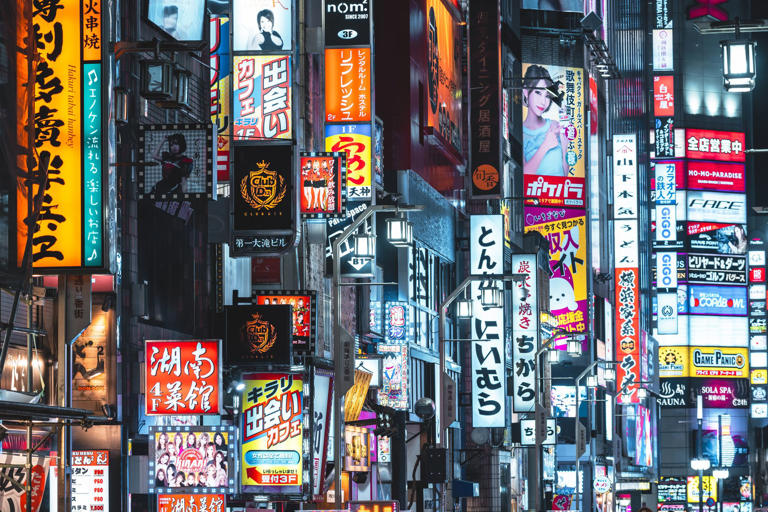

IMAGES
VIDEO
COMMENTS
Saunas and baths. Kamata. This old-school bathhouse's rare black hot spring is said to heal back pain and give you healthy skin. In addition to that quirky speciality, you can experience all kinds ...
Visit Onsen in Tokyo - Relaxing Hot Springs. An essential part of any trip to Japan is relaxing at an onsen, or hot spring.When it comes to onsen, well-known hot spring areas such as Hakone and Beppu soon come to mind, but you can also enjoy onsen in Tokyo as well.. Also, if you you go to Hakone, Nikko, or any of the other onsen areas, you can enjoy delicious cuisine and relax in hot springs ...
Haiwajima Natural Hot Spring is one of the largest natural hot spring facilities in Tokyo. Along with onsen, you have many other options like stone spa, healing program and a relaxation space filled with row upon row of reclining chairs. Address: 1 1, 1-chōme, Heiwajima Ōta-ku, Tōkyō-to. Phone: +81337689121.
Photo courtesy of Tokyo Somei Onsen Sakura. Although Tokyo Somei Onsen Sakura is not a lodge where you can spend the night, you can enjoy food similar to that of a ryokan. There is an option to reserve a traditional Japanese course-style meal called "kaiseki" with your visit, which will cost you around 3,500 JPY without add-ons.
Sayano Yudokoro is, by name and by nature, the onsen most representative of Tokyo's 23 wards, and is perfect for a day trip. Saya refers to the ancient kanji, 清, essentially meaning "clear" or "pure." That meaning is reflected in the wonderfully fresh water that flows into the baths. Many people are already in the know when it comes to the ...
Located in the west part of Kanagawa prefecture, Hakone attracts numerous tourists all year round with a range of tourist attractions and scenic spots around.Because Hakone is easily accessible from Tokyo, it takes only 1.5 hours to get to the area from Tokyo by train, it is a popular day trip destination as well!. Popular attractions around Hakone Yumoto Onsen
Onsen & Bathhouses. After a long day touring Tokyo, it's time to unwind with a relaxing bath. Join the locals in one of the city's numerous public baths. You'll come out refreshed, relaxed, and rejuvenated. Though numbers have dwindled in recent years, there are still many public baths to be found around city.
The hot spring in the Mitsui Garden Nihonbashi is clean and tidy, and the quality and hospitality here are top notch throughout the stay. You will like the Japanese bath in this Tokyo onsen hotel. Address: Japan, 〒103-0022 Tokyo, Chuo City, Nihonbashimuromachi, 3 Chome−4−4 9階. Phone: +81 3-3270-1131.
3. Ikaho: Iron-rich waters and slurp-worthy noodles. 4. Atami: A seaside resort. 5. Kinugawa: A riverside onsen town near Nikkō. Home. Things to do in Tokyo. Japan has more hot spring facilities than almost anywhere in the world, so it's the perfect place to warm up this winter with a good soak.
There are two types of bathhouses in Tokyo and throughout Japan: onsen and sento. While there are obvious similarities between the two - they're both communal hot-water baths and visitors must ...
The Prince Park Tower Tokyo is an upscale hotel located in Tokyo, Japan. The hotel features a natural hot spring, also known as an onsen, and a full range of other amenities. The hotel boasts 7 restaurants, an indoor pool, and a sleek bar. Facilities at this hotel include a swimming pool and hot-spring bath .
Onsen is the local word for hot springs, one of the great joys of travel in Japan. In Tokyo specifically you may not immediately think of onsen in the big urban jungle, but the city is home to a surprising number of onsen destinations just waiting for you to take a dip. Plus, if you're willing to take a few more steps just outside the city you'll find the neighboring areas are burbling ...
1. Hakone Onsen (1.5h from Tokyo) One of the Best Onsen Towns Near Tokyo. Location: Hakone, Fuji Hakone Izu National Park, Kanagawa Prefecture. General Information: Hakone Onsen (箱根温泉) is one of Japan's most popular hot spring resorts and one of the most popular day trip destinations from Tokyo.
6. Thermaeyu. Thermae Yu (テルマー湯) is located the heart of Tokyo, in the bustling commercial district of Shinjuku as an urban sanctuary that's open 24 hours a day. This onsen draws visitors with its convenient location and the variety of baths it offers, sourced from the hot springs of Nakaizu in Kanagawa Prefecture.
1. Oedo-Onsen Monogatari (Odaiba) Location: Odaiba, Near Ginza & Tsukiji Fish Market, Tokyo General Information: Oedo-Onsen Monogatari (大江戸温泉物語) is located on Odaiba, a large artificial island overlooking Tokyo Bay.The island is actually one of my favorite places in Tokyo and I bring all of my family and friends there whenever they come to visit me.
Onsen around Tokyo. 1. [Yamagata] Ginzan Onsen. Ginzan Onsen stands quietly in the mountains of Obanazawa City, Yamagata Prefecture. Ginzan Onsen is a hot spring town with hints of the Taisho period with its nostalgic cityscape. This place is the setting for the NHK TV series "Oshin", bringing it in the limelight and its name has been ...
Here are some of the best retro sento and onsen in Tokyo. Also, make sure you check out our sento etiquette guide before getting naked with the locals. List of Contents: 1. Jouestu-sen, Nakano 2. Oshiage Onsen, Daikoku-yu, Asakusa 3. Takara-yu, Kita Senju 4. Teikoku-yu, Nippori 5. Fuji-no-yu, Yoga 6.
9 Best Onsen Ryokan/Hotels near Tokyo. First, we will introduce the 9 best onsen ryokan/hotels near Tokyo. You can access all of these places within one to three hours from Tokyo by trains and buses. It is unbelievable how close these places are to Tokyo. They also come with amazing views. We will introduce them below. 1.
Rating: 3-Star Hotel. Guest Rating: 8.6/10. Location: Shinjuku, Tokyo. View on Agoda.com or Booking.com. Onsen Ryokan Yuen Shinjuku, as the name suggests, is a traditional ryokan located in the colorful Shinjuku neighborhood. It is a modern hotel with sleek, yet simple rooms that feature impressive views of Tokyo.
2. Kusatsu Onsen (Gunma Prefecture) Kusatsu Onsen is located in Gunma Prefecture and has held the top position in the 'Top 100 Japanese Hot Springs' for 21 consecutive years. It boasts the highest natural hot spring water in Japan, characterized by strong acidity with potent bactericidal properties.
Takaragawa Onsen Osenkaku is a traditional Japanese inn tucked away in a valley by the Takara River in the suburbs of Tokyo. The ryokan uses traditional Japanese architecture and has a history that spans over 80 years. Takaragawa Onsen Osenkaku features an open-air bath that measures more than 330 square meters, the biggest in the hot spring area.
The Edo Sakura is a charming private townhouse ryokan. Nestled just outside the city center, the ryokan offers a serene escape between Sensoji in Asakusa and Ueno Park. It's a leisurely 15-minute walk to Sensoji and a 20-minute stroll to Ueno Park, placing you right in the heart of Tokyo's cultural treasures.
Try the intimate and onsen-equipped Yudanaka Yasuragi in Yudanaka. You can also walk around and visit the numerous public baths in the area — many of the onsen use an honesty-box system for payment. Nearby Nagano City is also full of hotel options, but doesn't have much going for it besides Zenkōji Temple. Instead, the nearby Shibu Onsen ...
2. Masjid Shin-Okubo, Shin-Okubo. Nestled down an alley in the middle of Tokyo's famous Koreatown, the harmonies of BTS pause momentarily as the azan, or adhan (Muslim call to prayer) echoes through the streets, calling the many foreign residents and business owners in the area in for their daily prayers. This single-room mosque can be found in what is known as Islam Yokocho, a street ...
Sand bathing is believed to deliver three to four times the benefits of bathing in an onsen. Anna Haines. The therapeutic benefits of Japan's volcanic activity extends beyond hot spring pools to ...
Short visit to Tokyo / Osaka with kids 12:30 pm; Nokonoshima Island to Nagasaki 10:49 am; One day in Kyoto. Please suggest on my itinerary 10:44 am; Hakone-Fuji Five Lakes- Kyoto Questions: Need help! 10:39 am; Fushimi Inari worth without hiking? 10:23 am; Can we see Mt.Fuji while going from Kyoto to Tokyo? 10:18 am; Tateyama Kurobe Alpine ...
Shinkansen is a network of high-speed trains that sweep passengers from city to city. The main Tokyo Station connects travelers to major destinations, and tickets can be purchased in advance online.